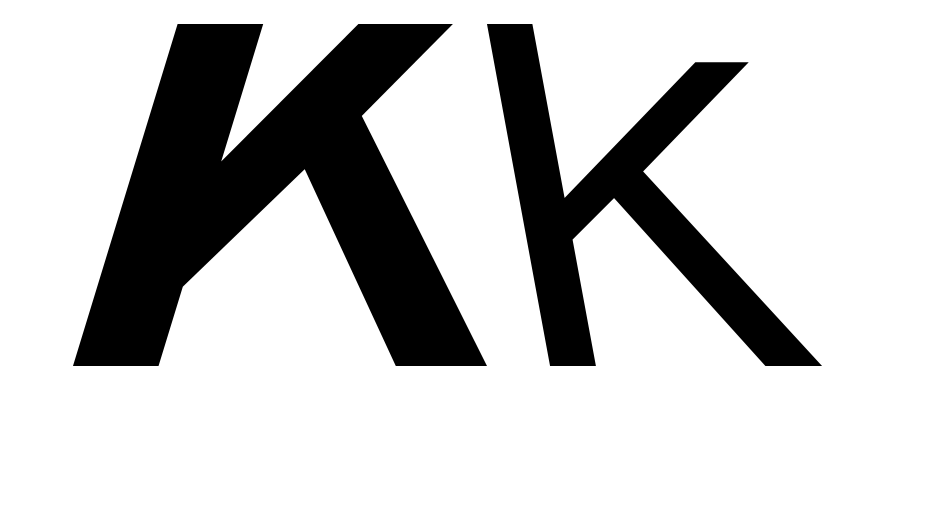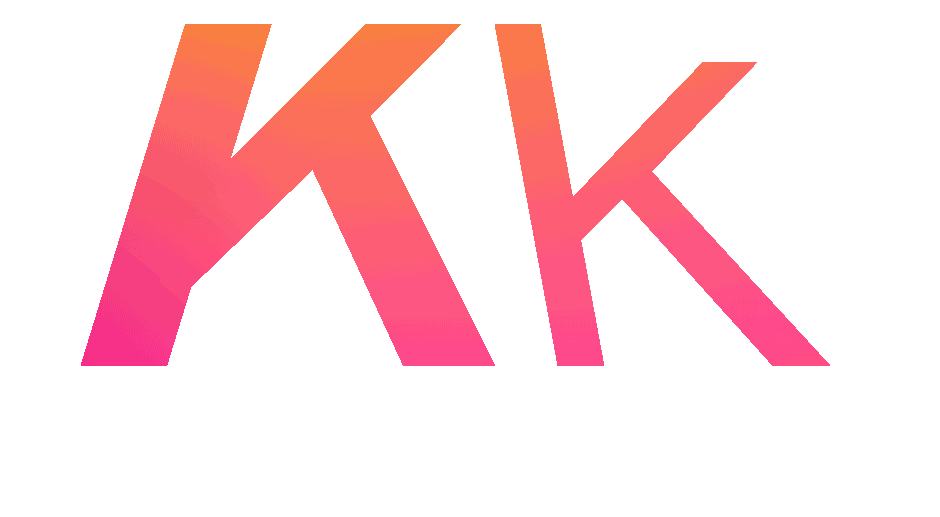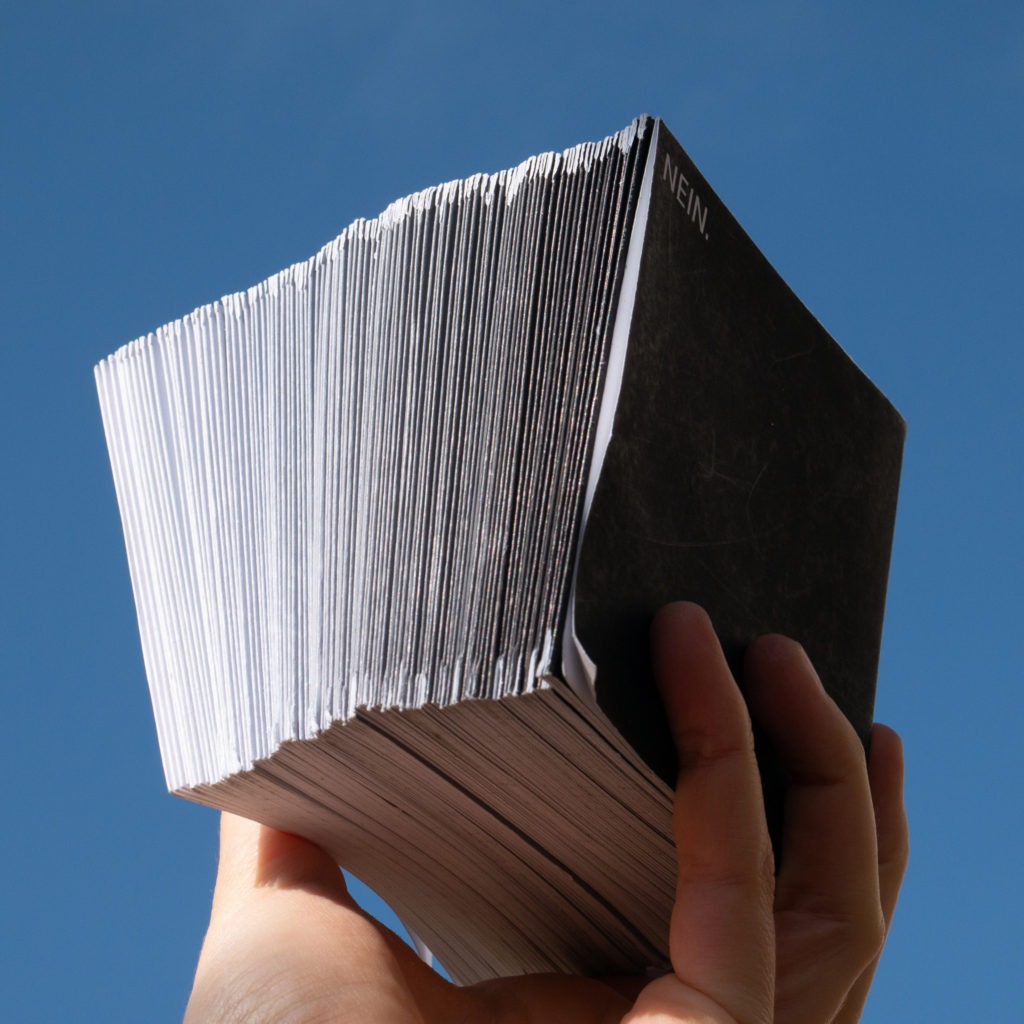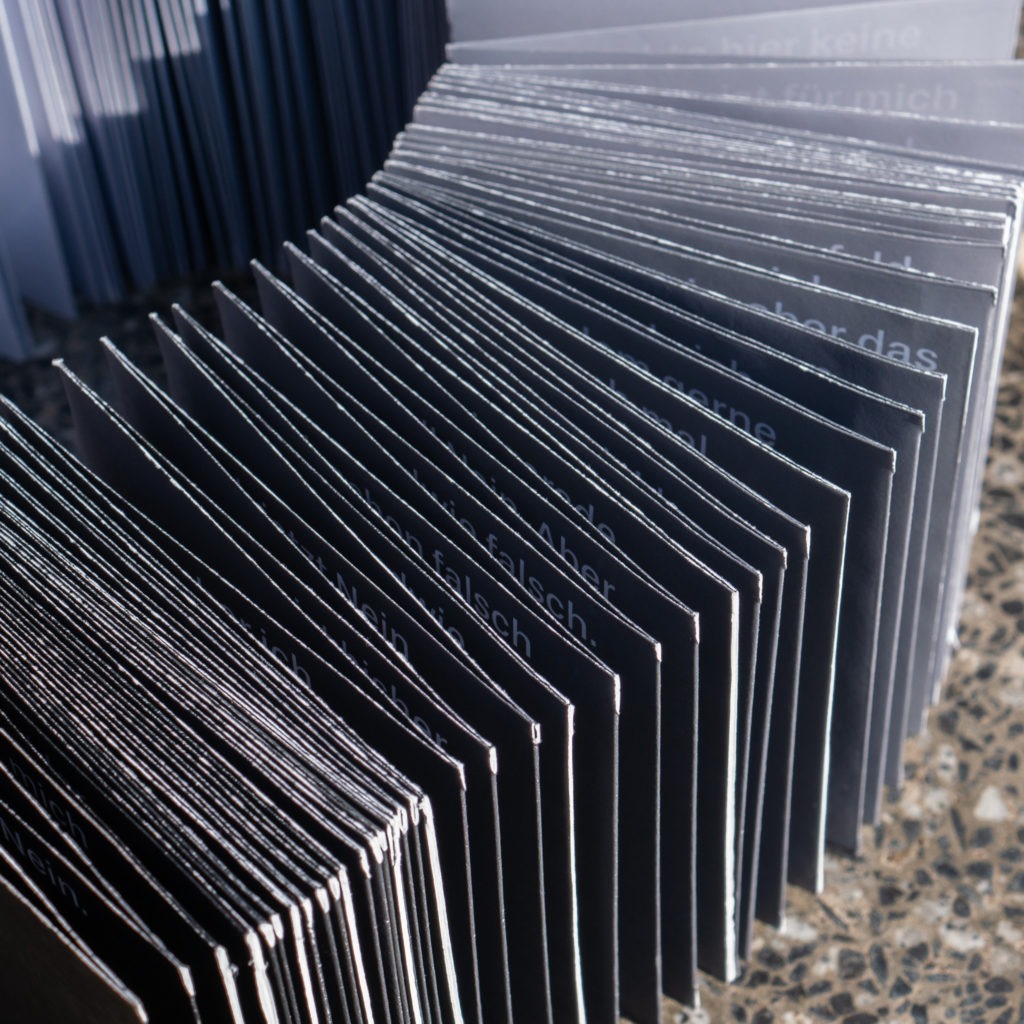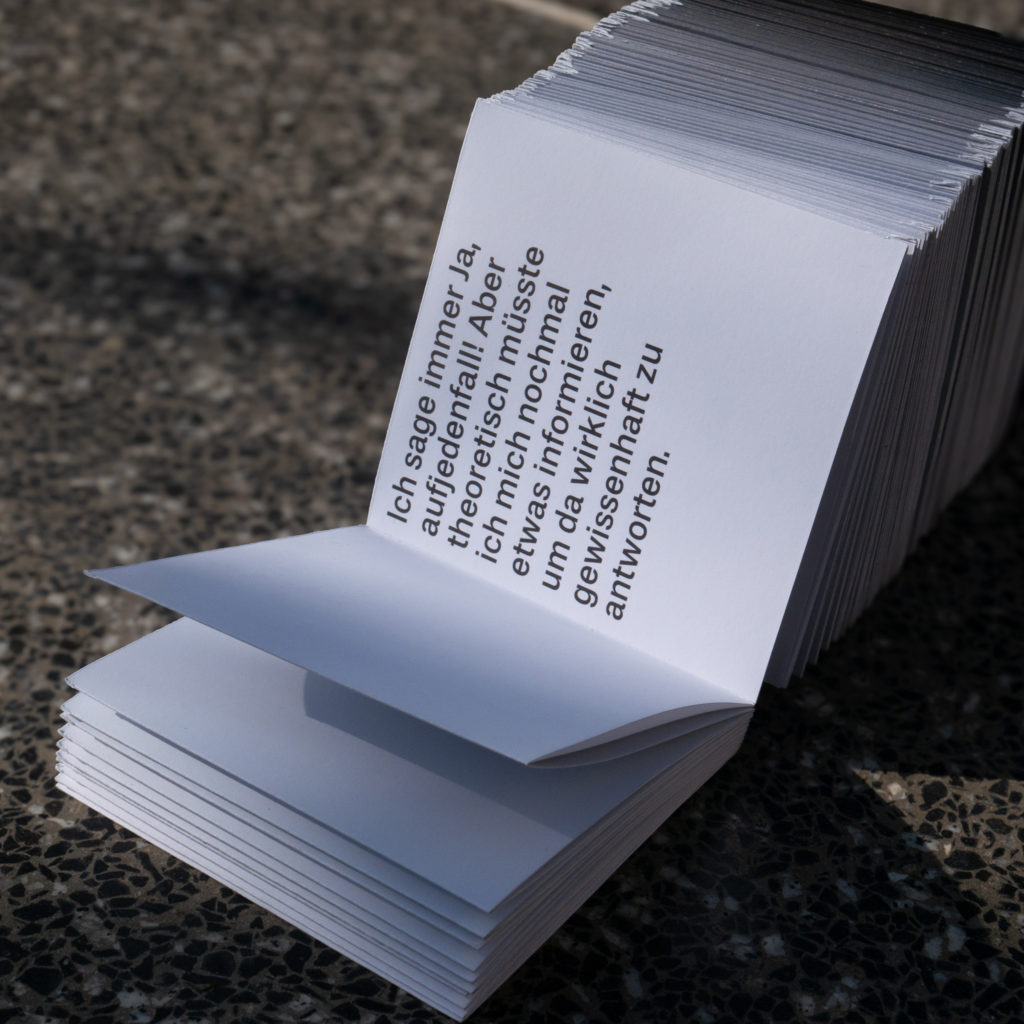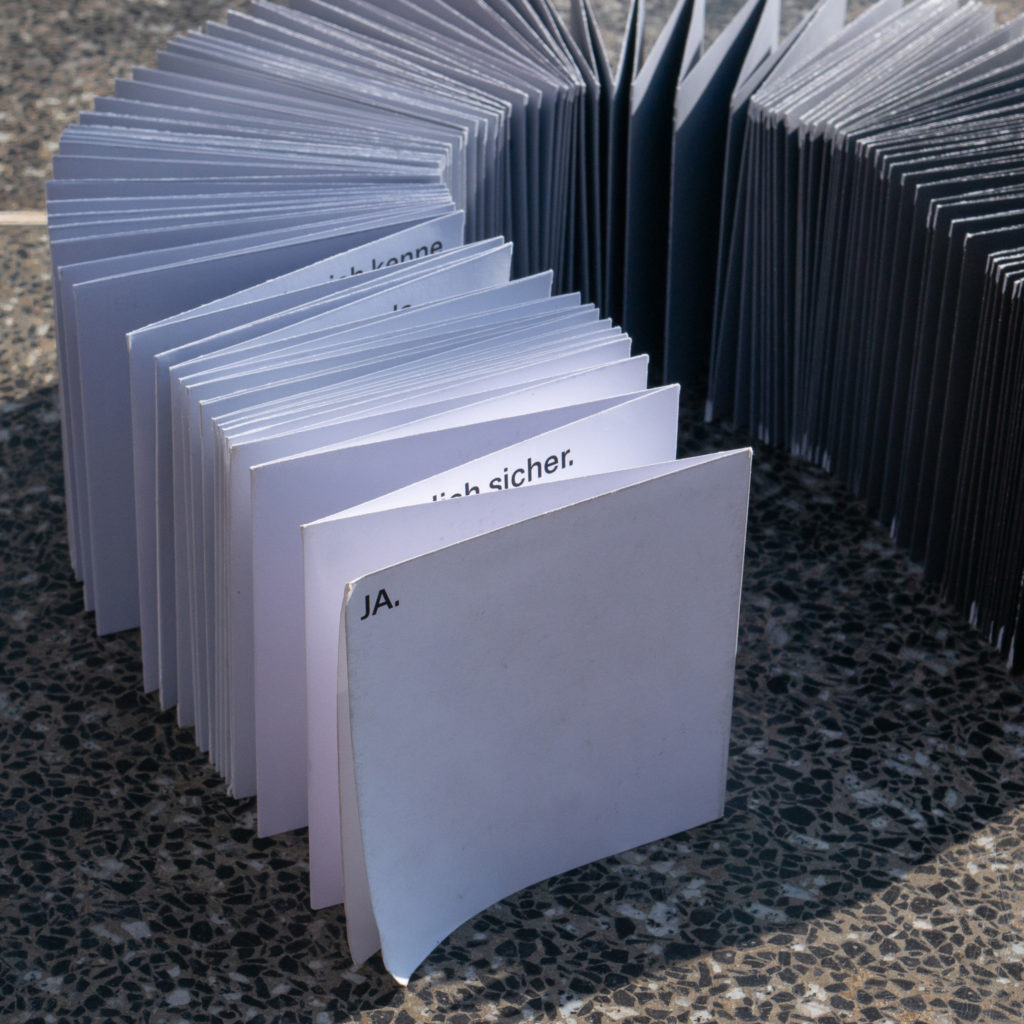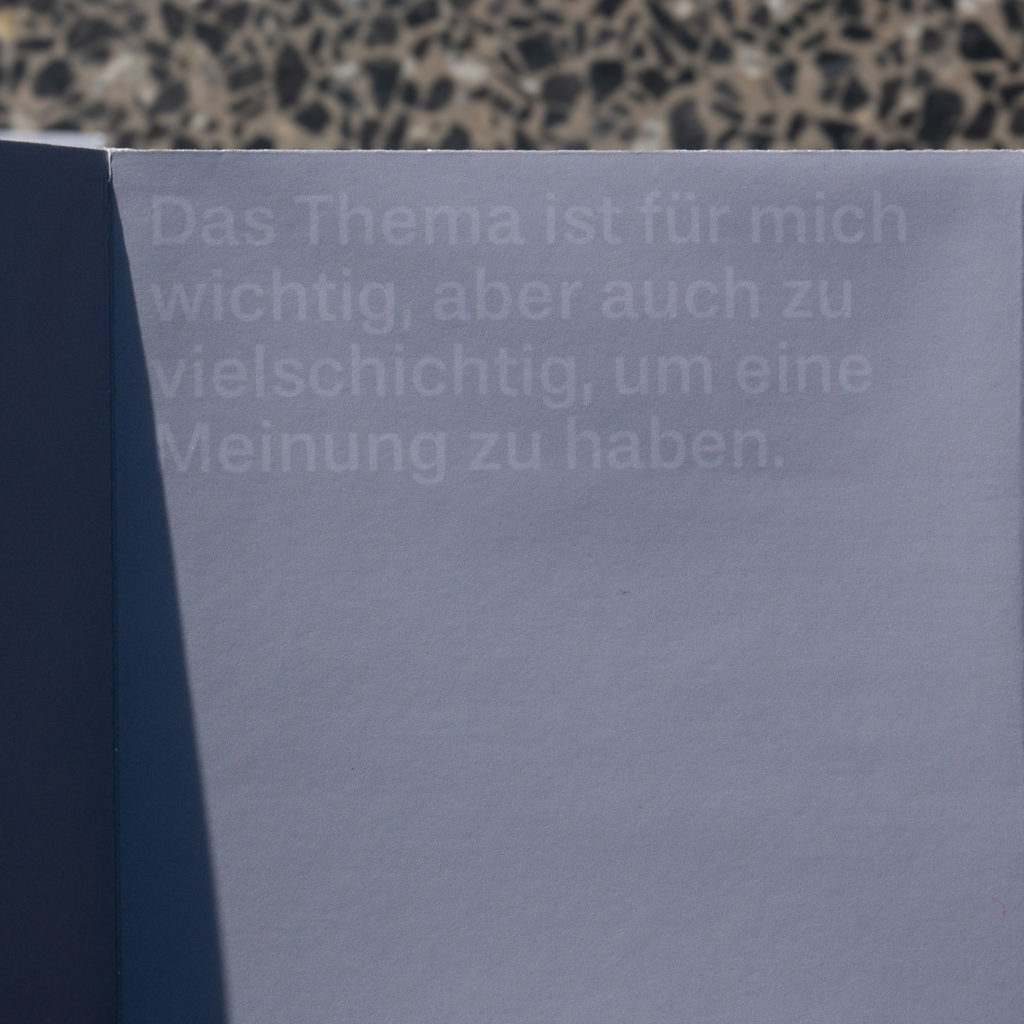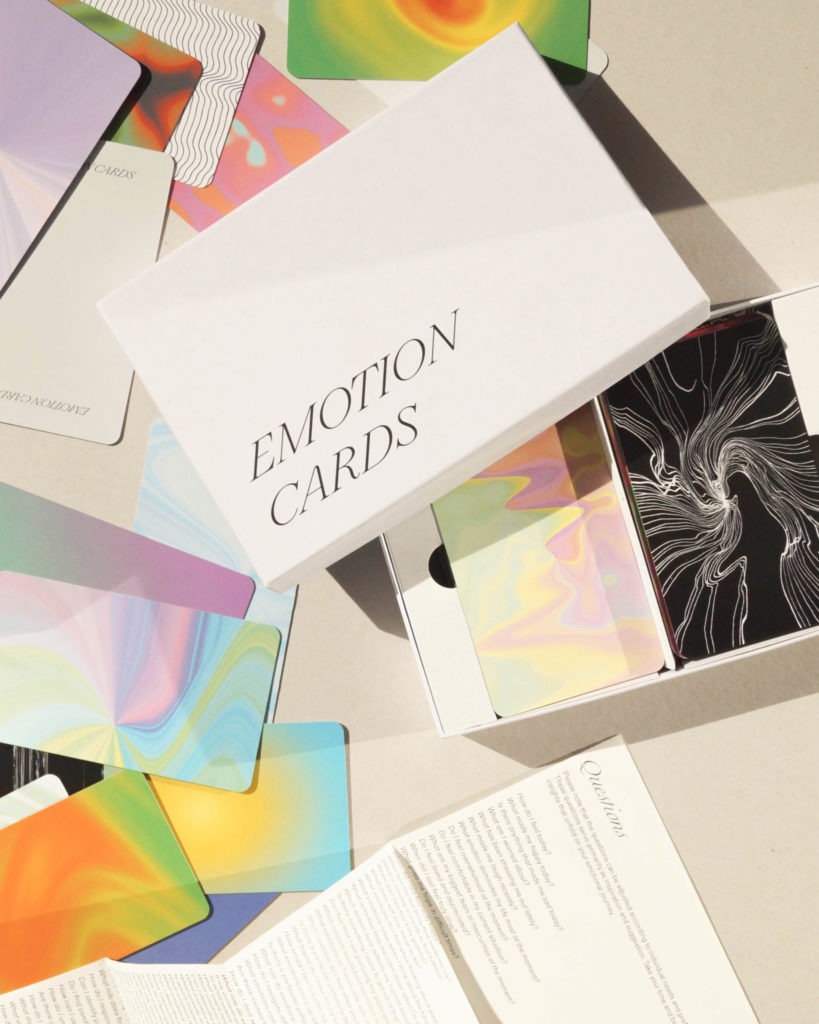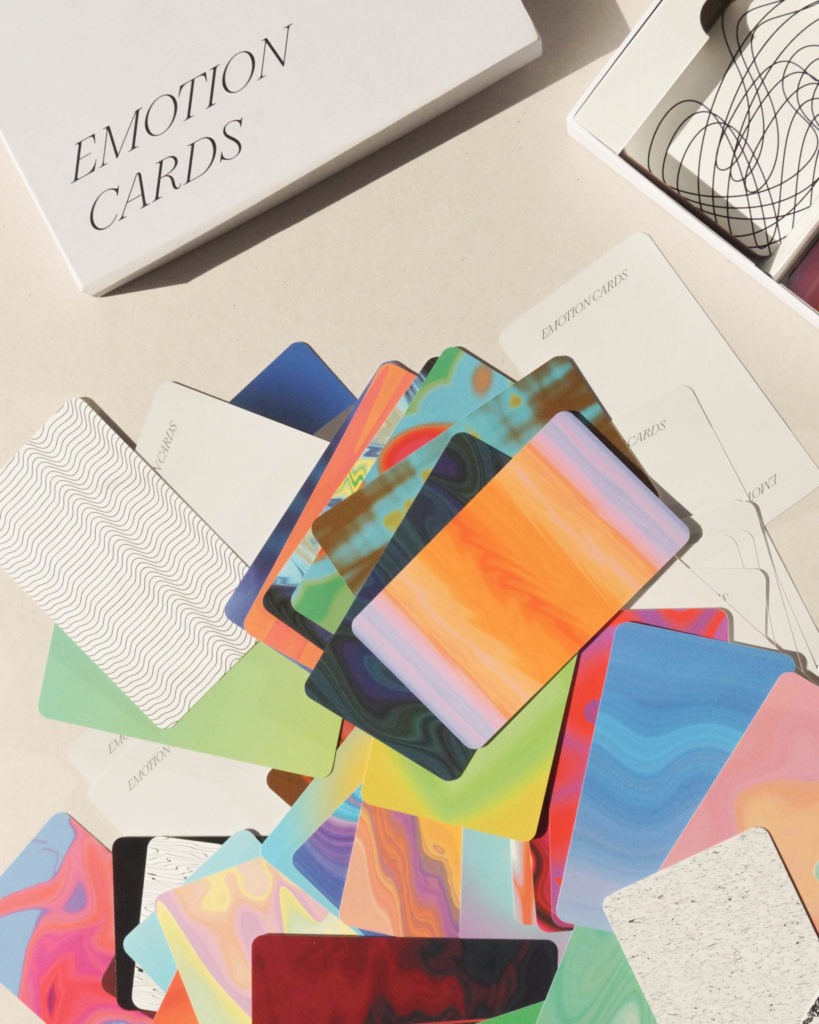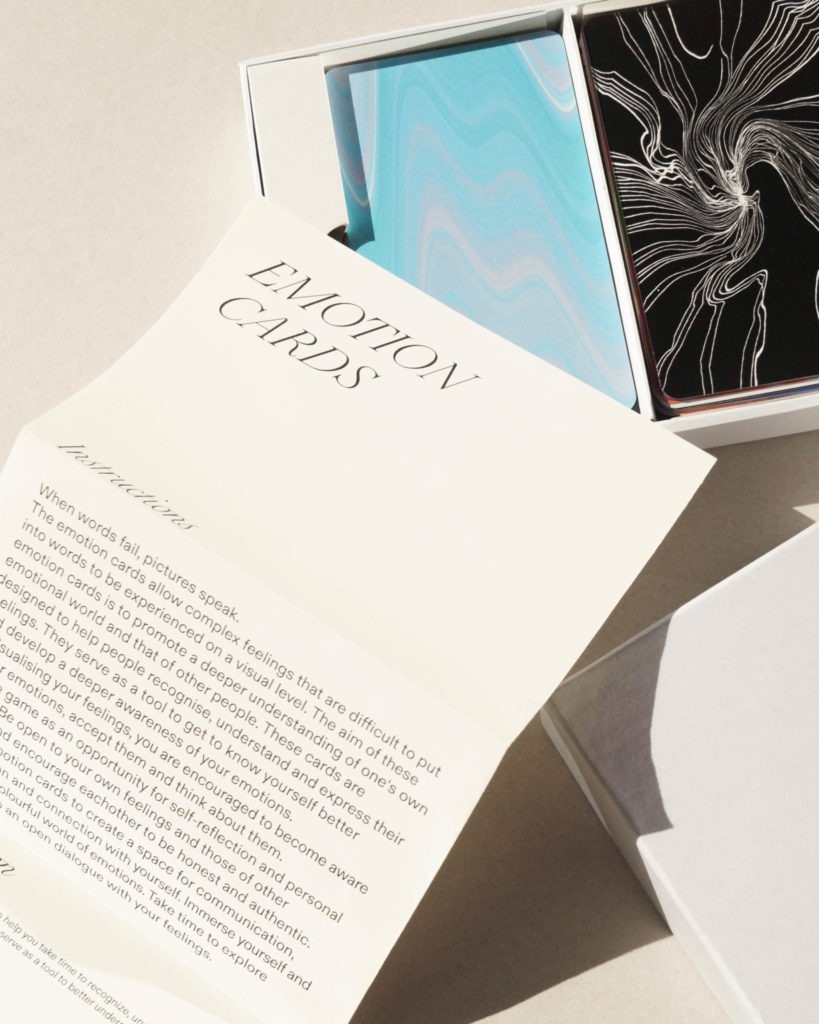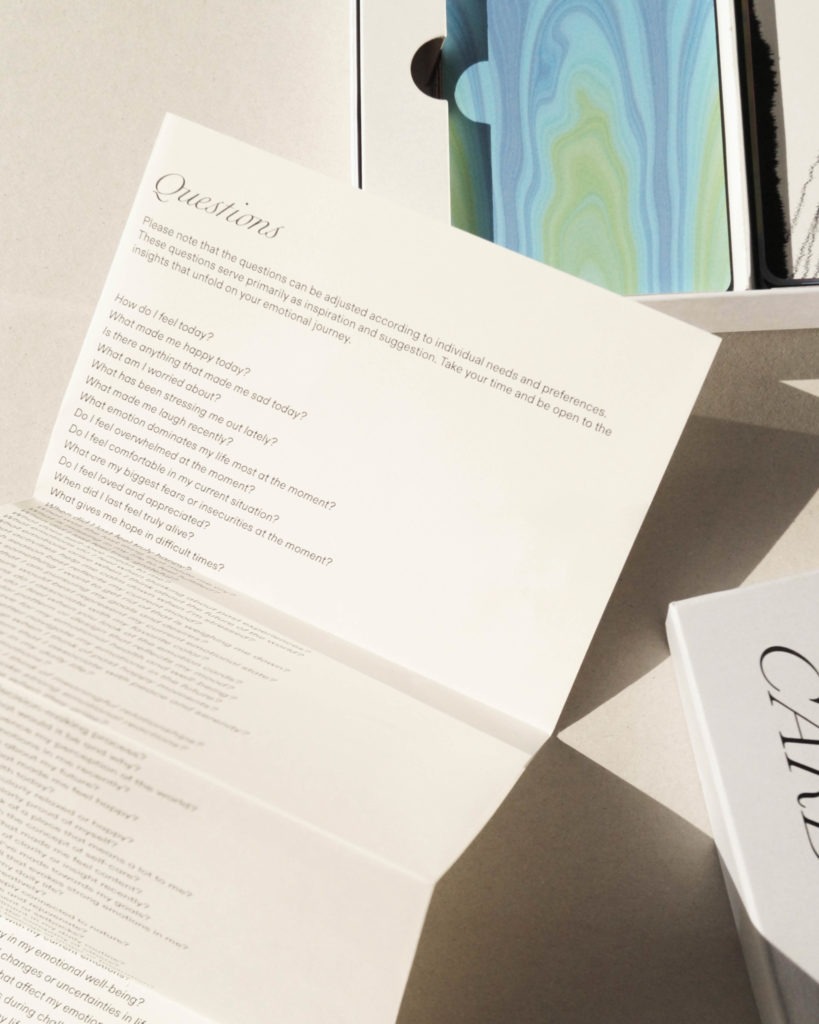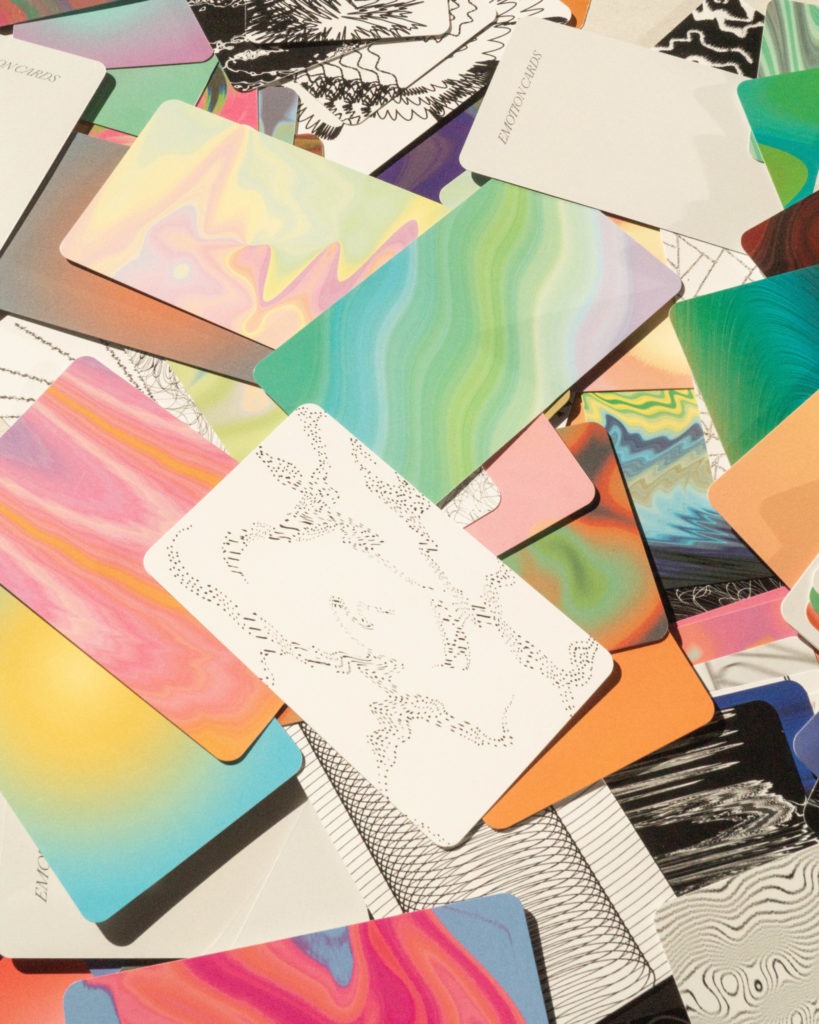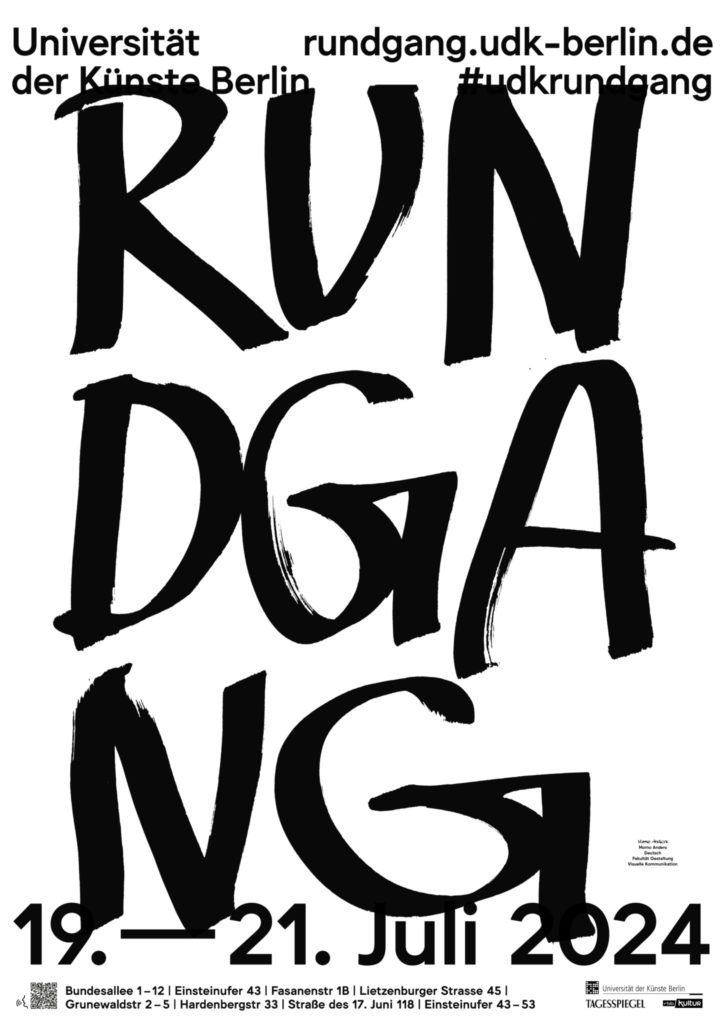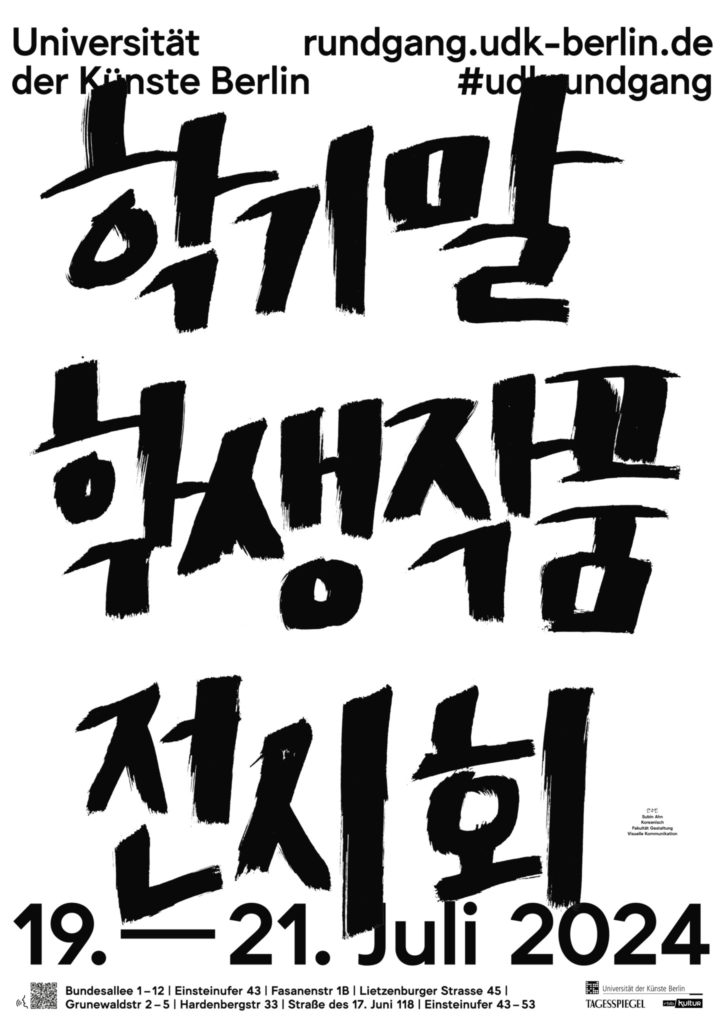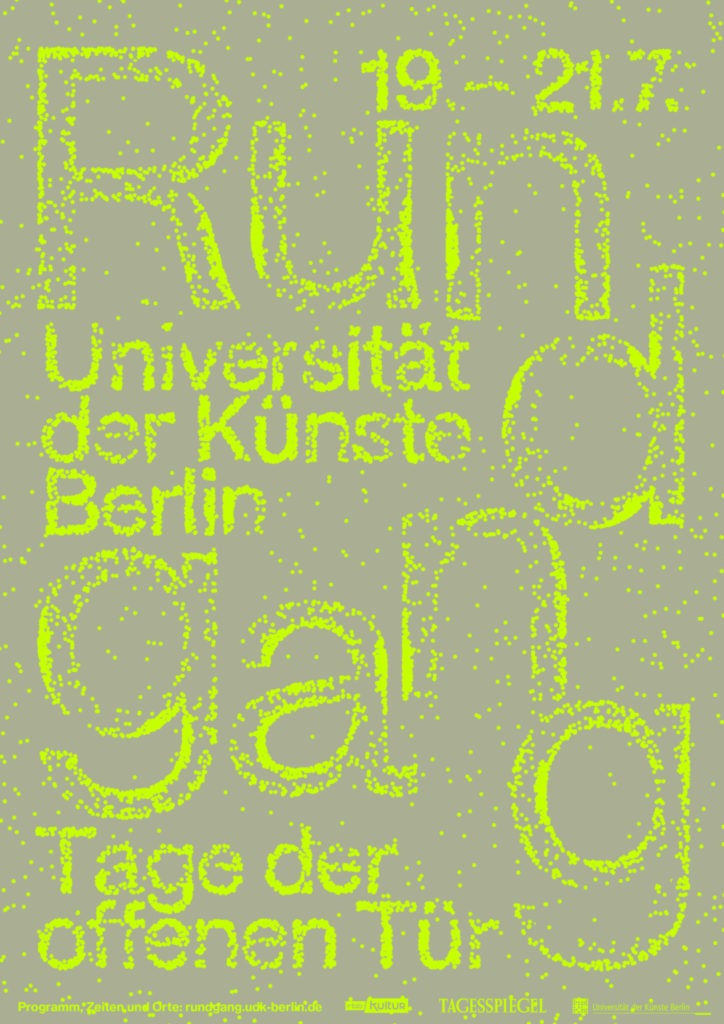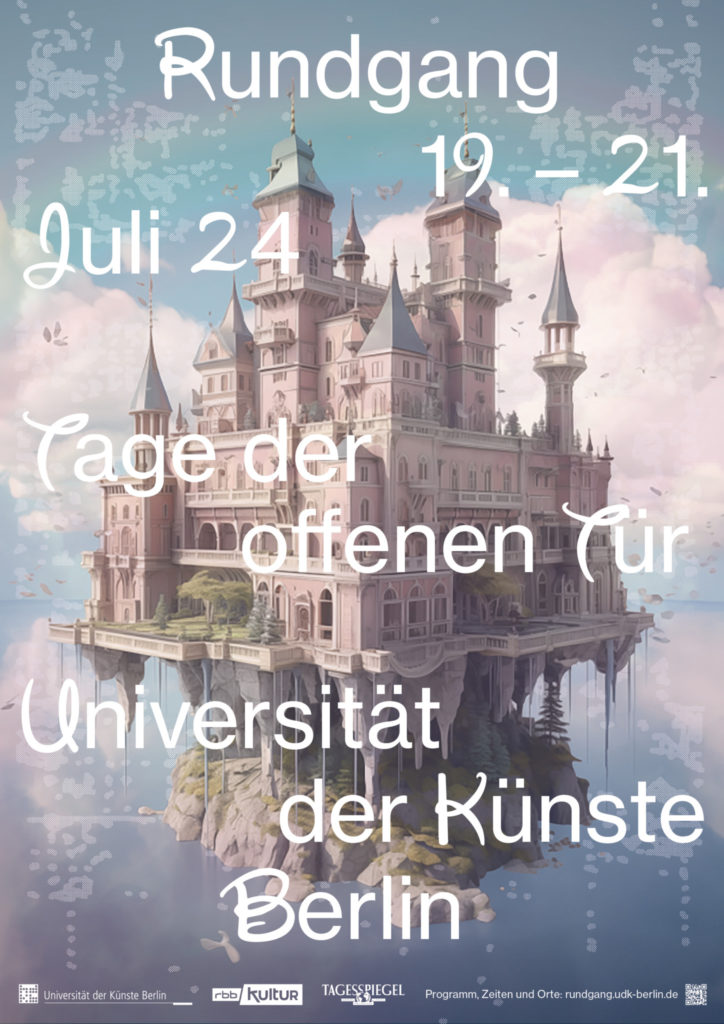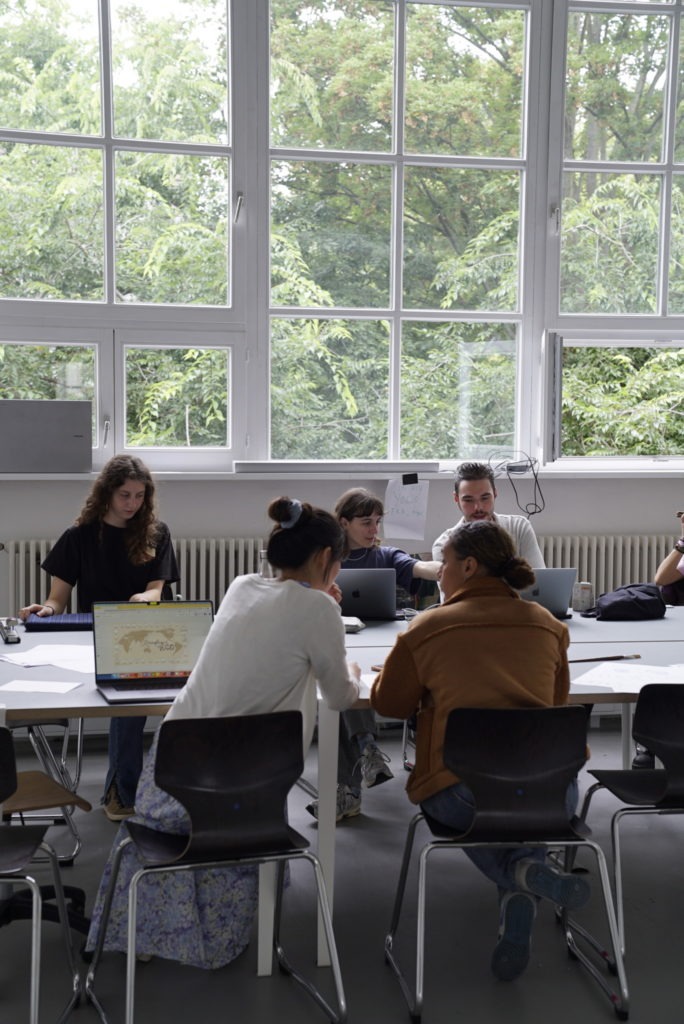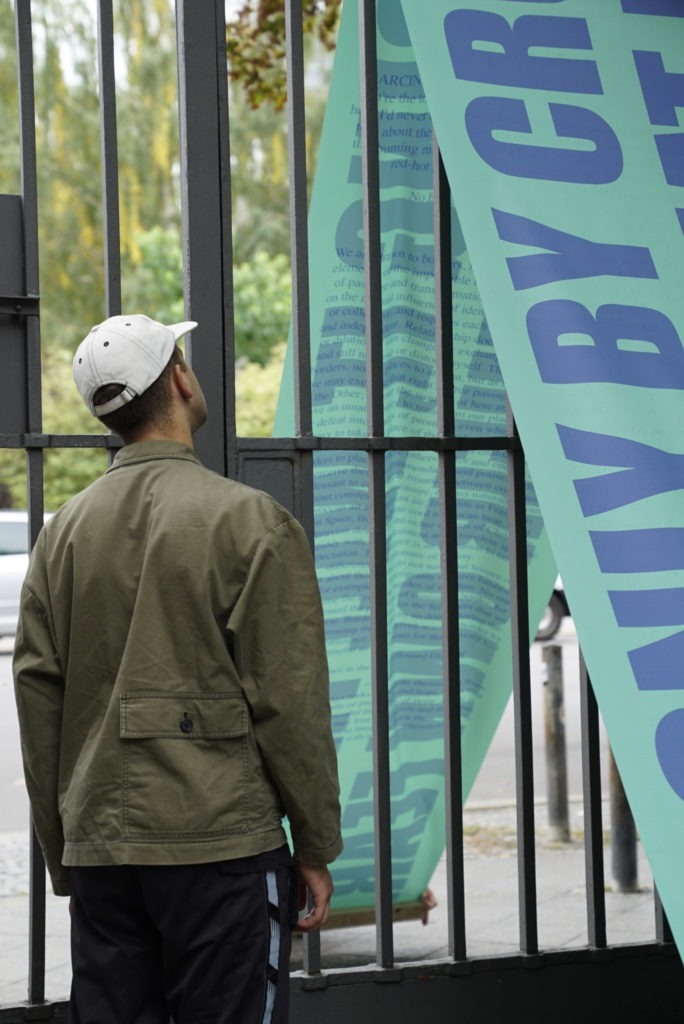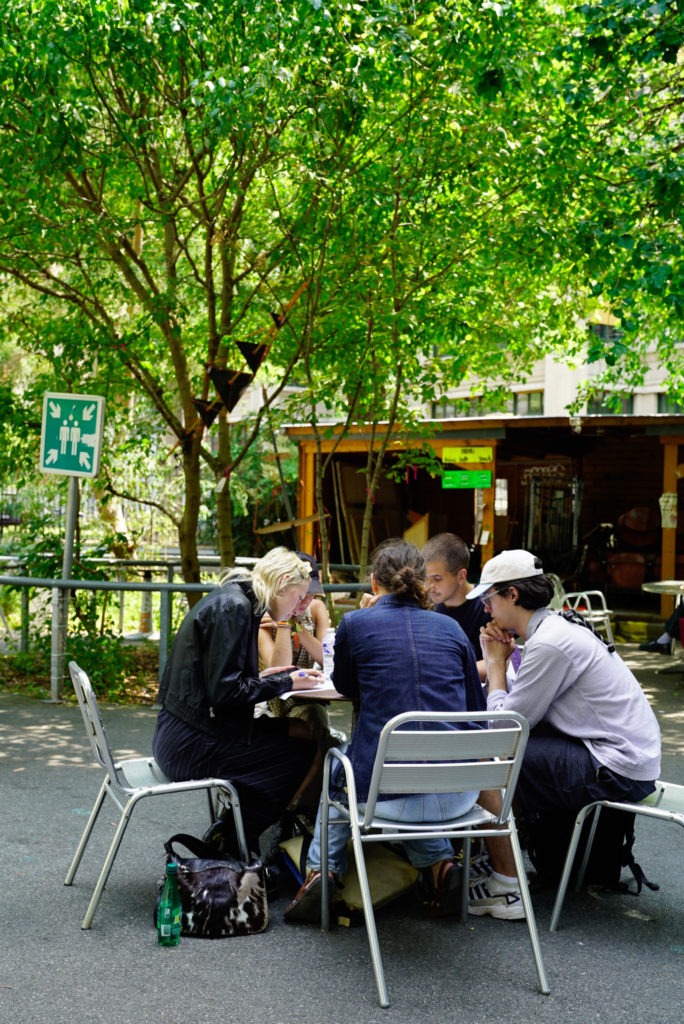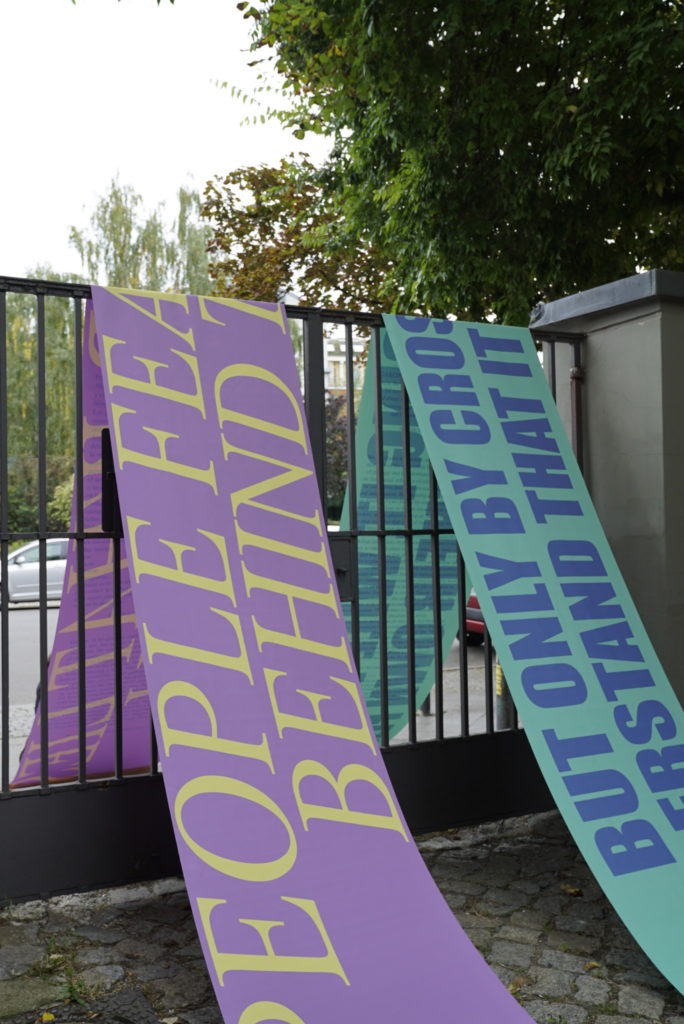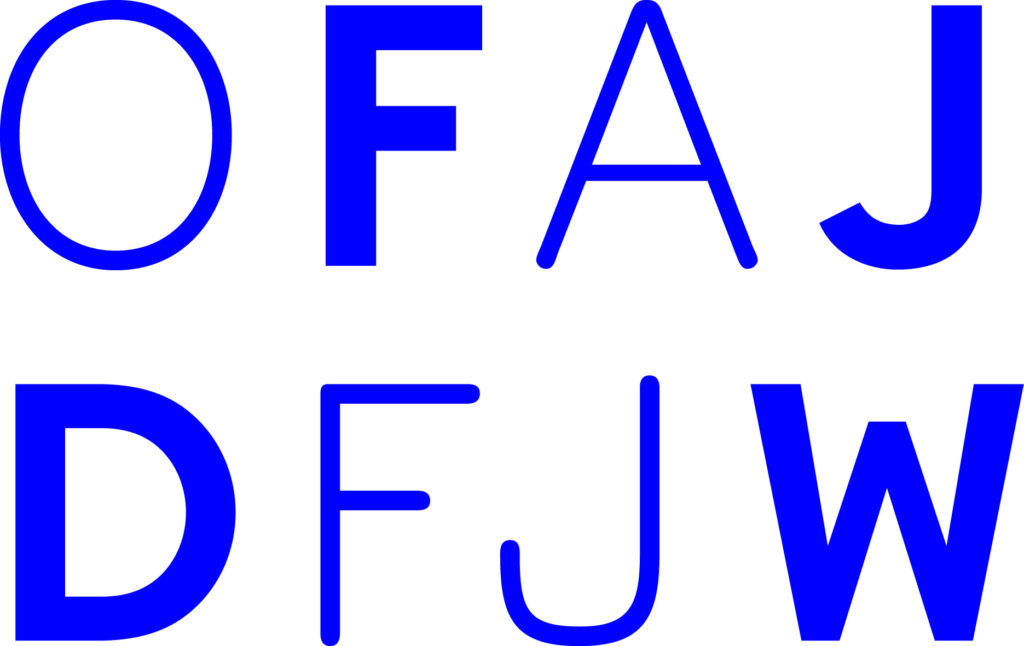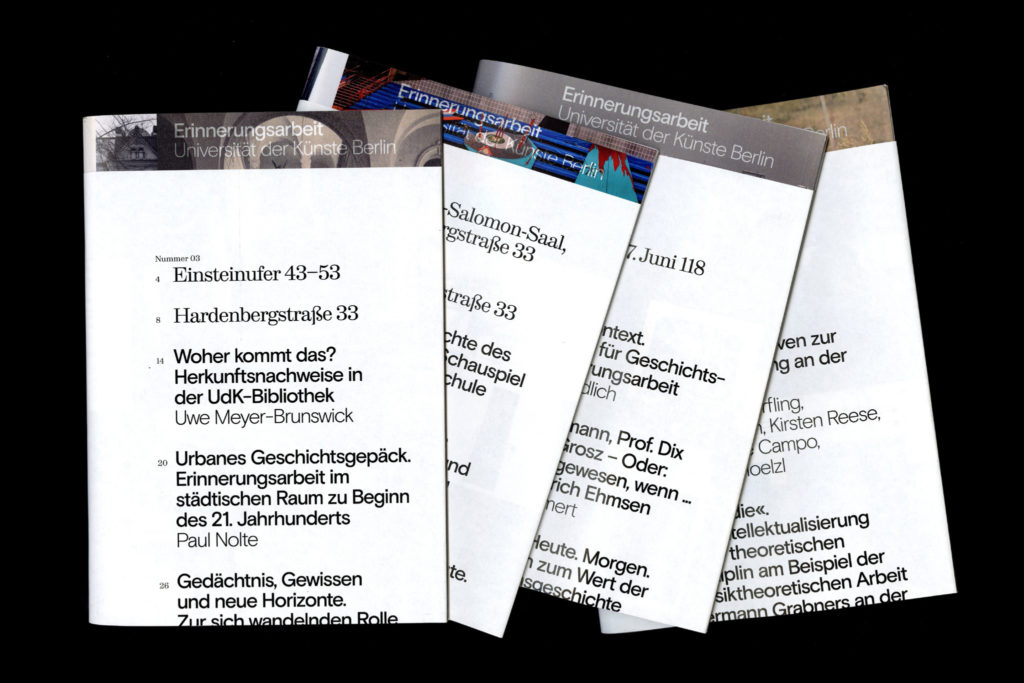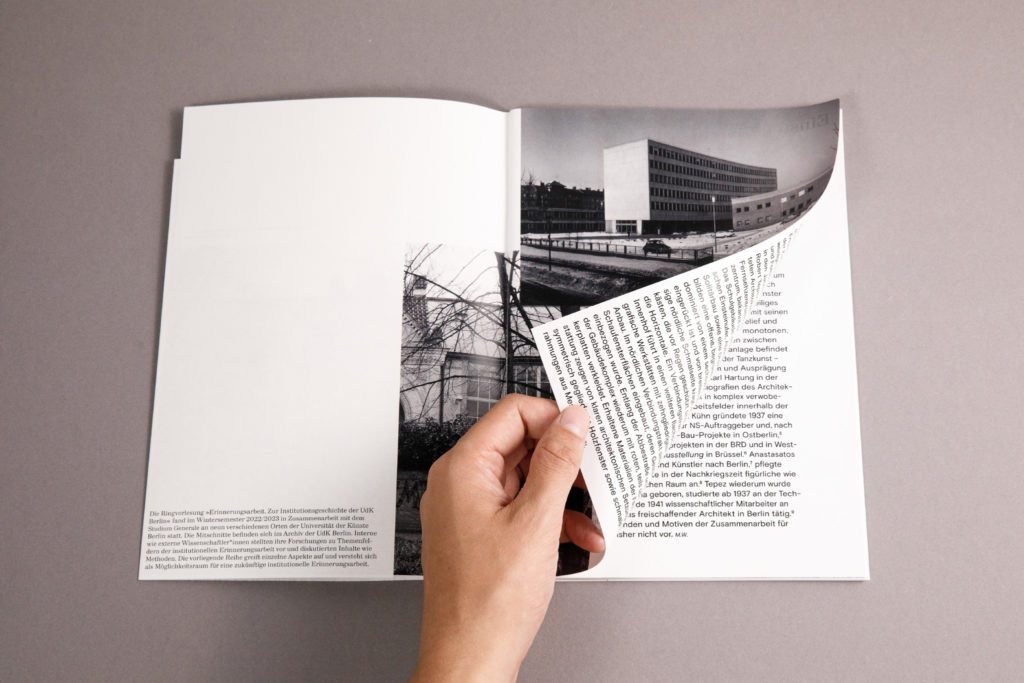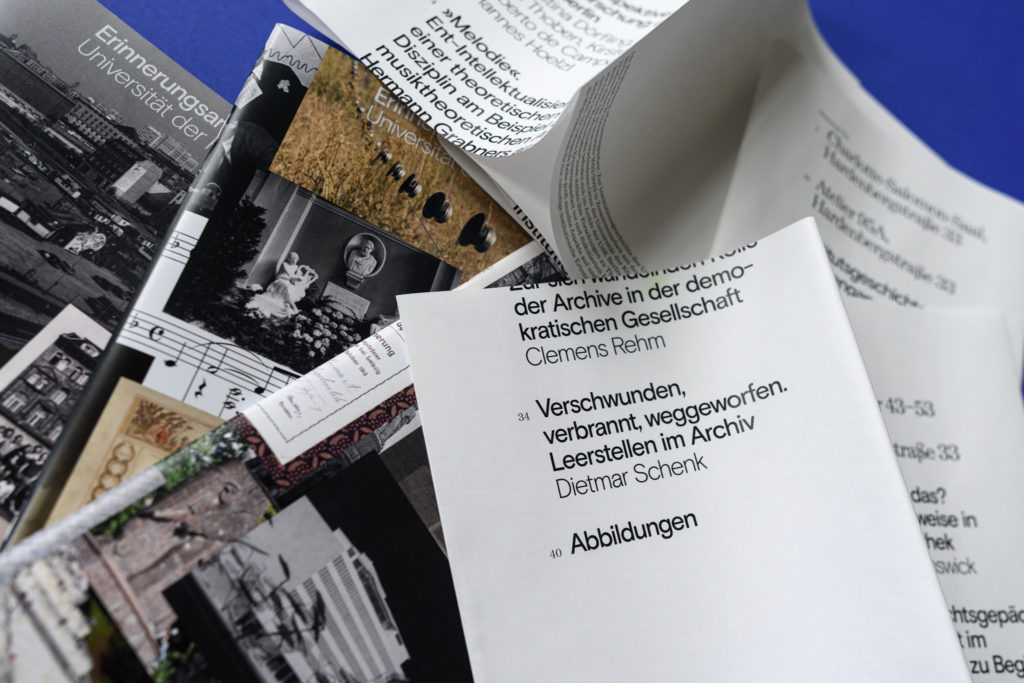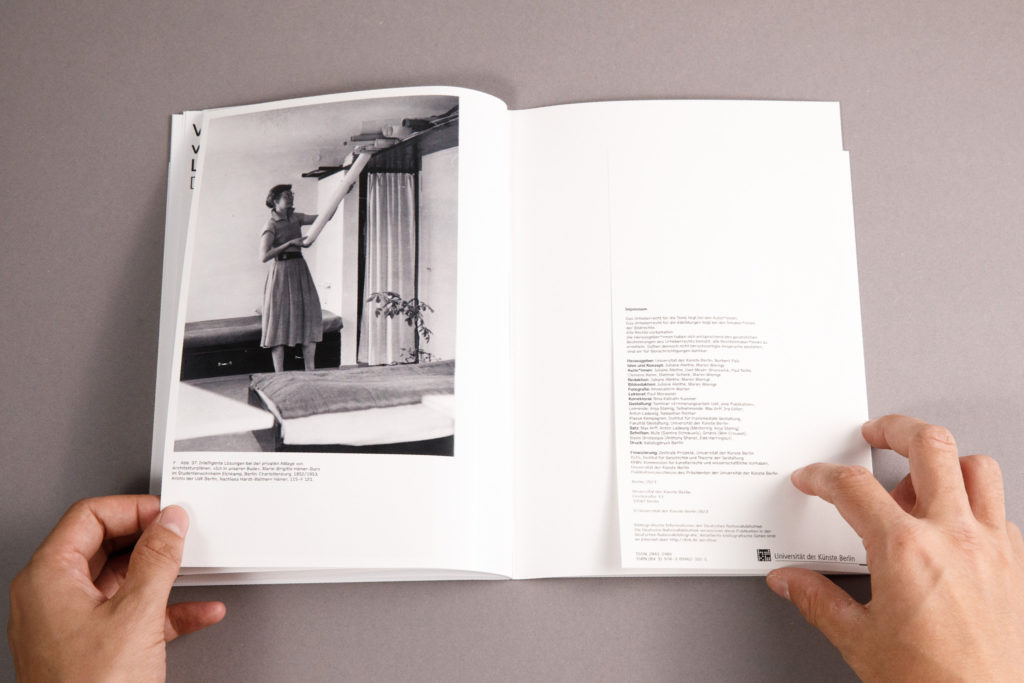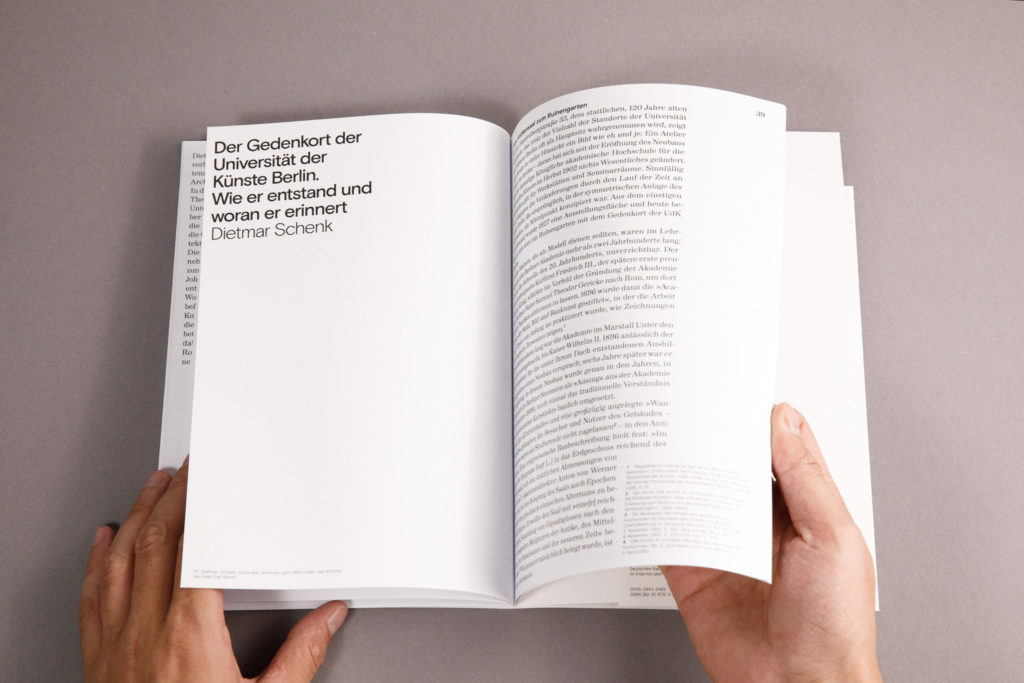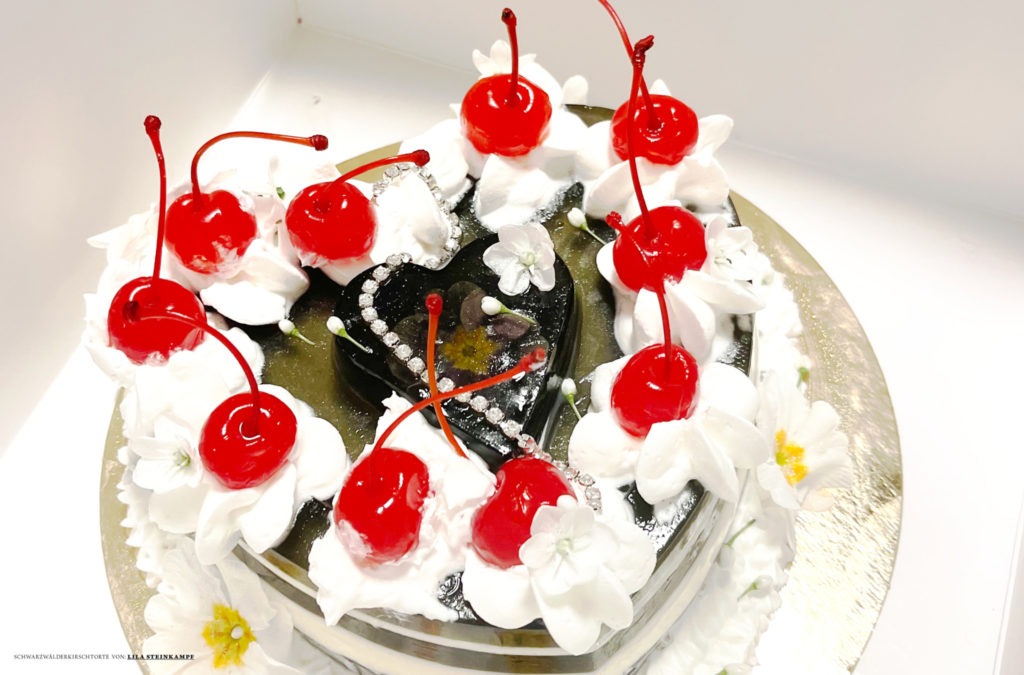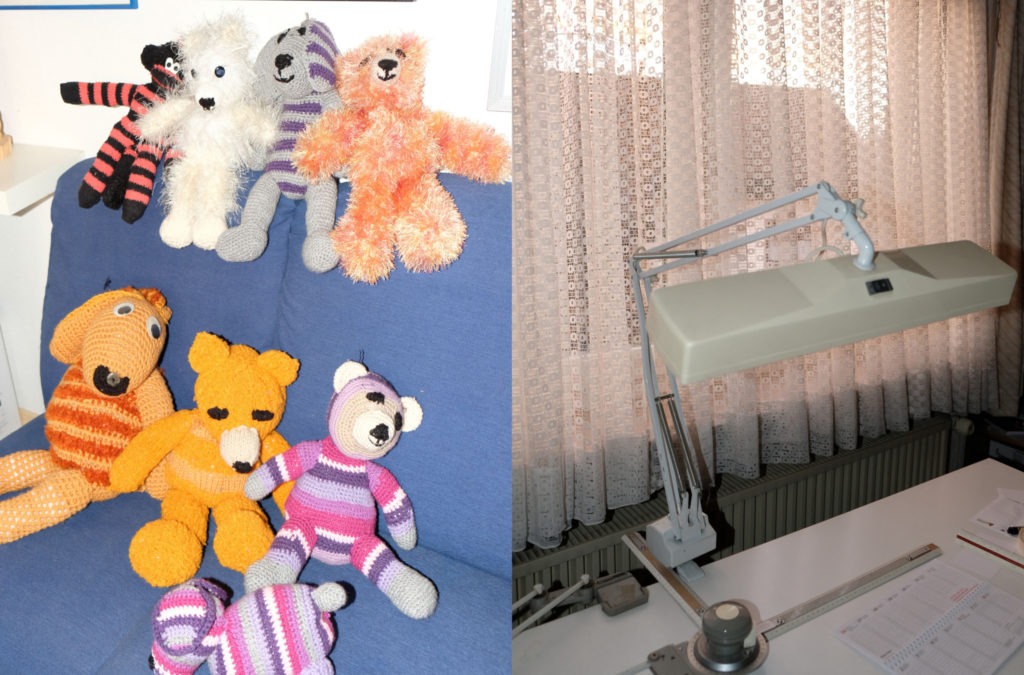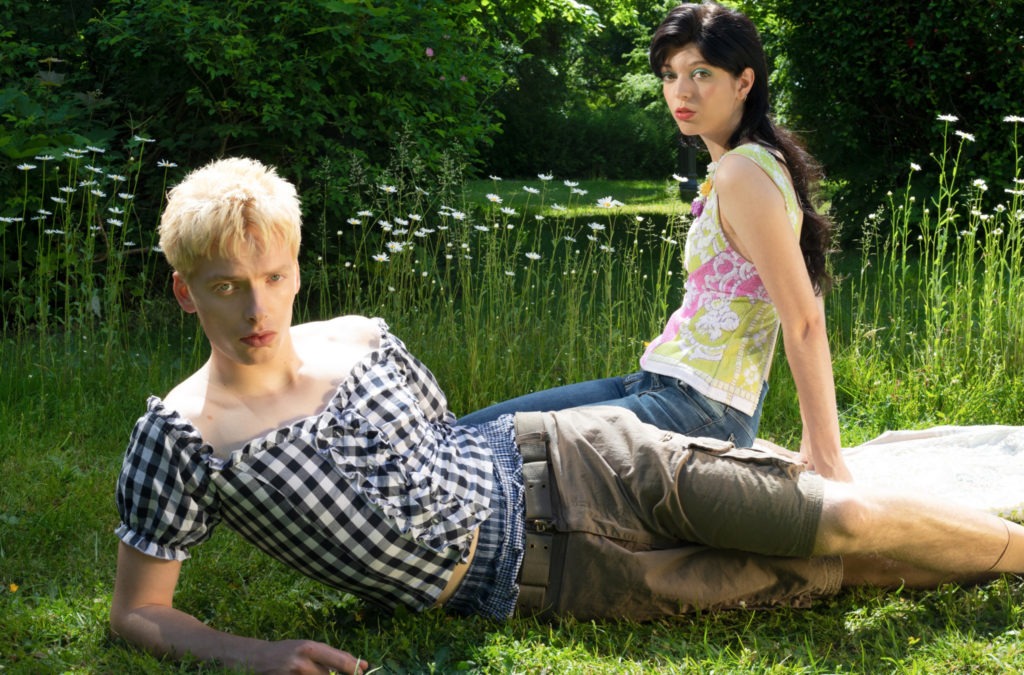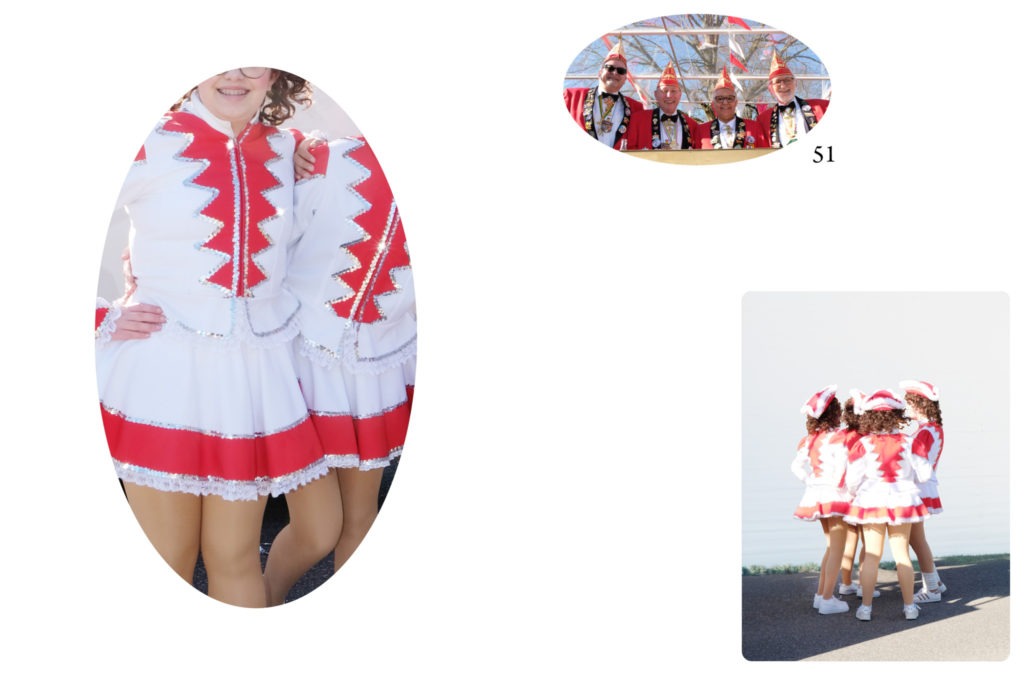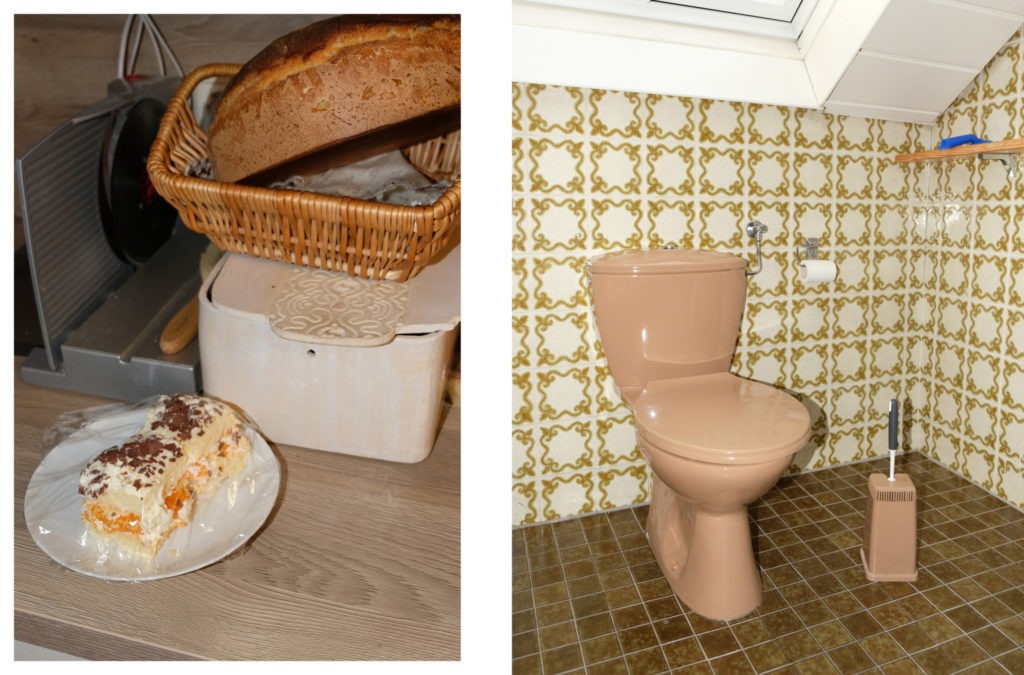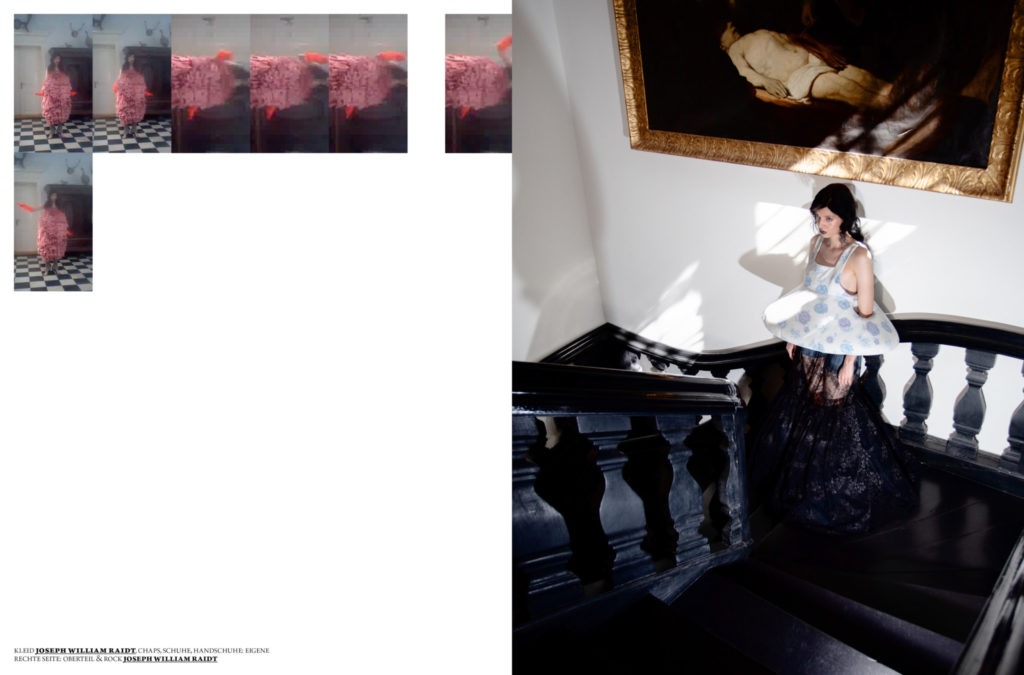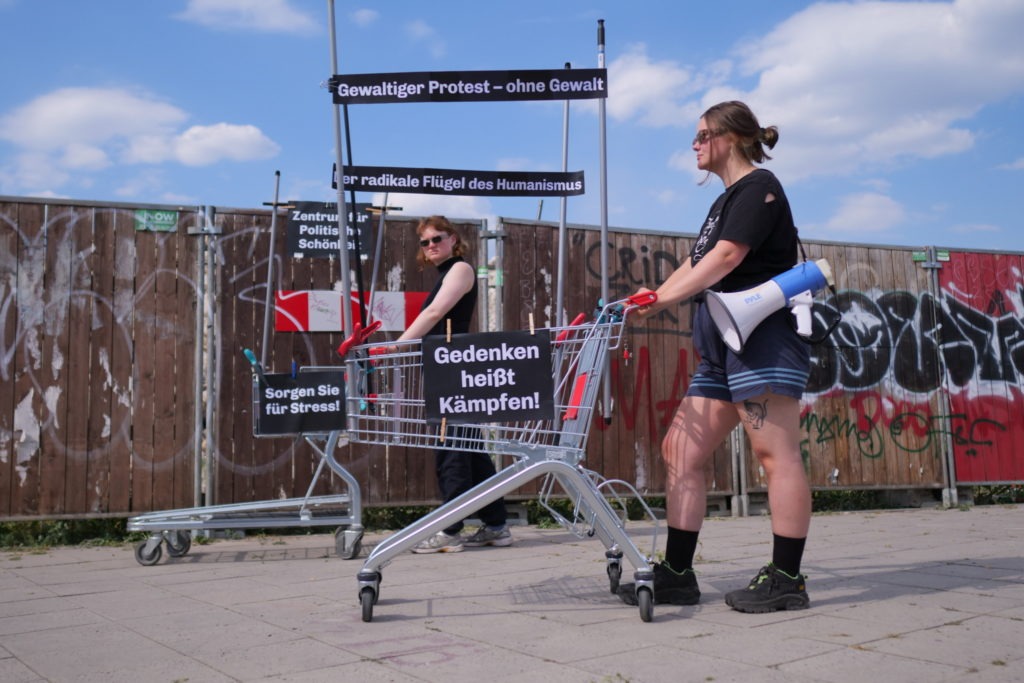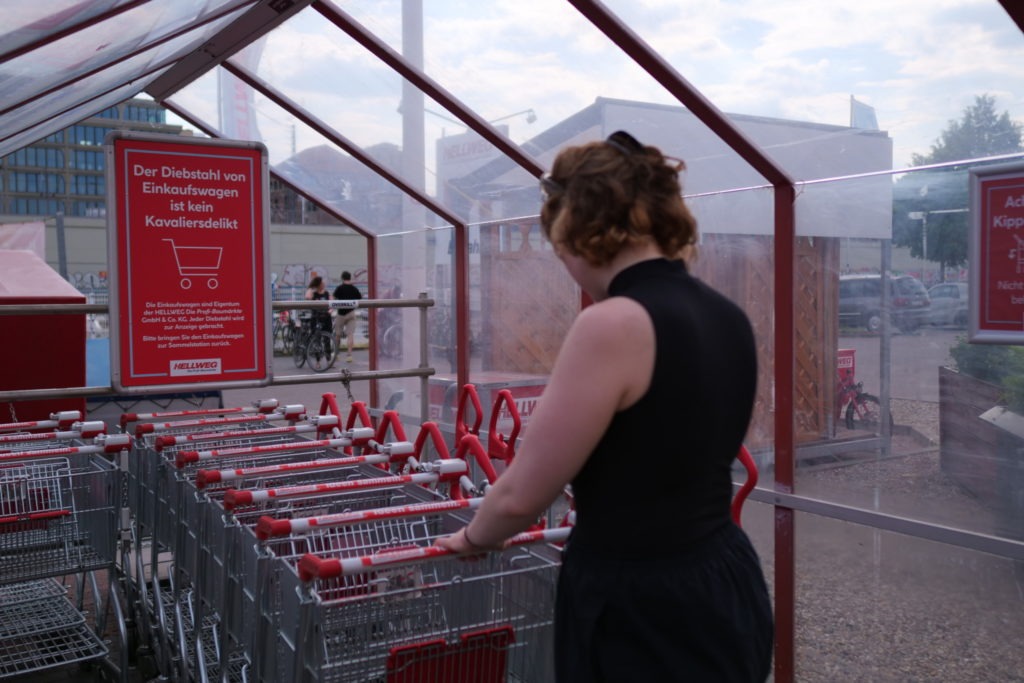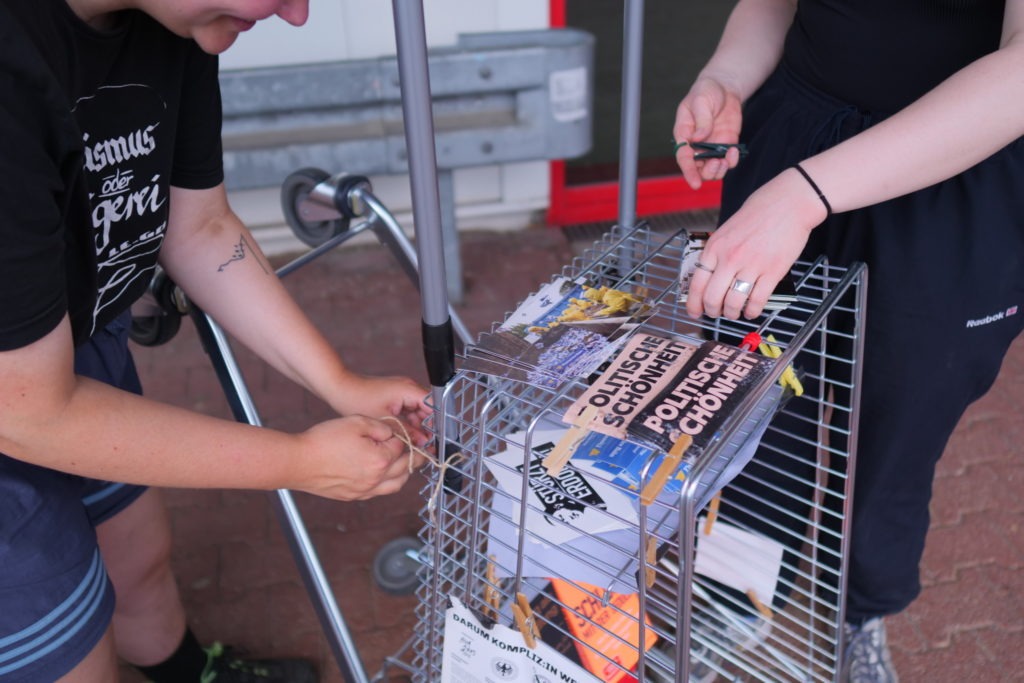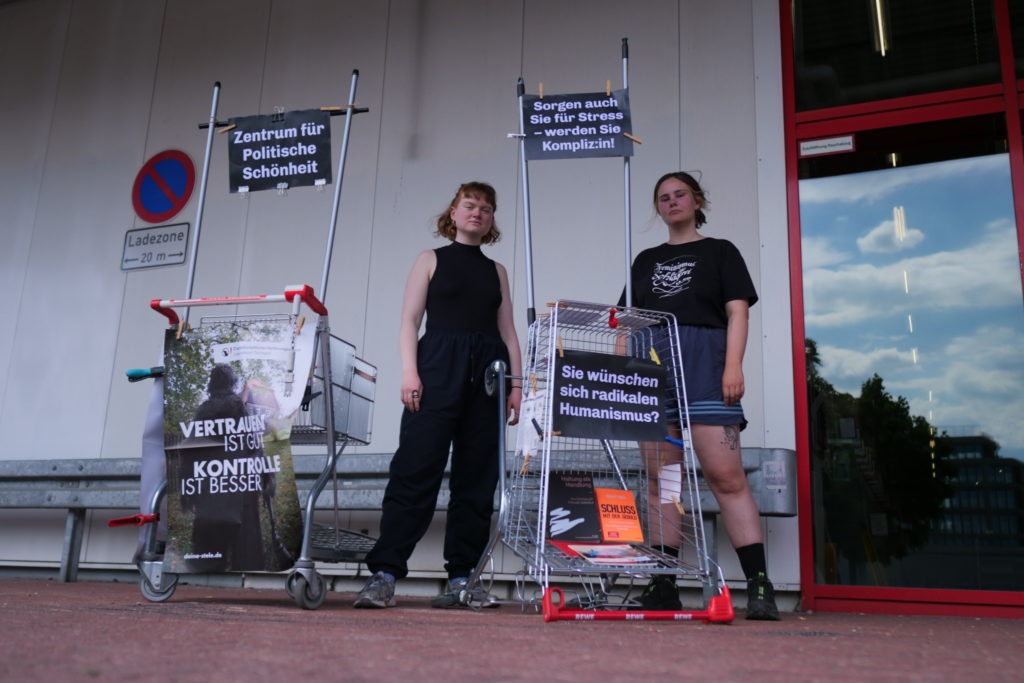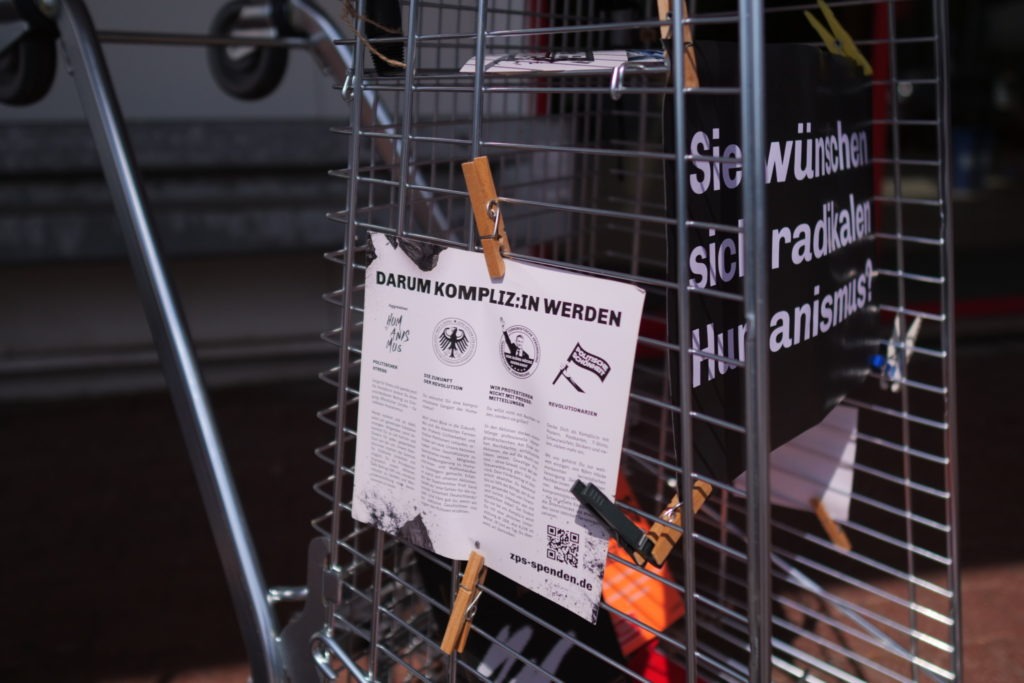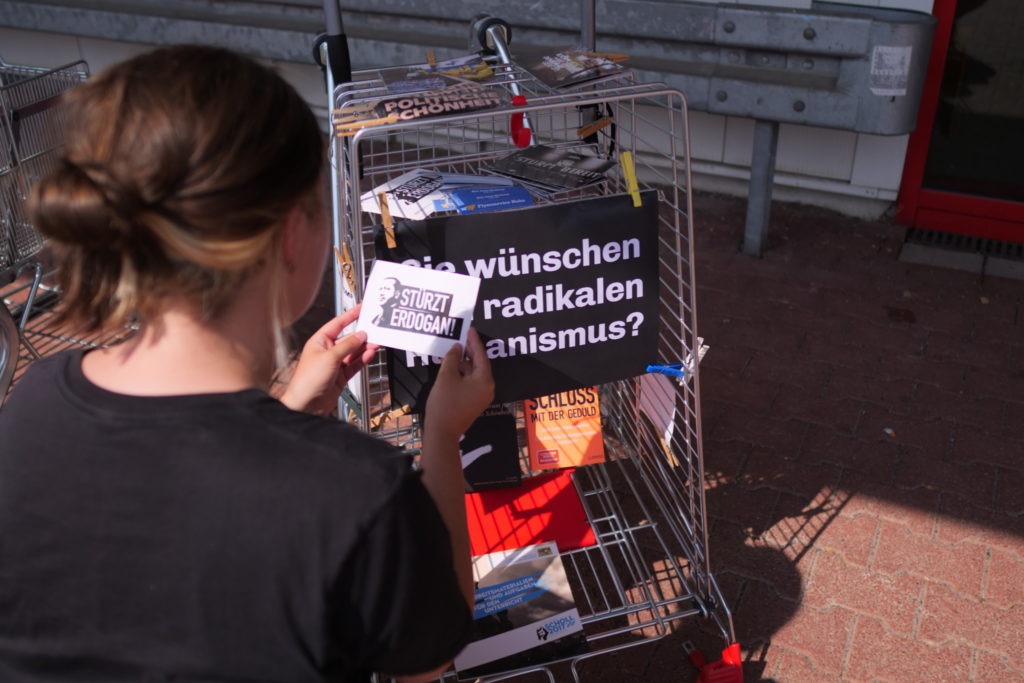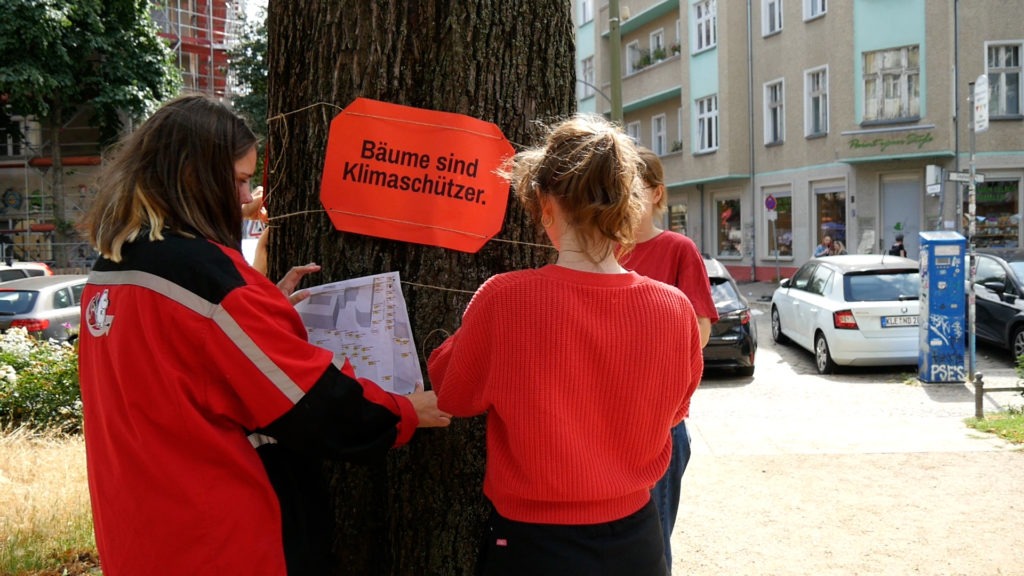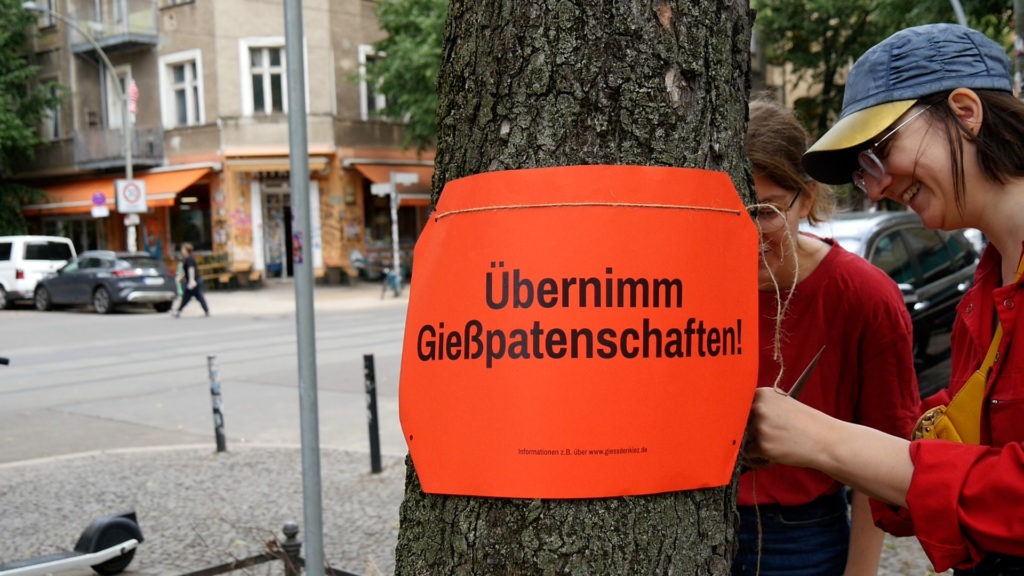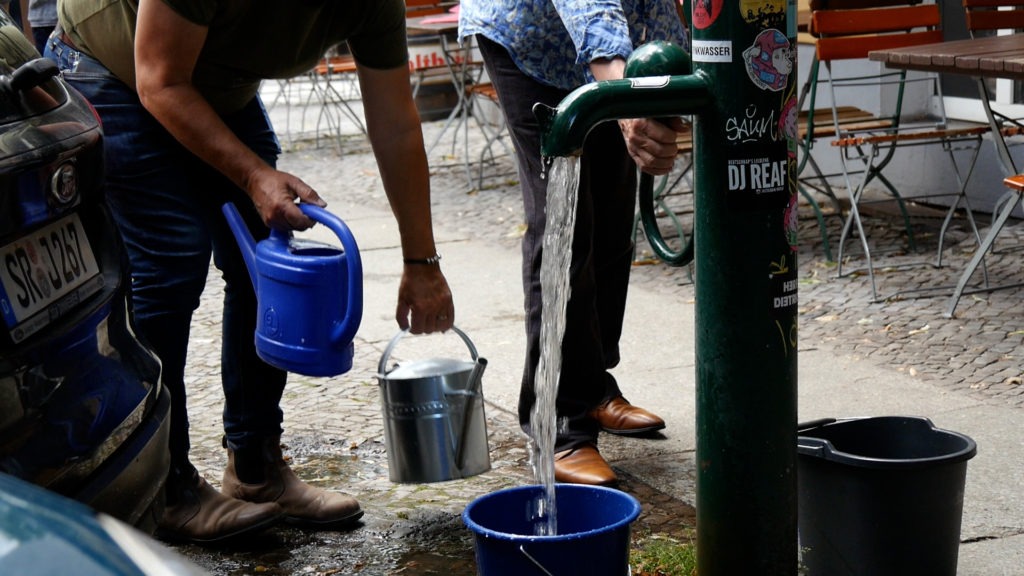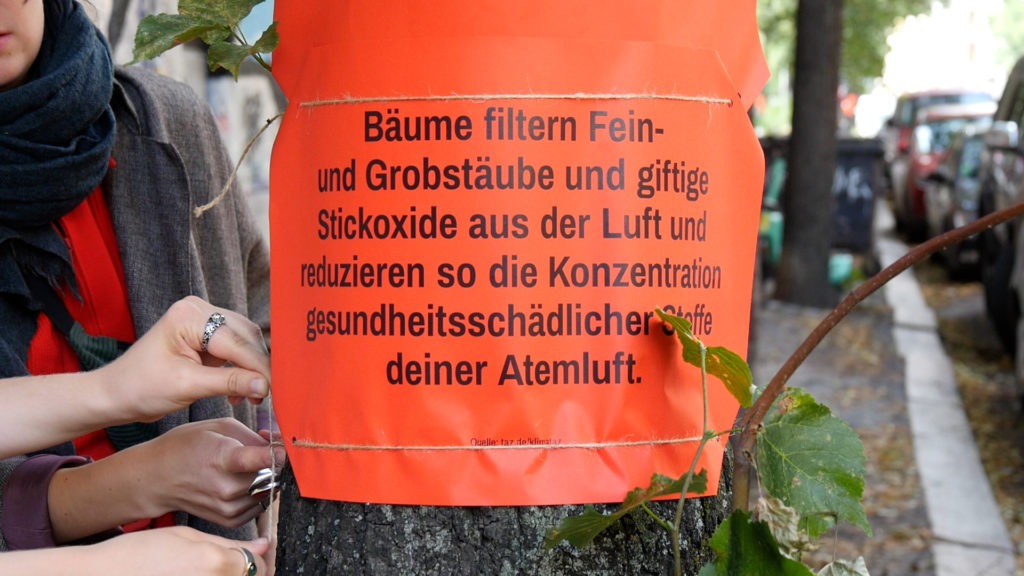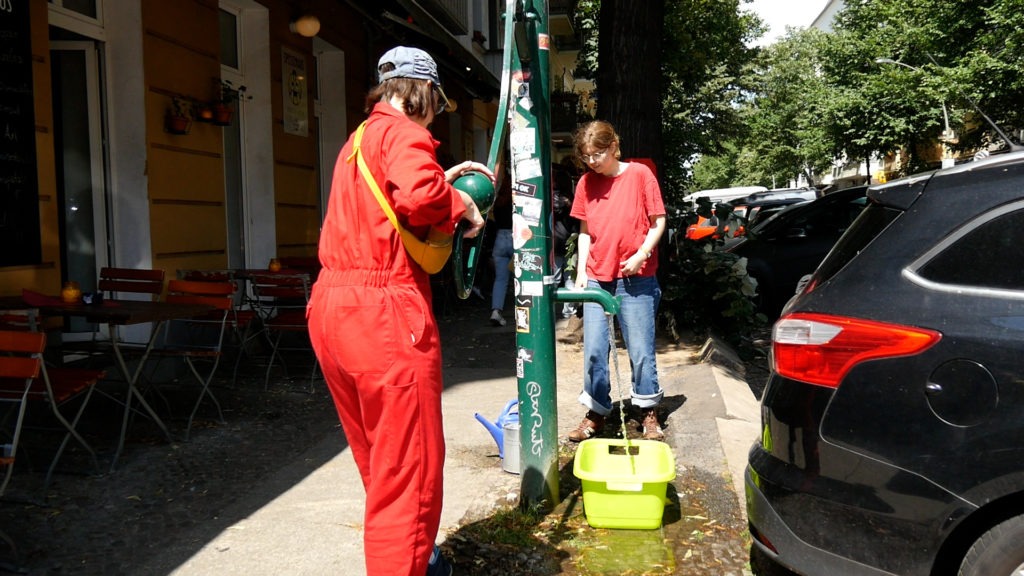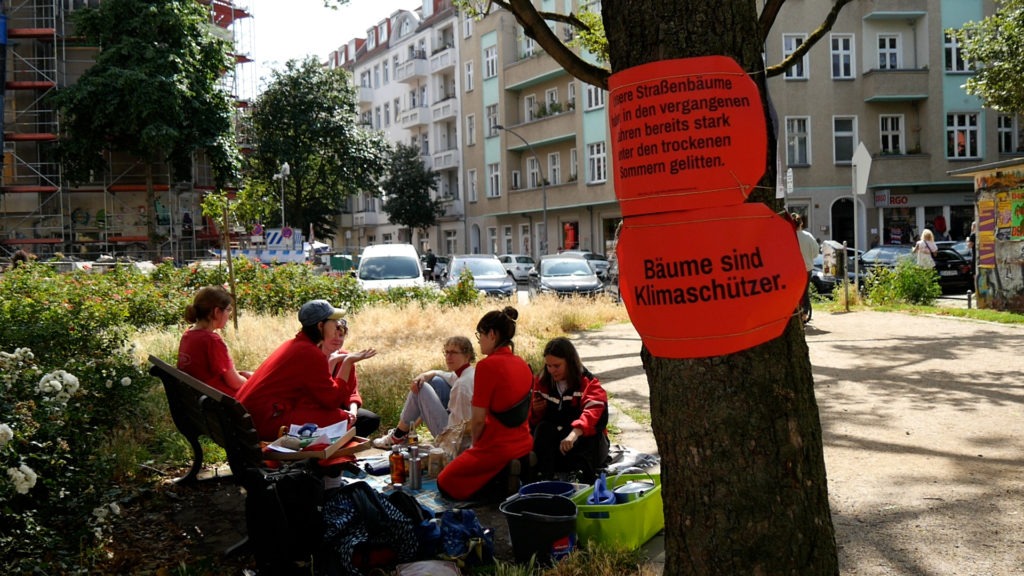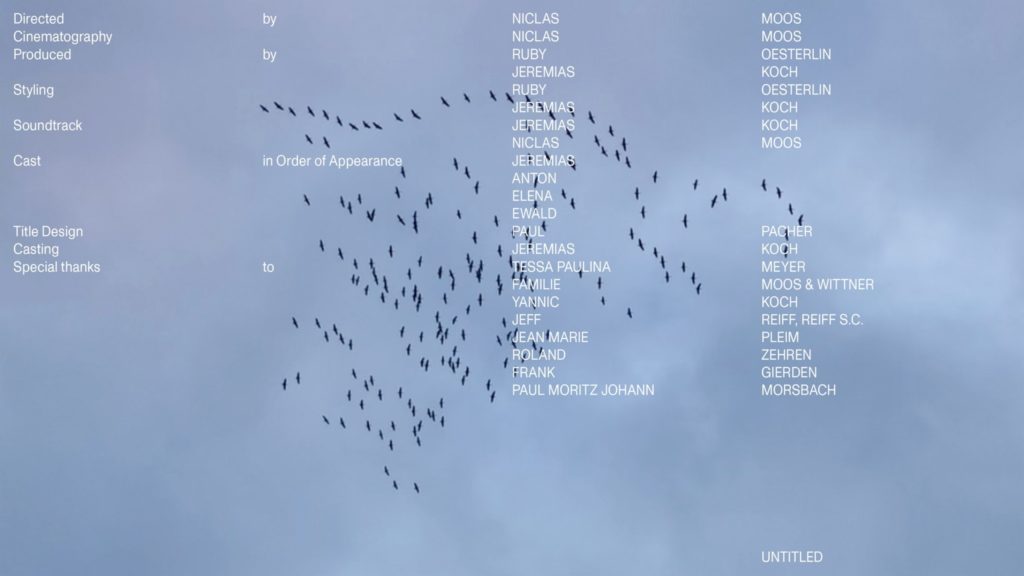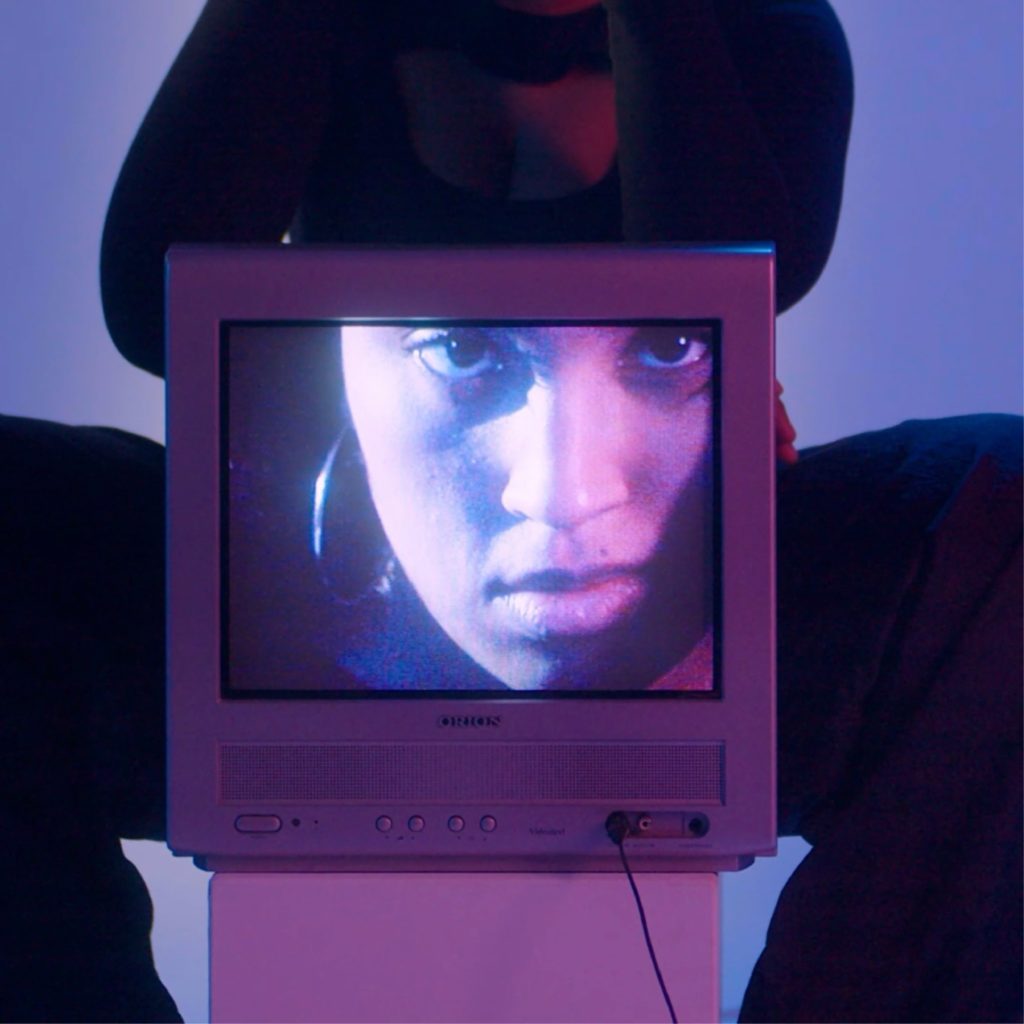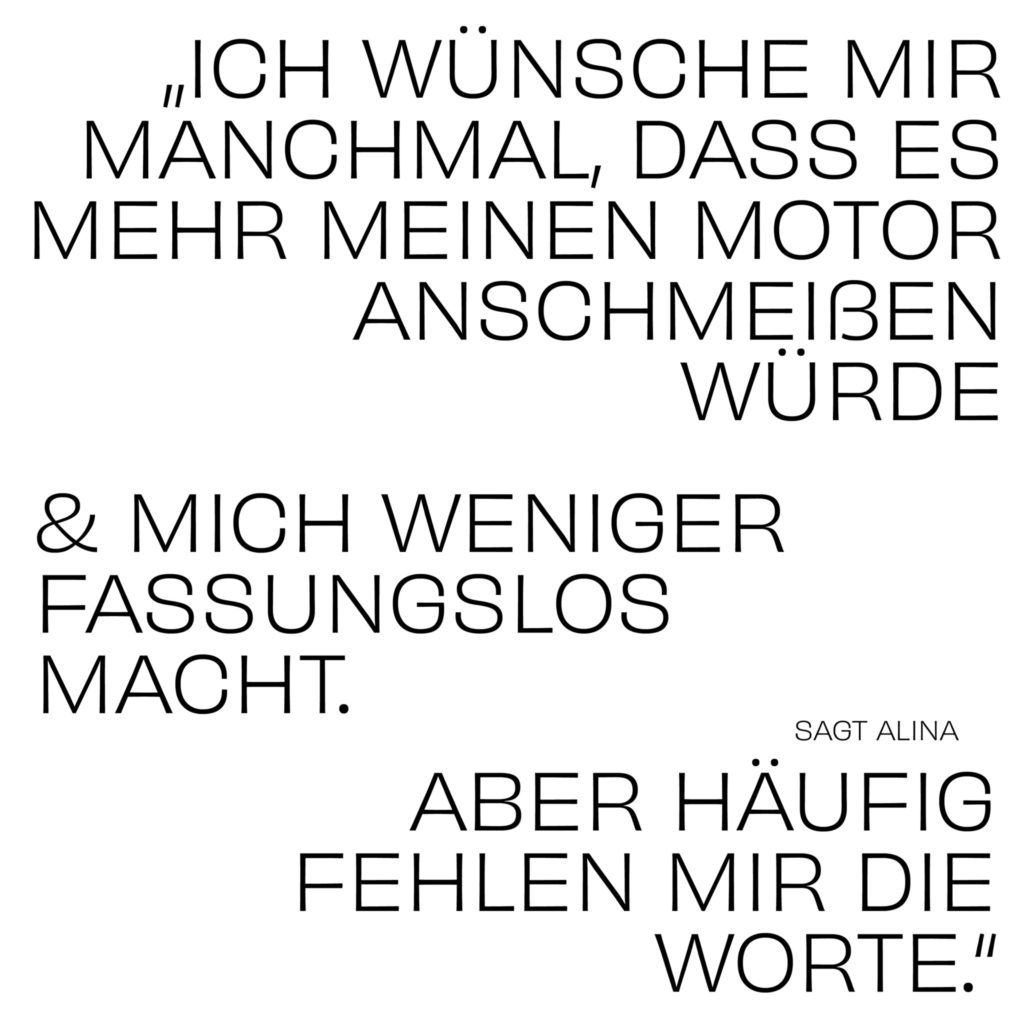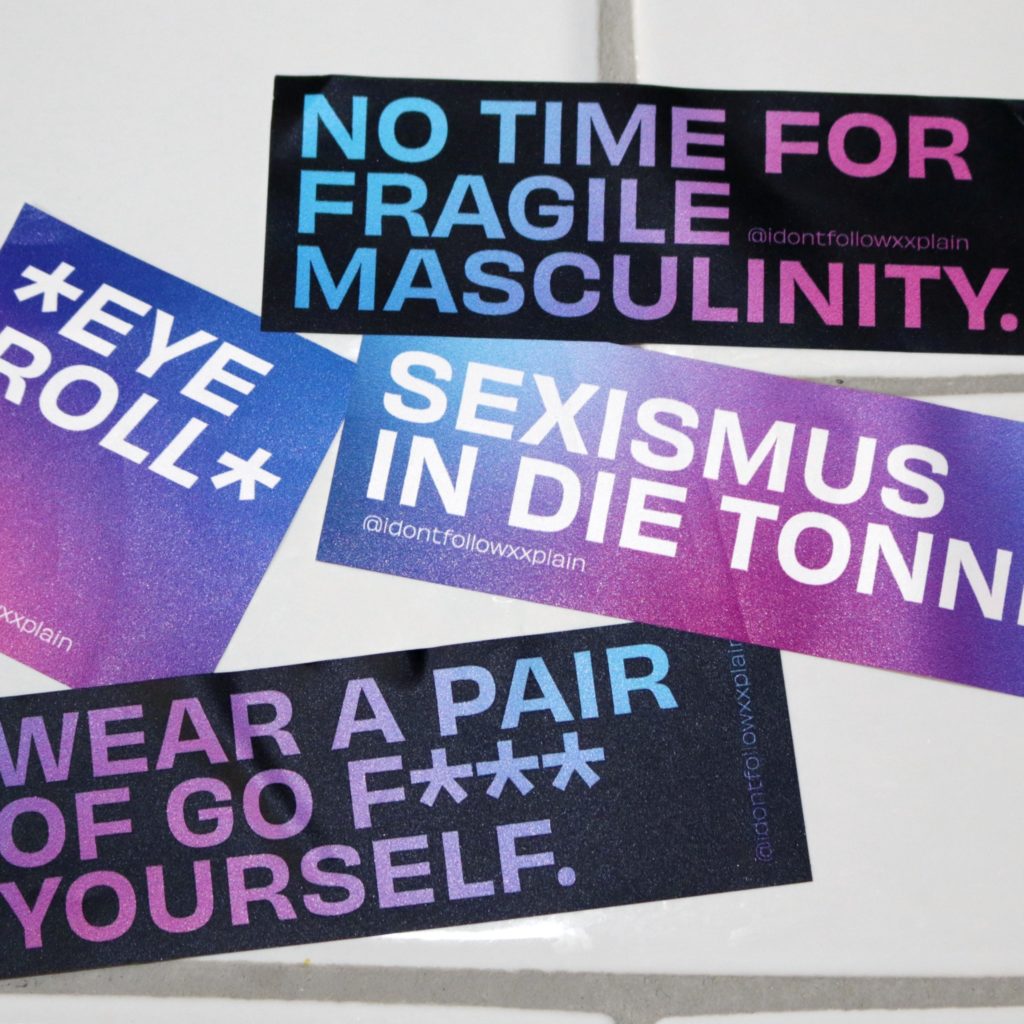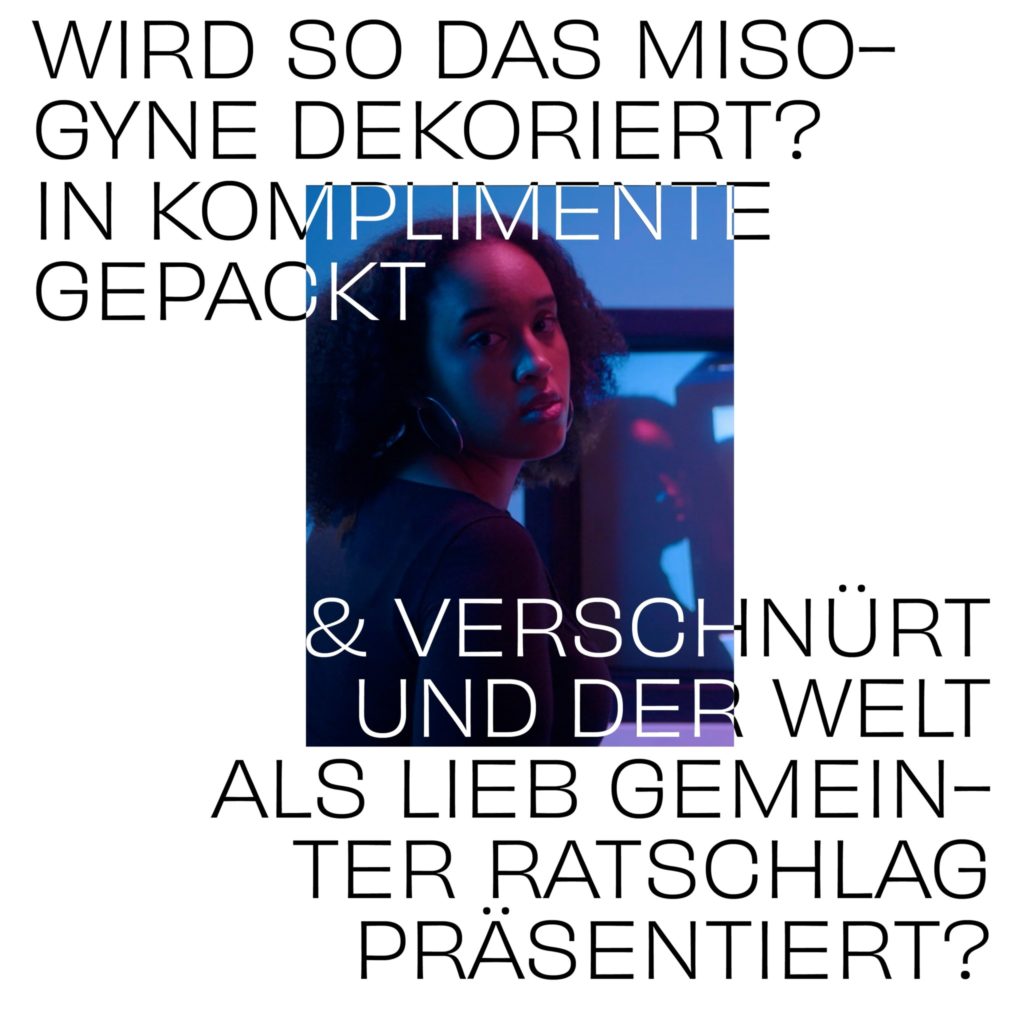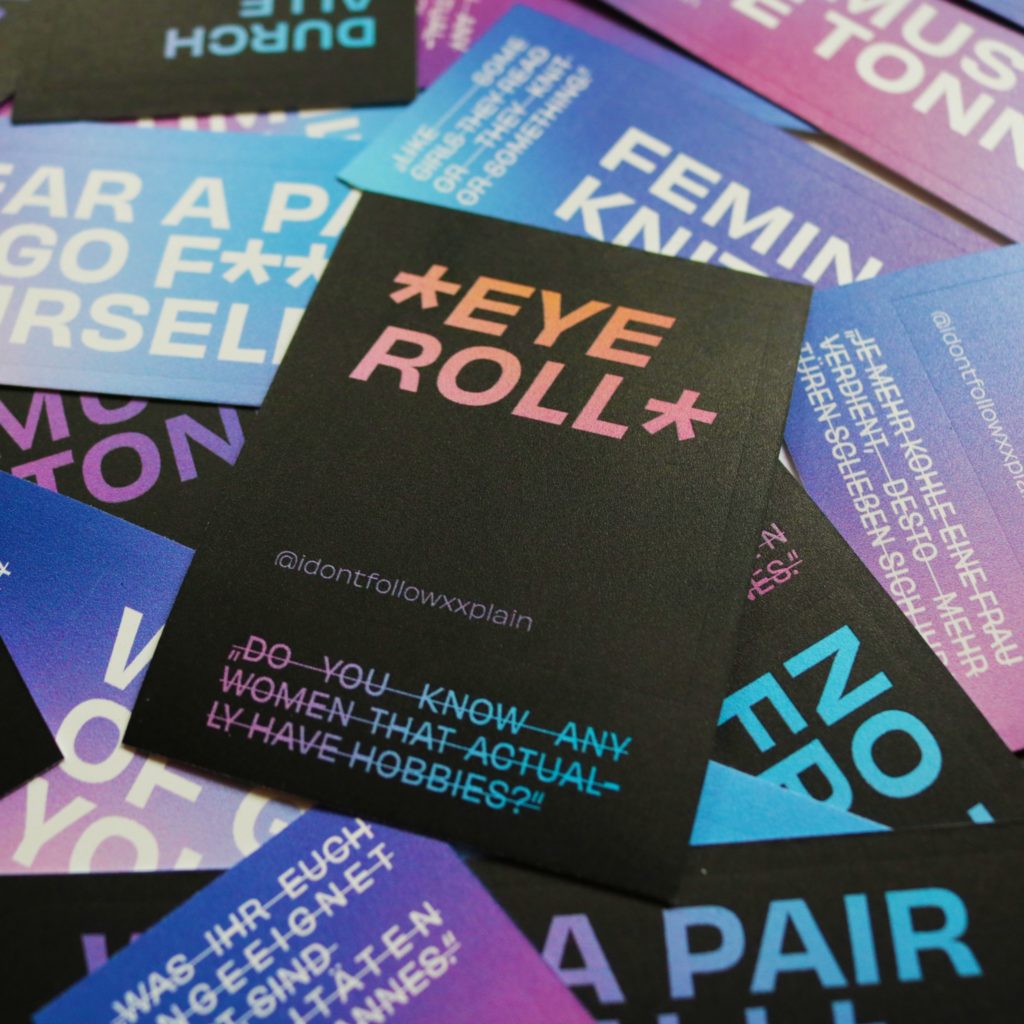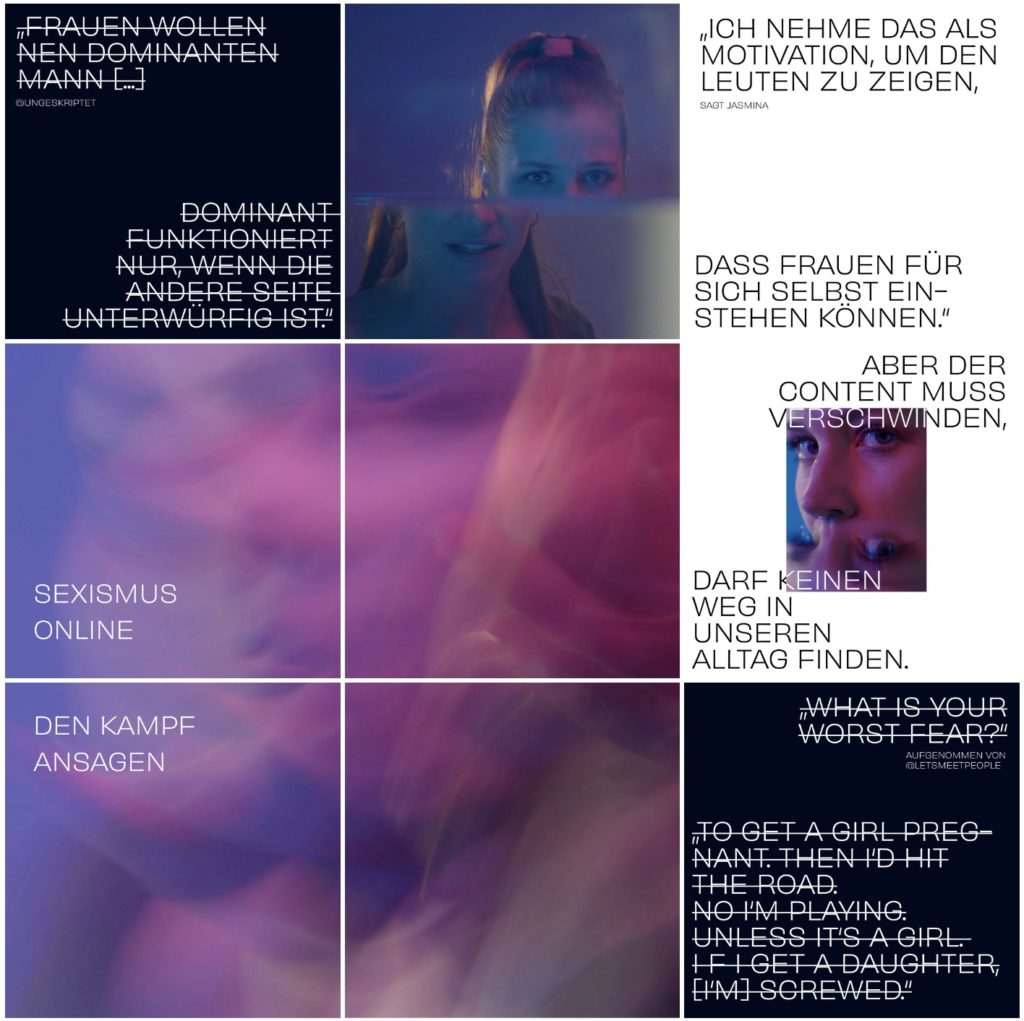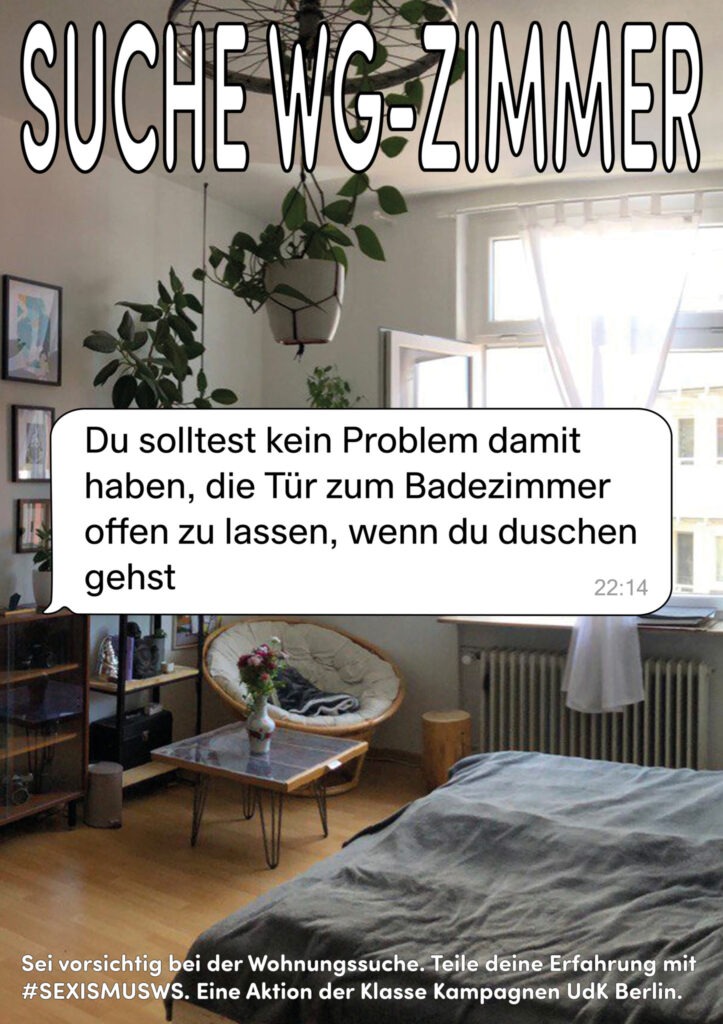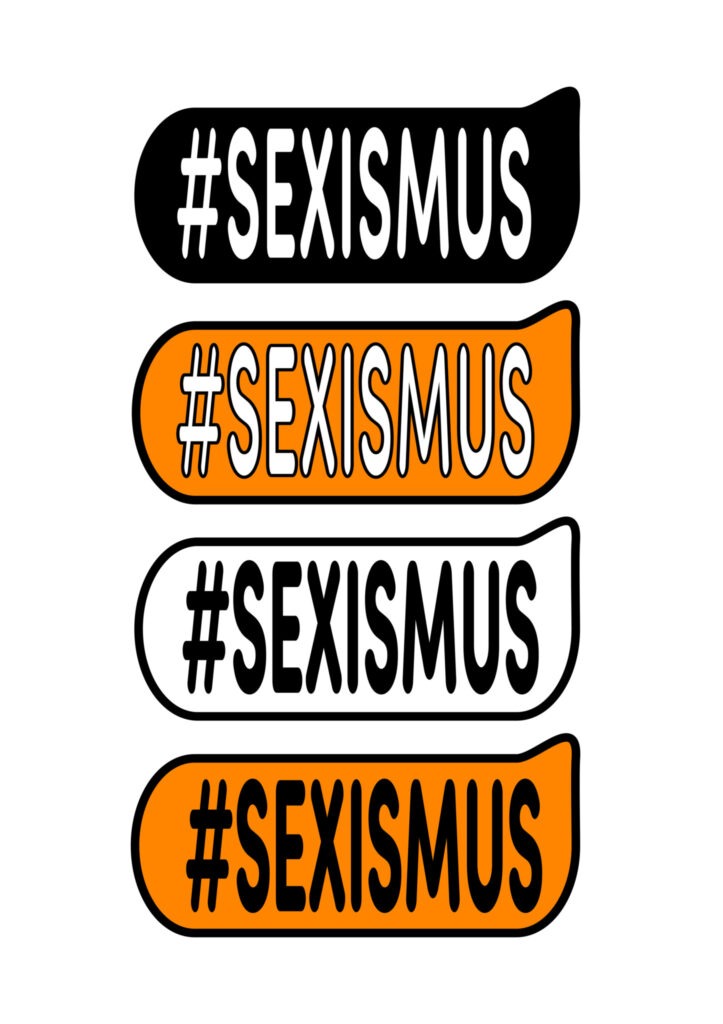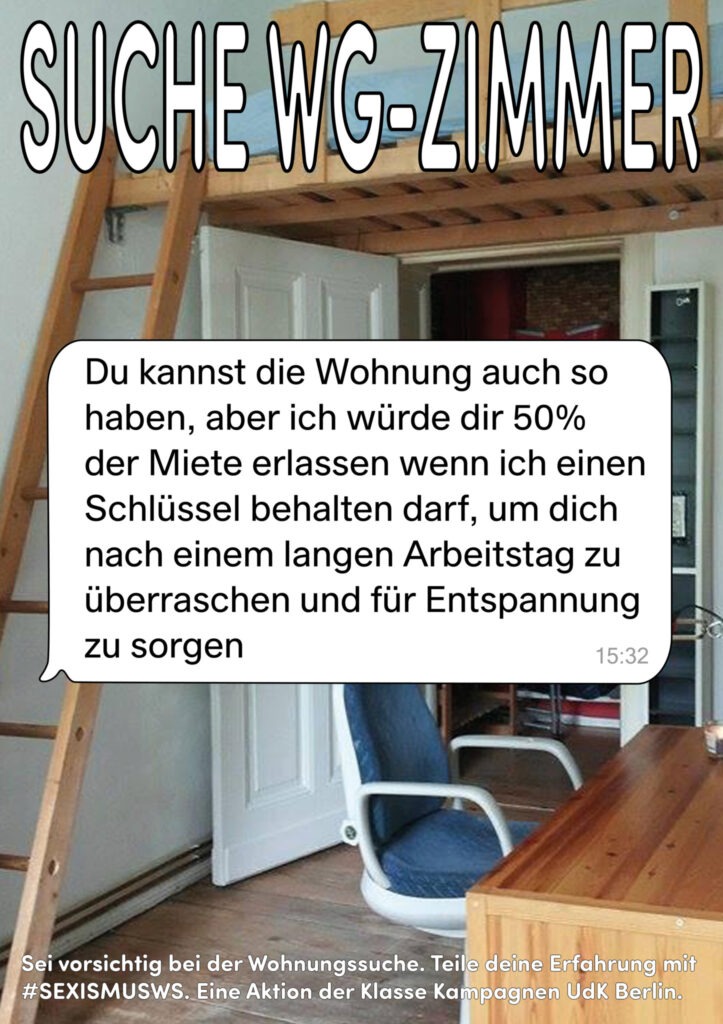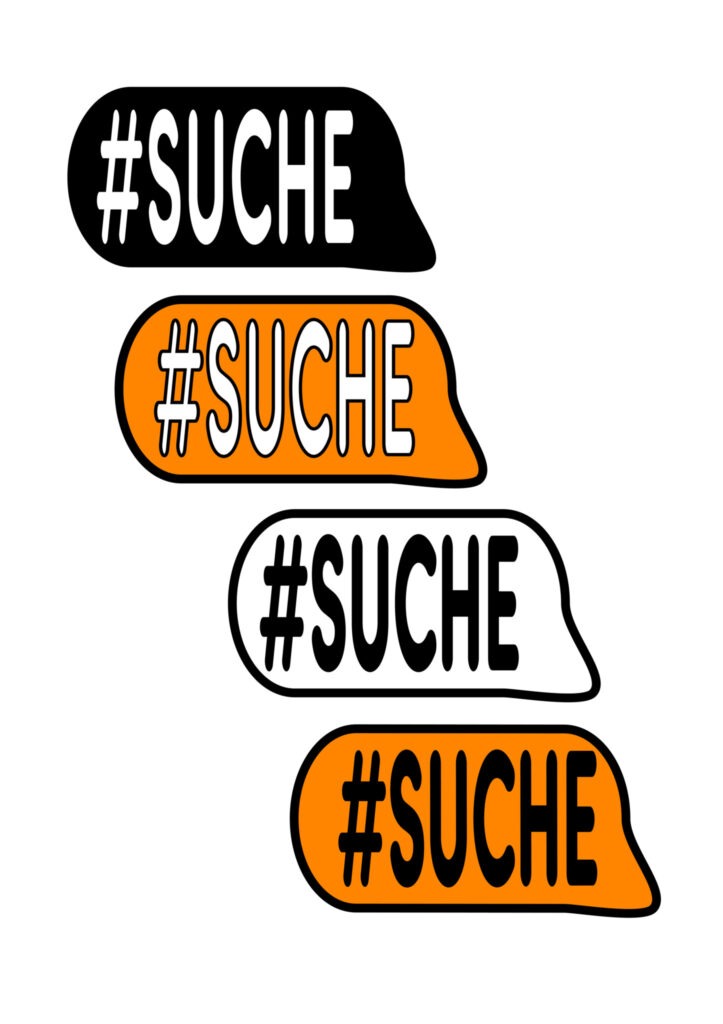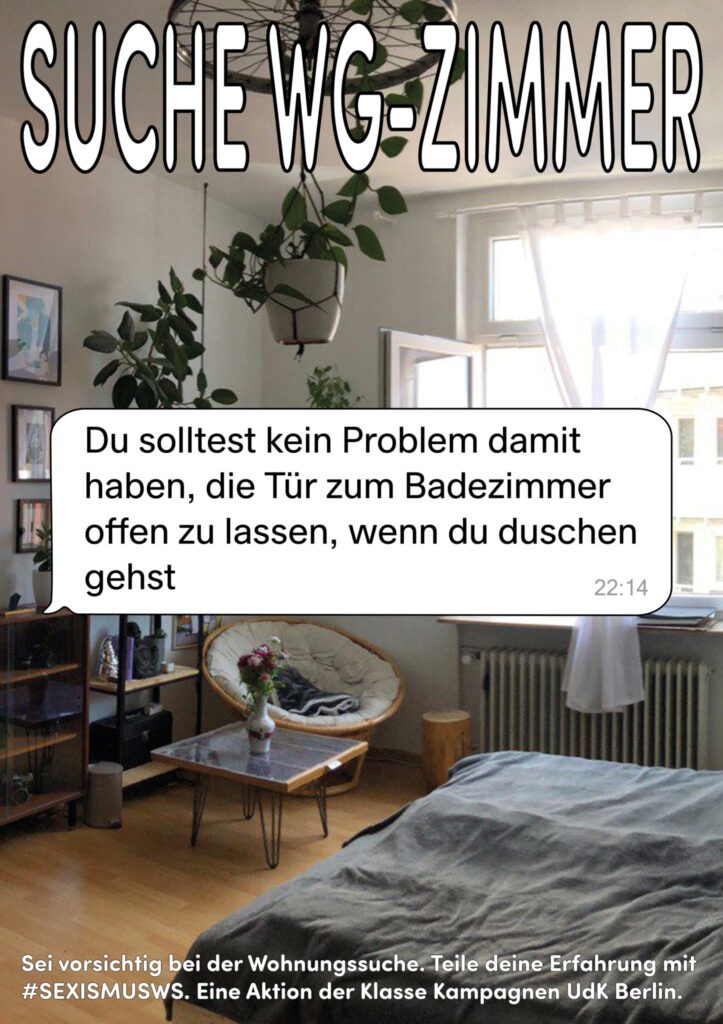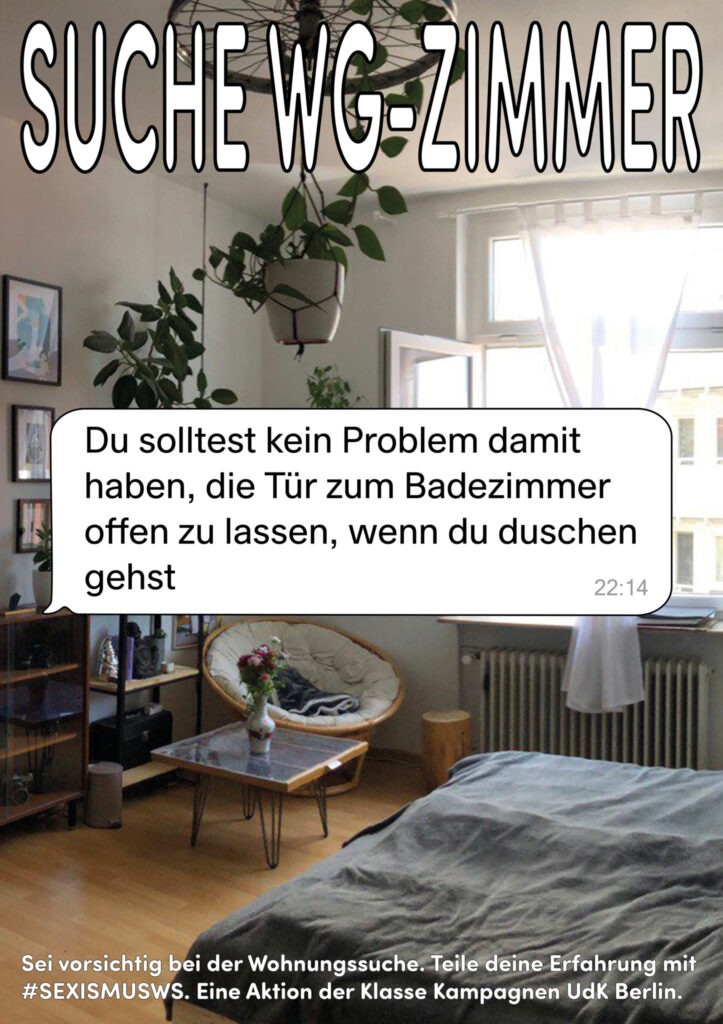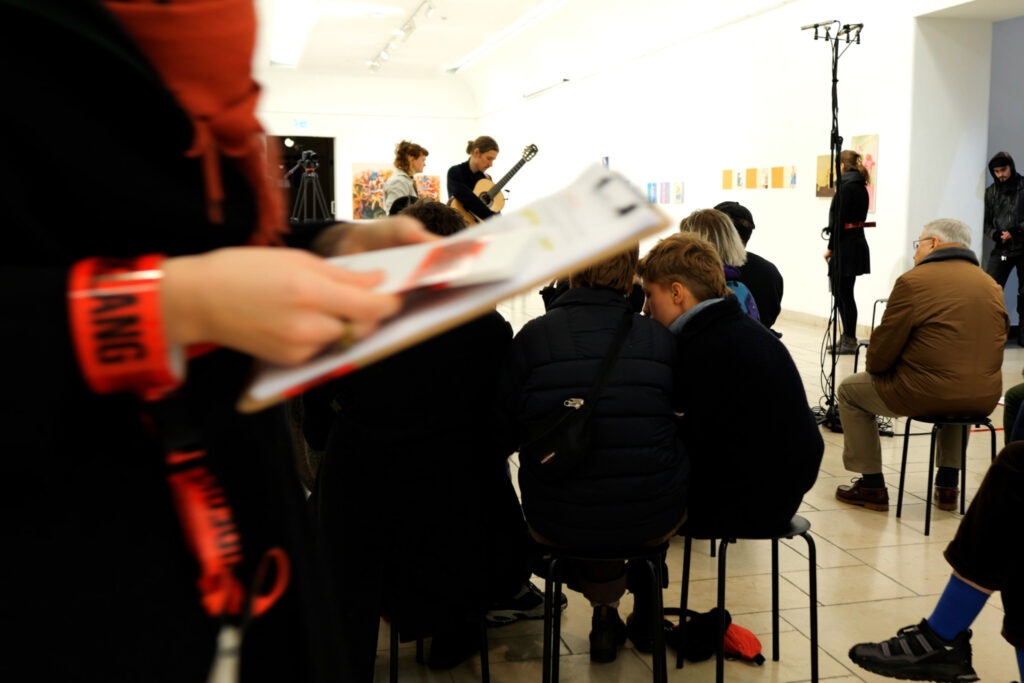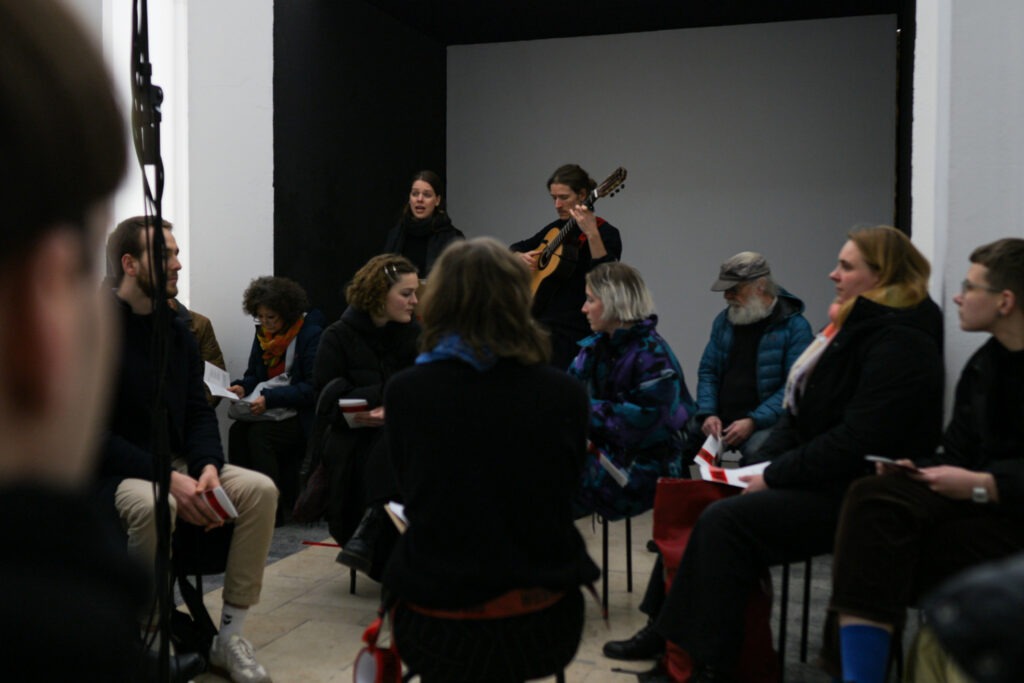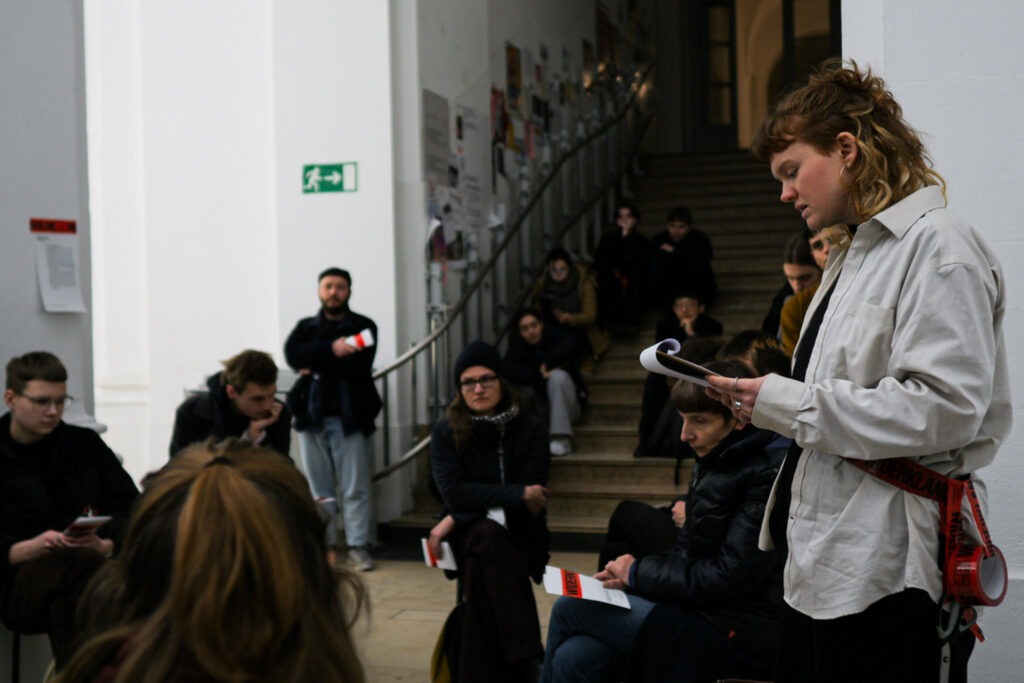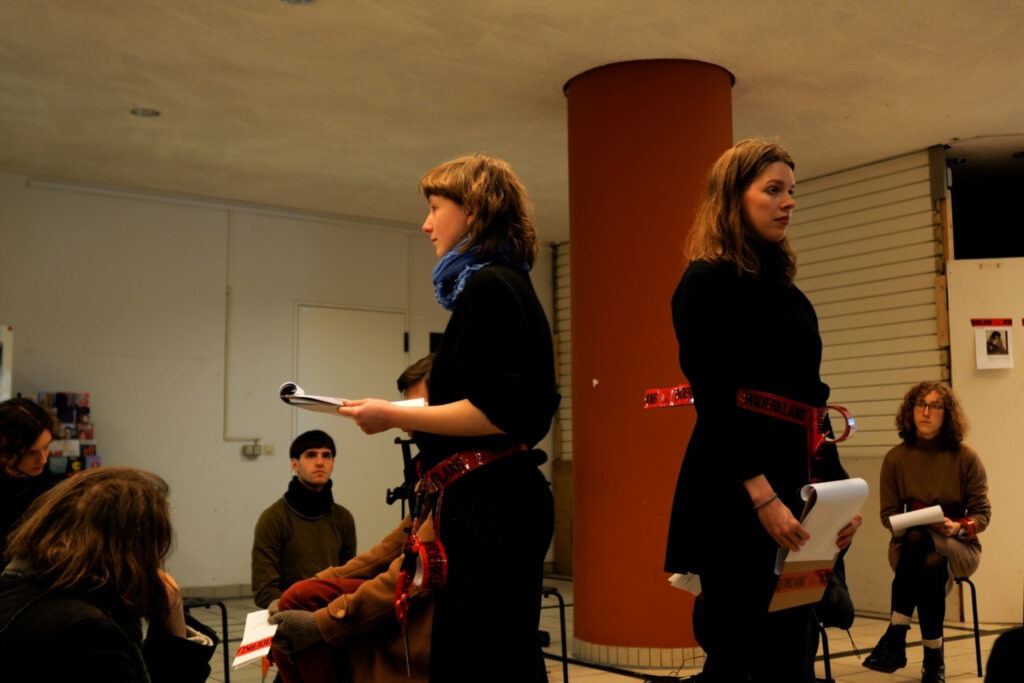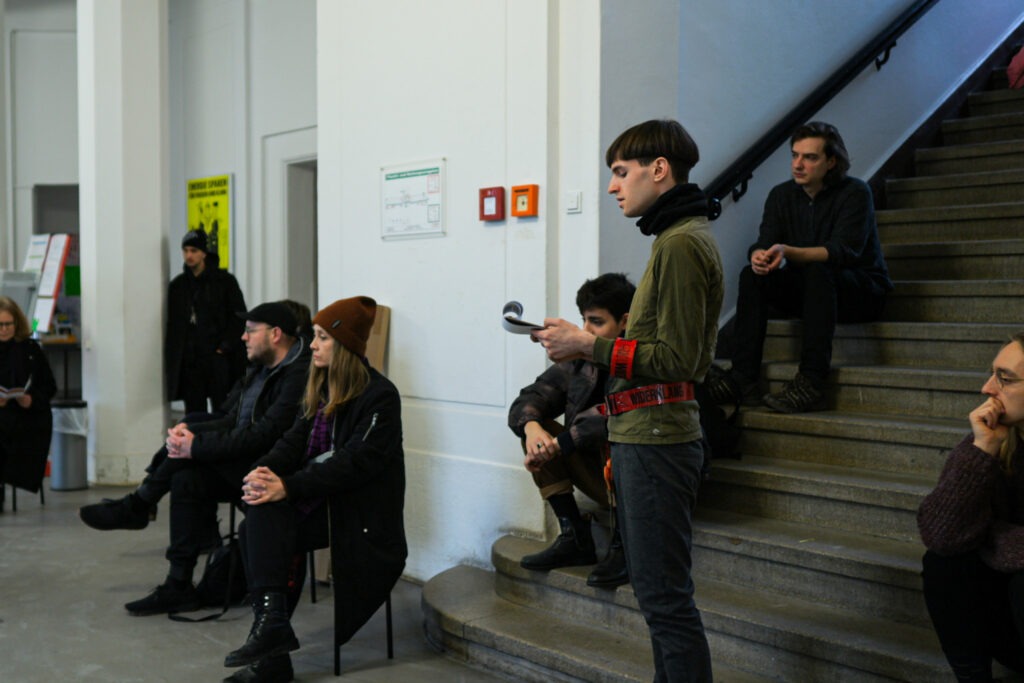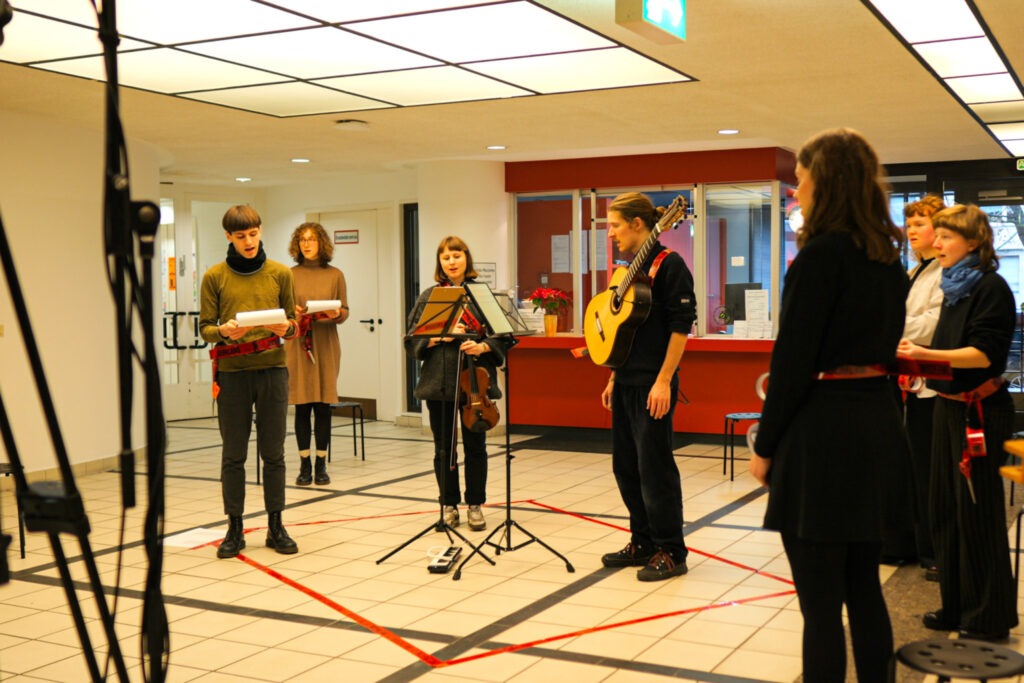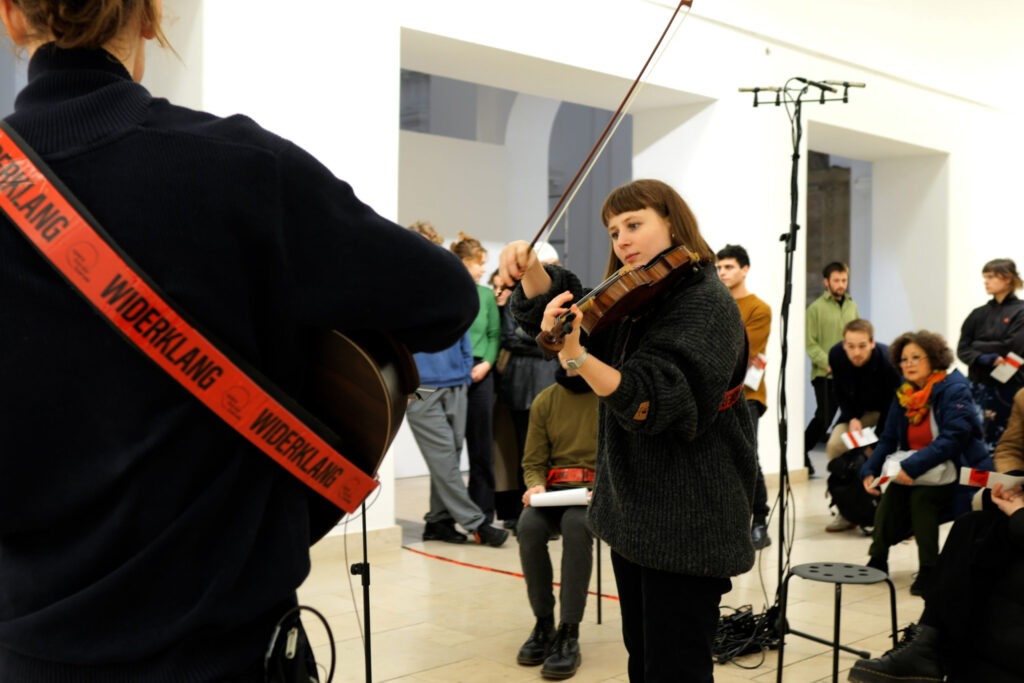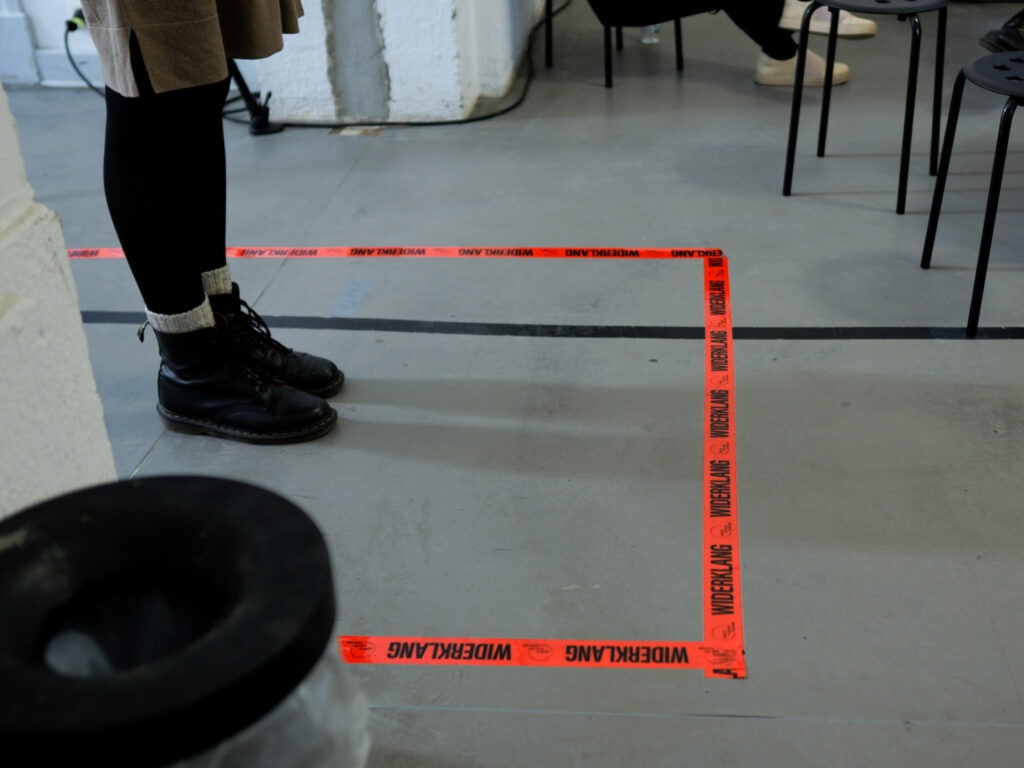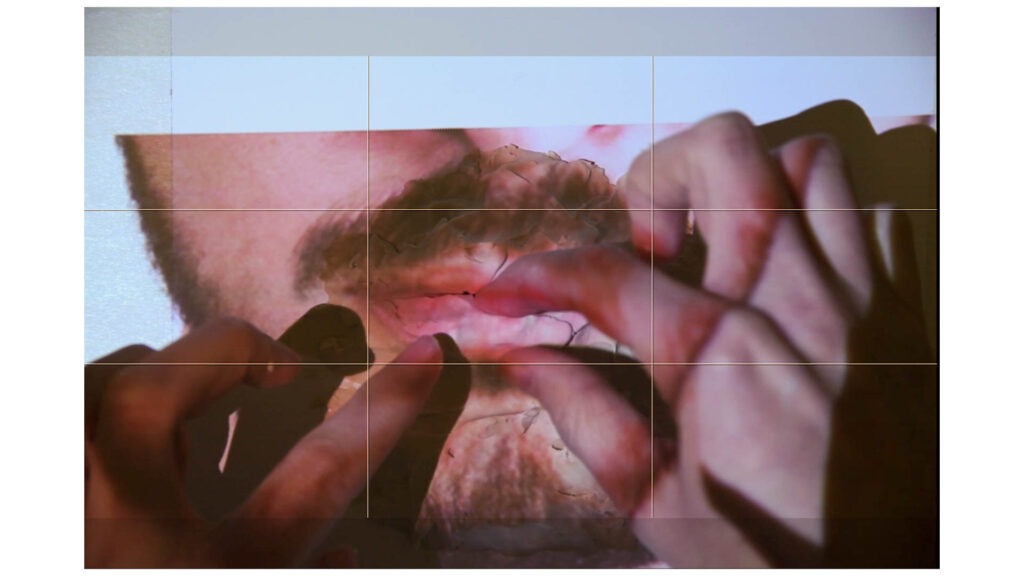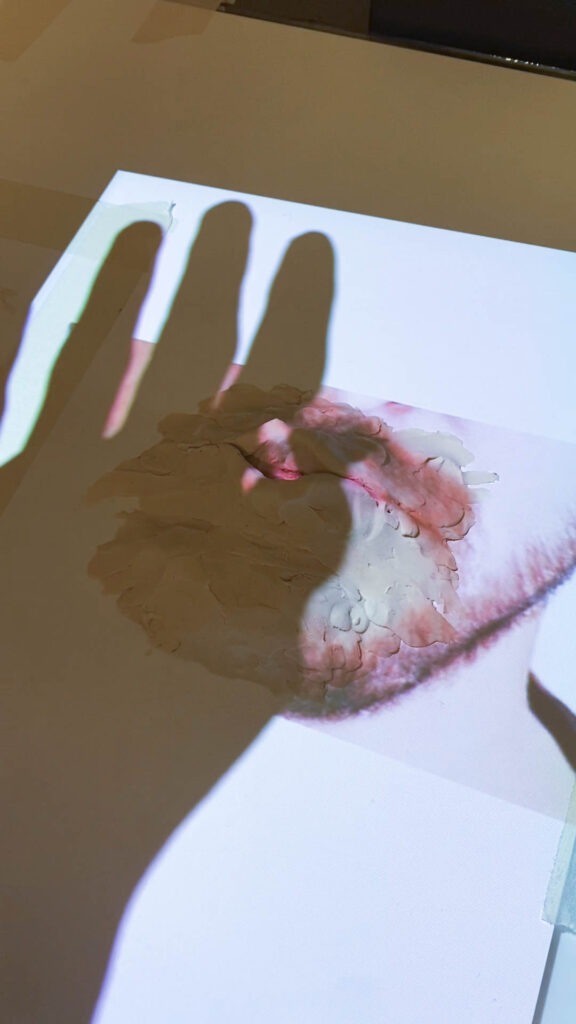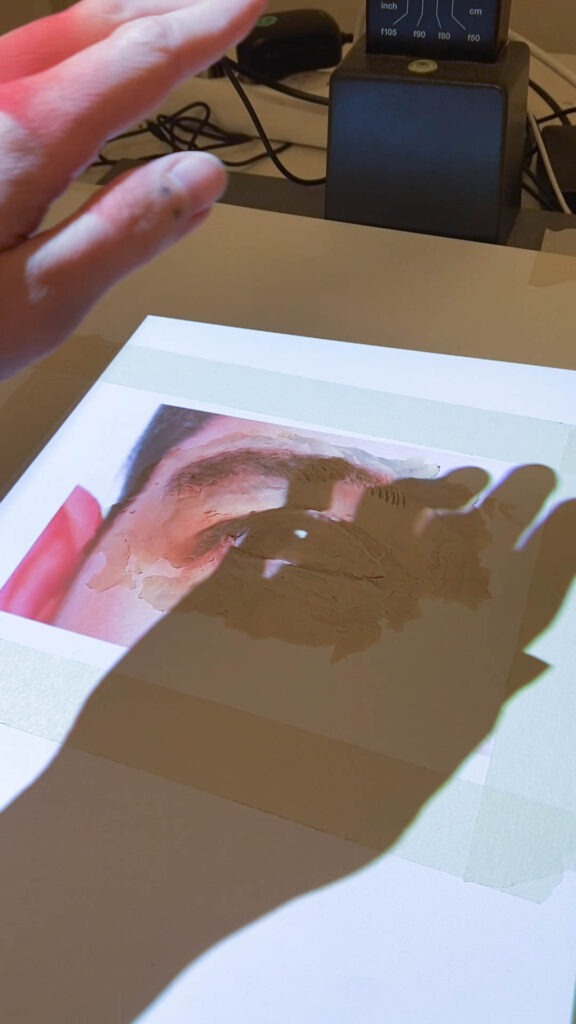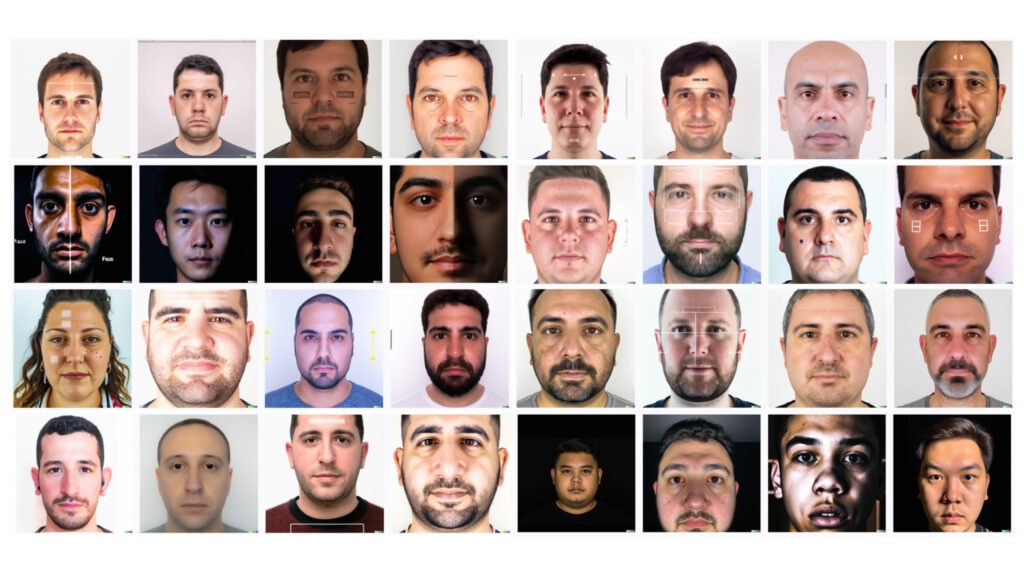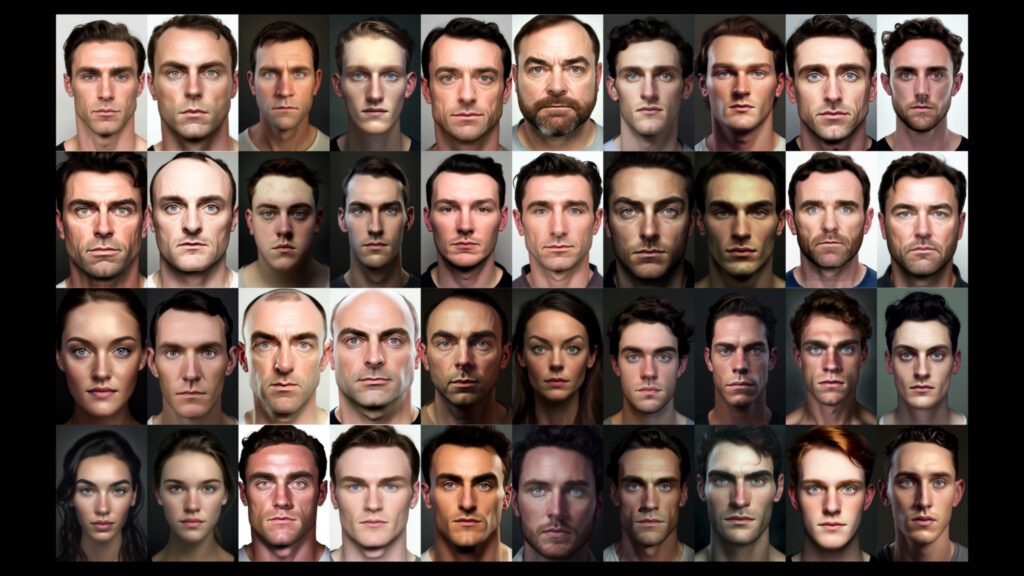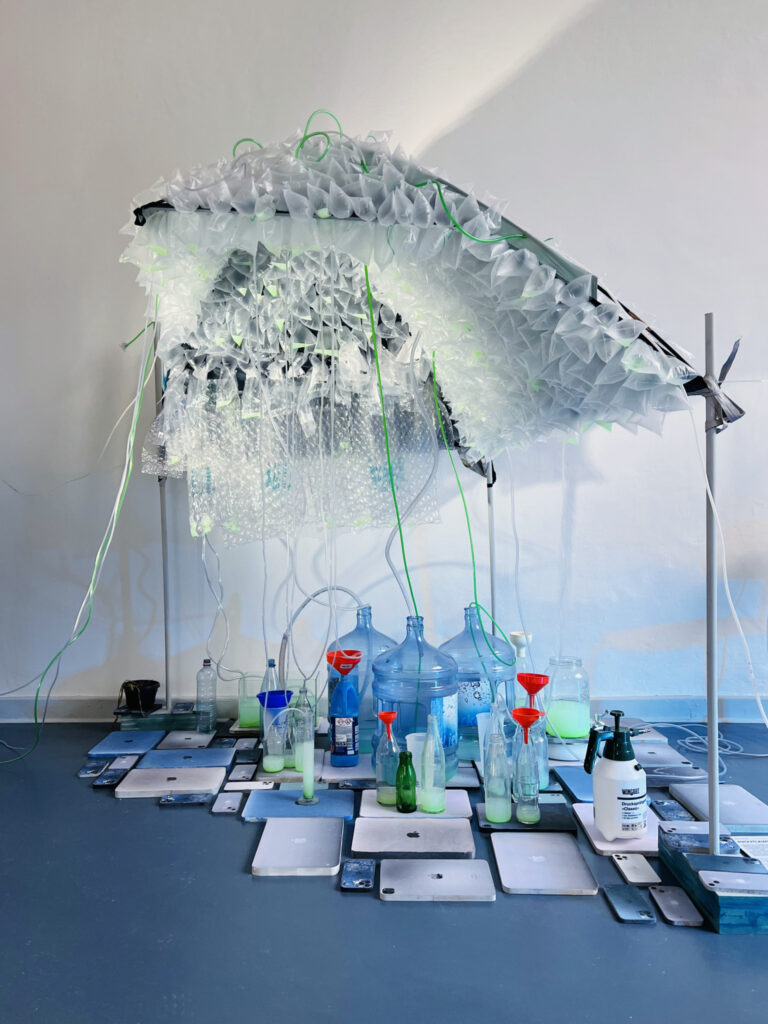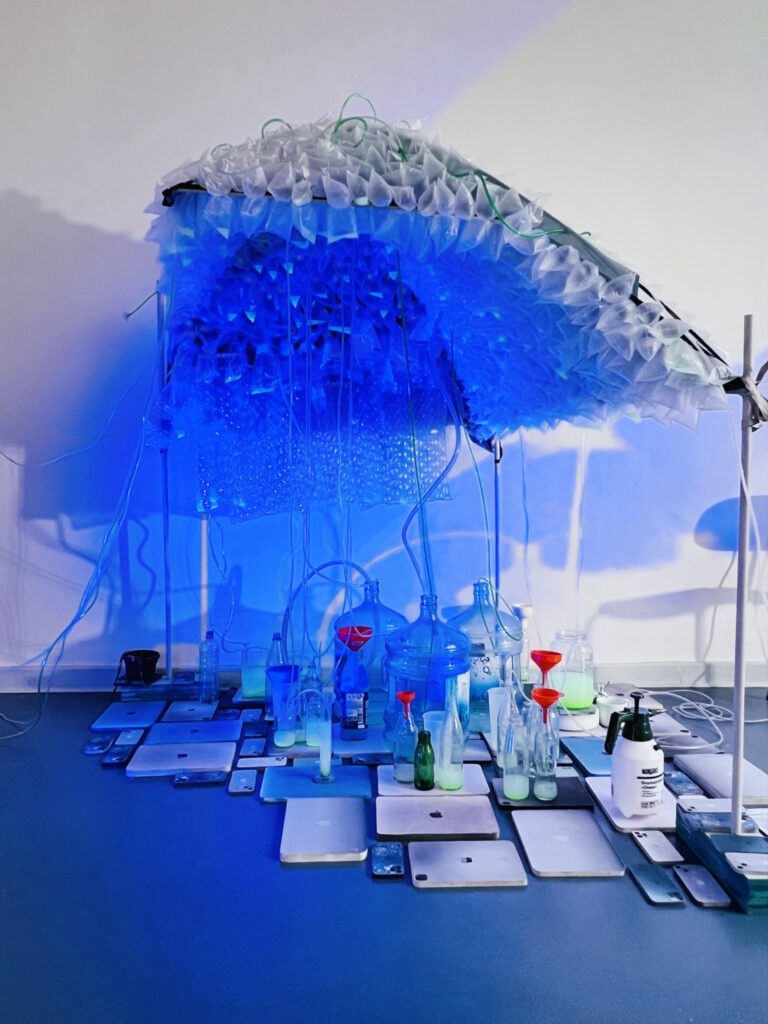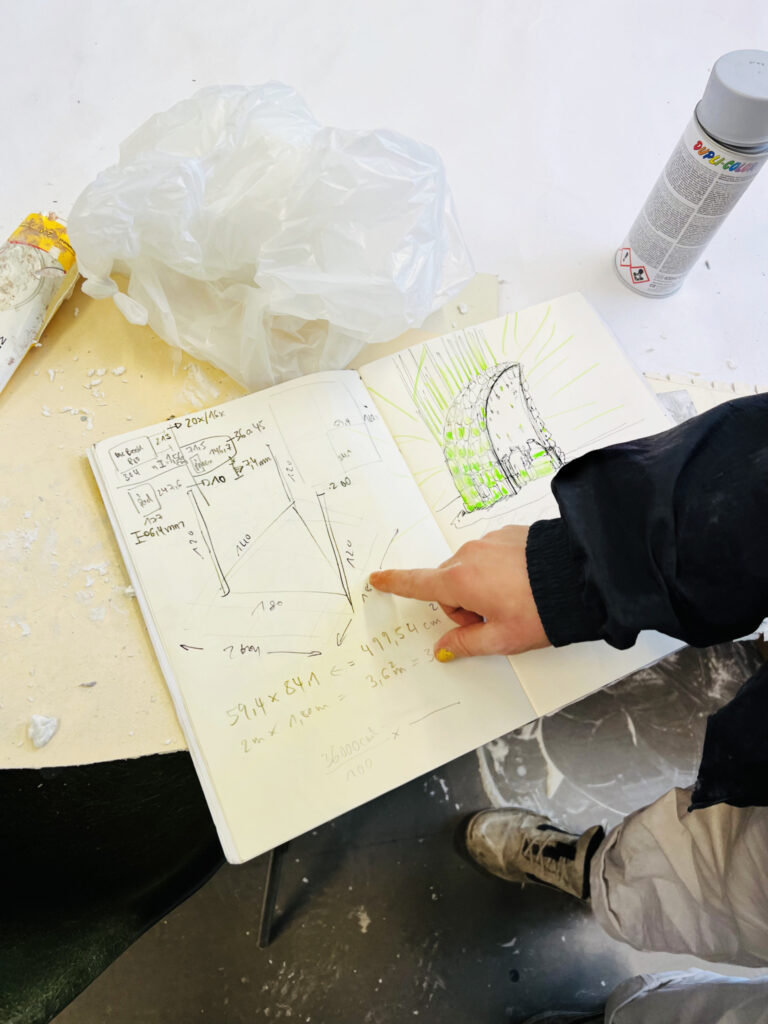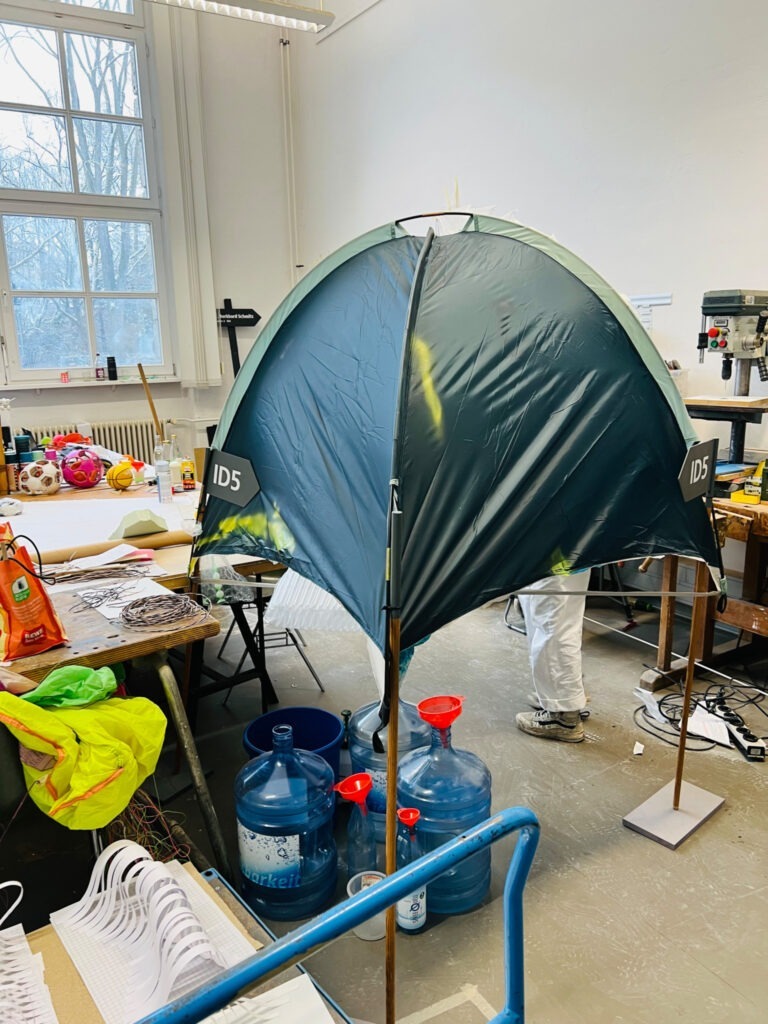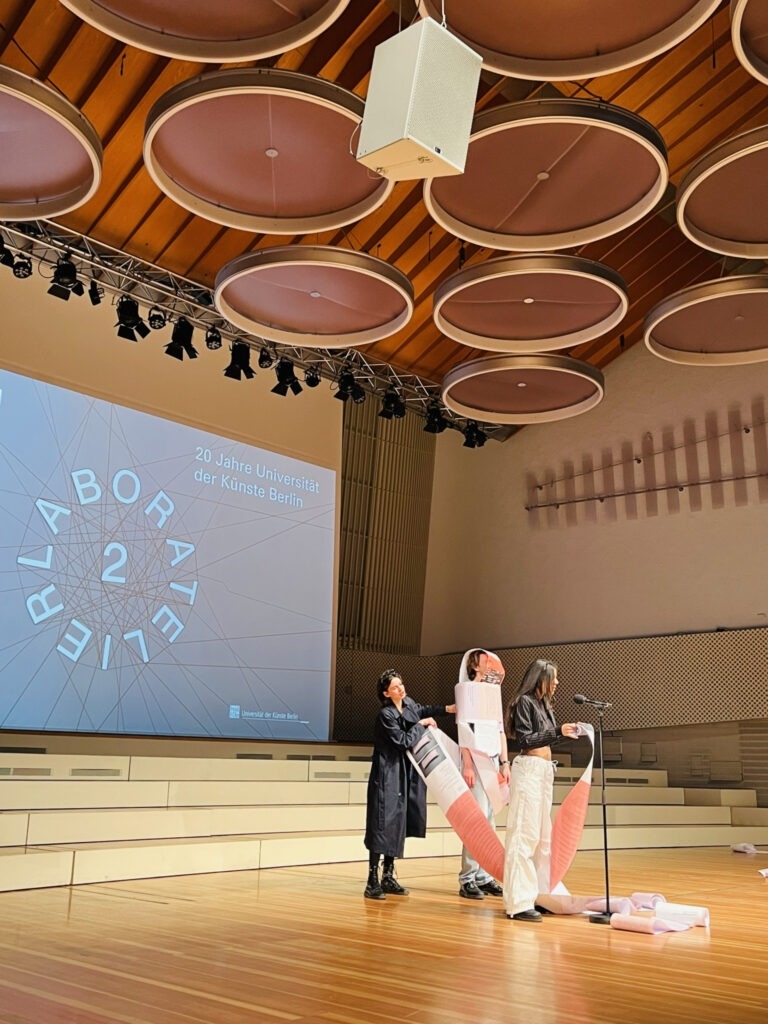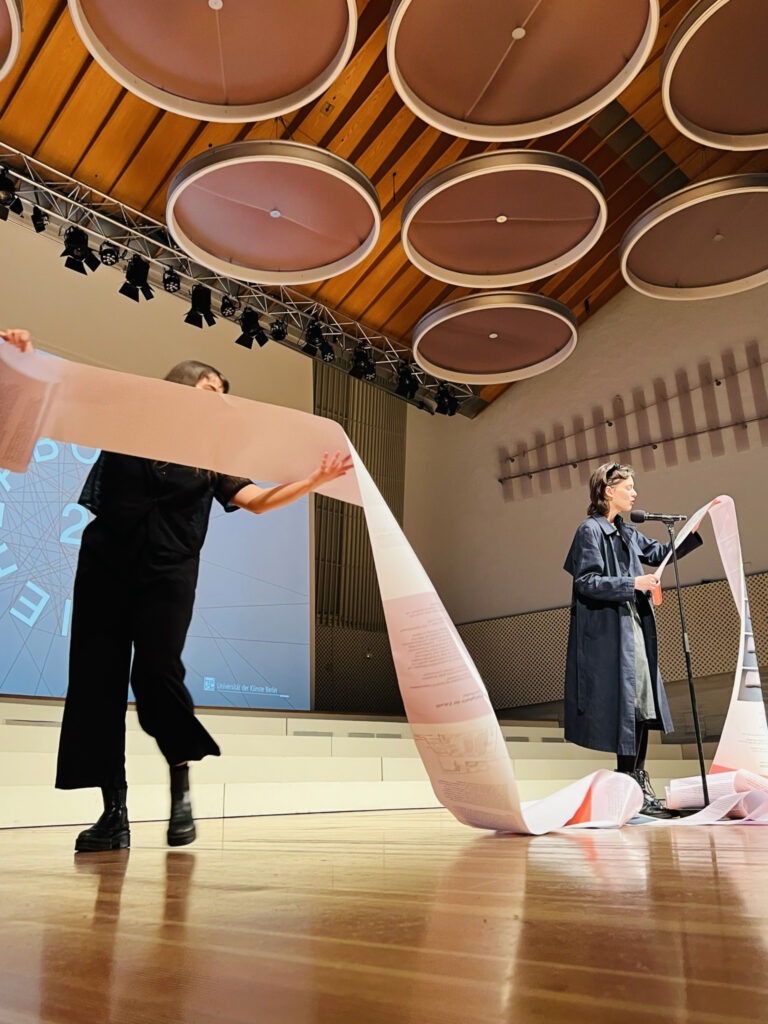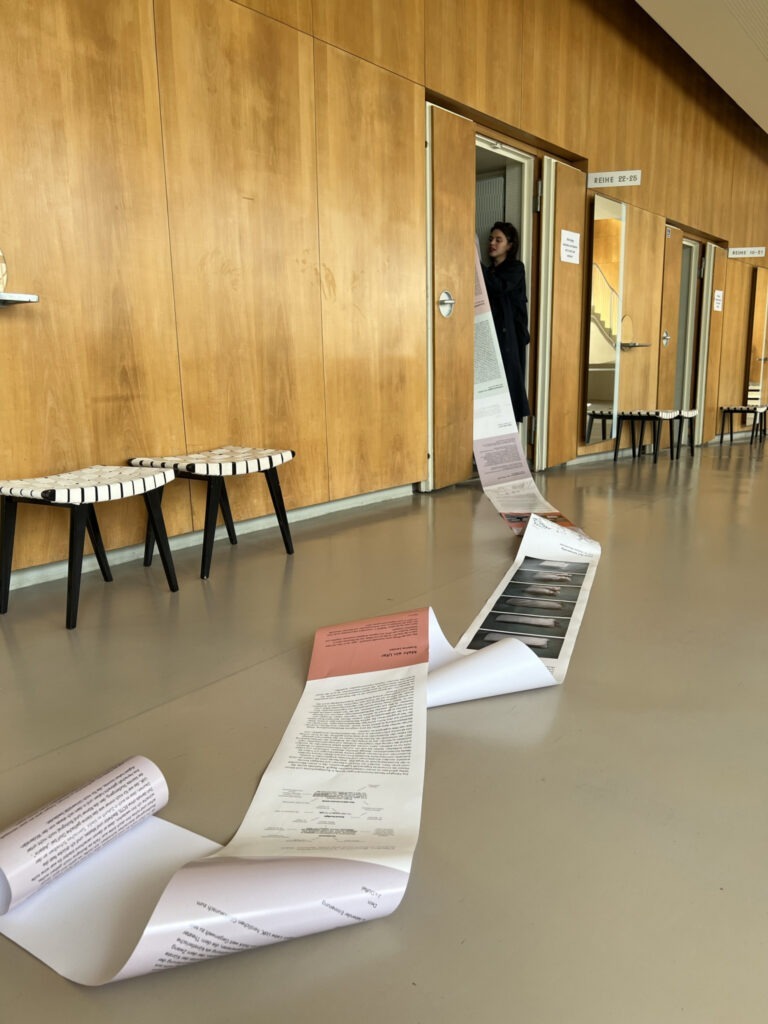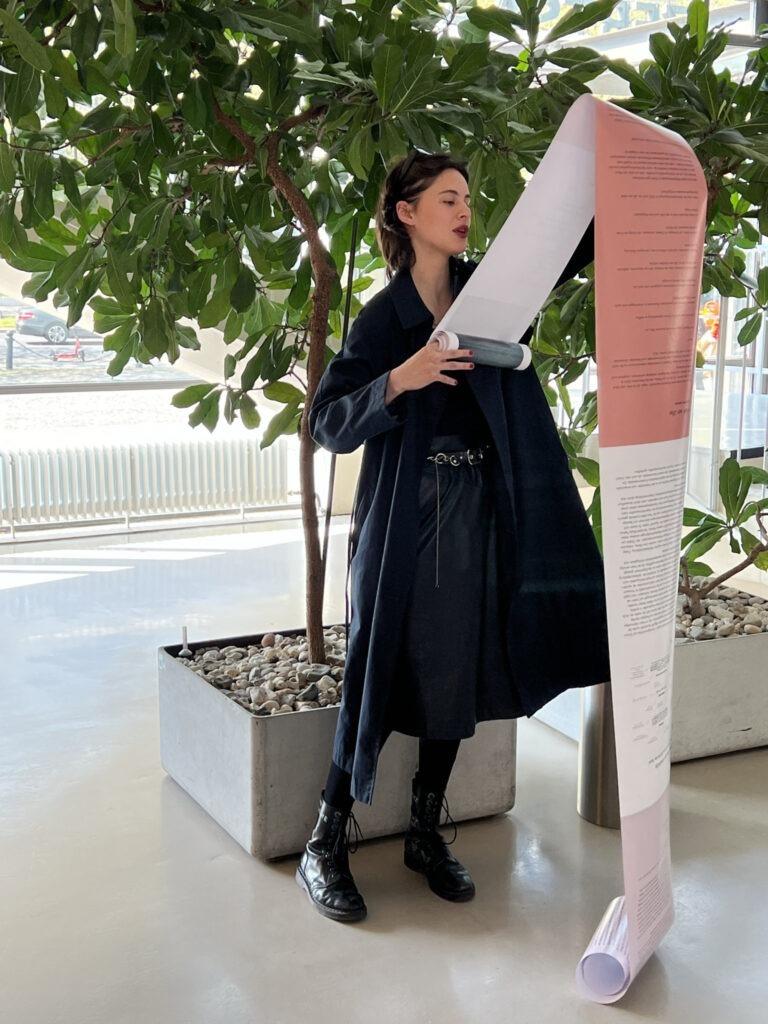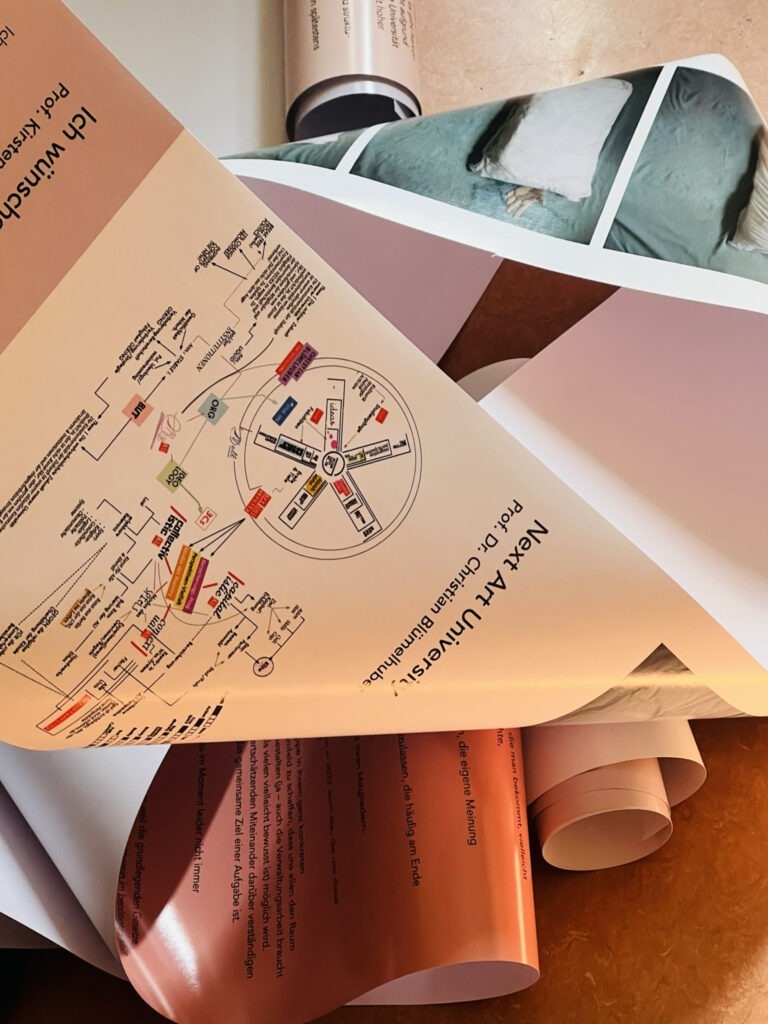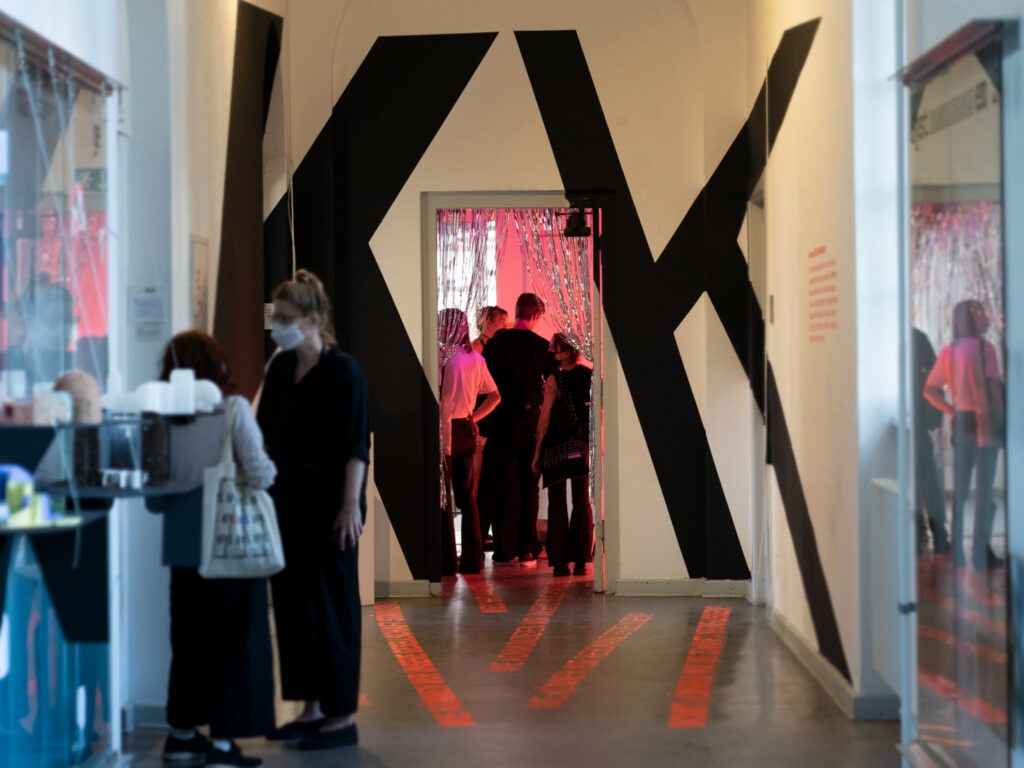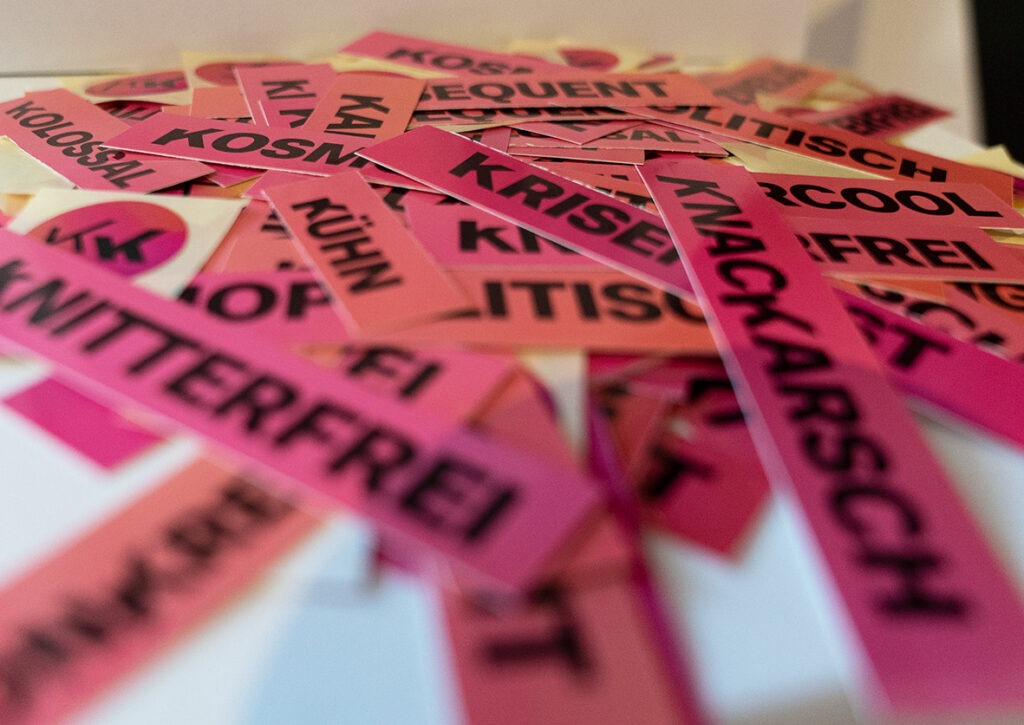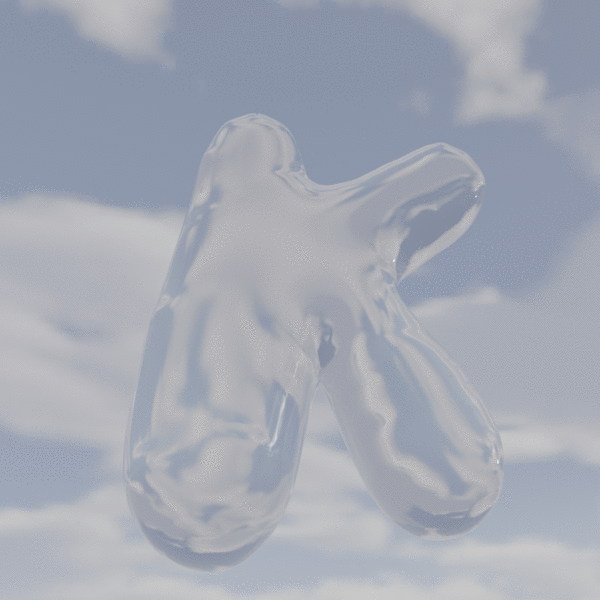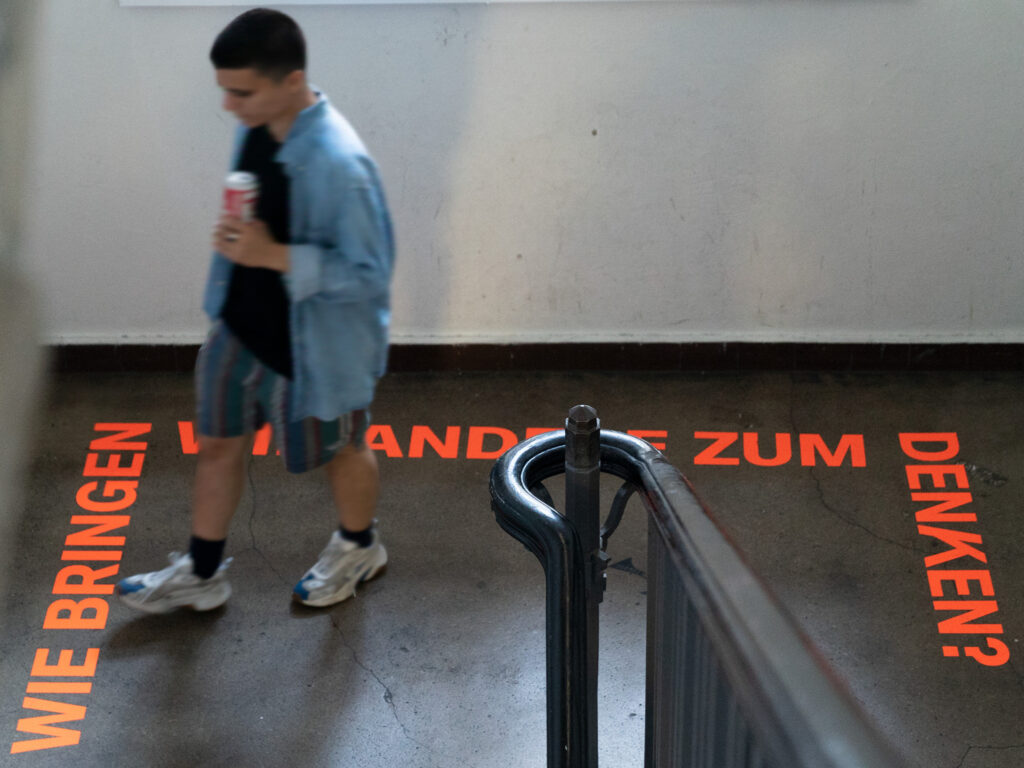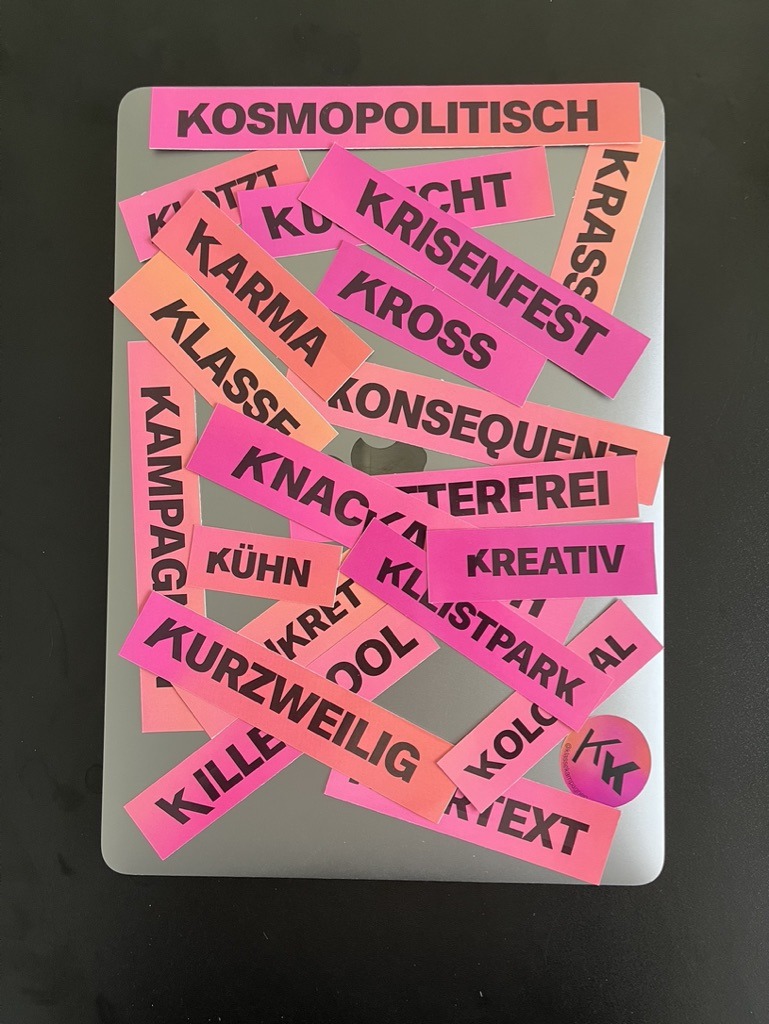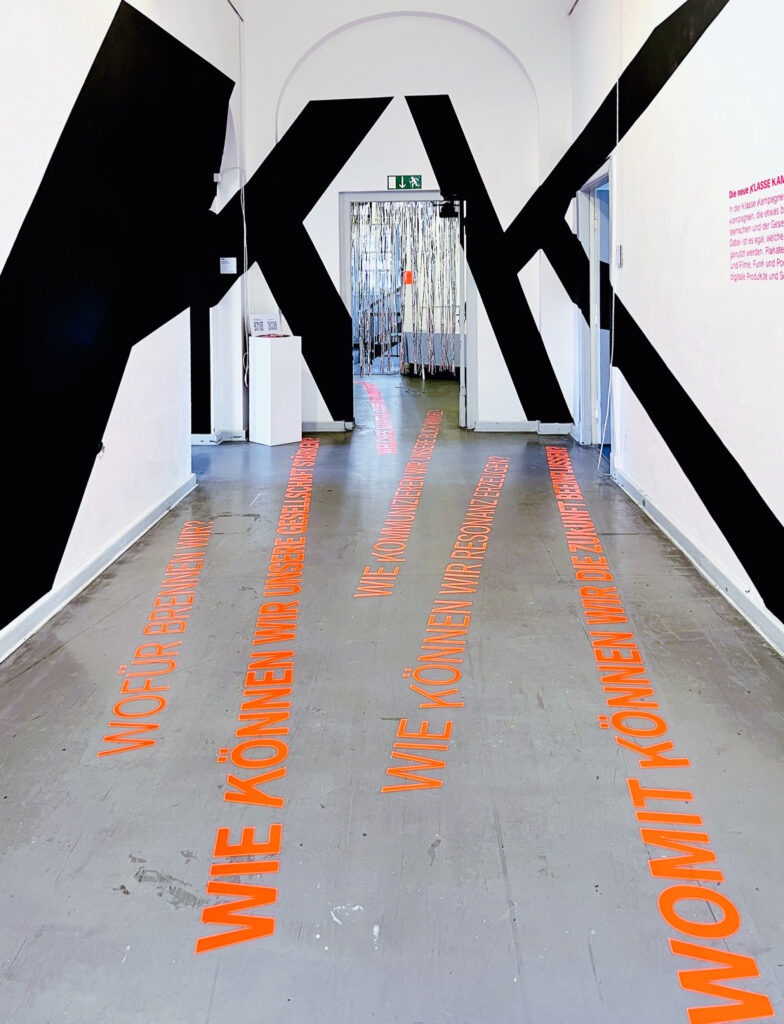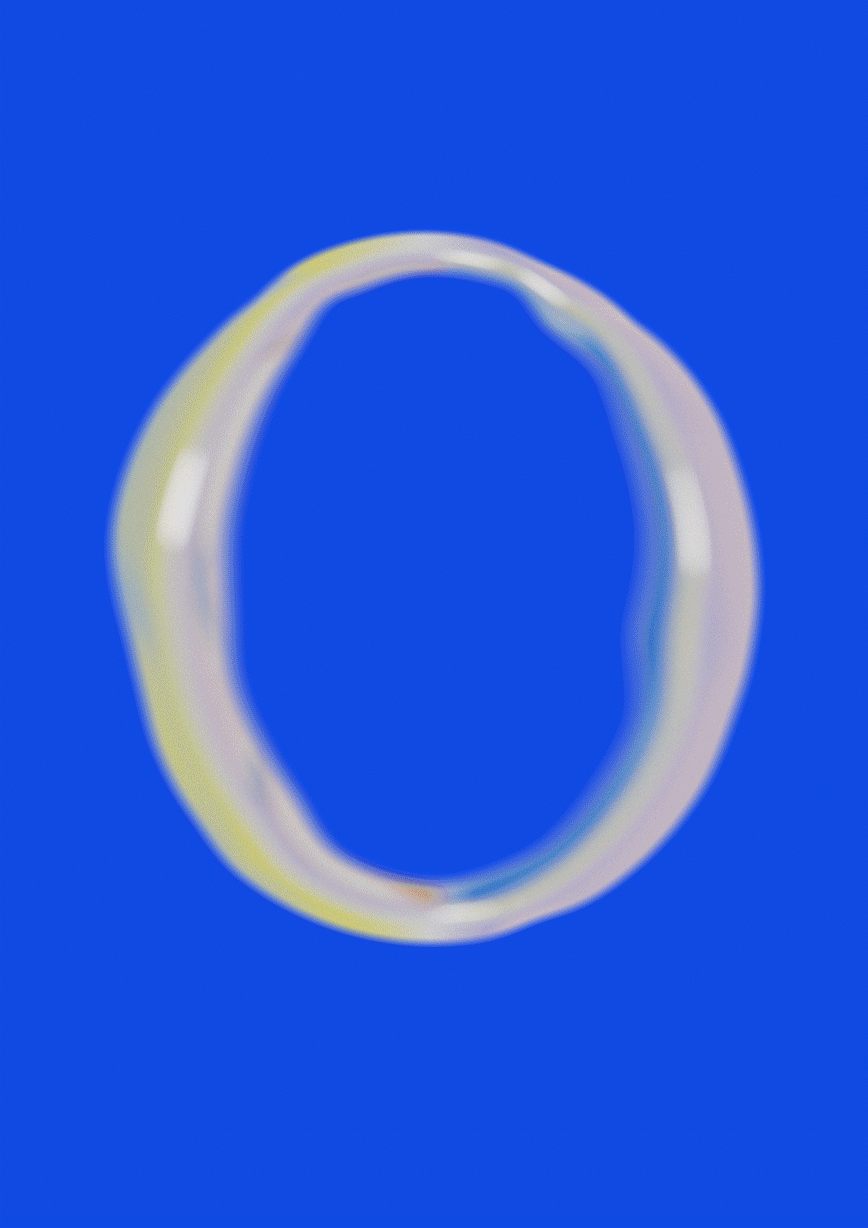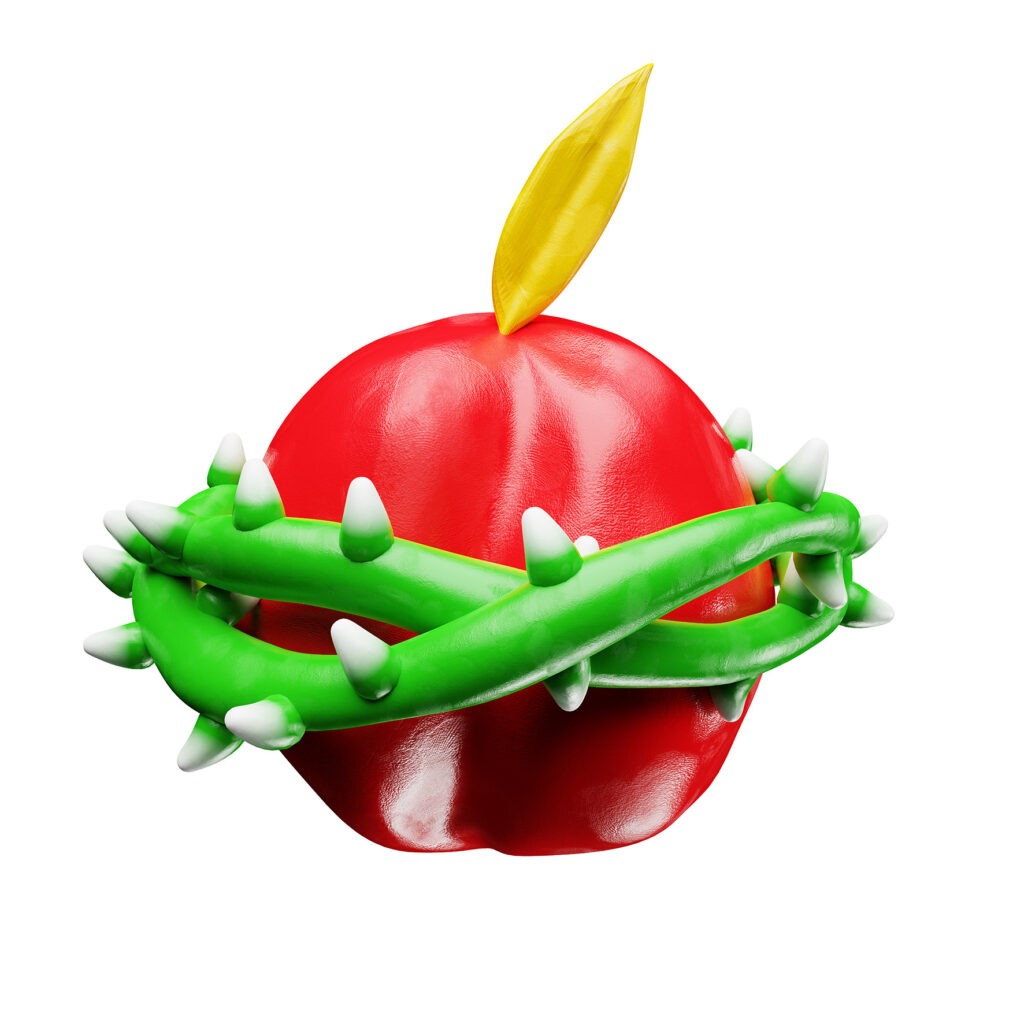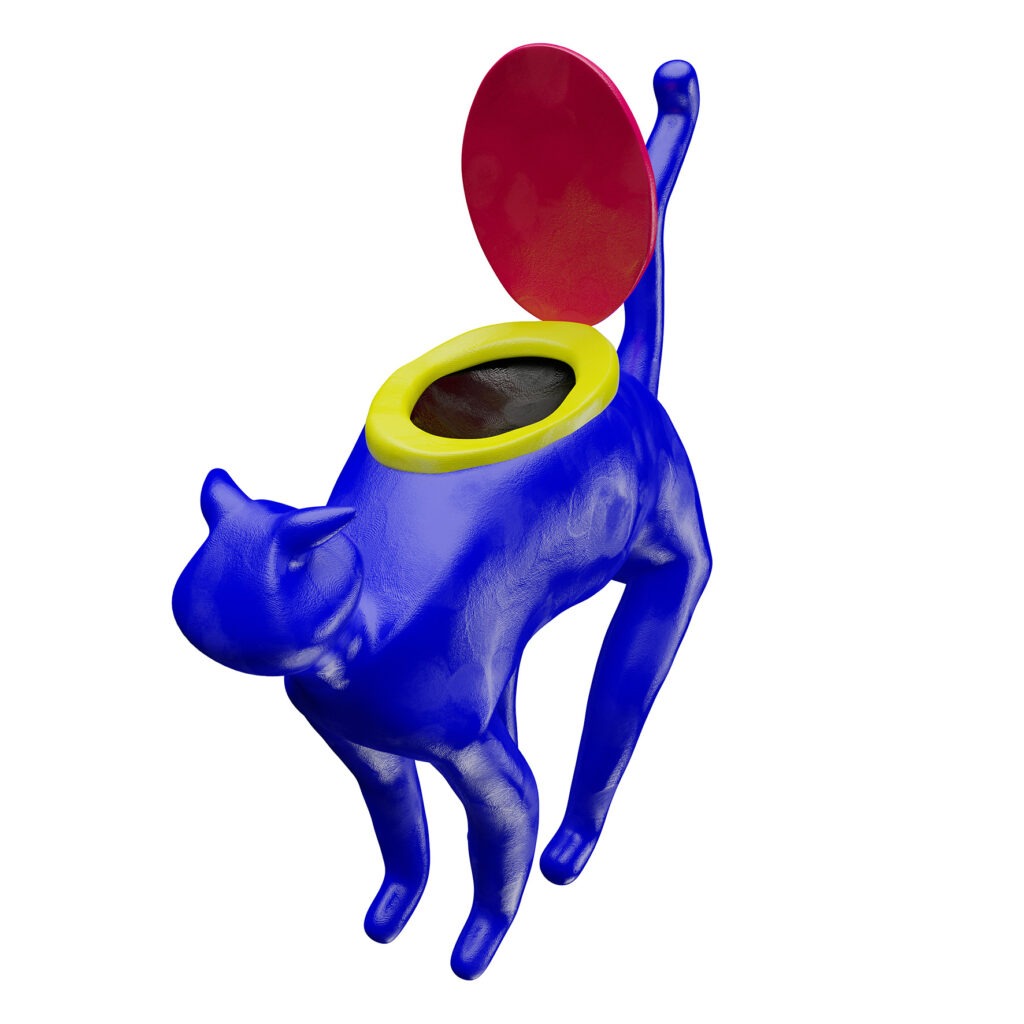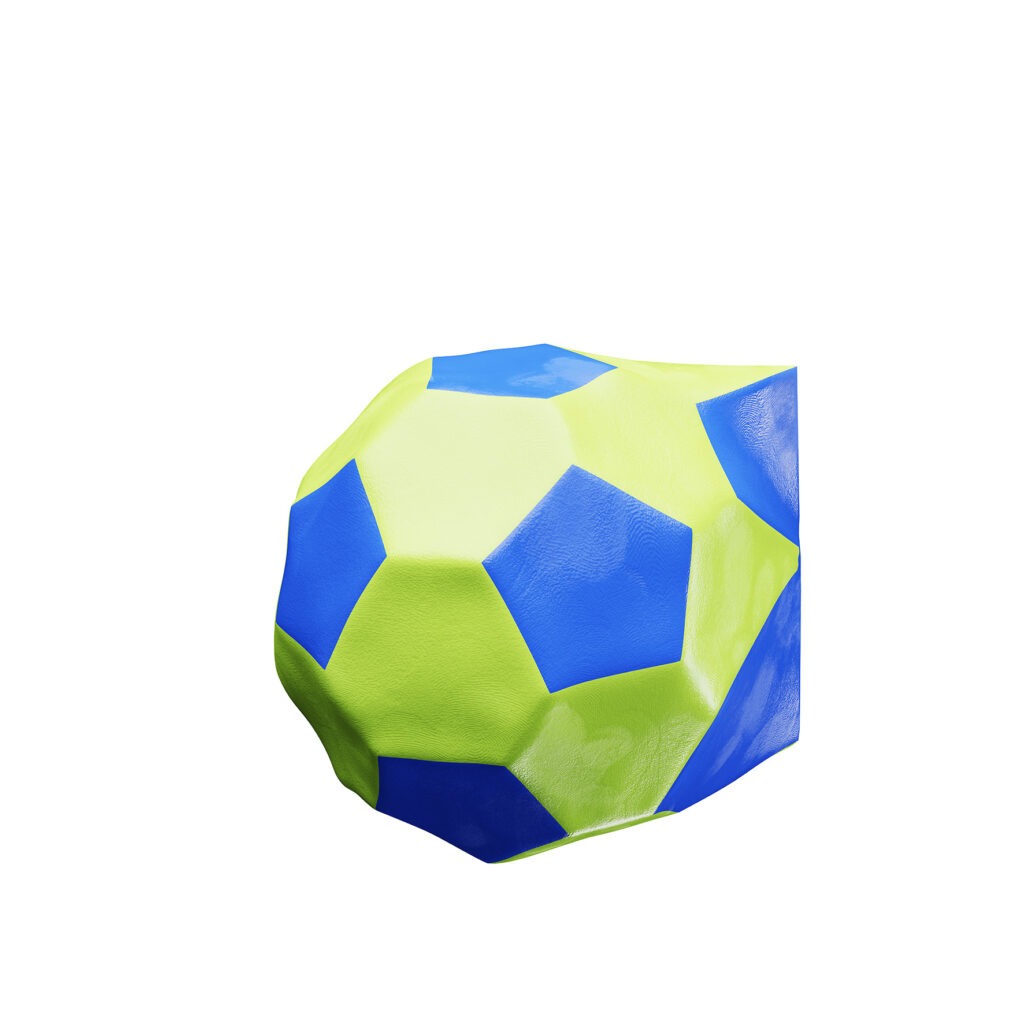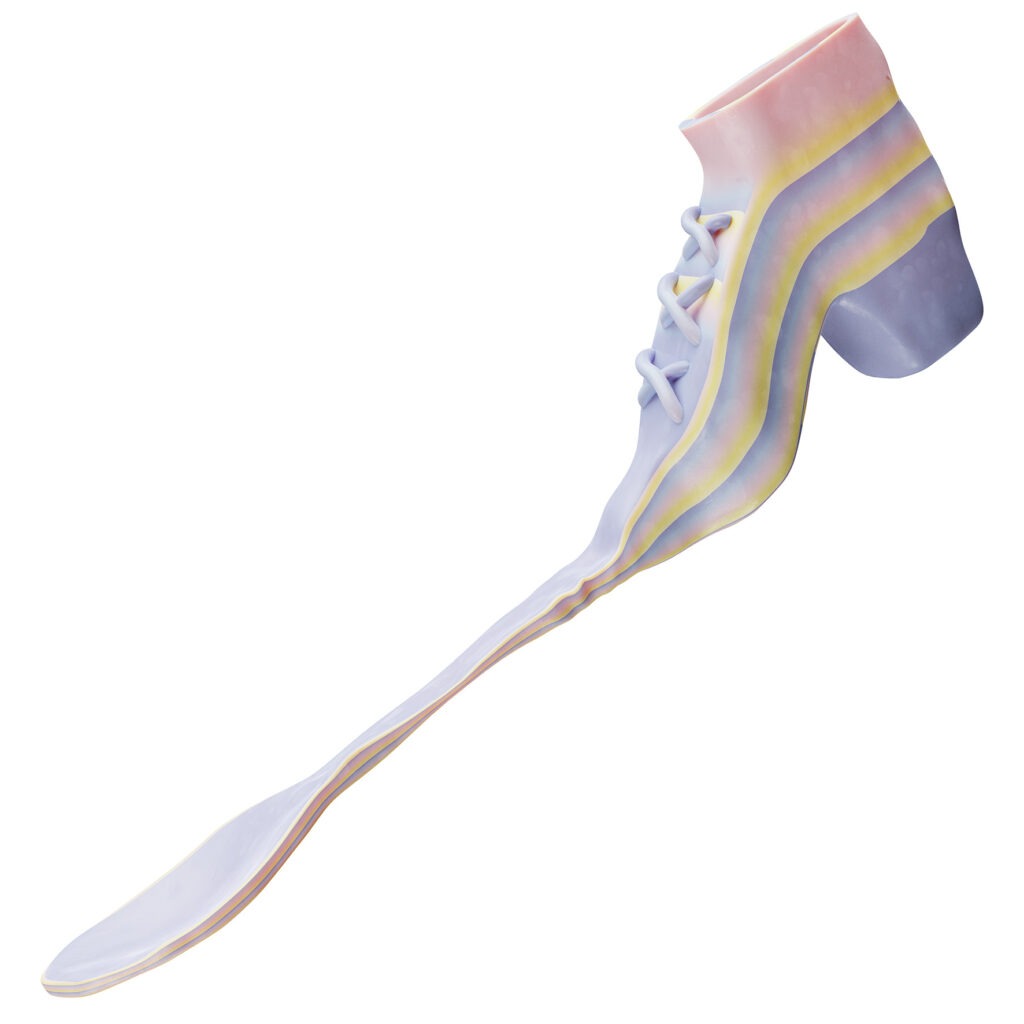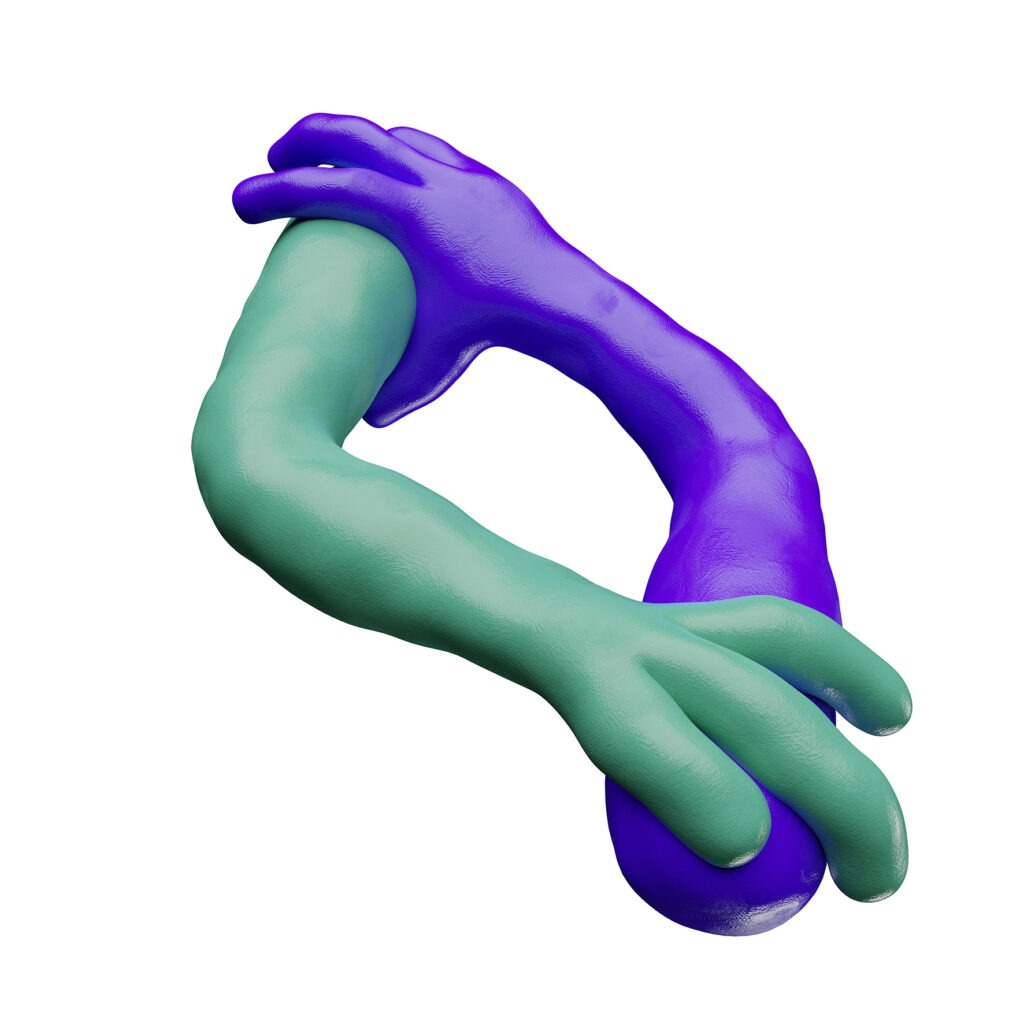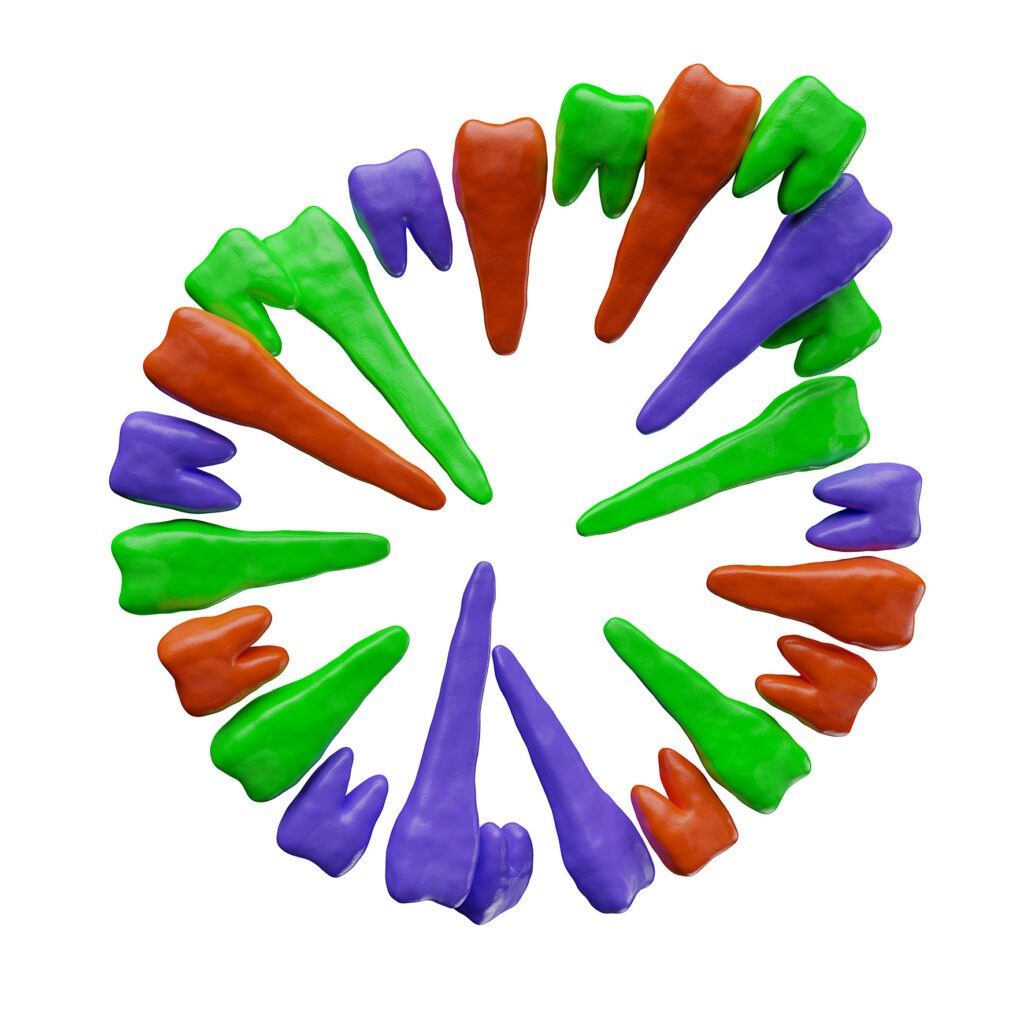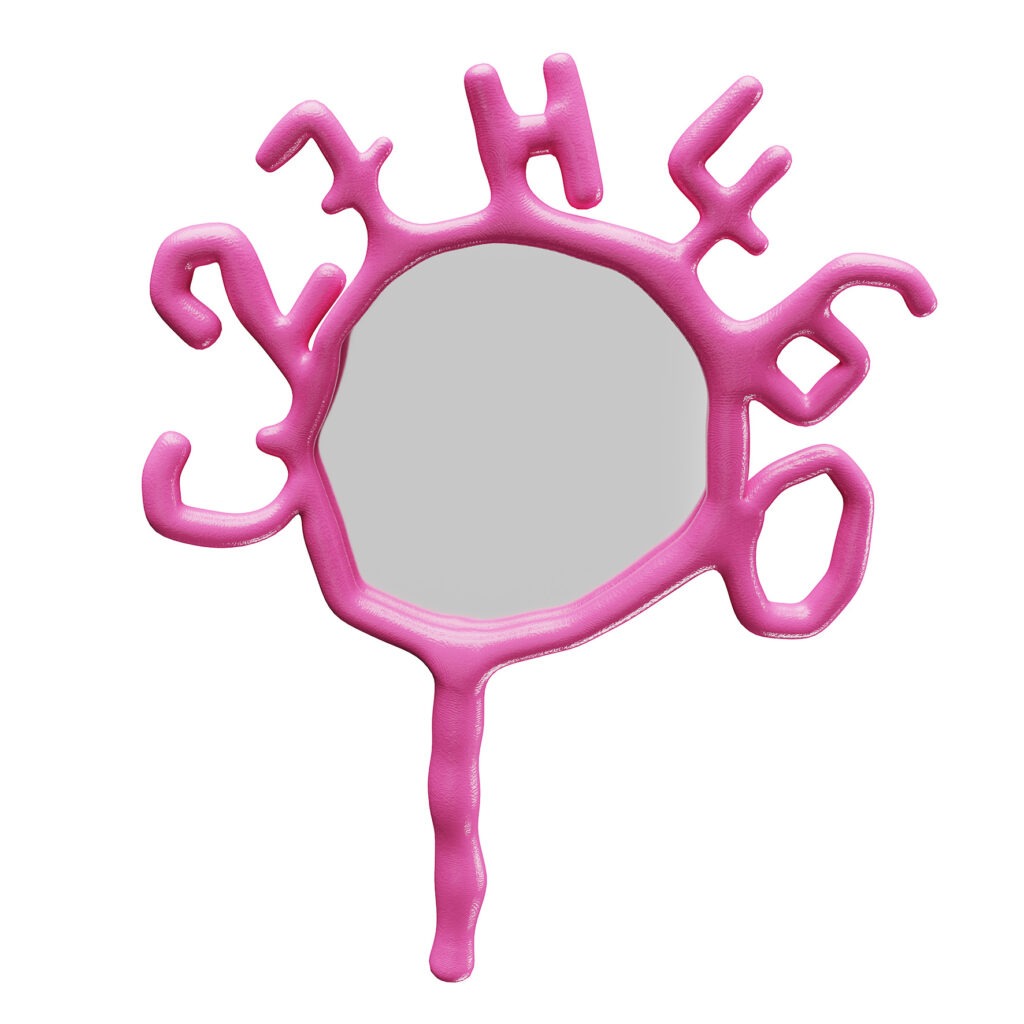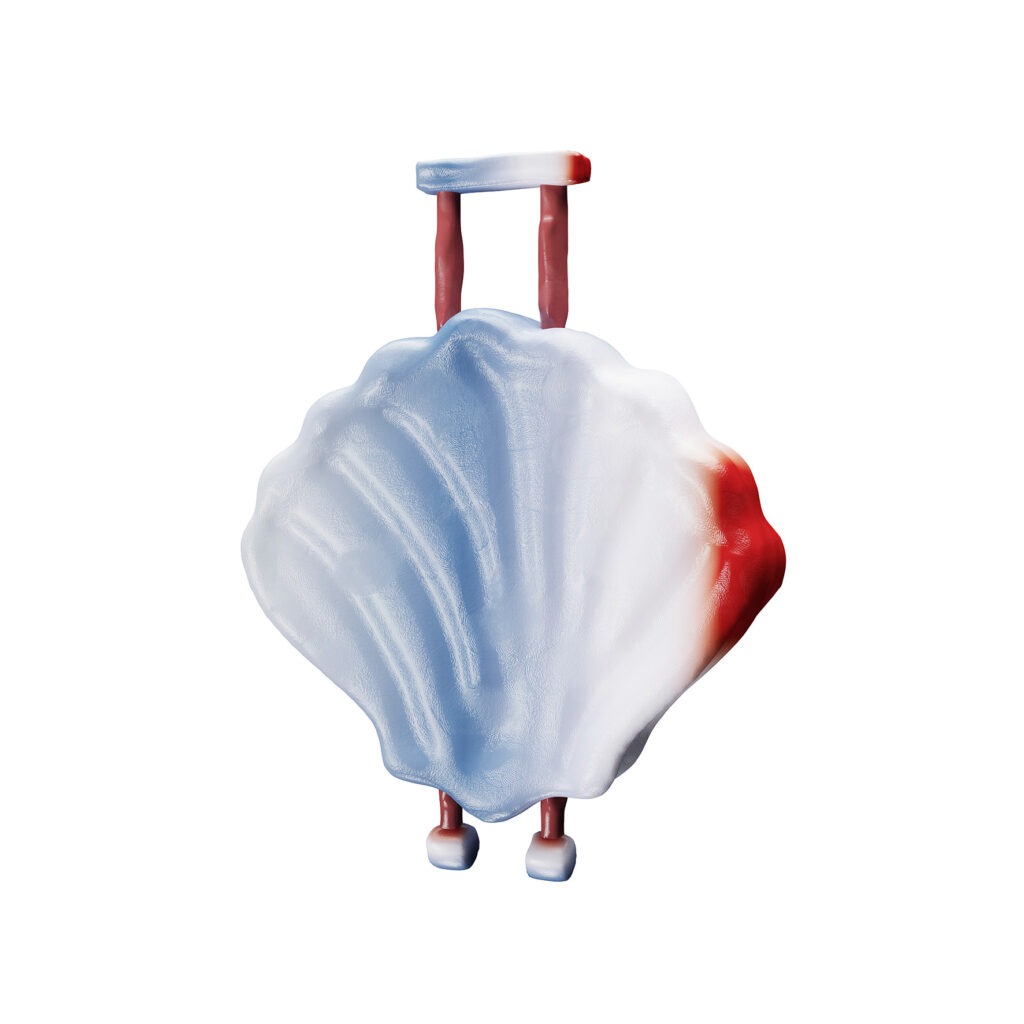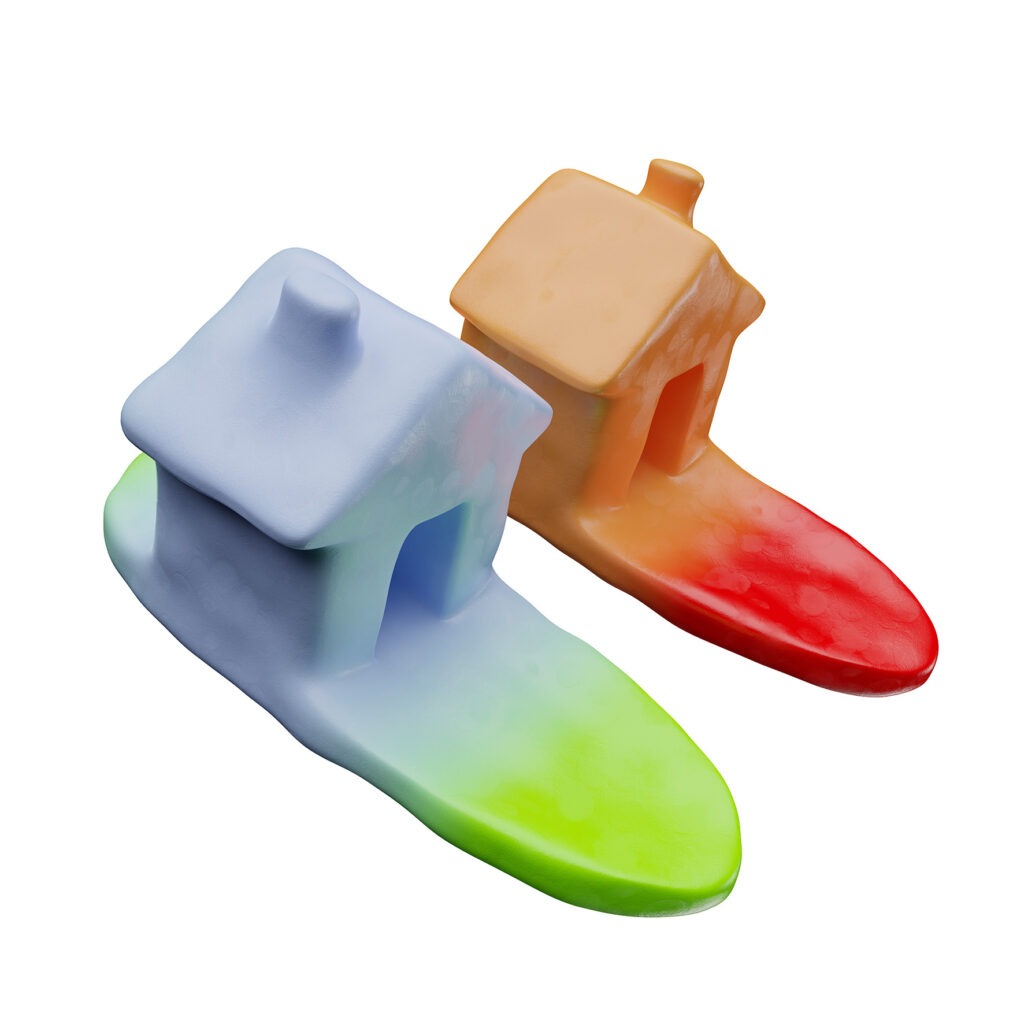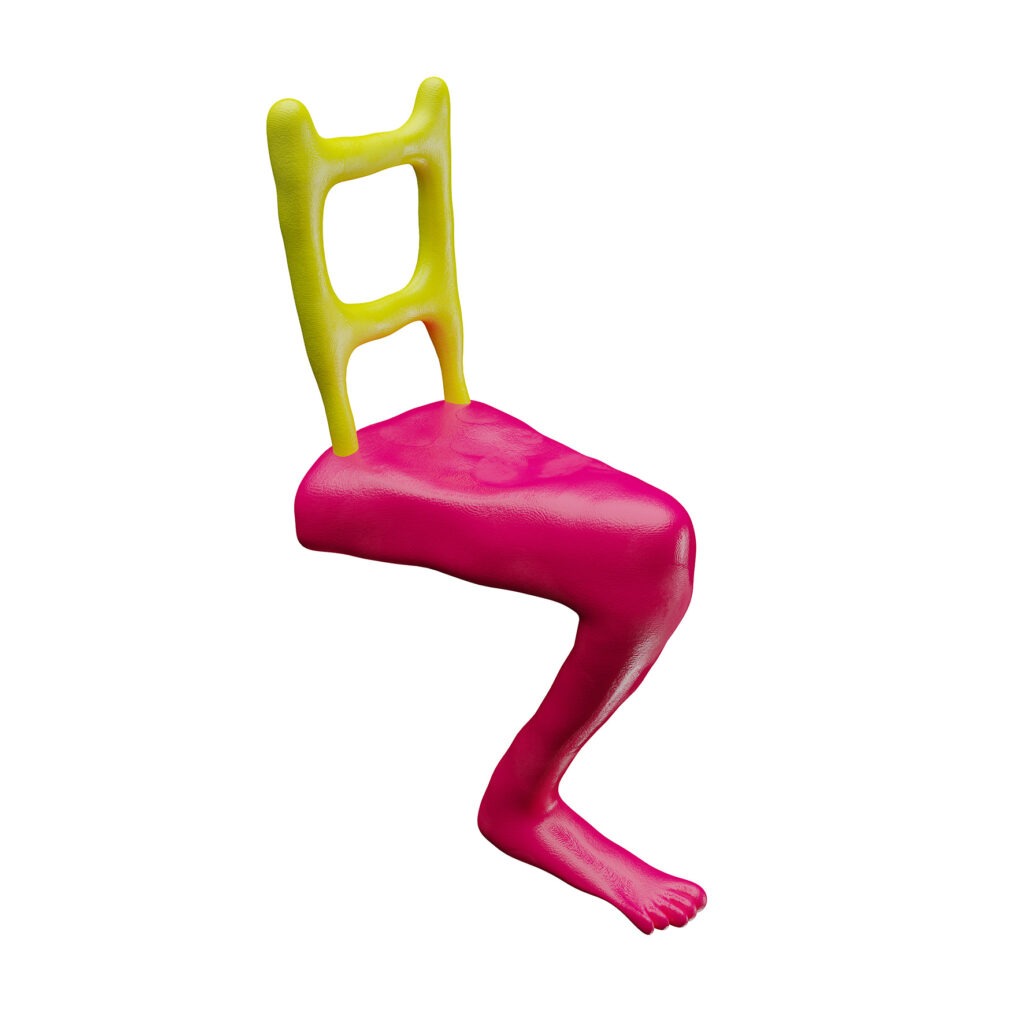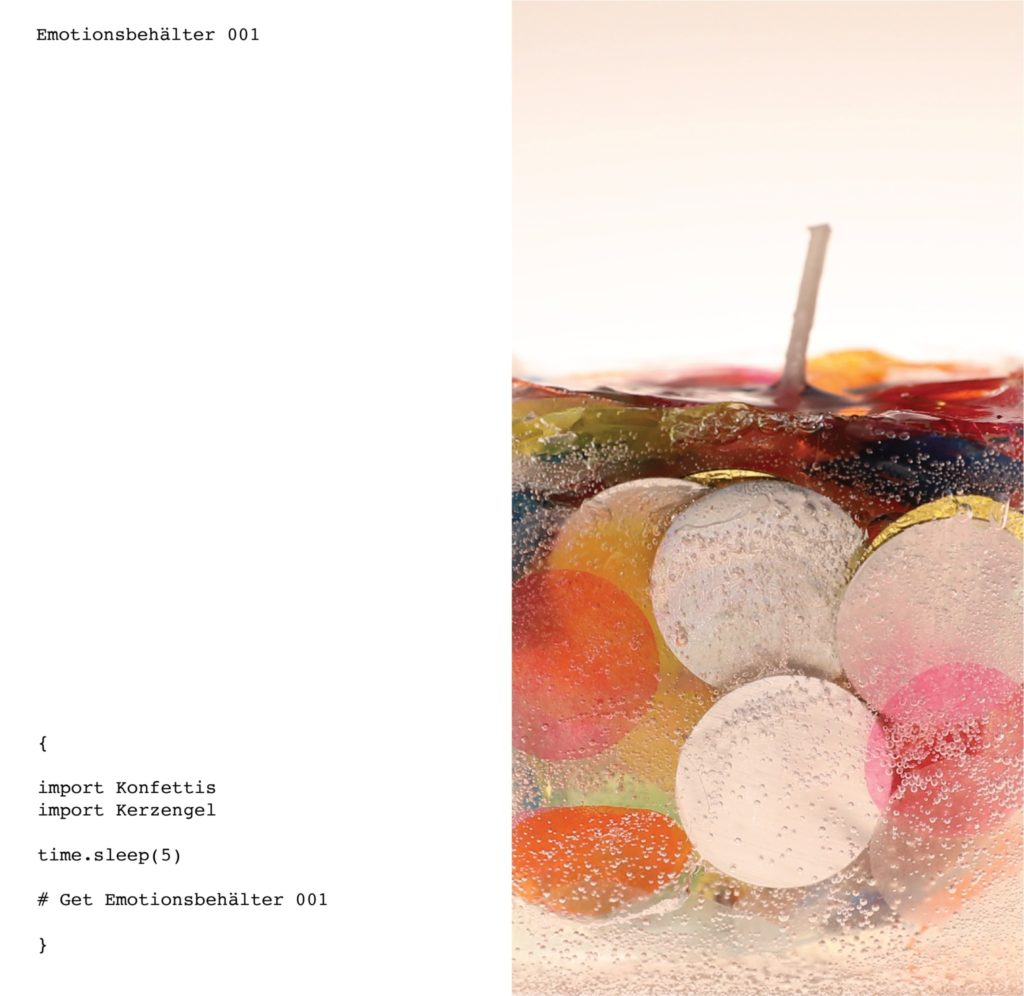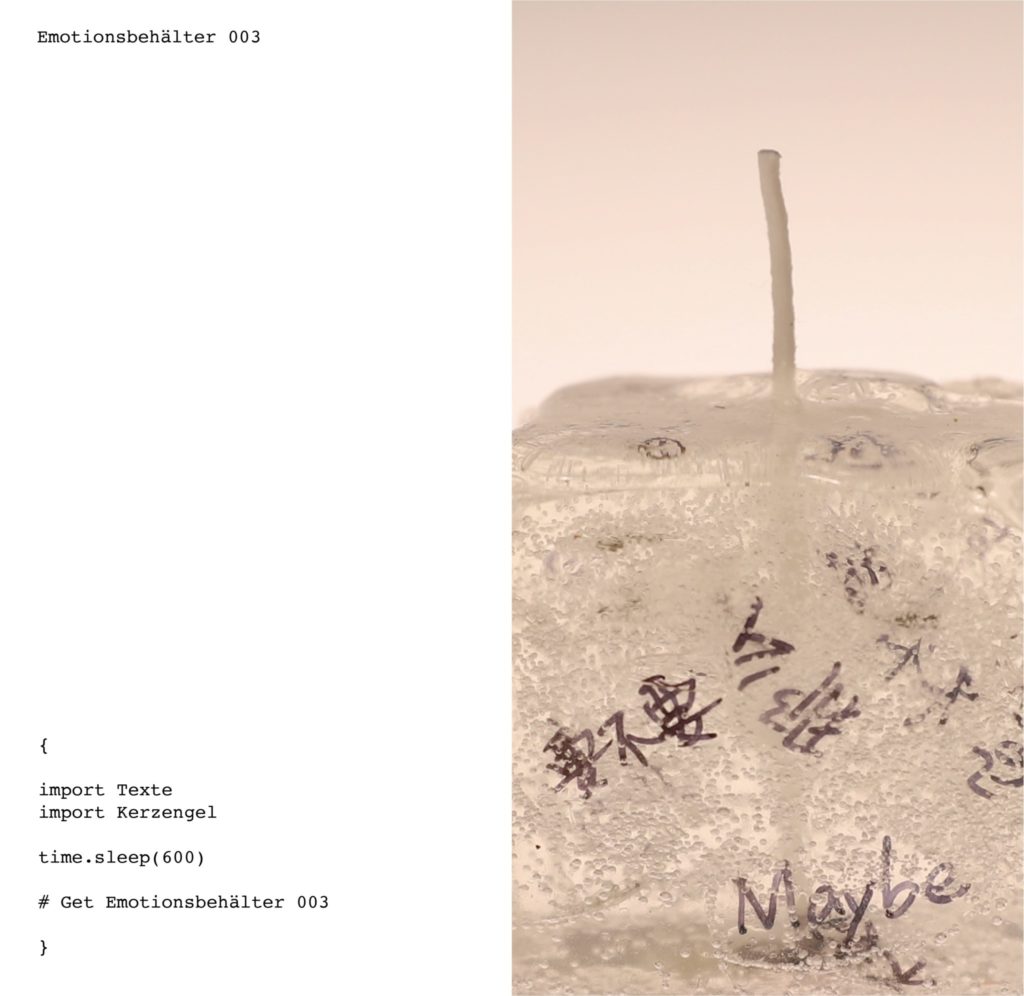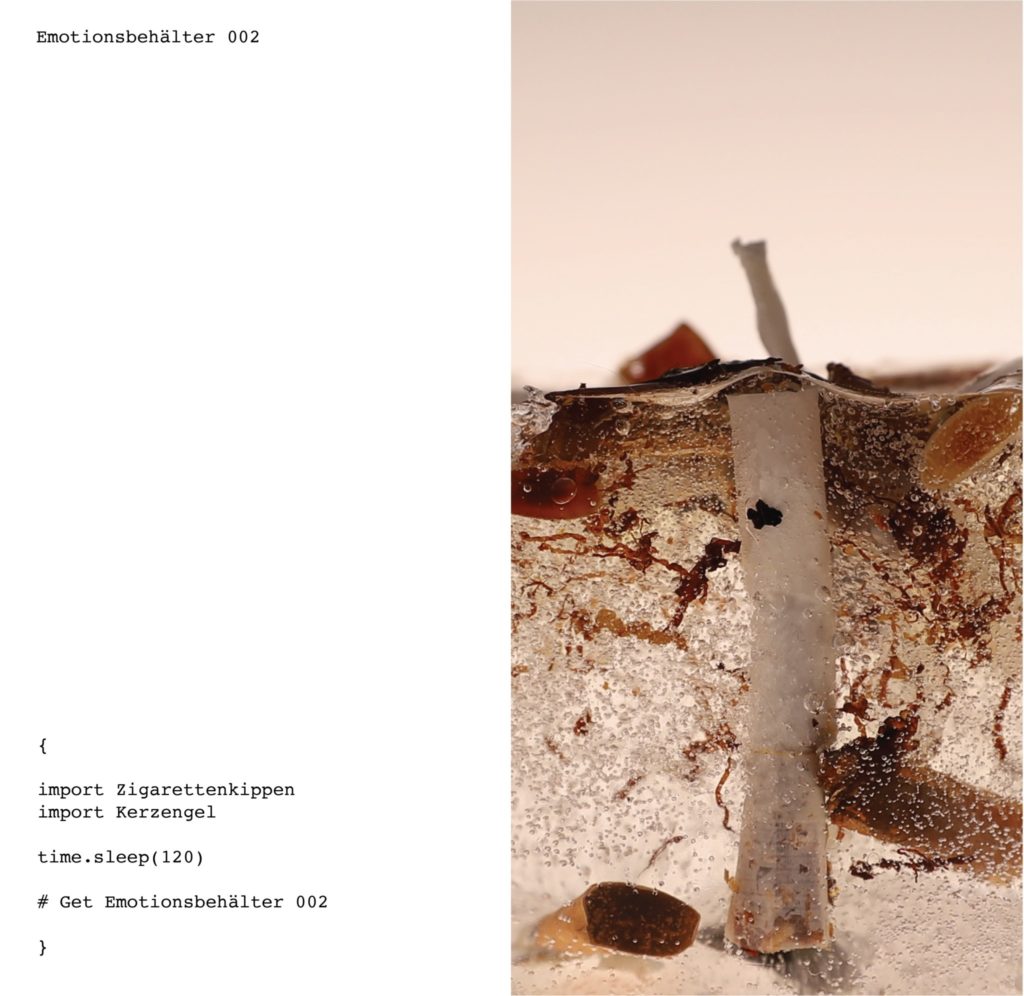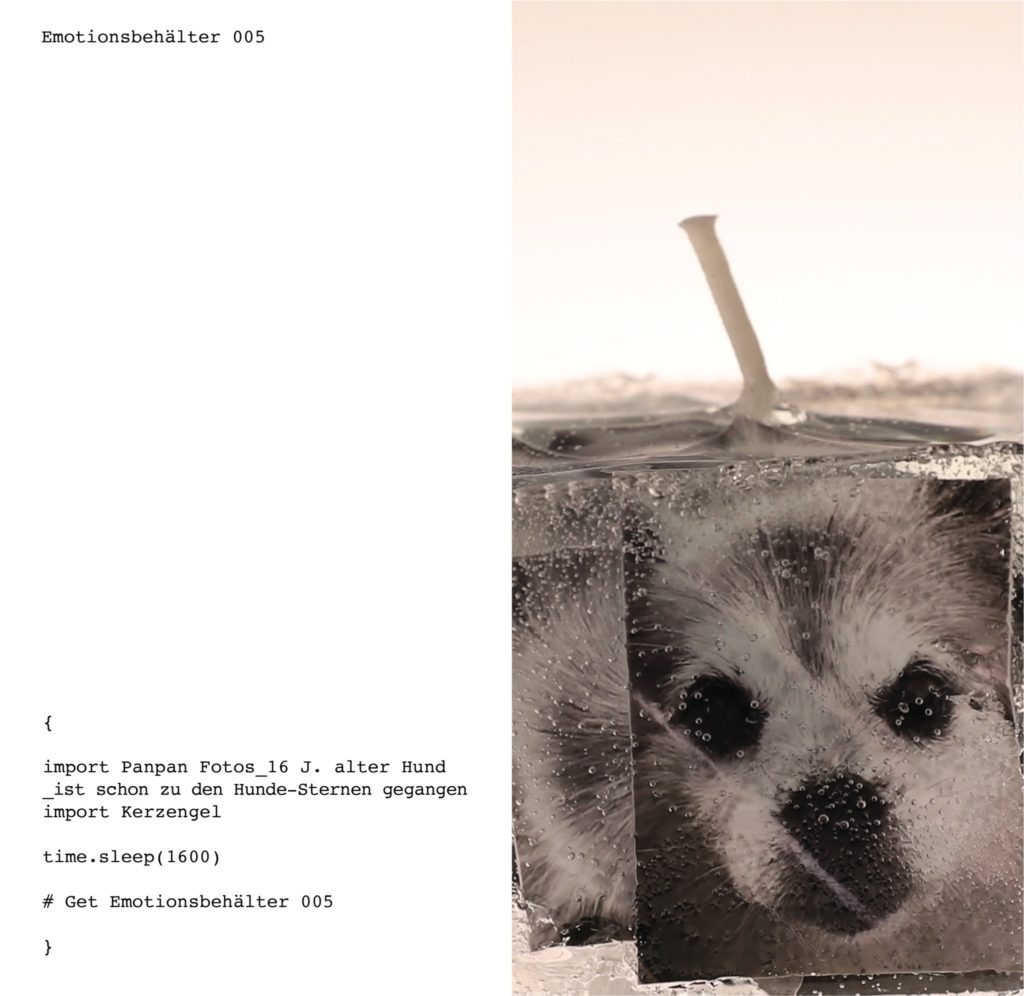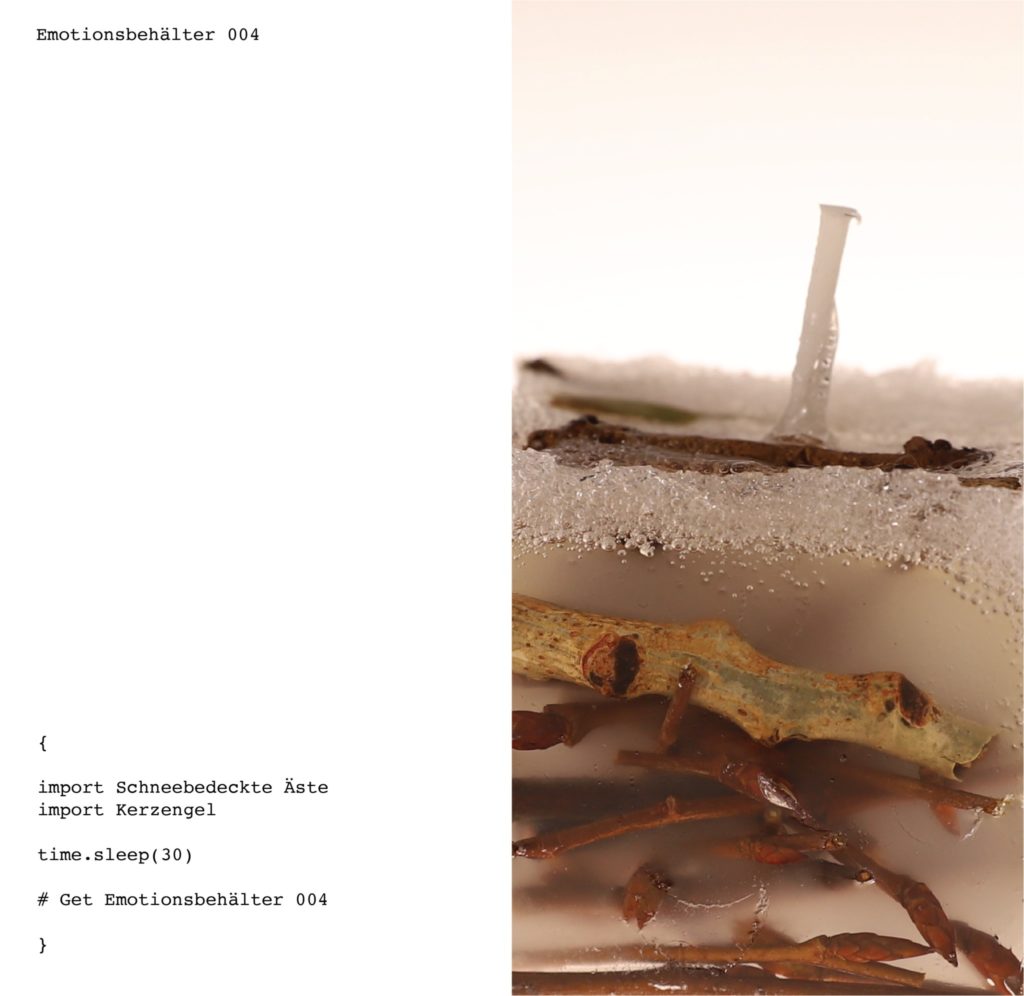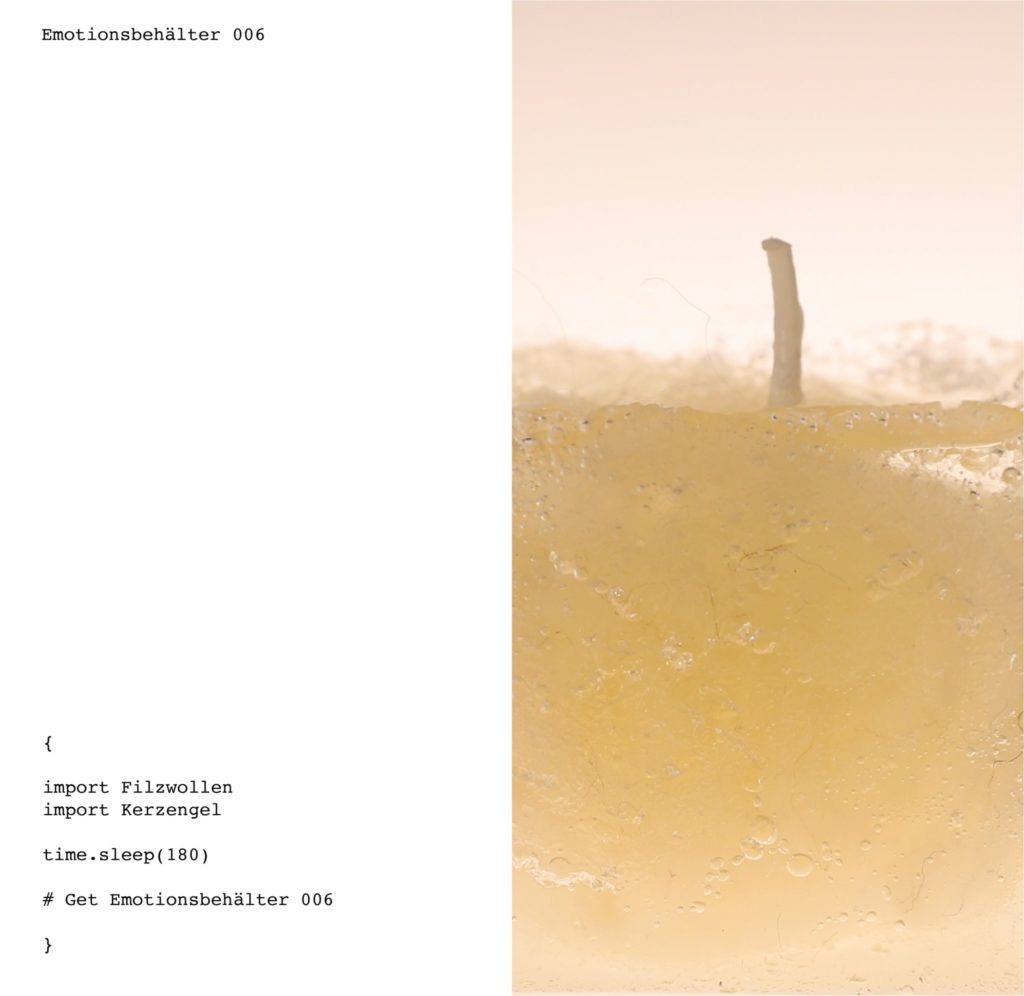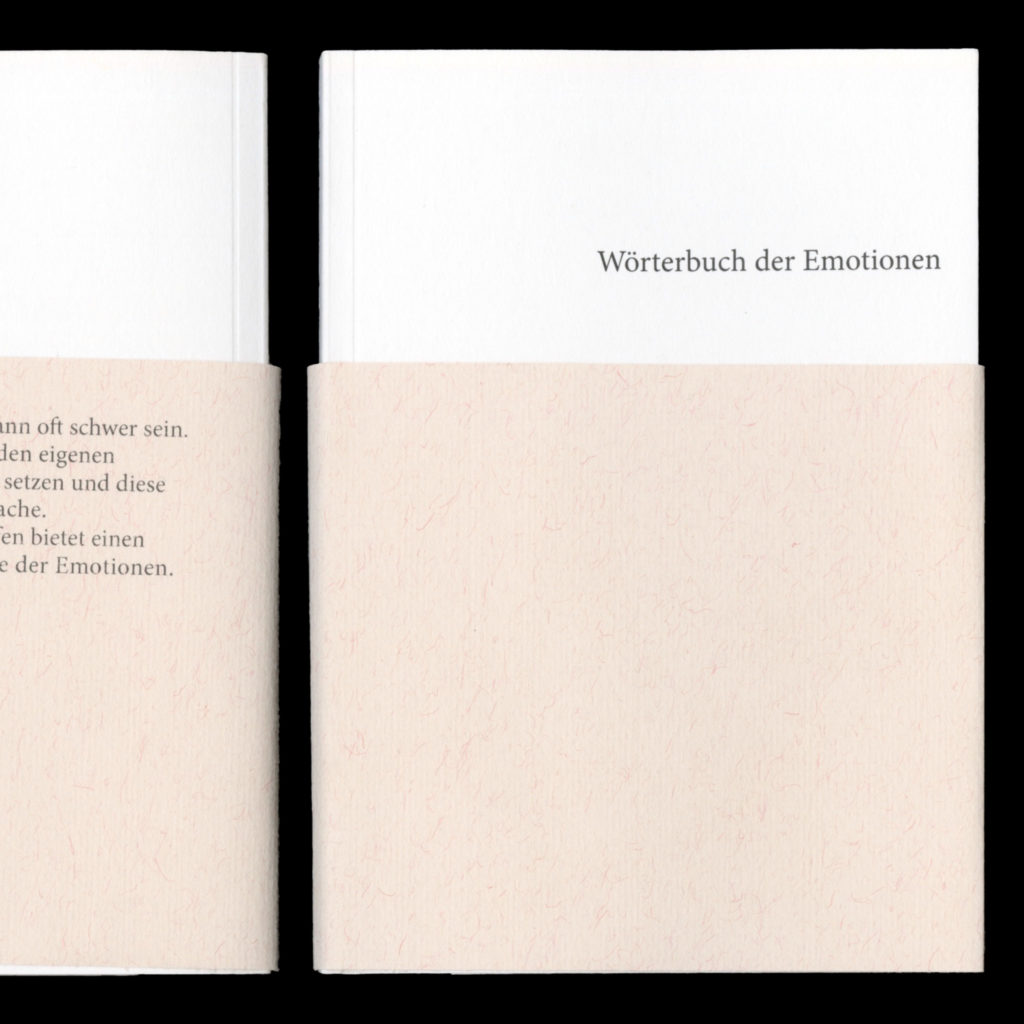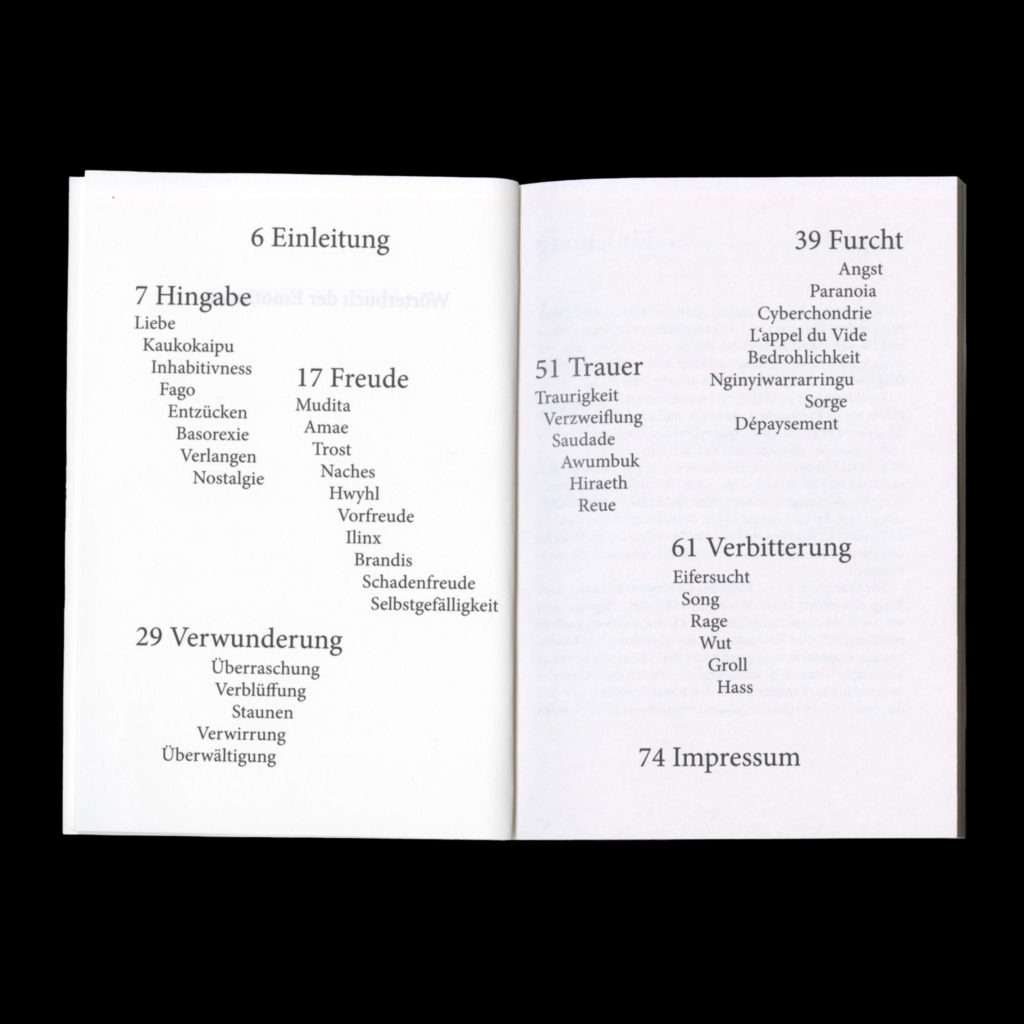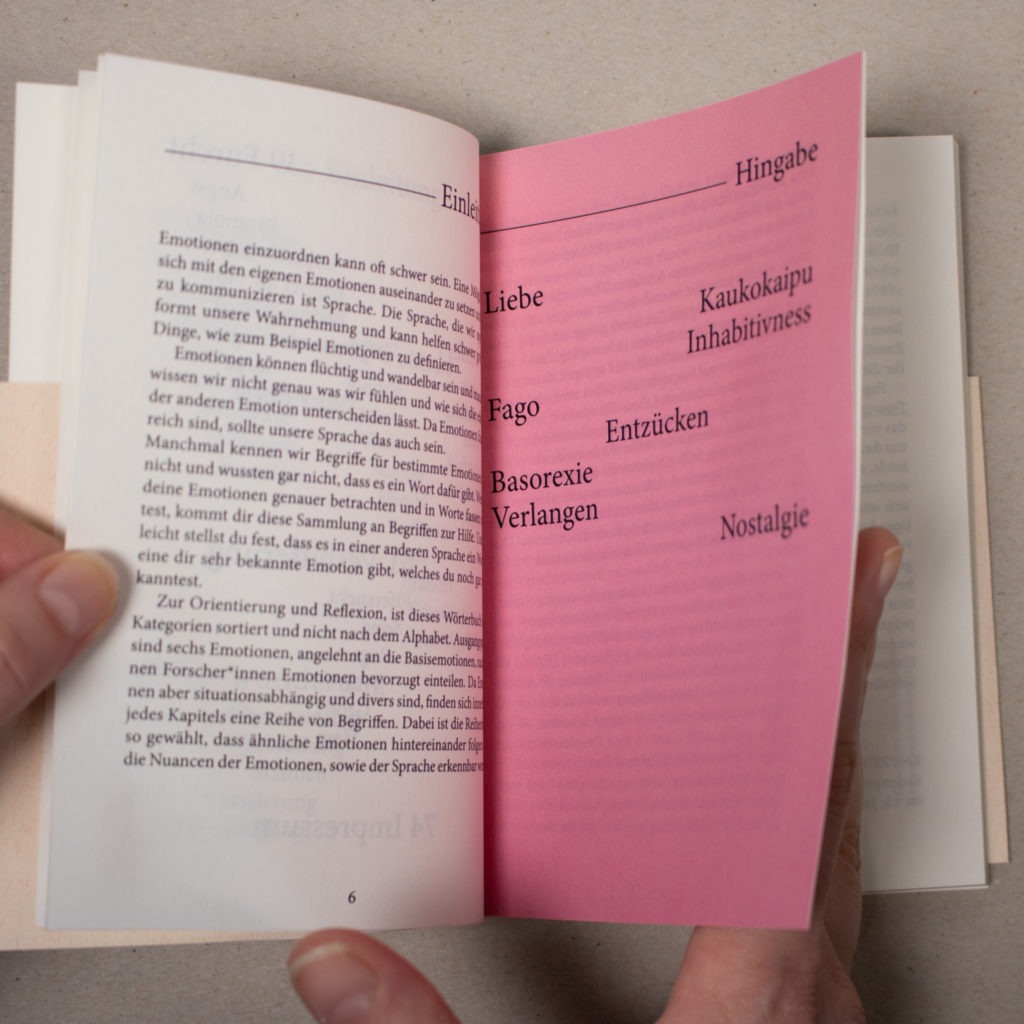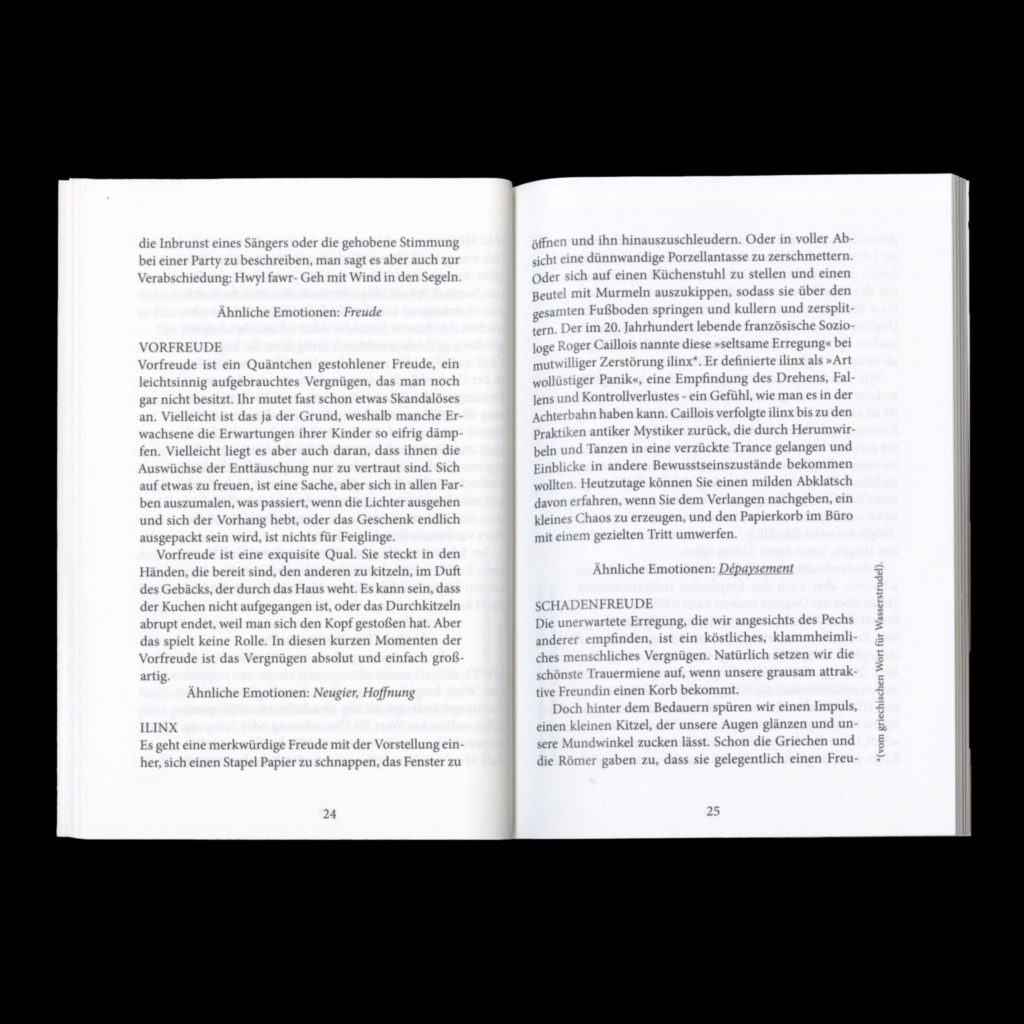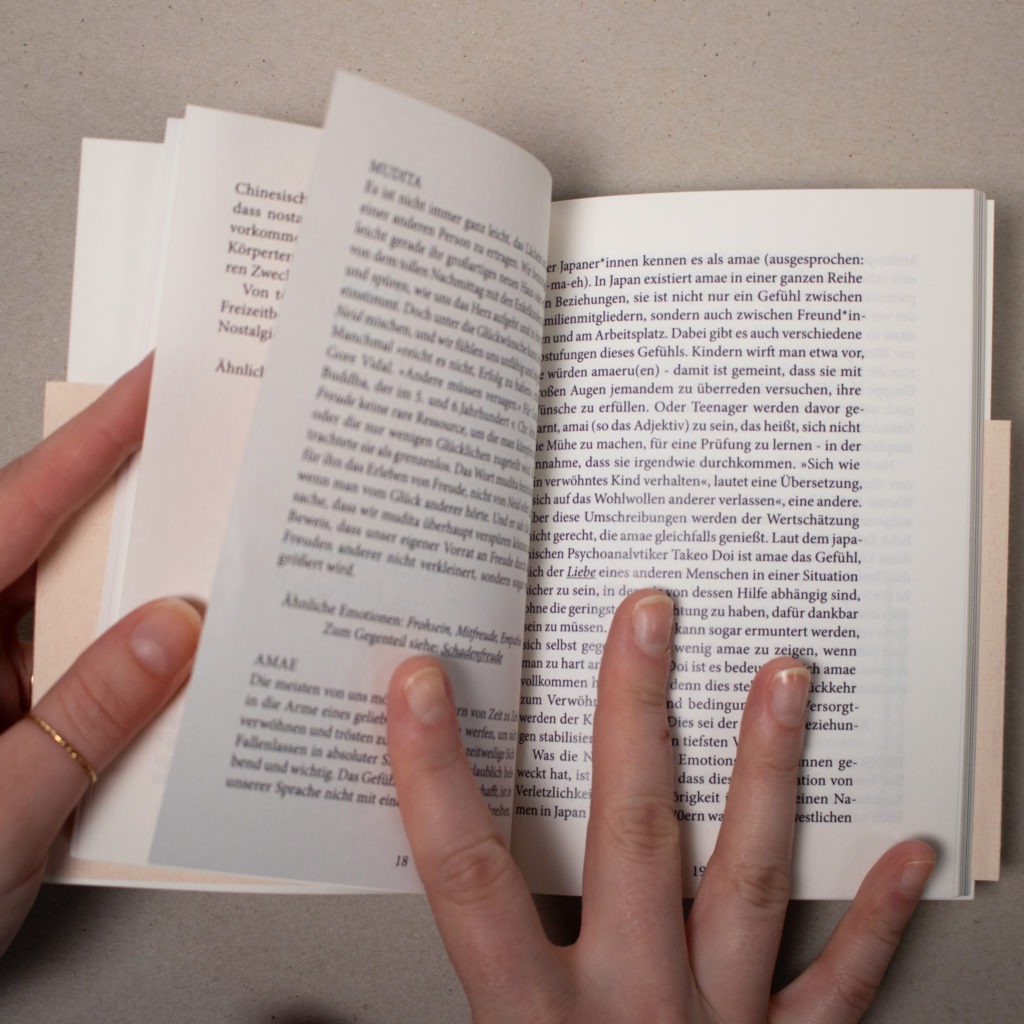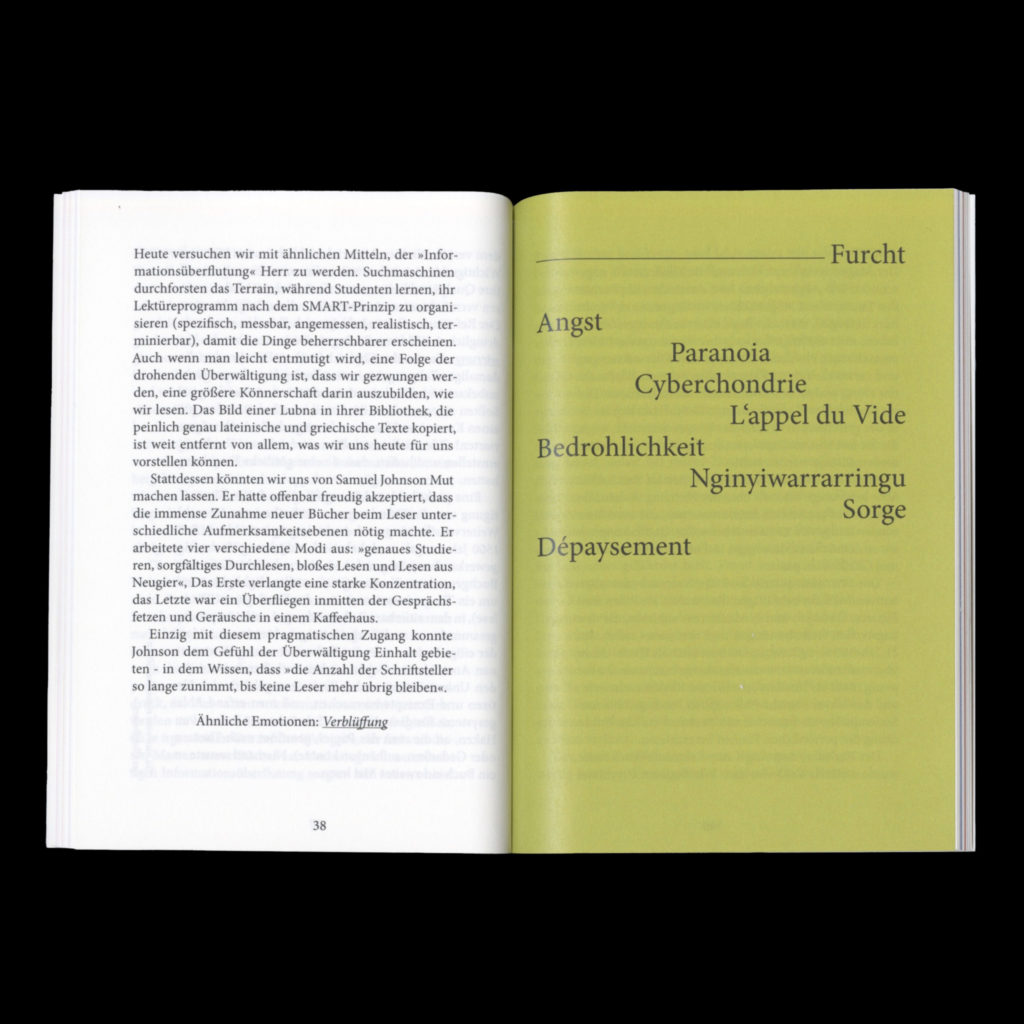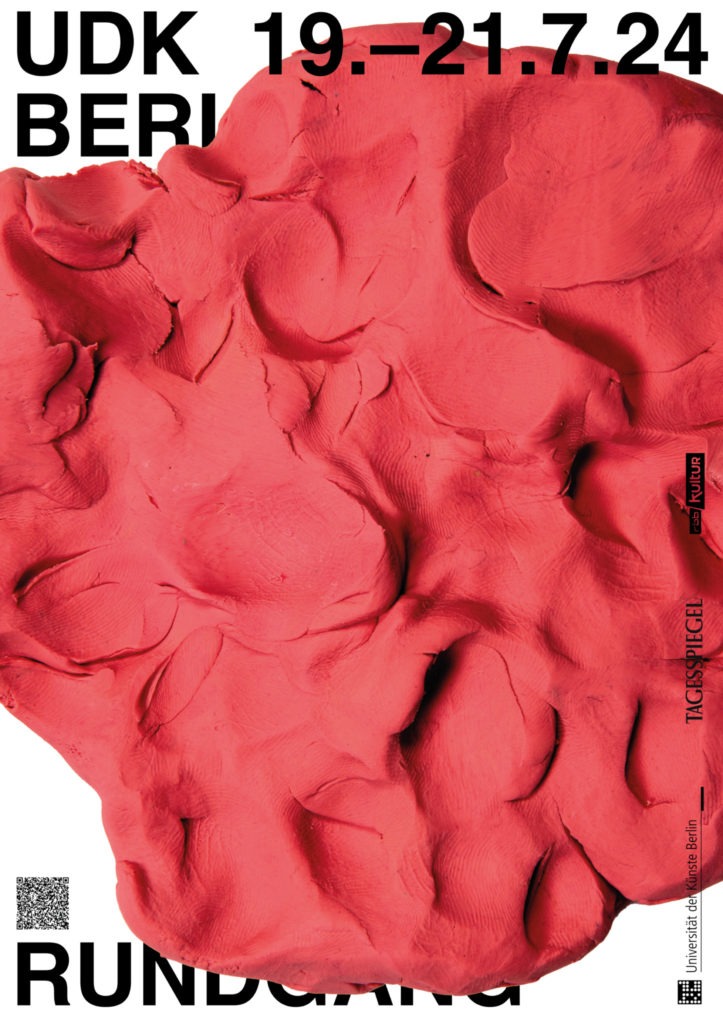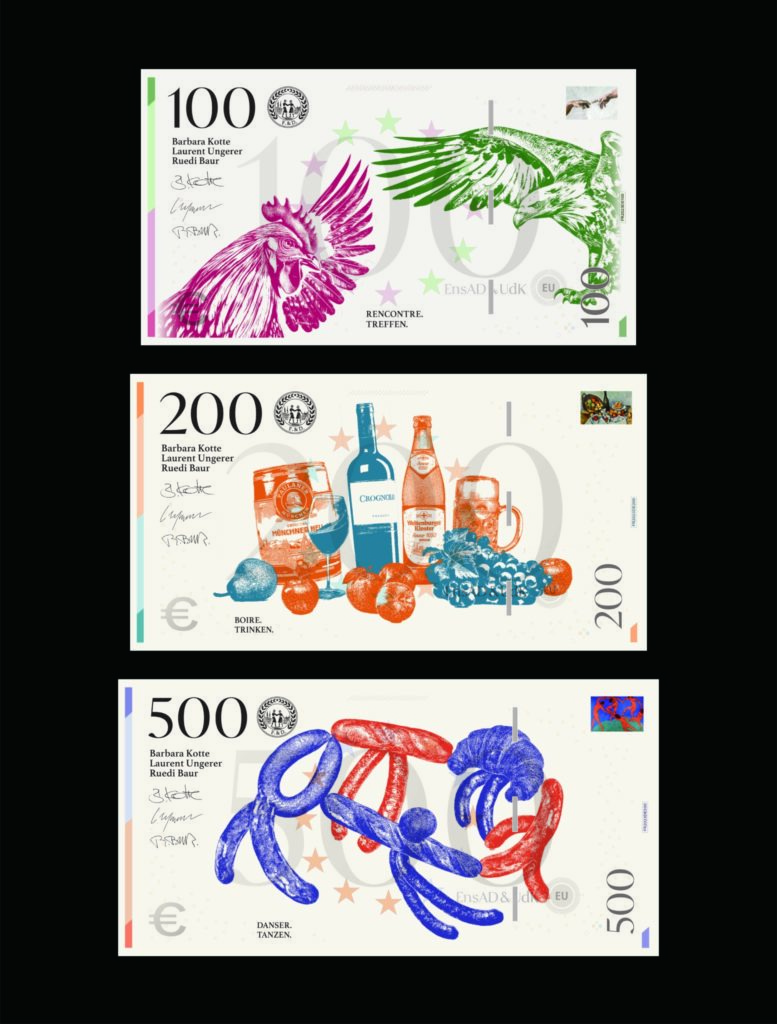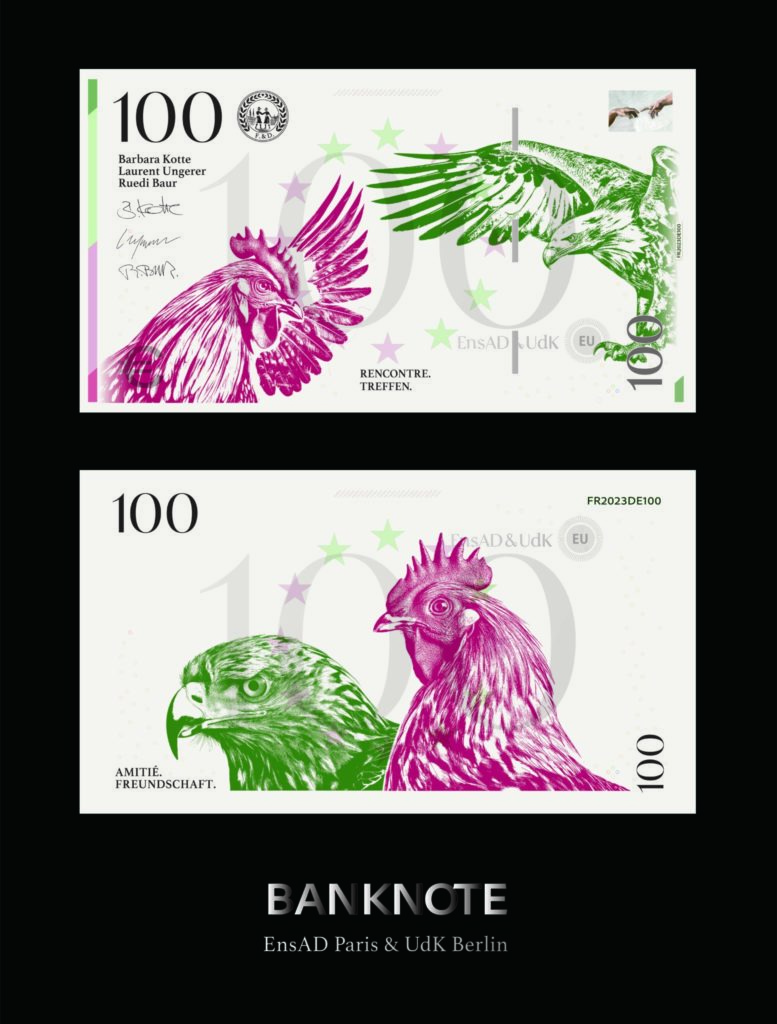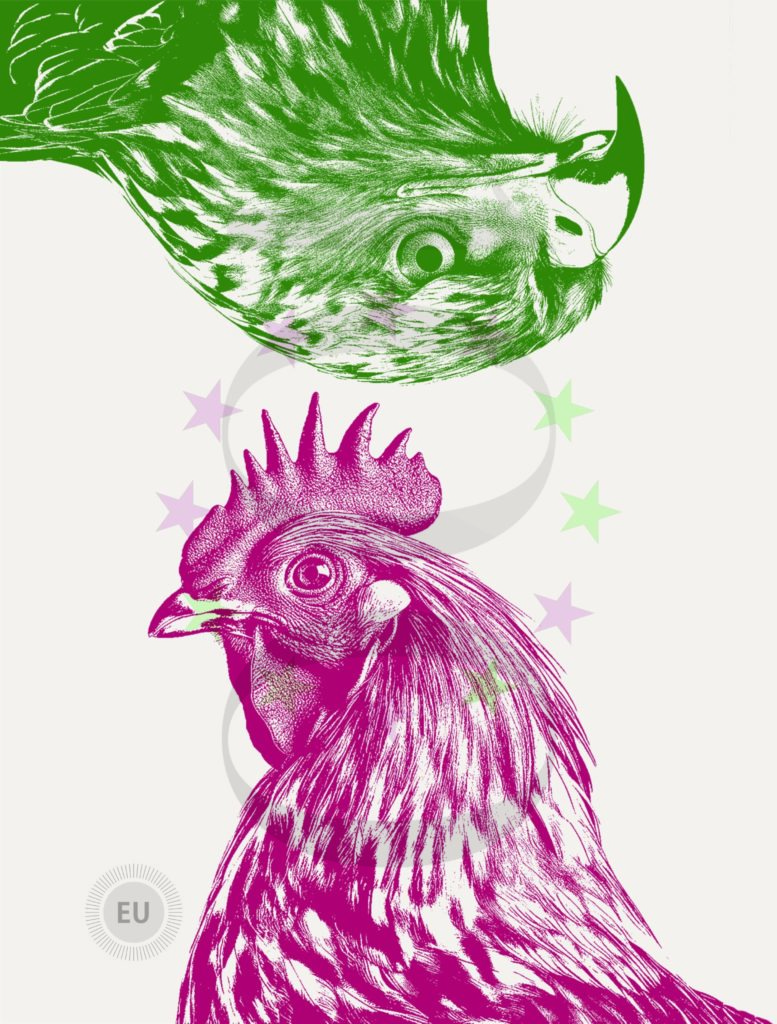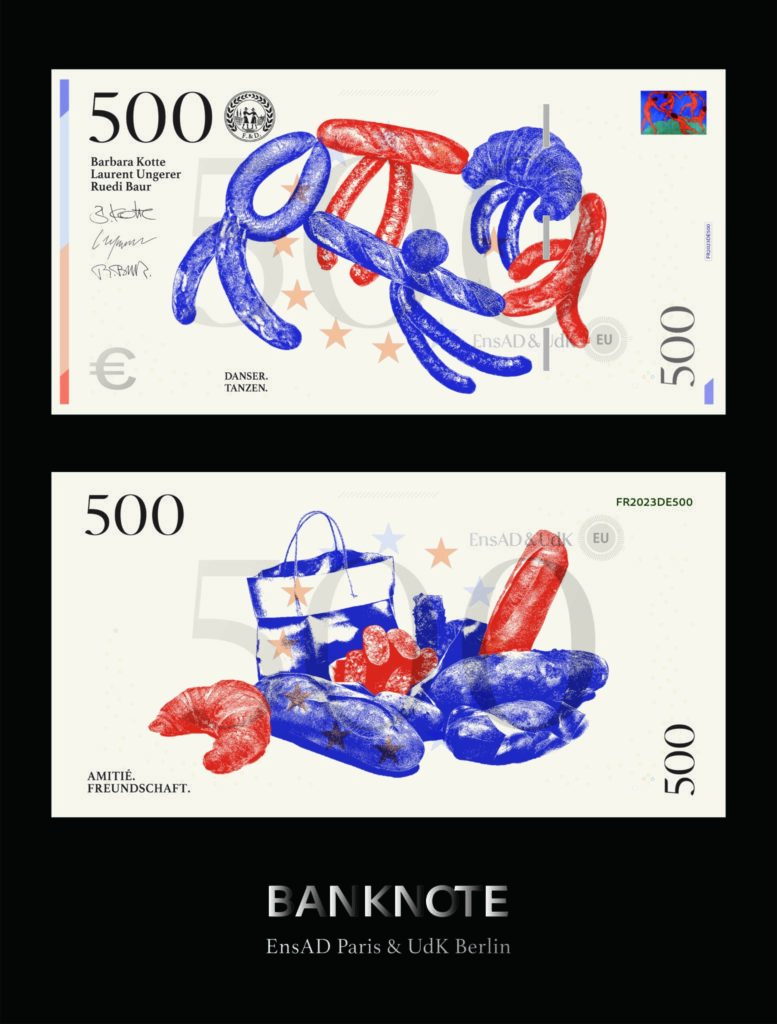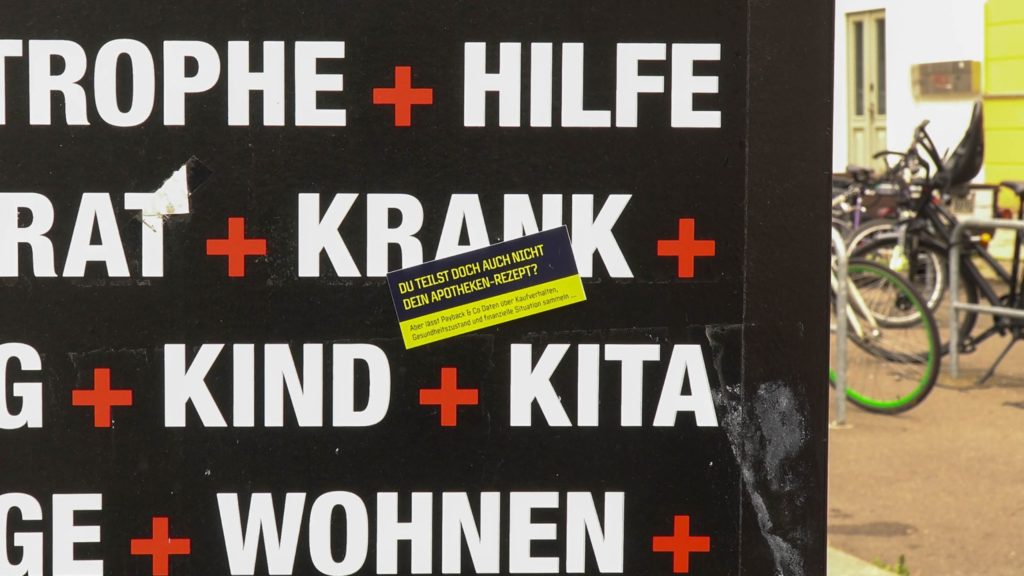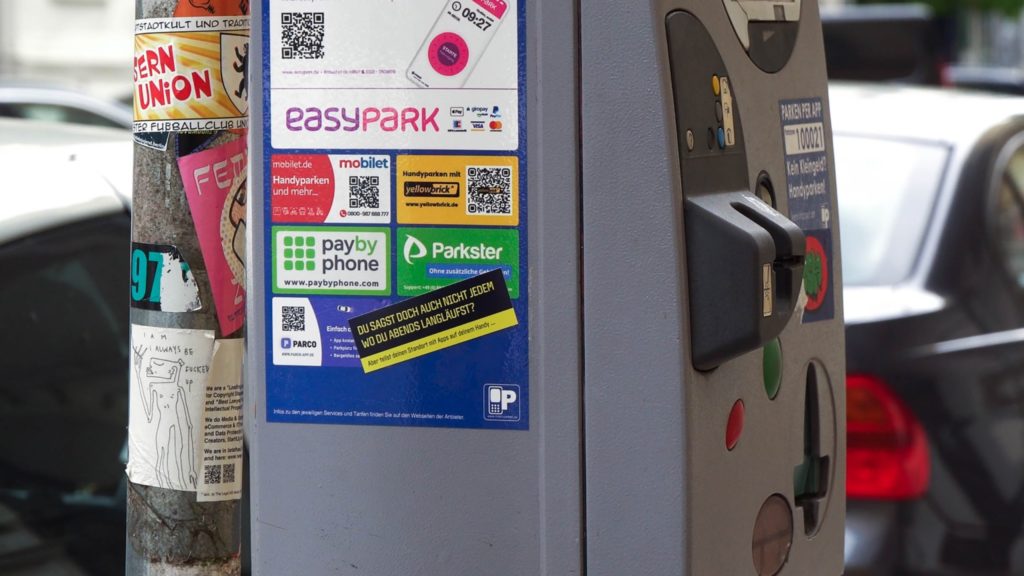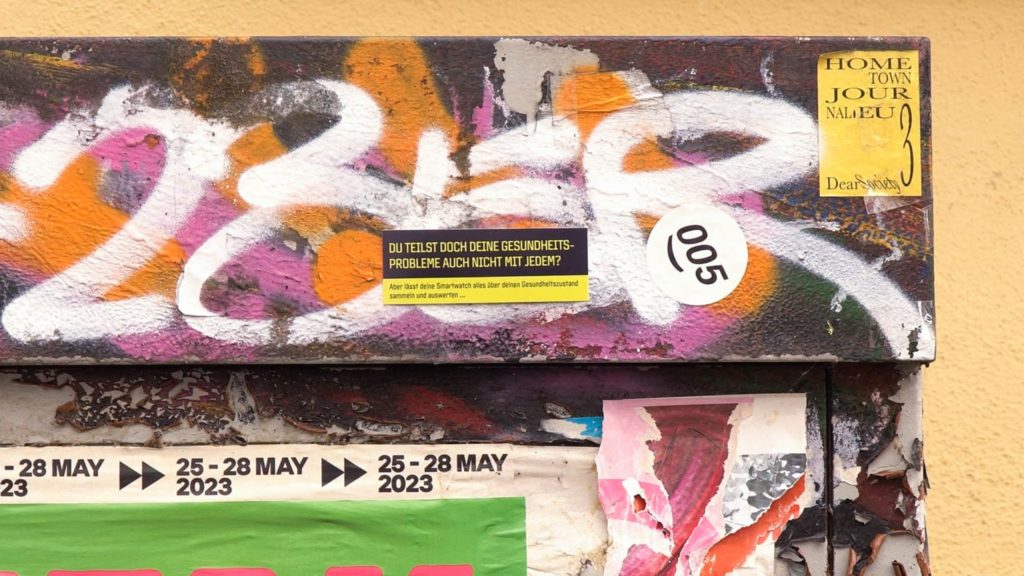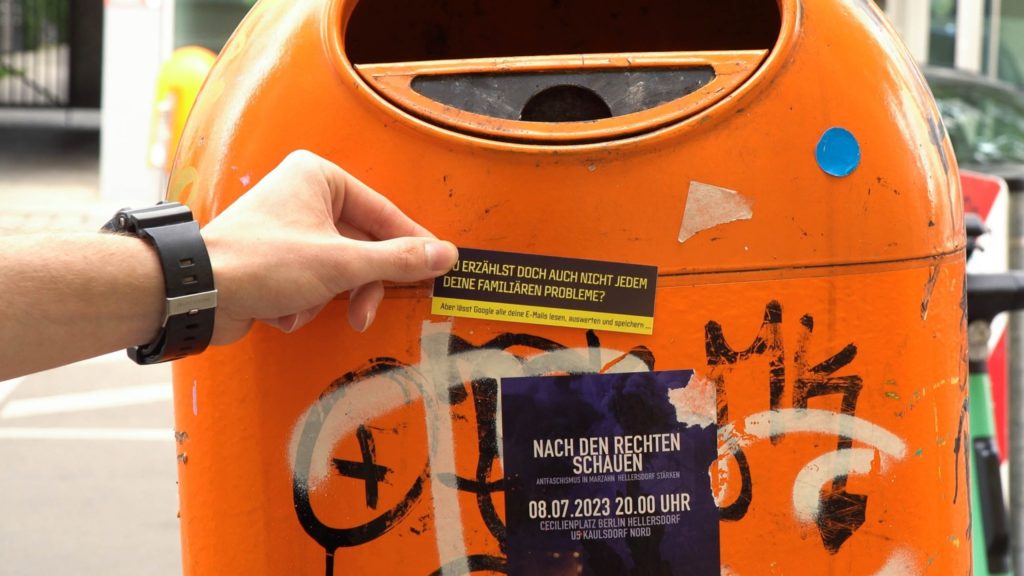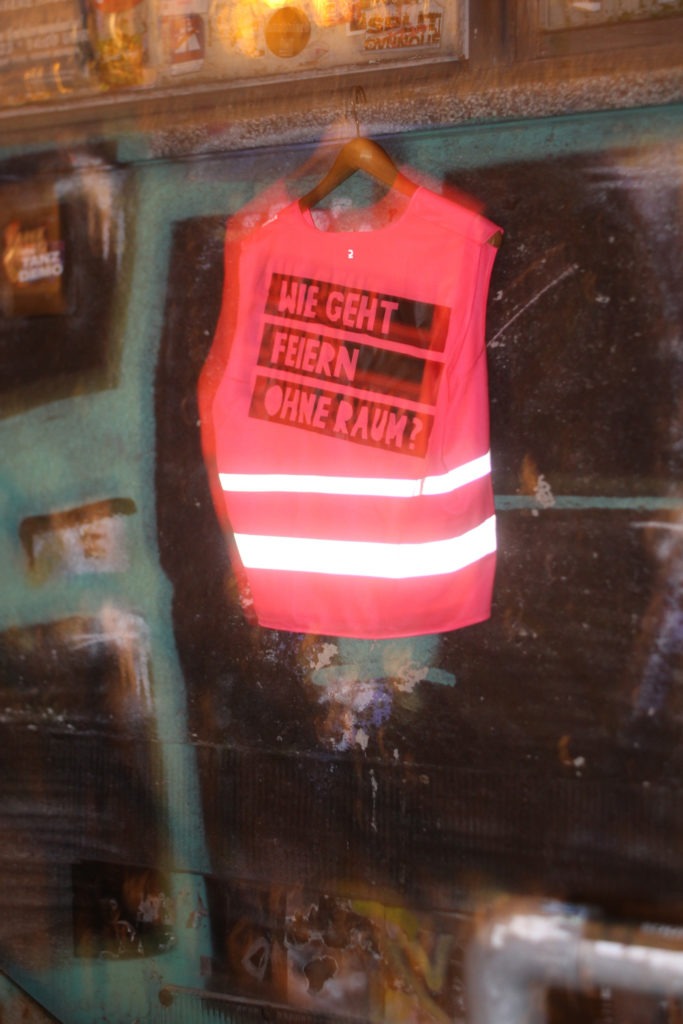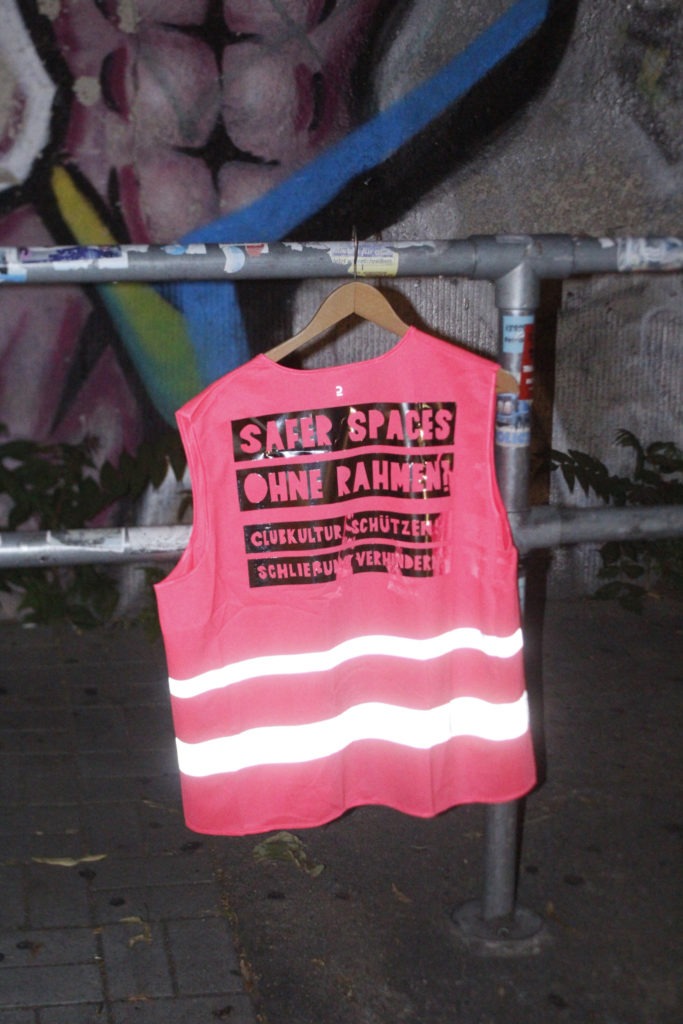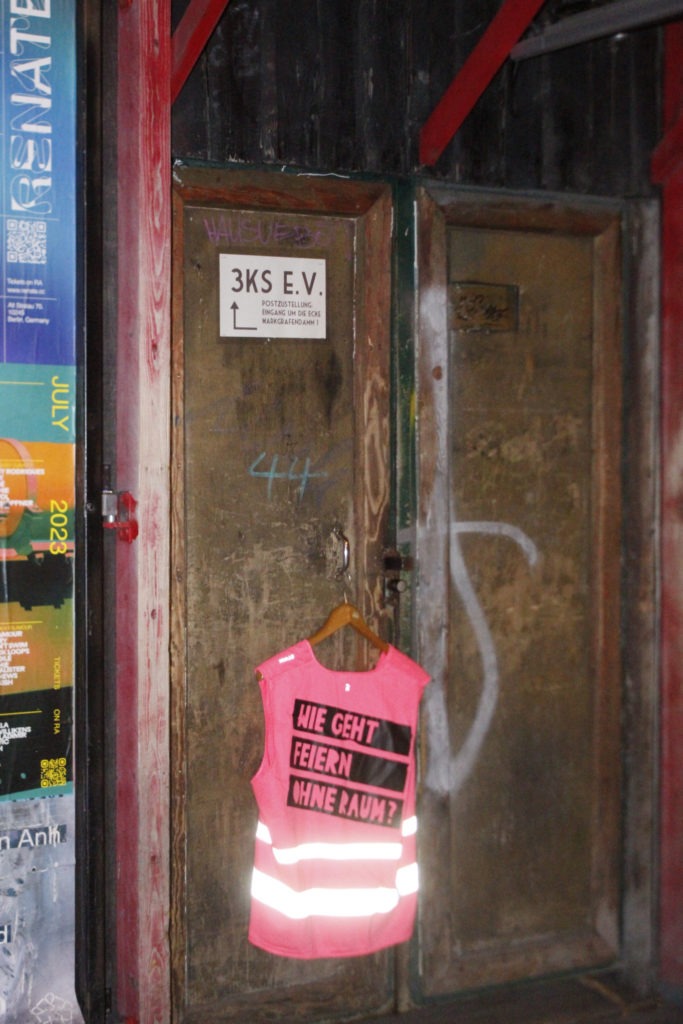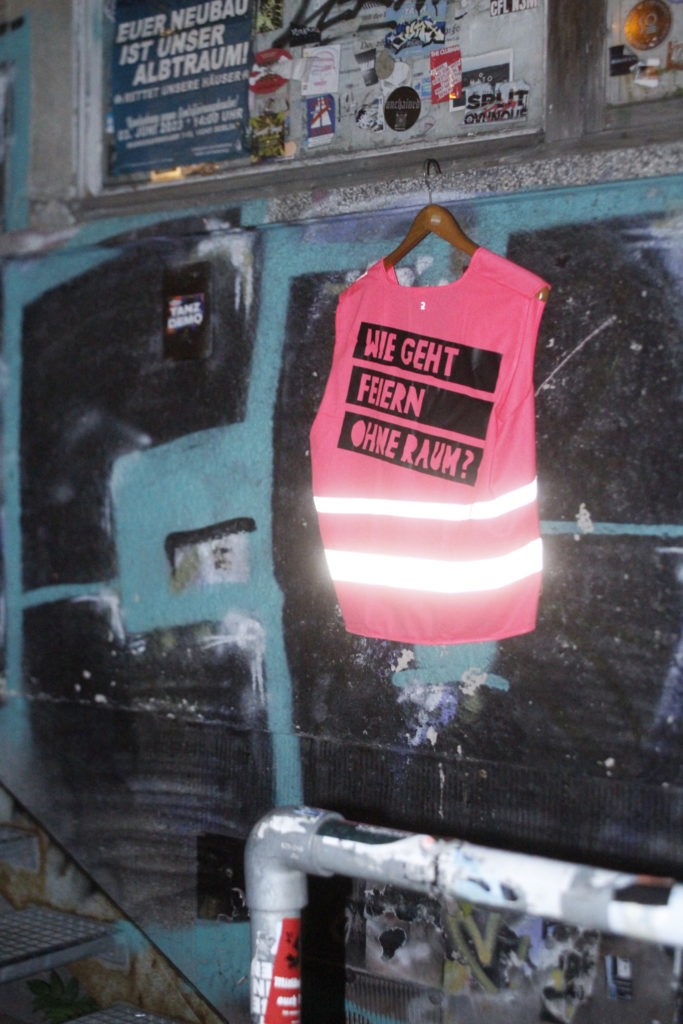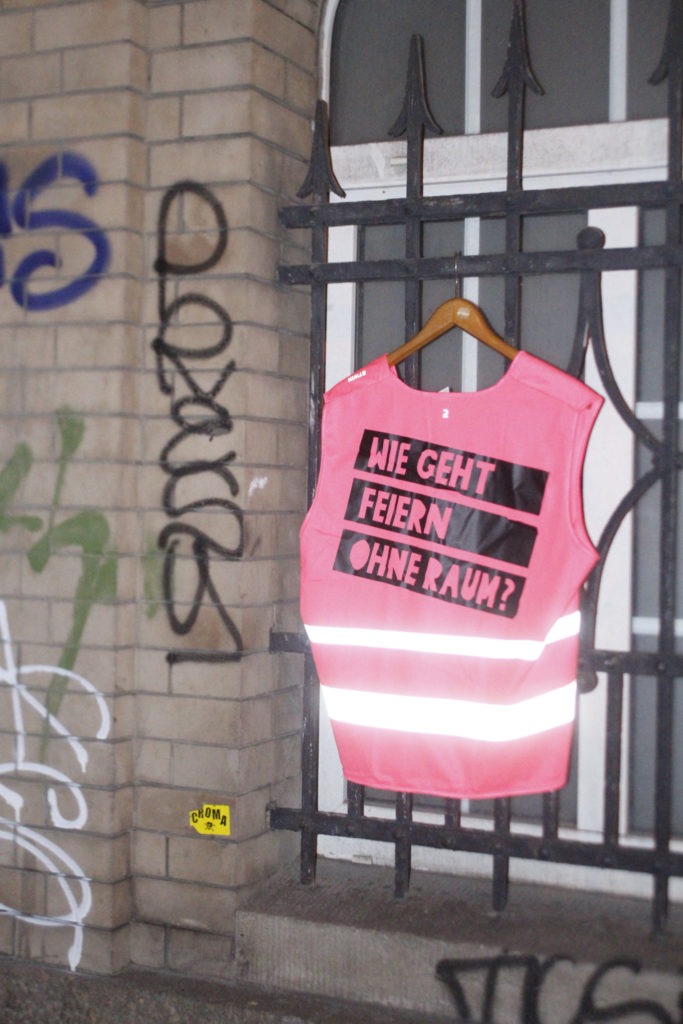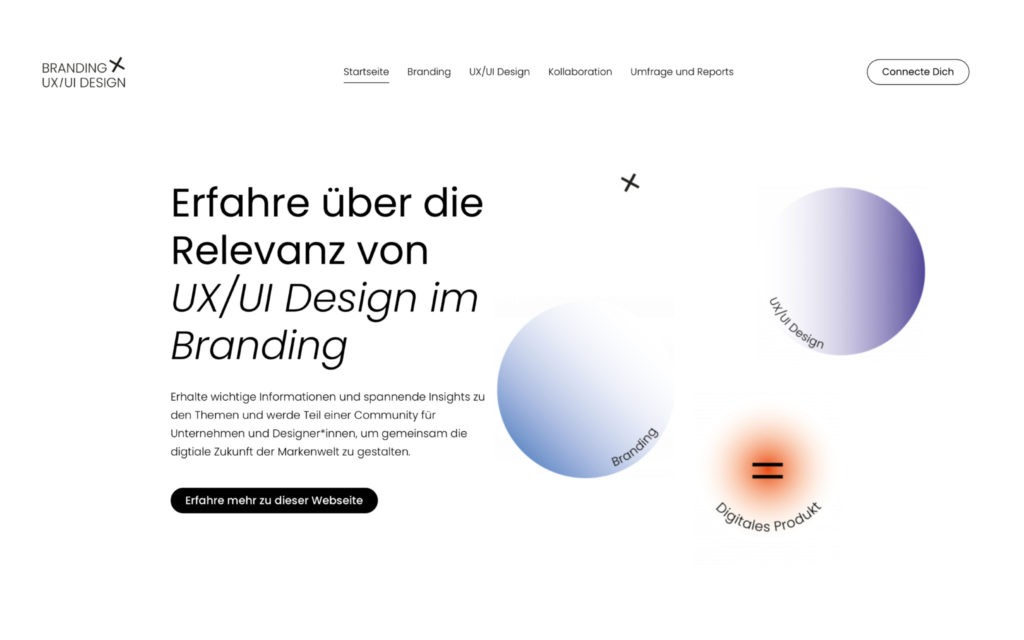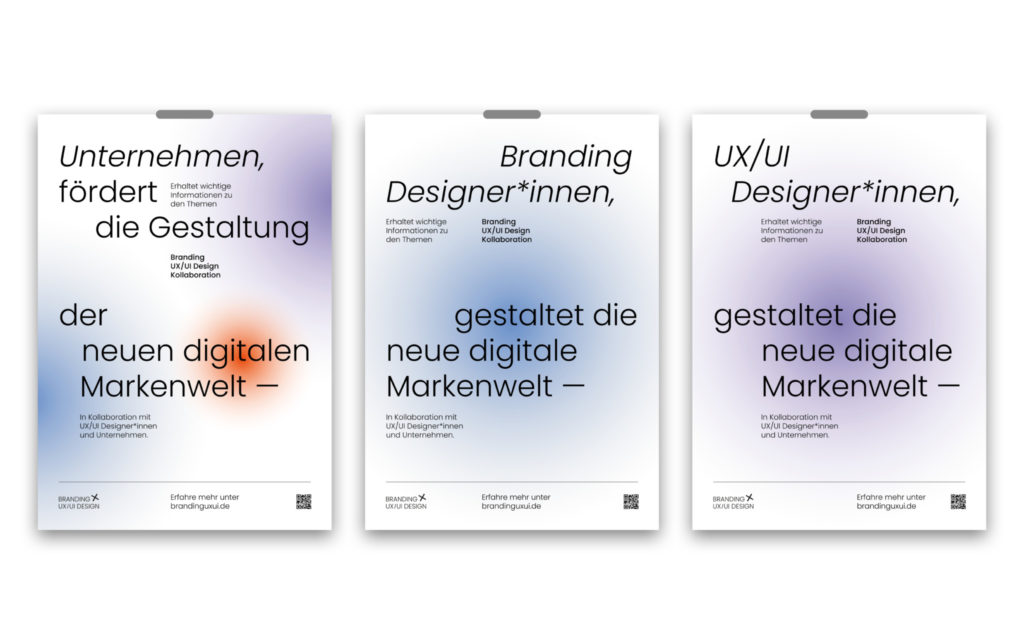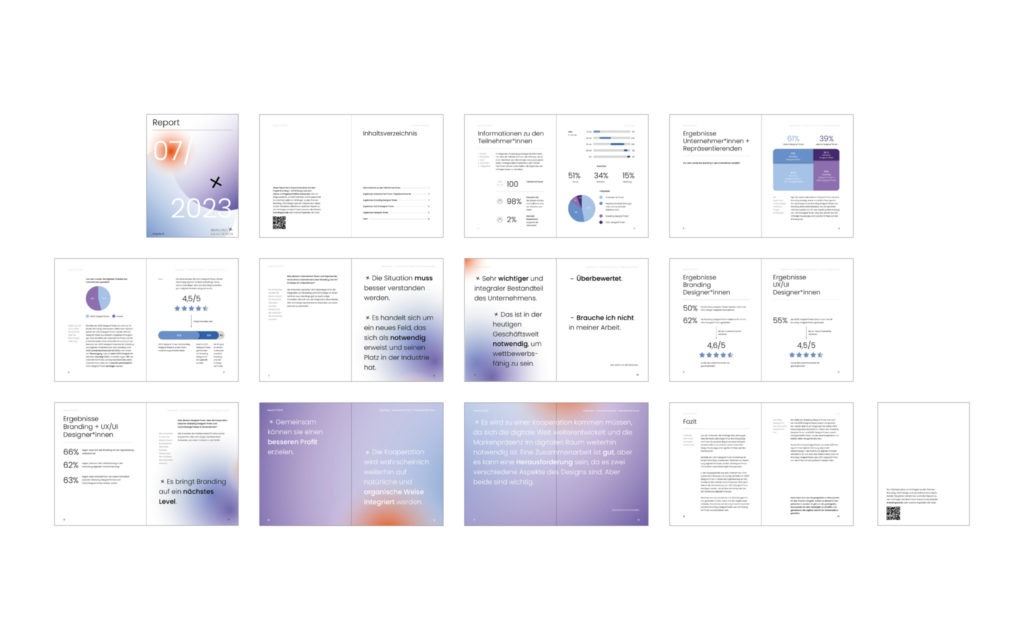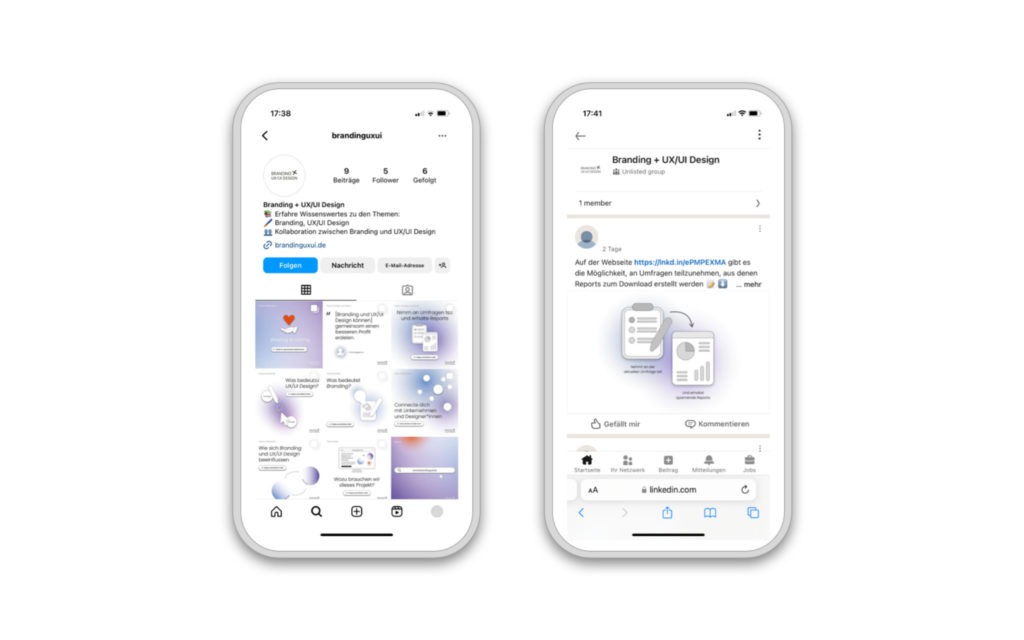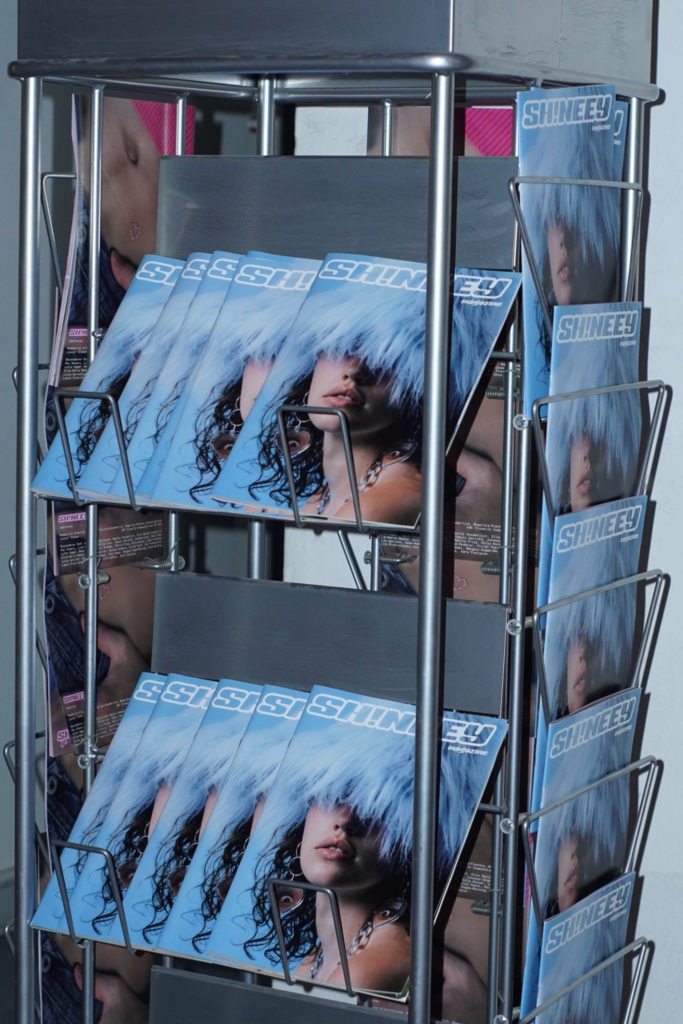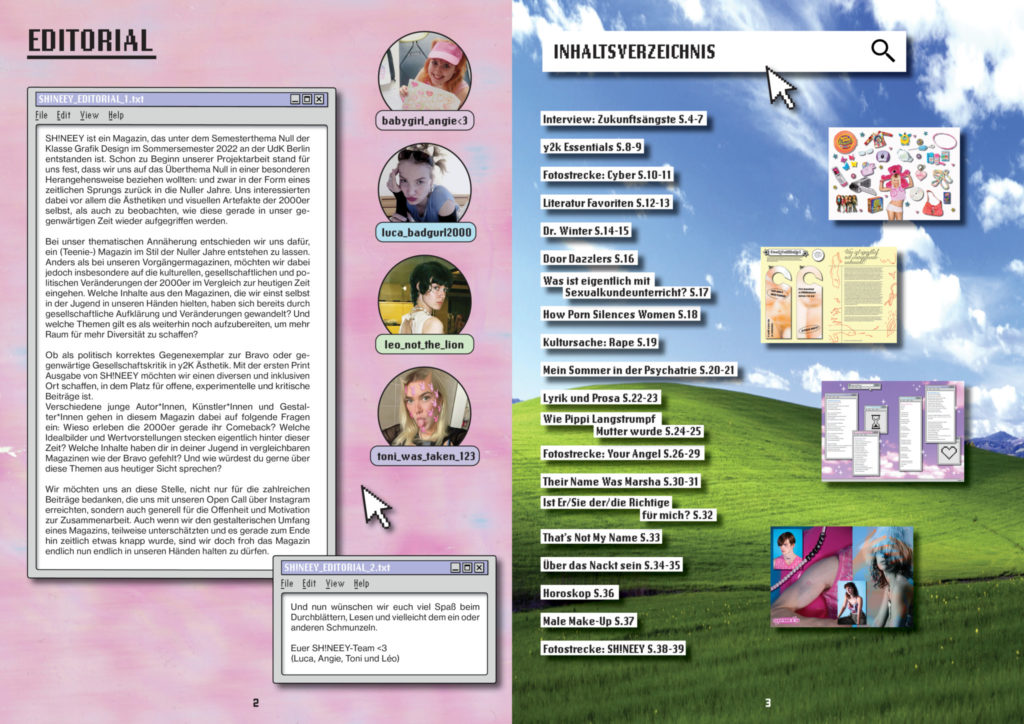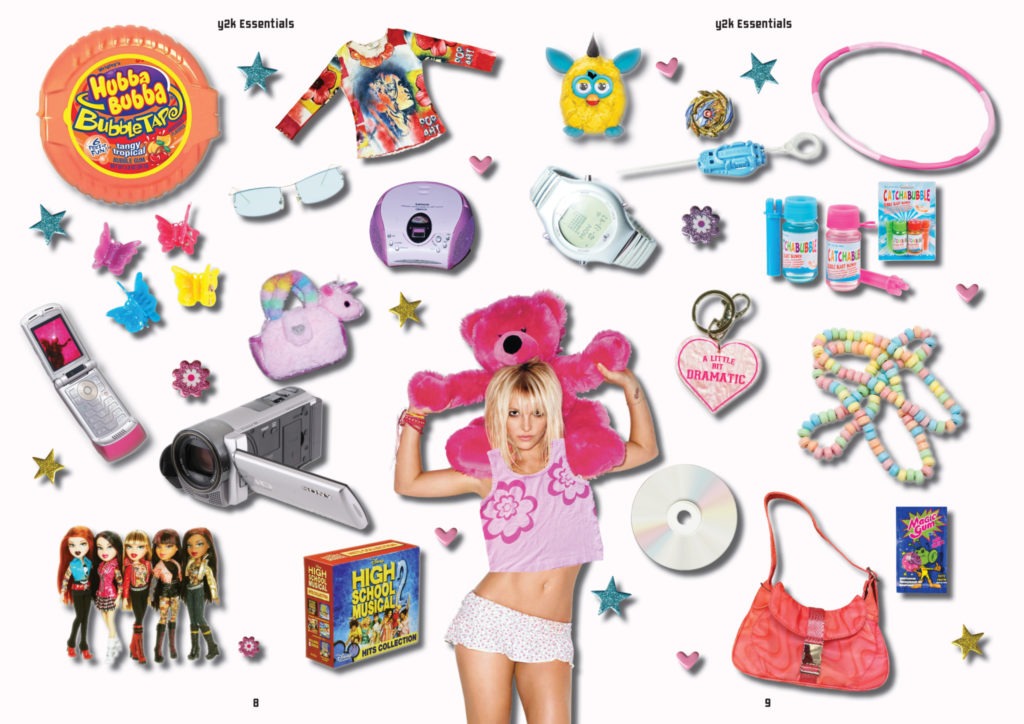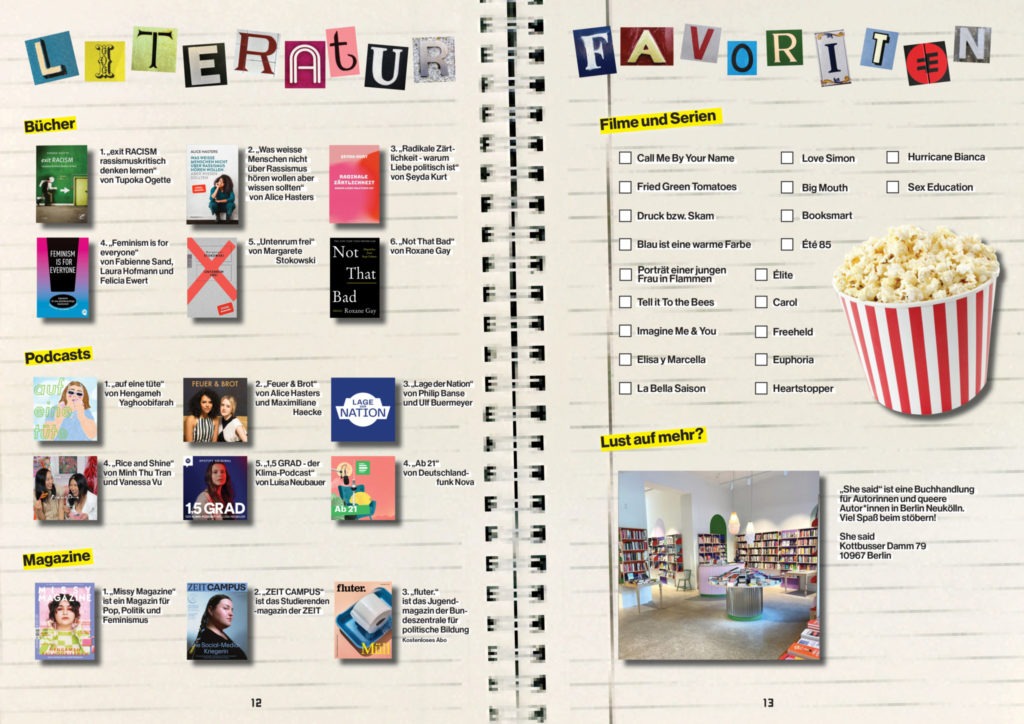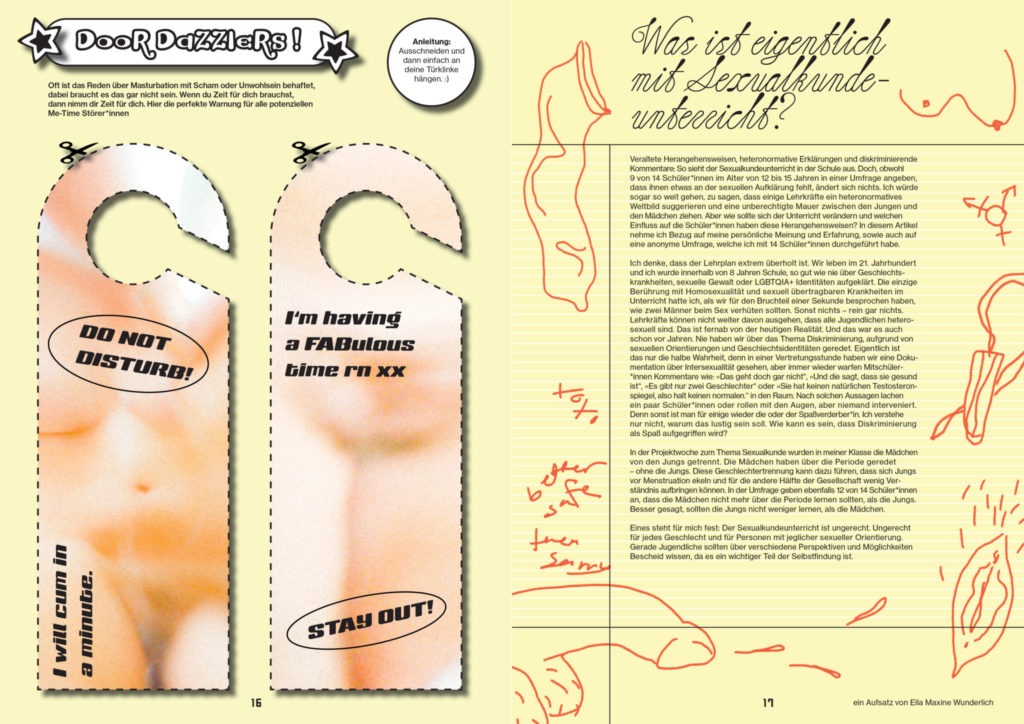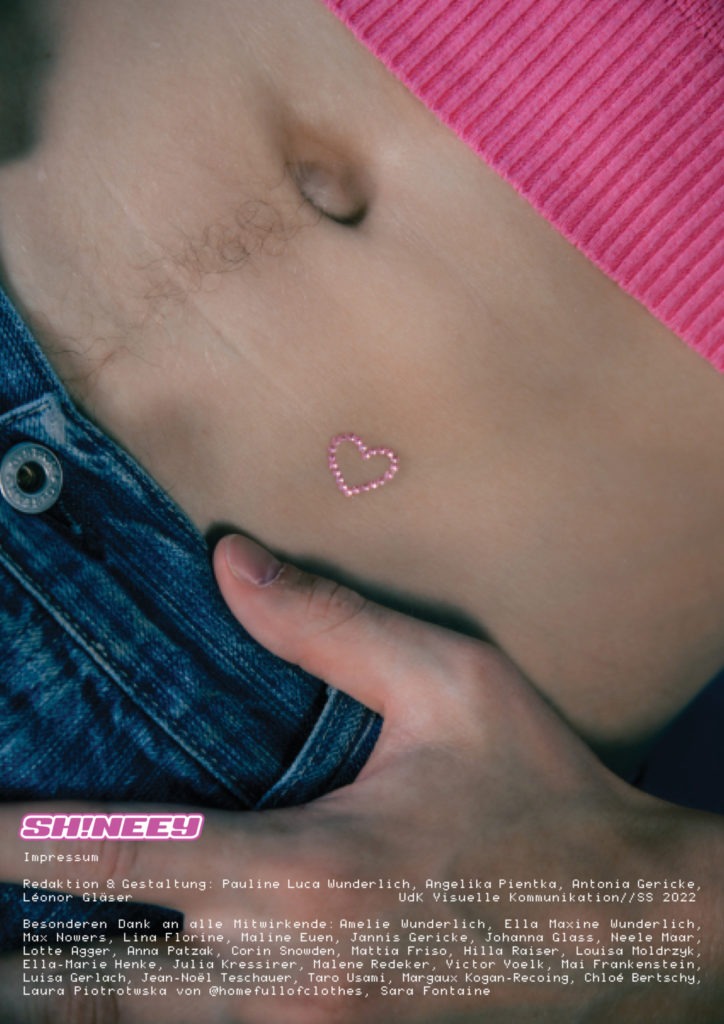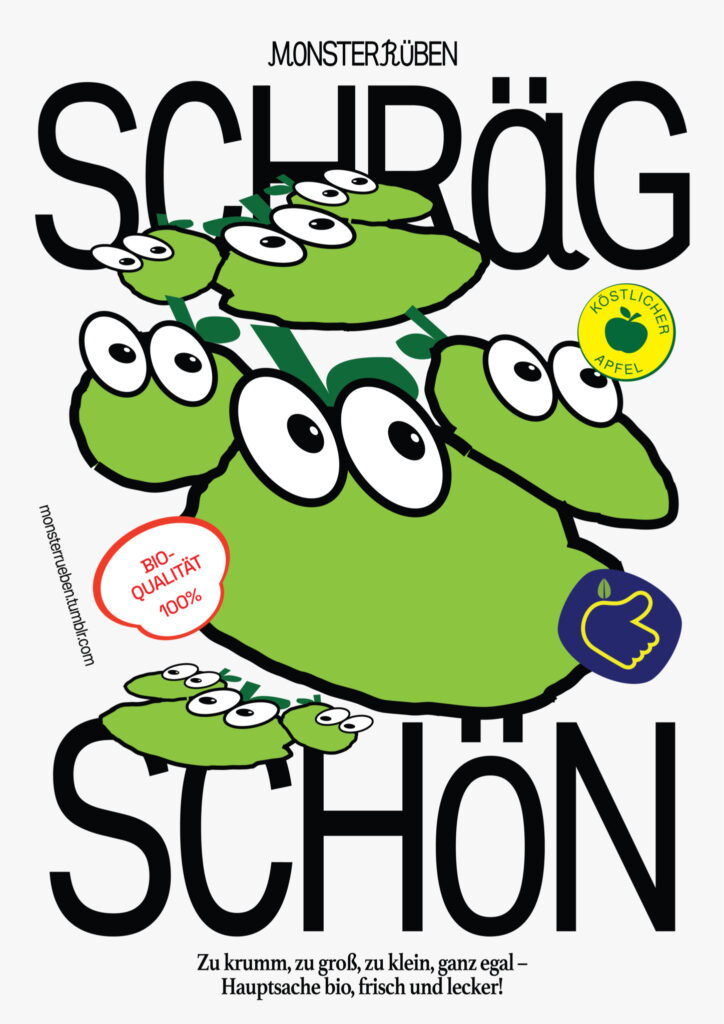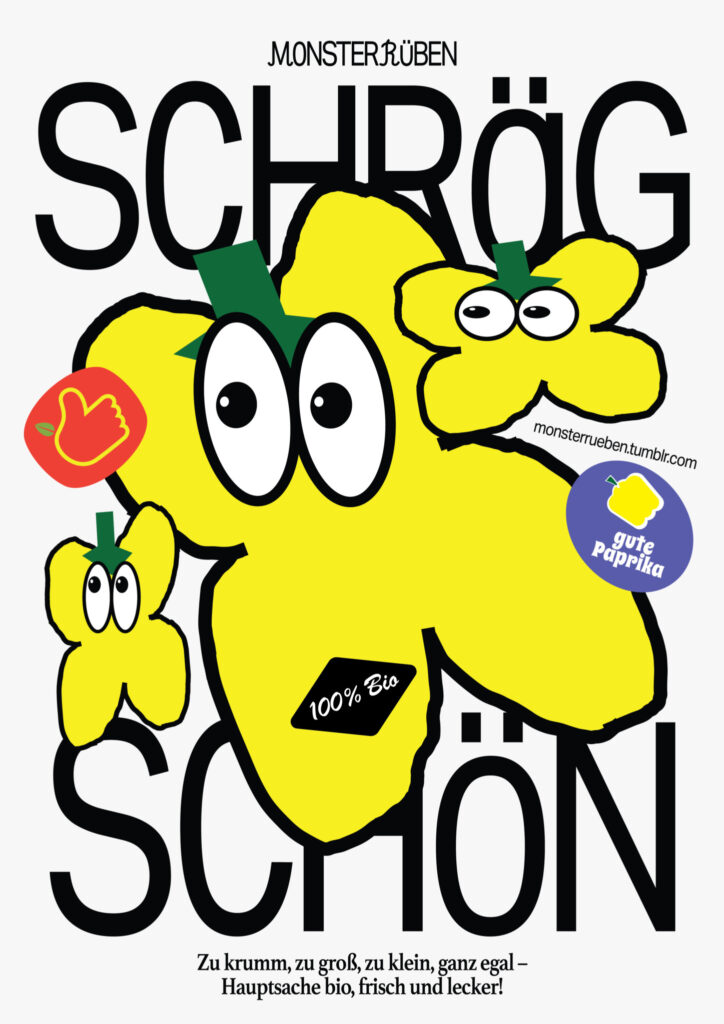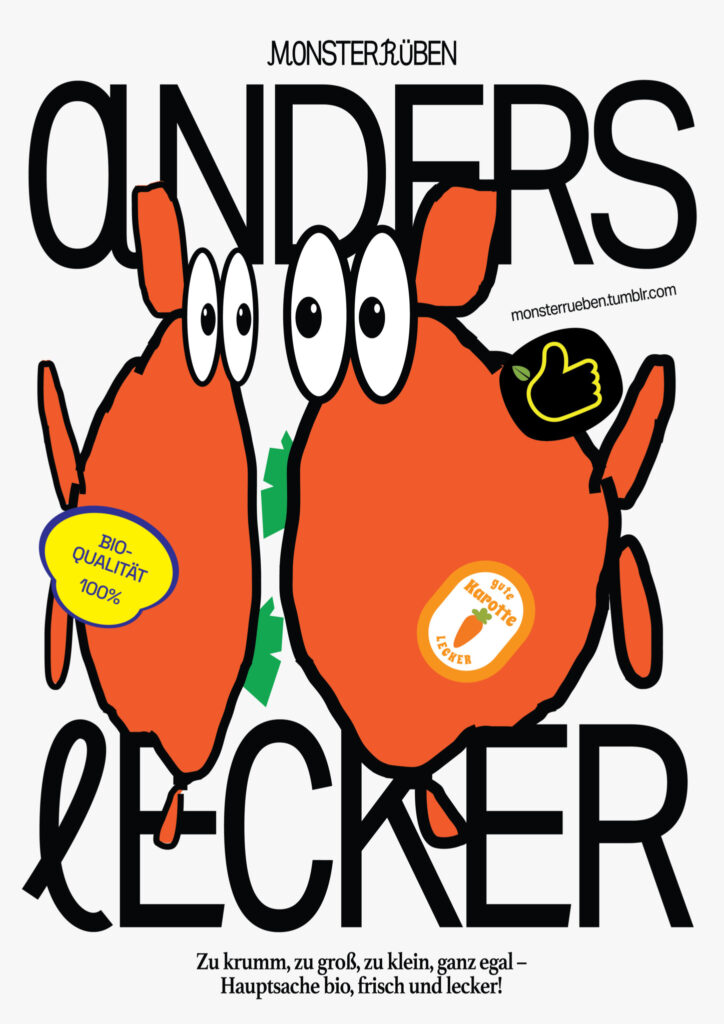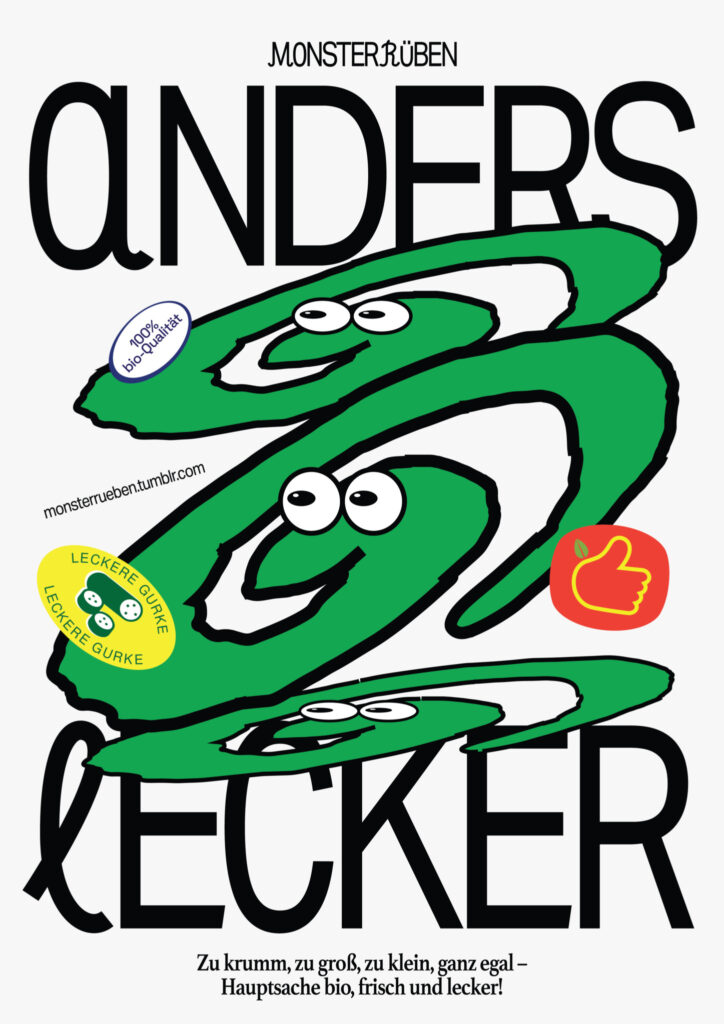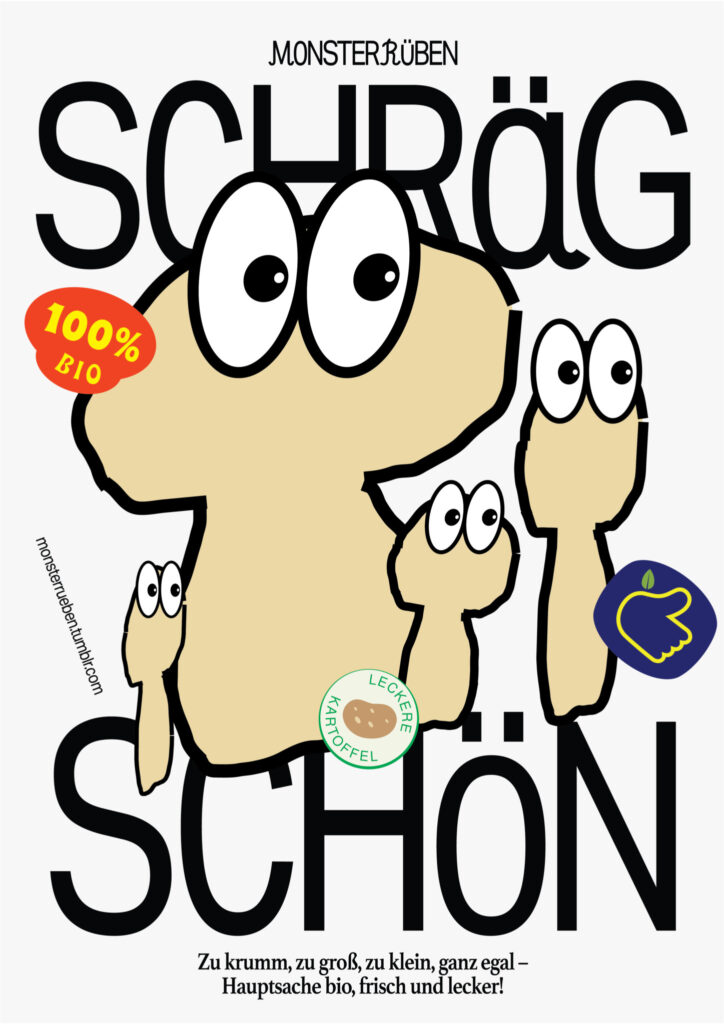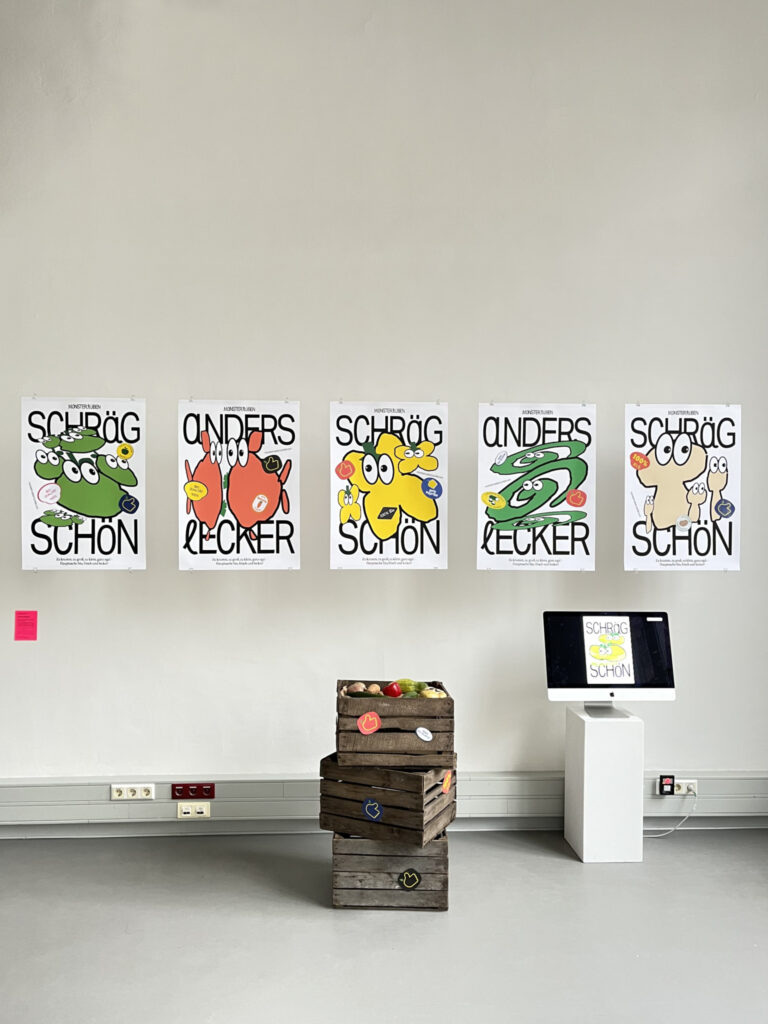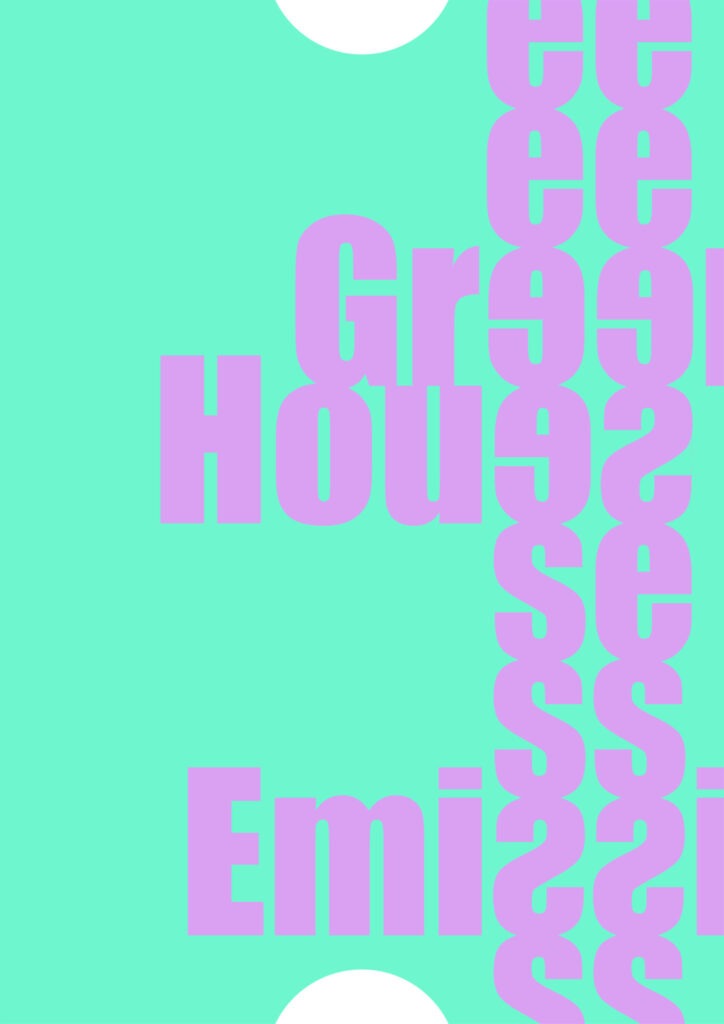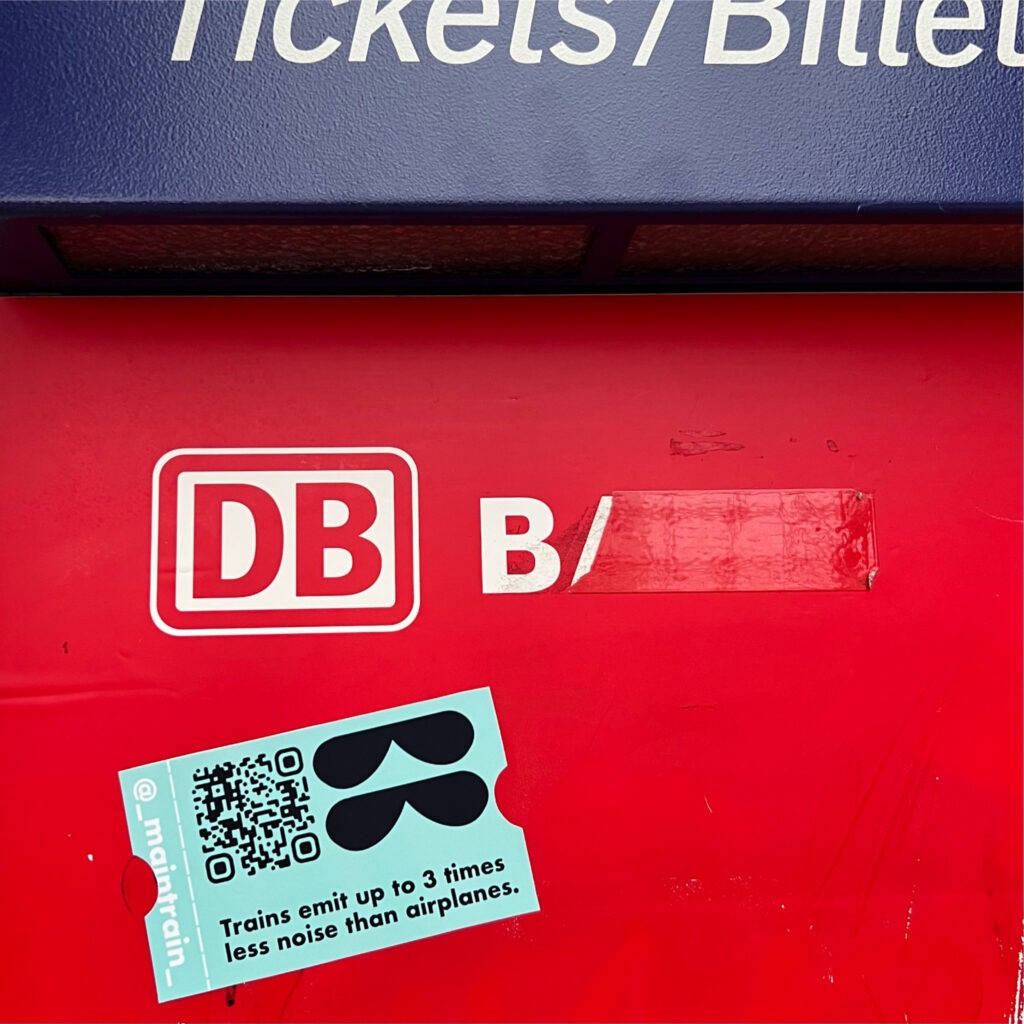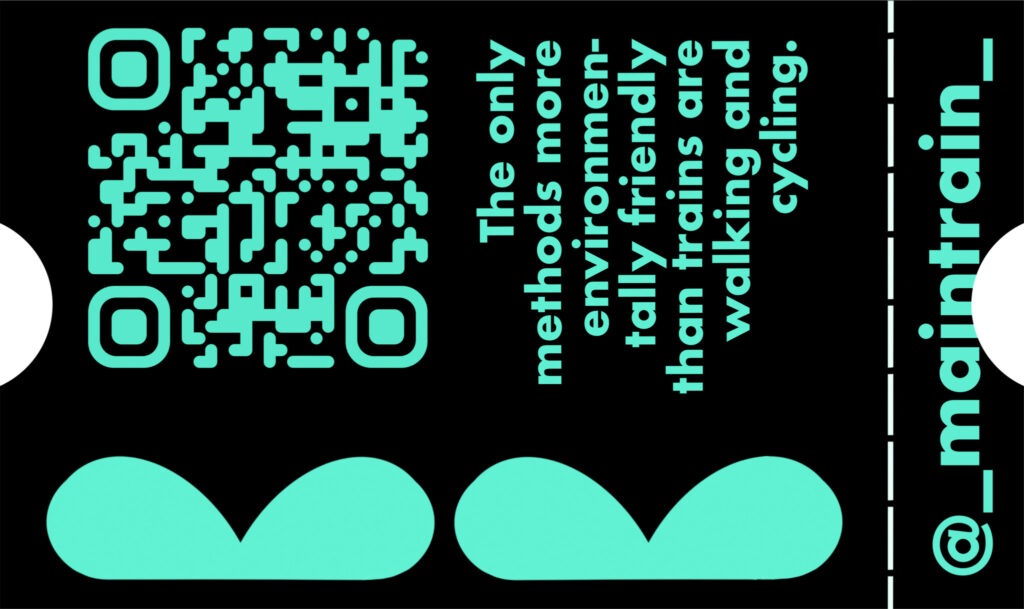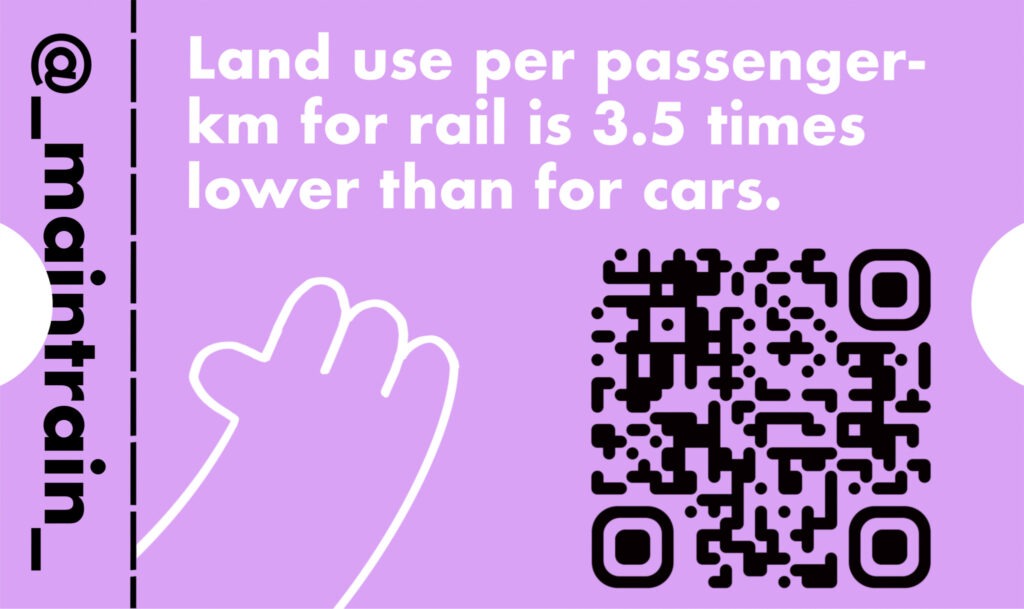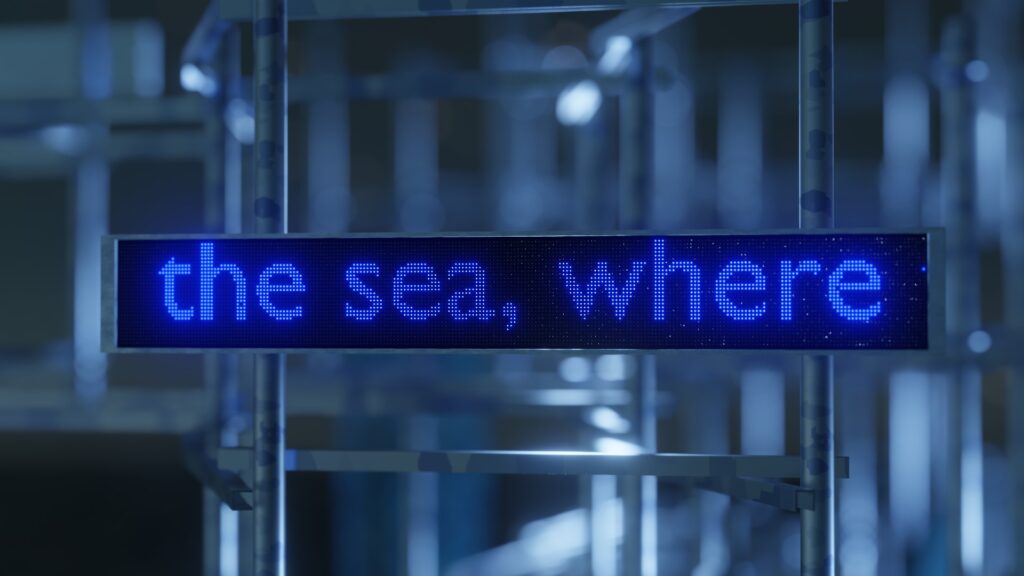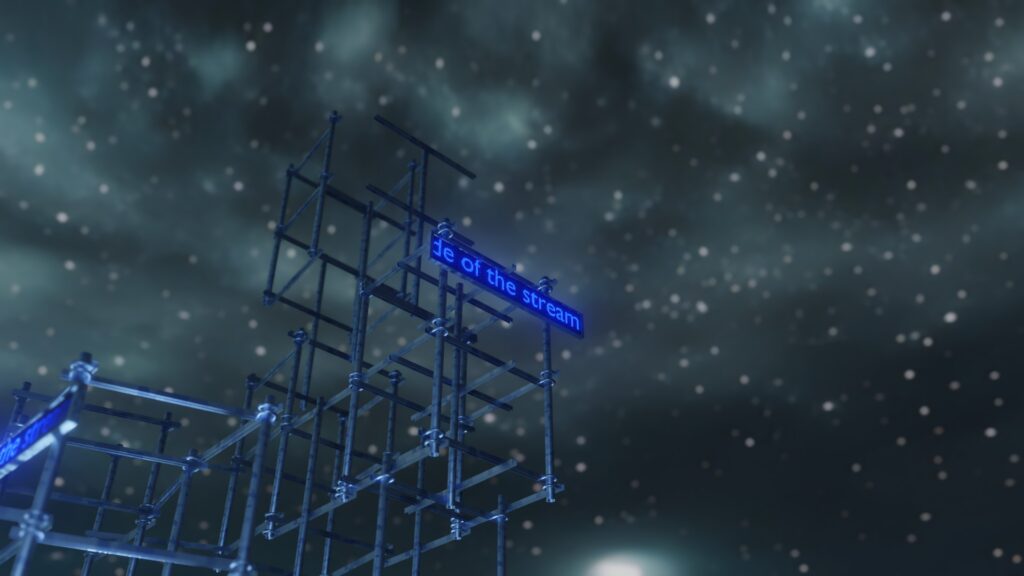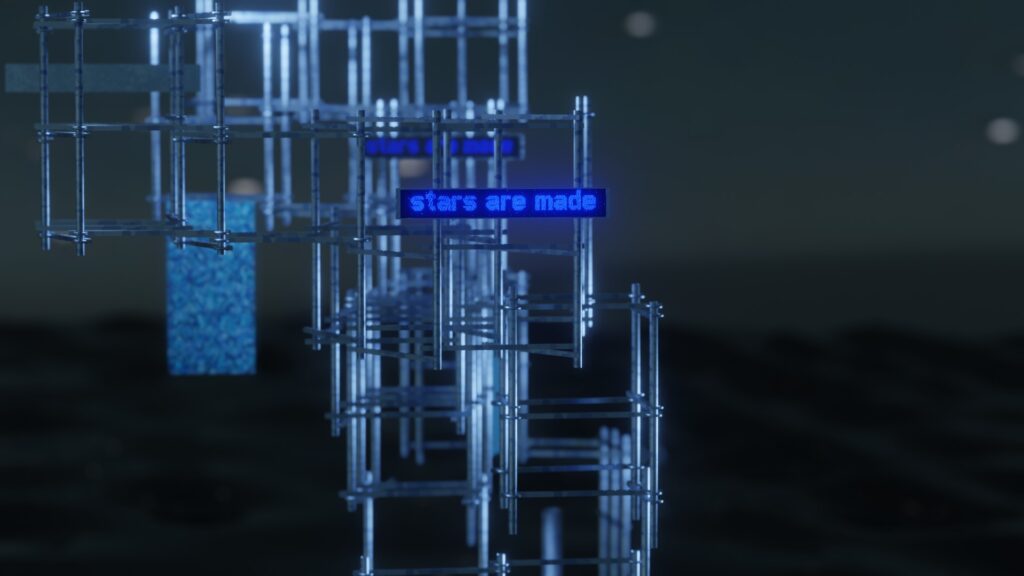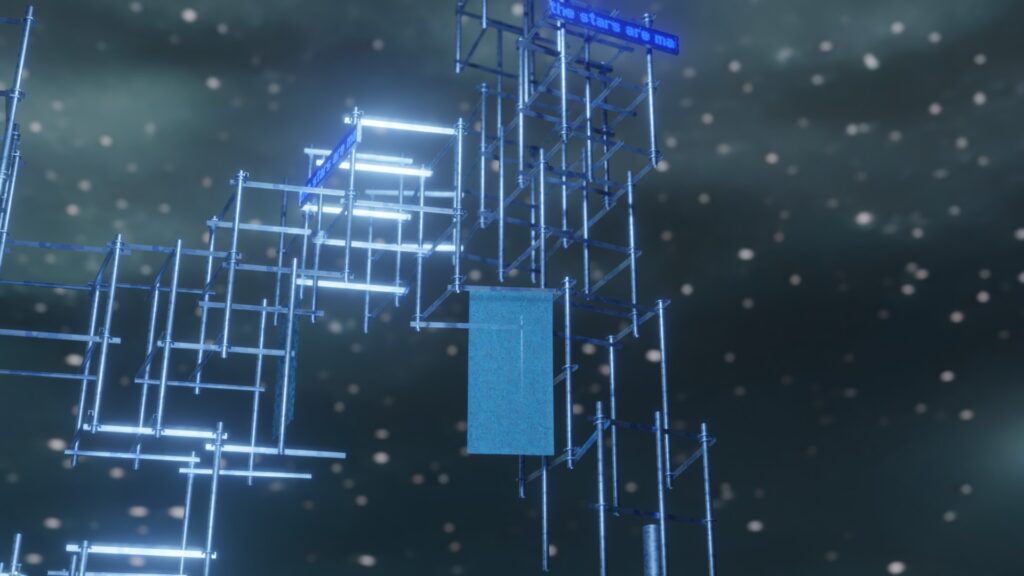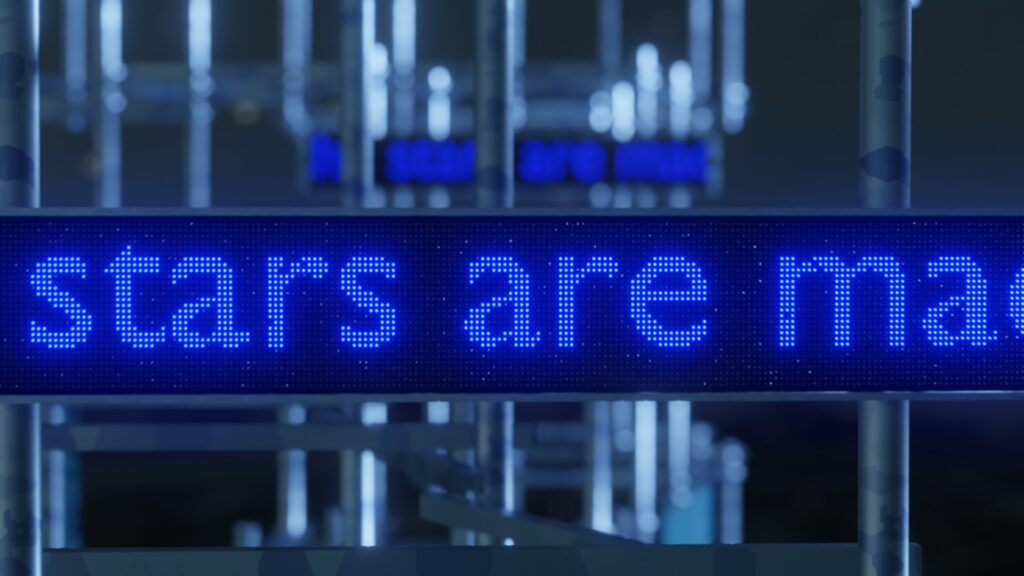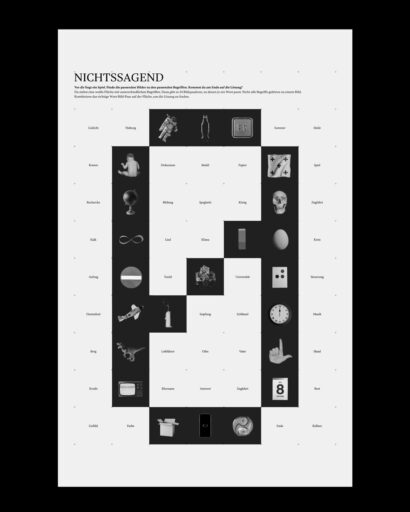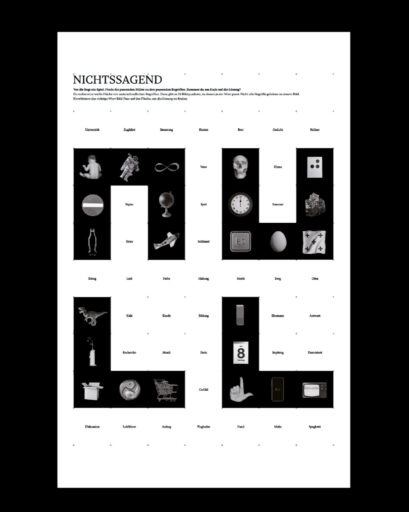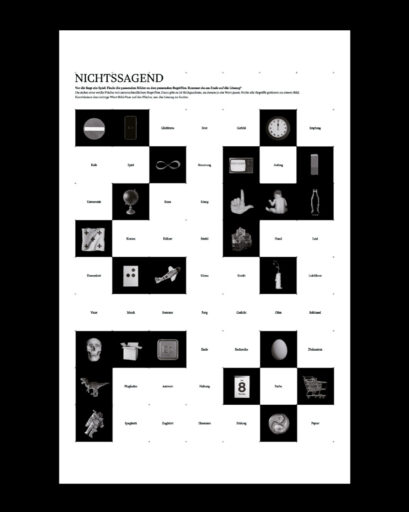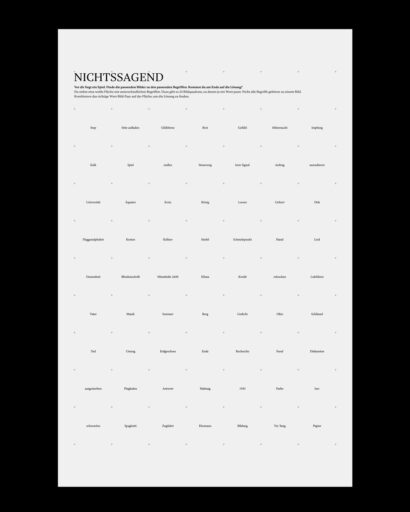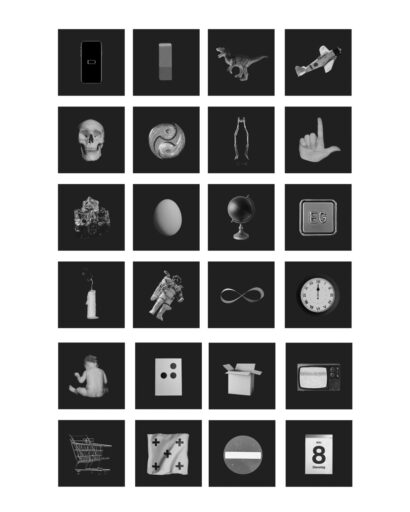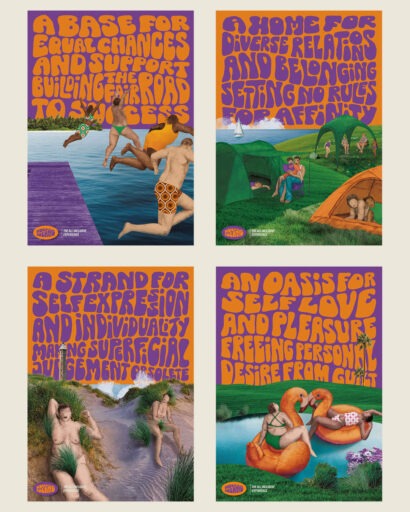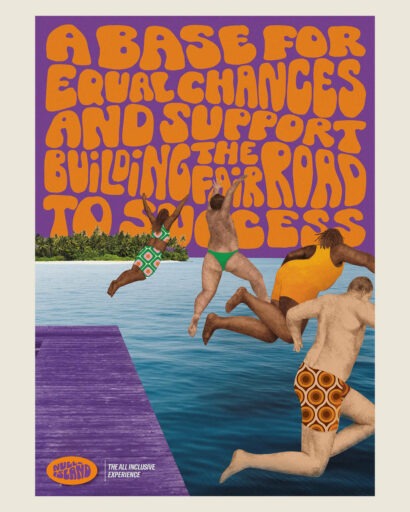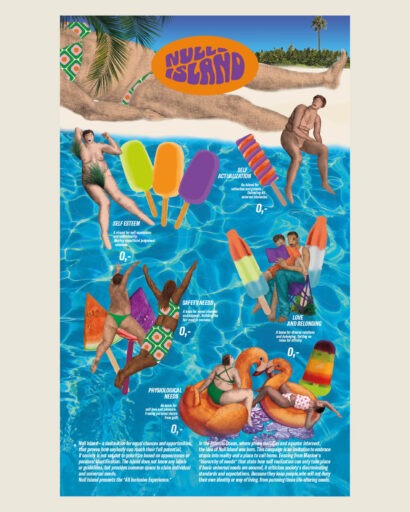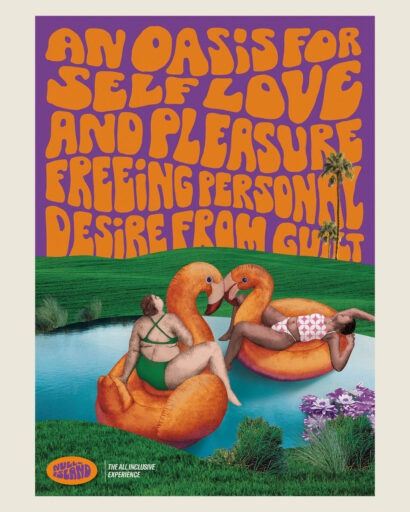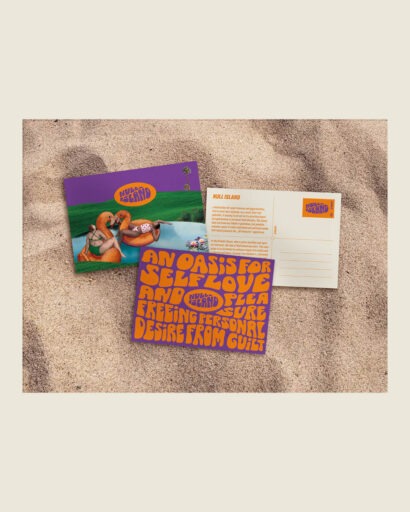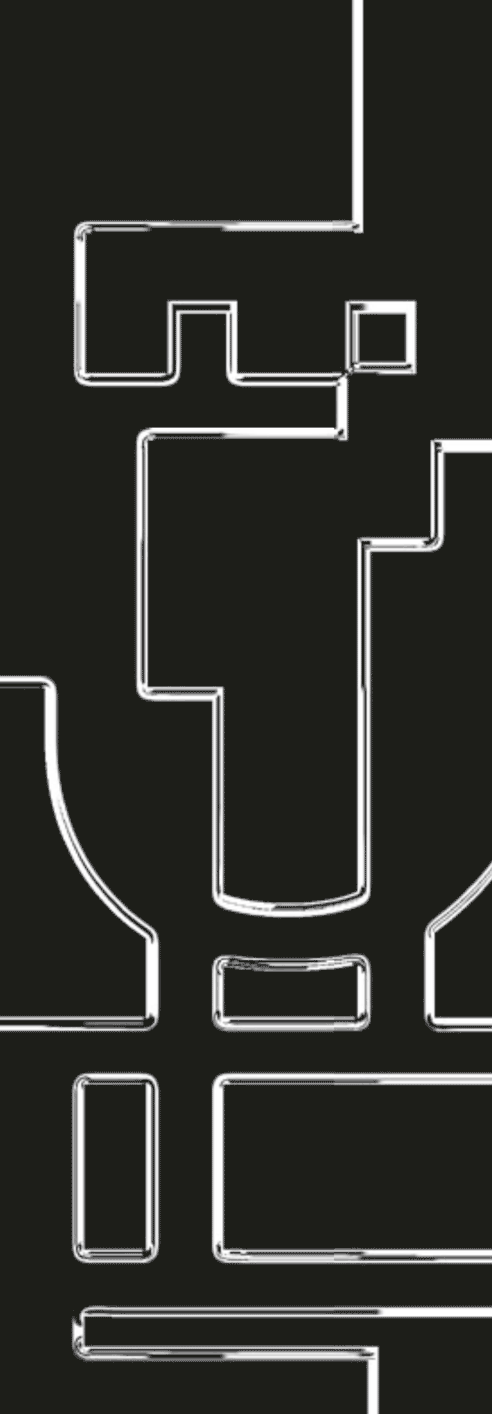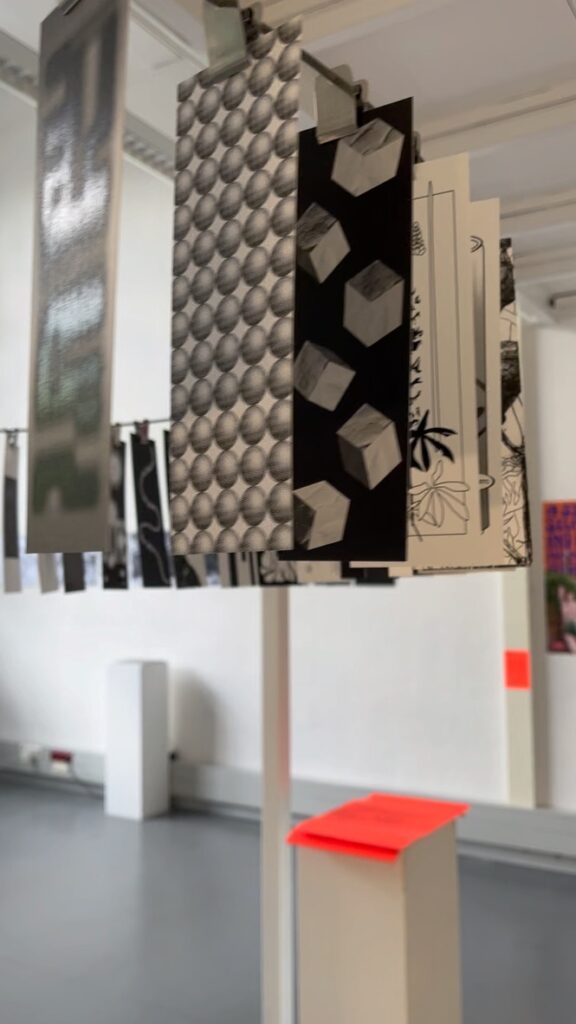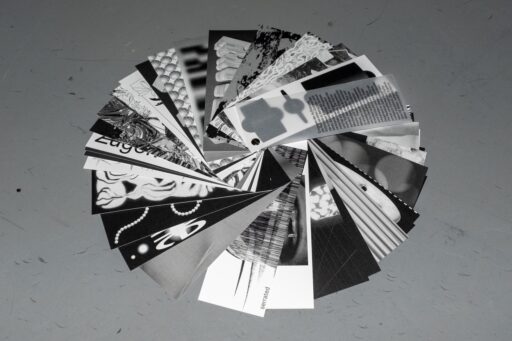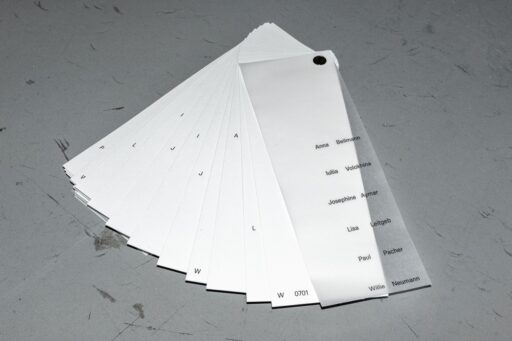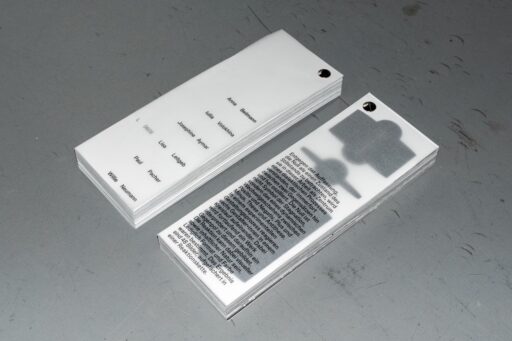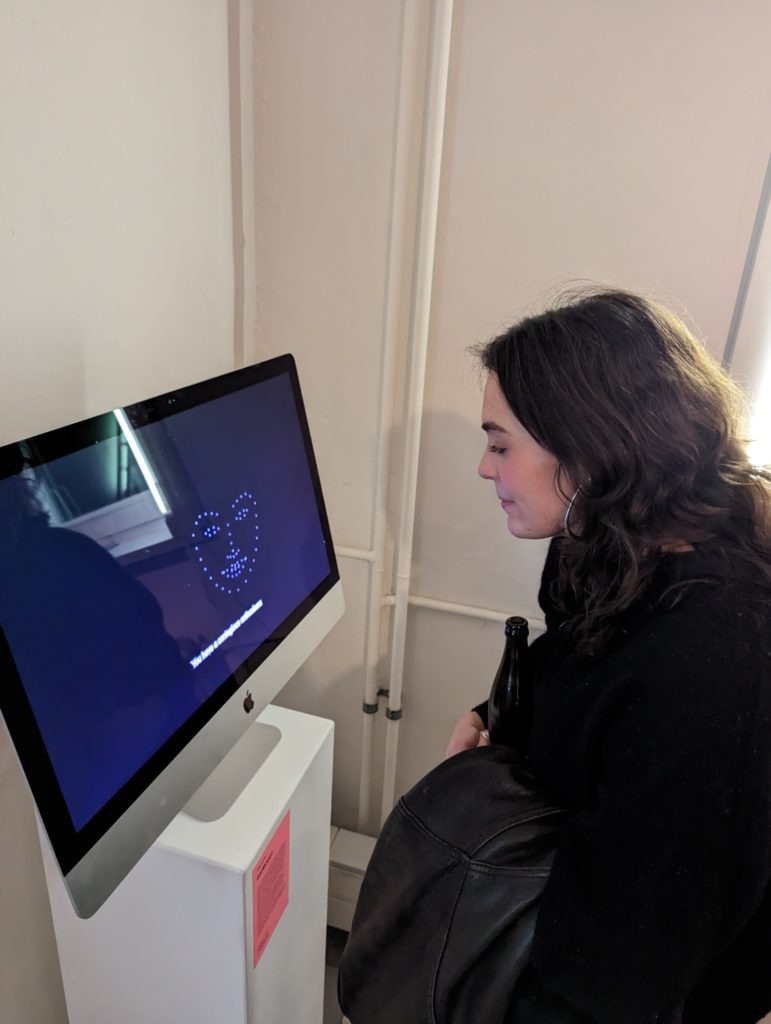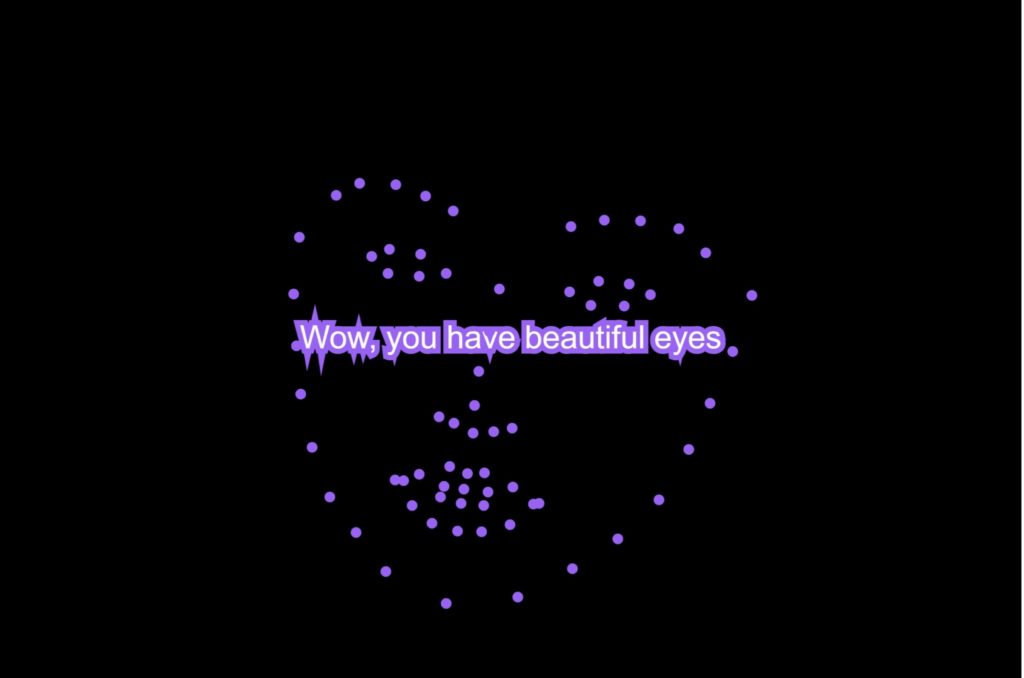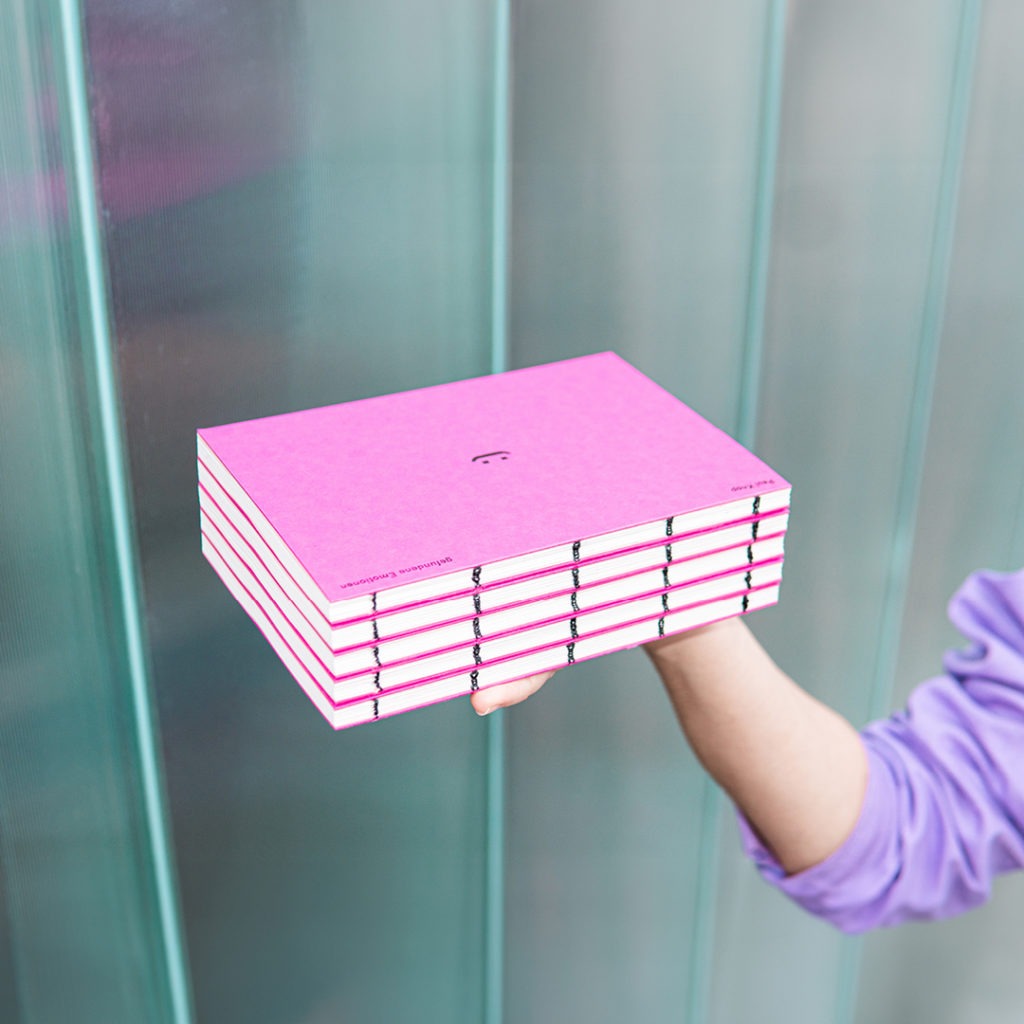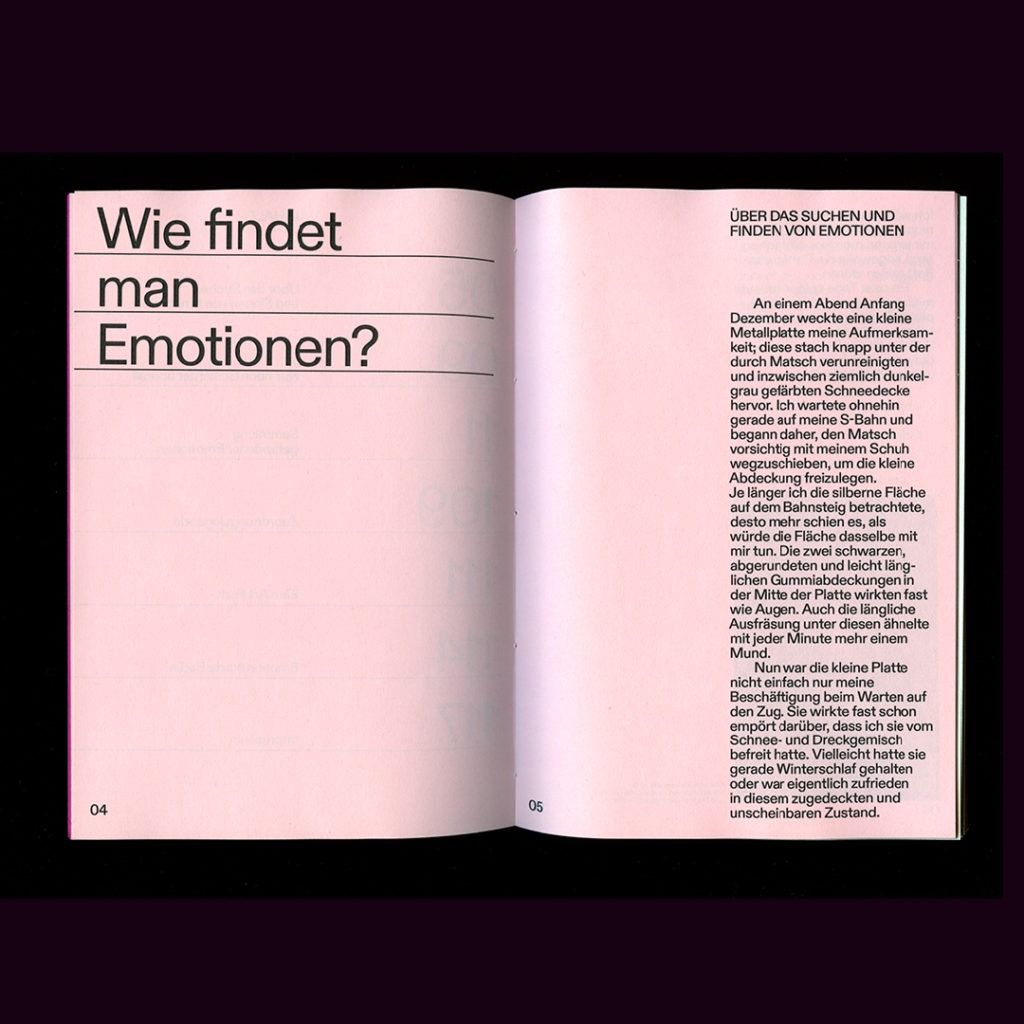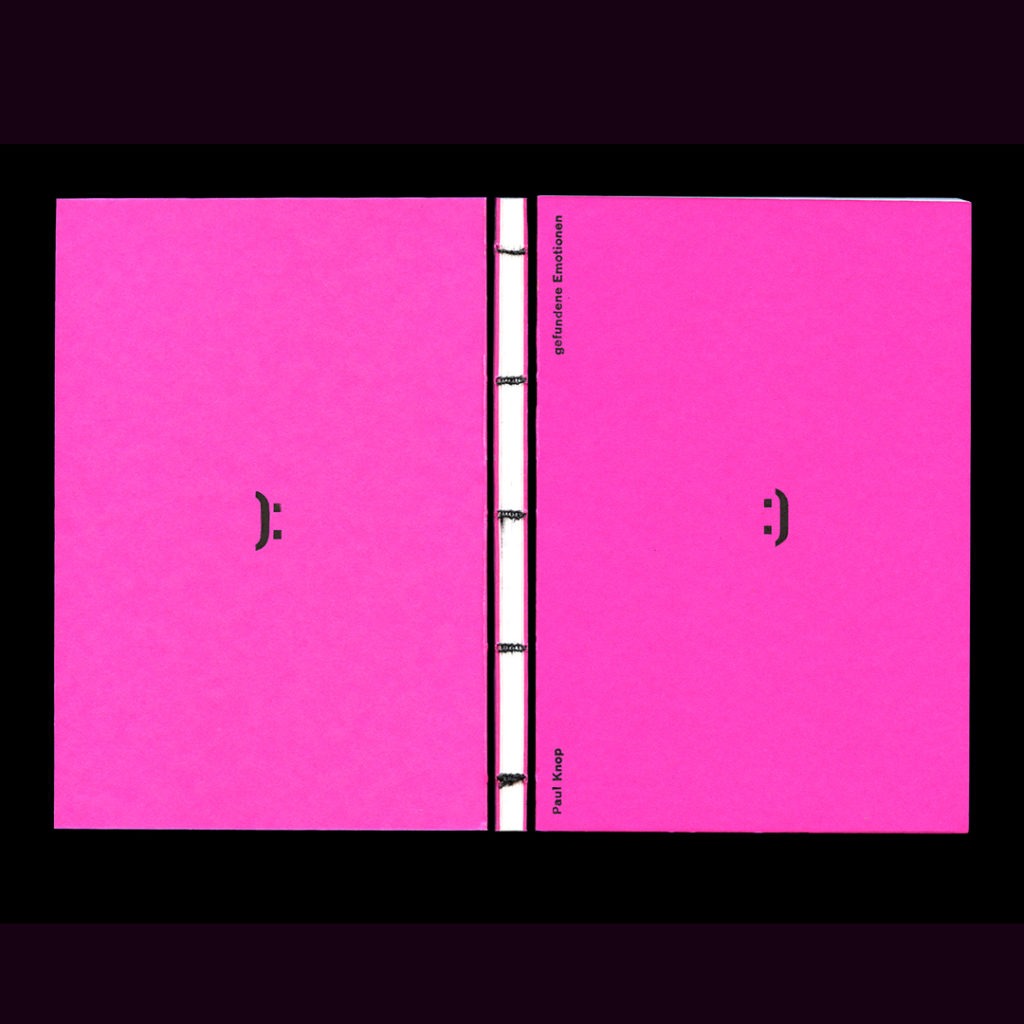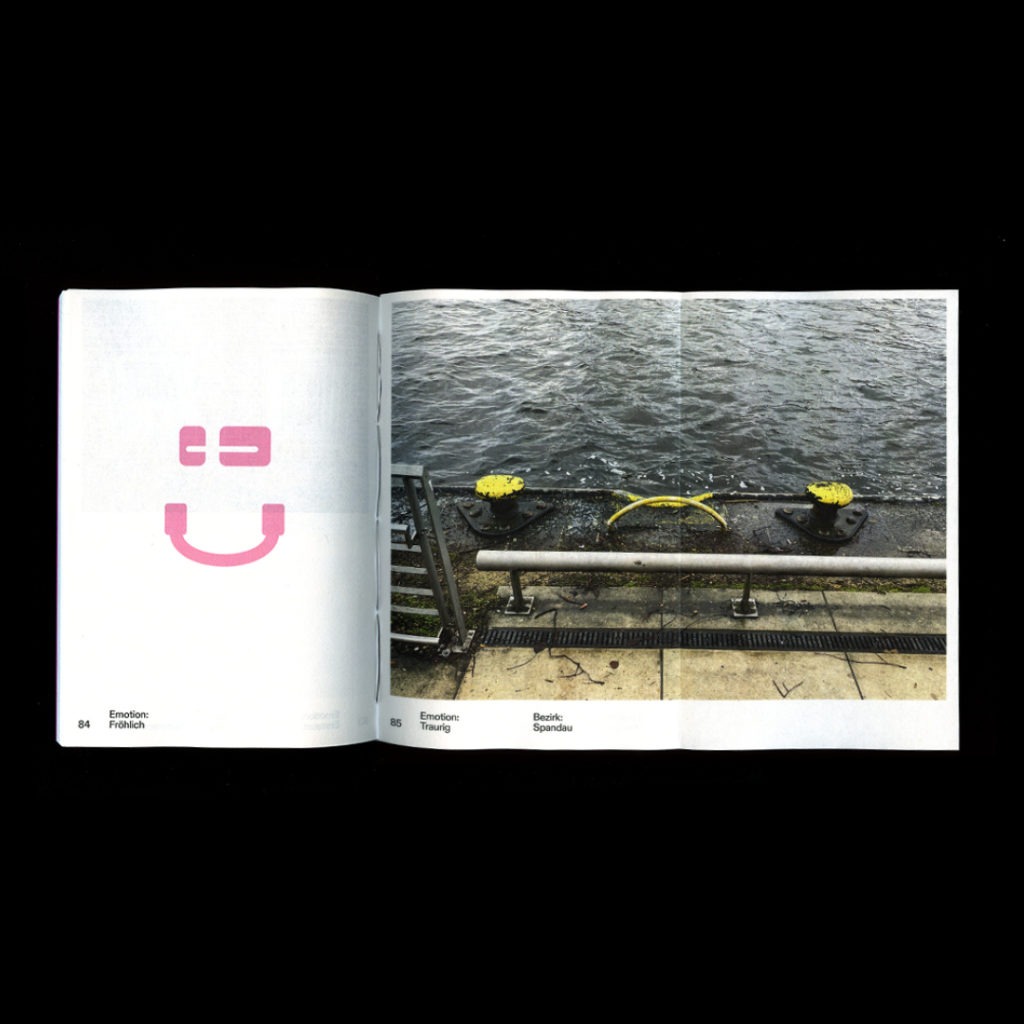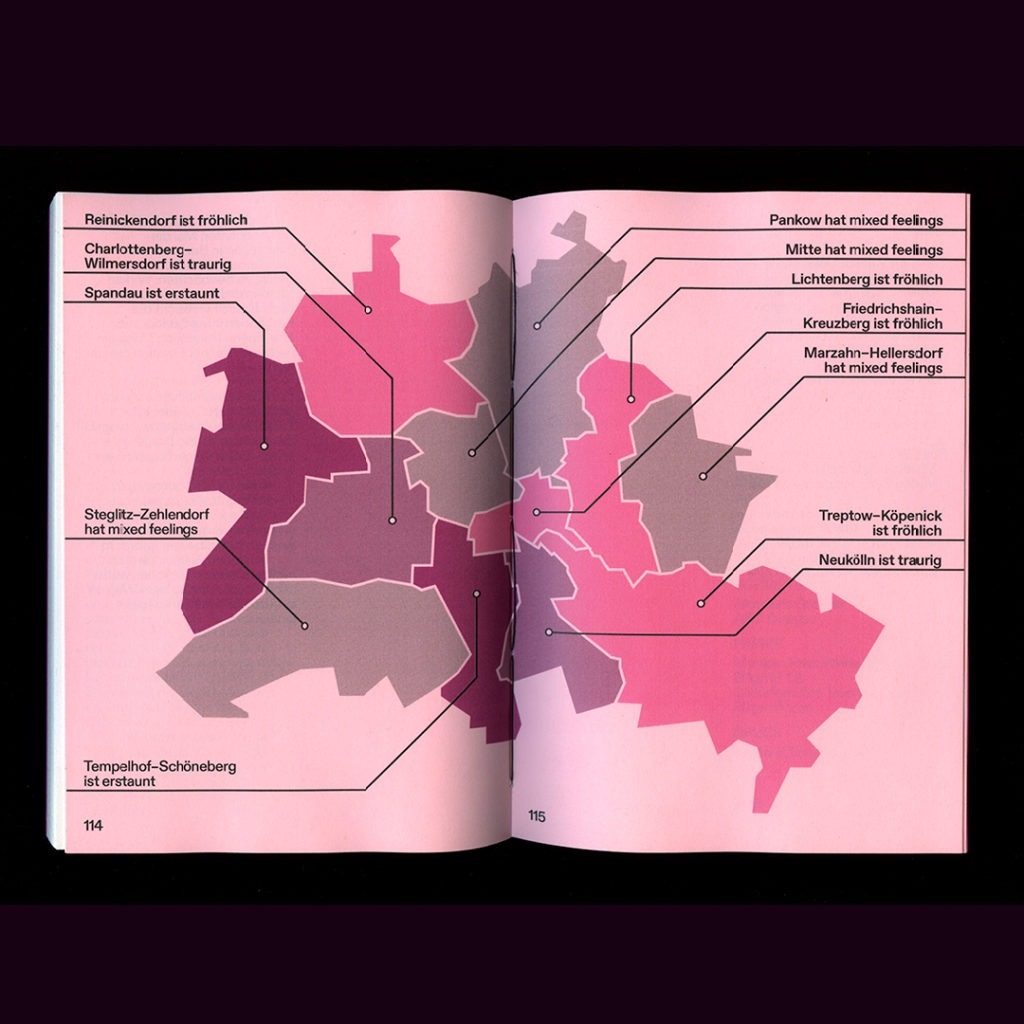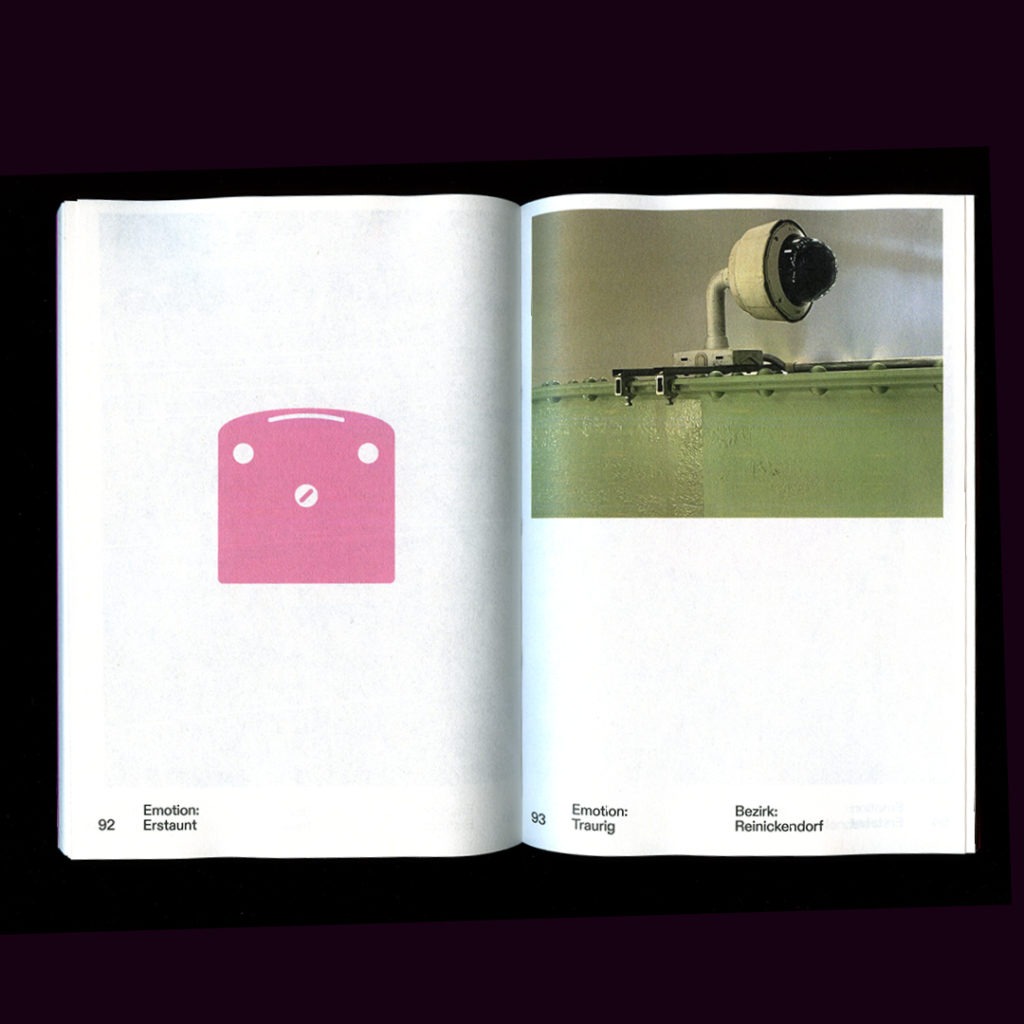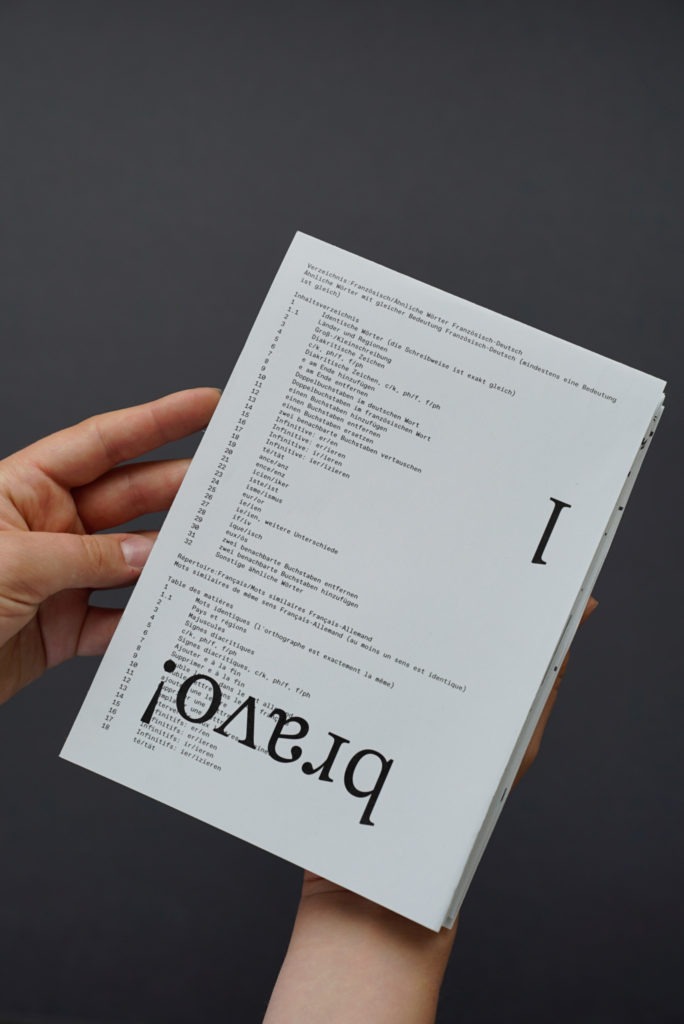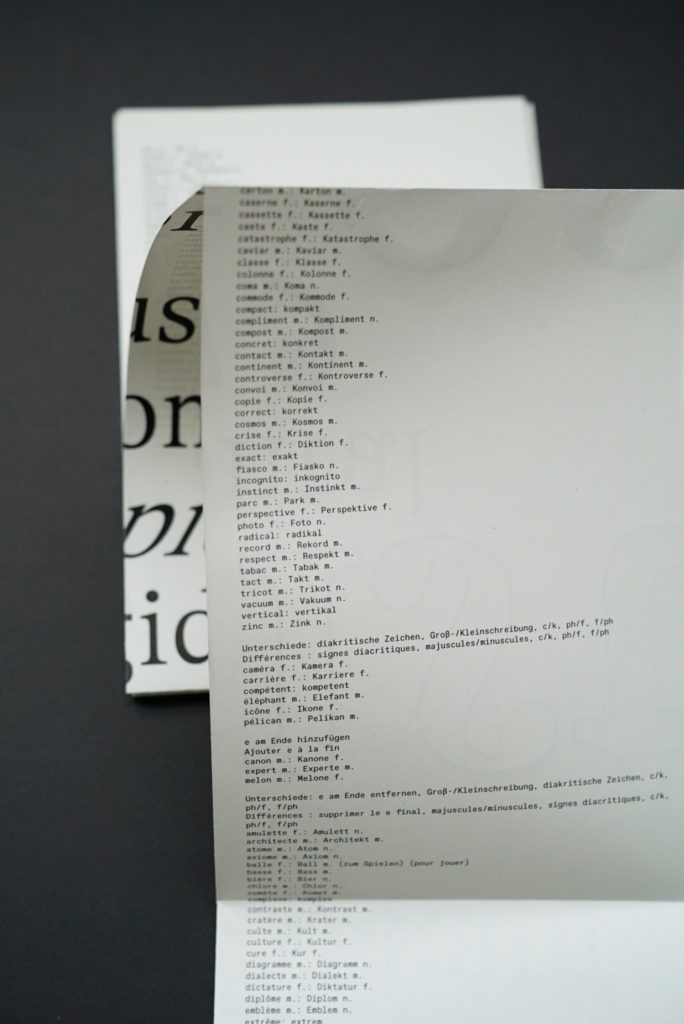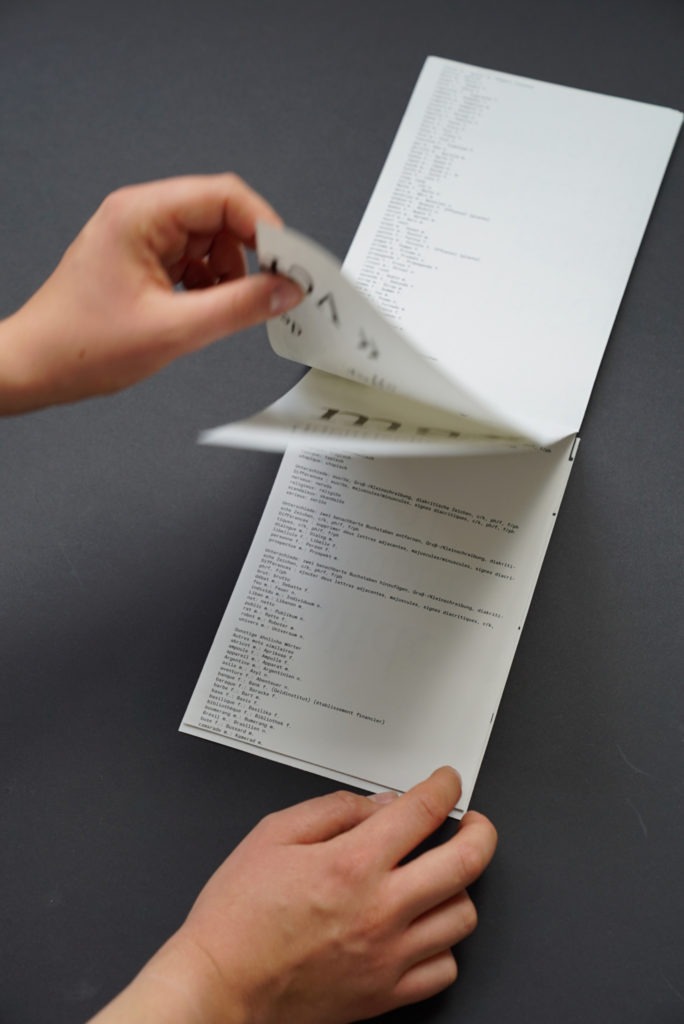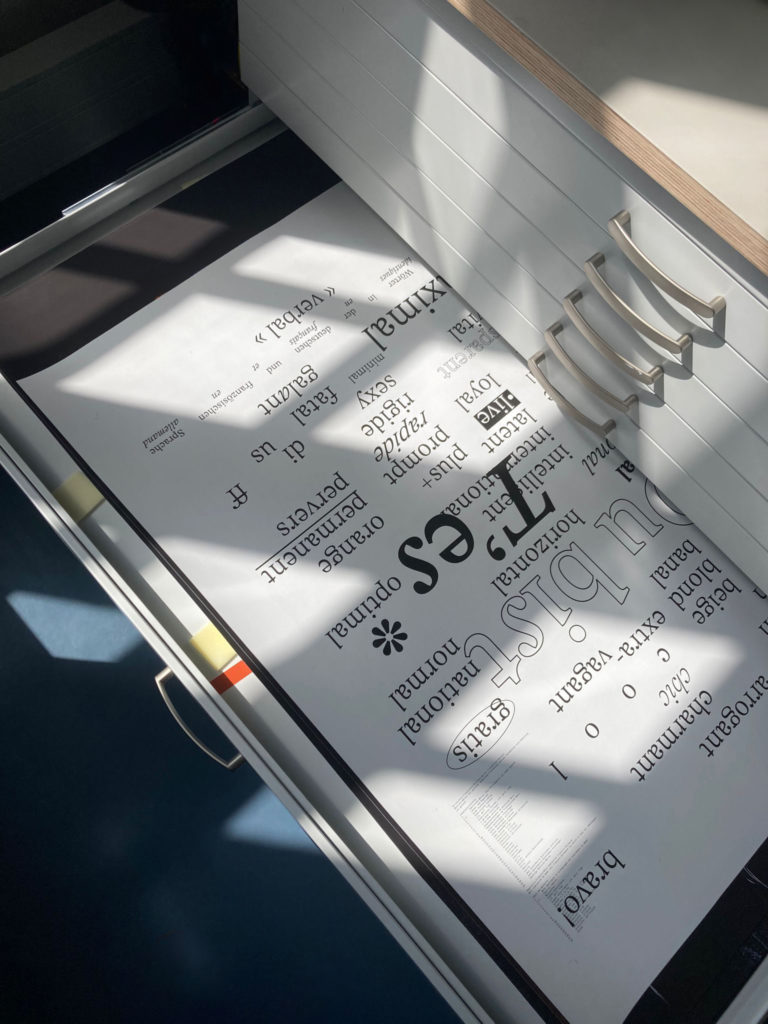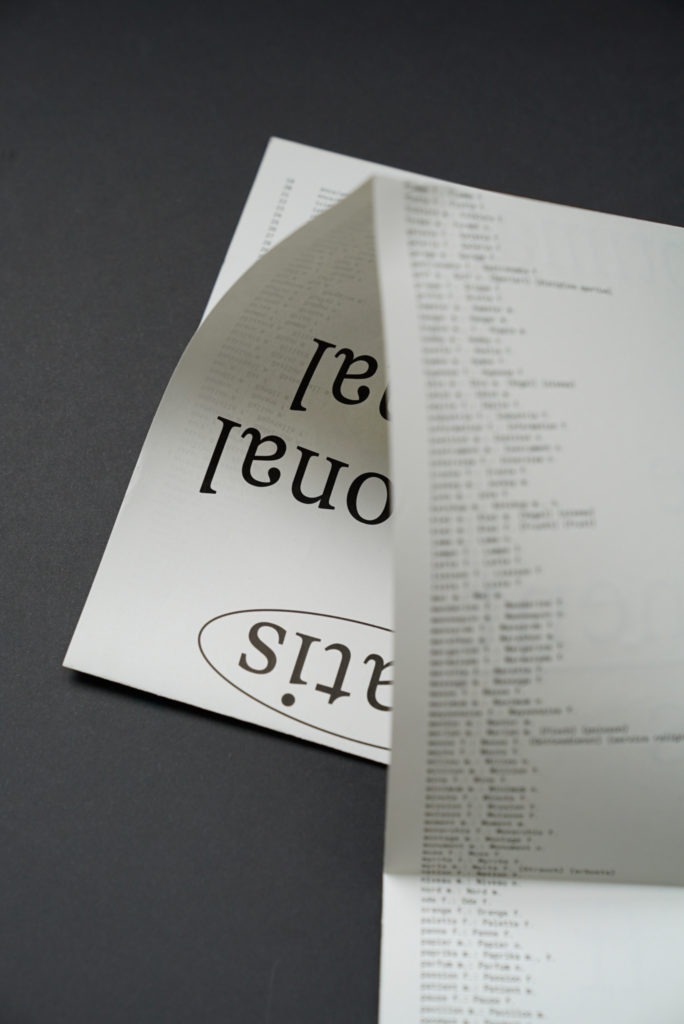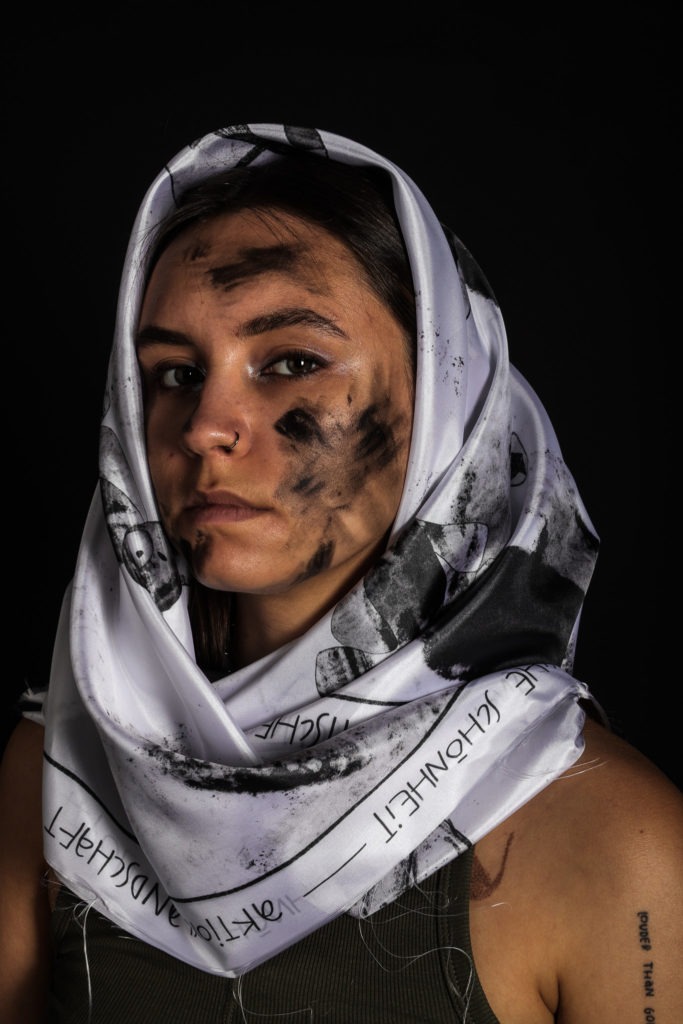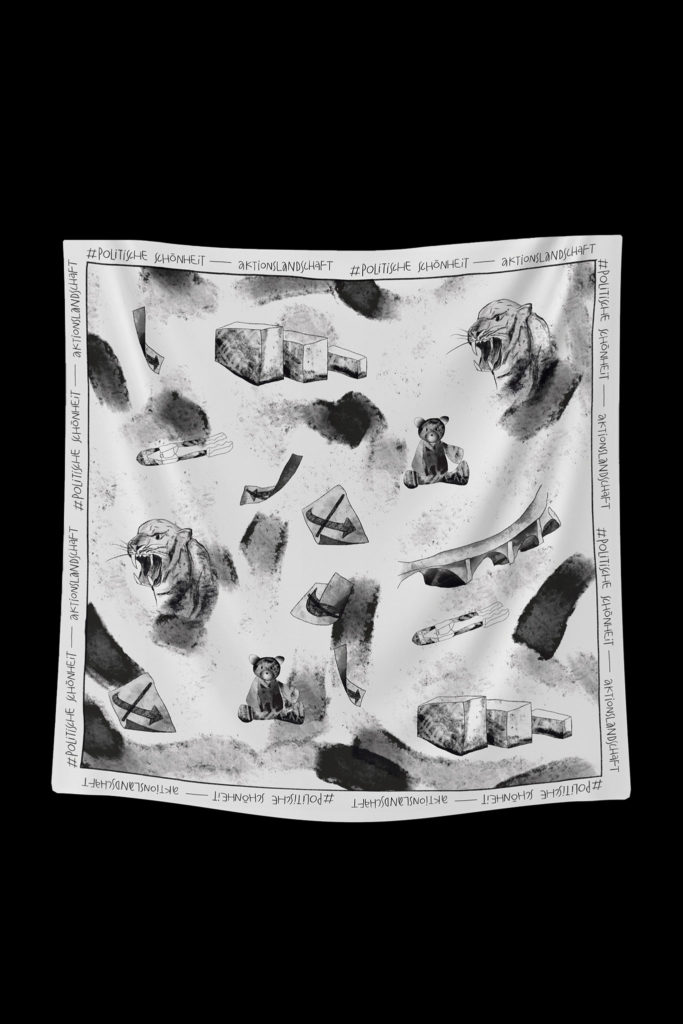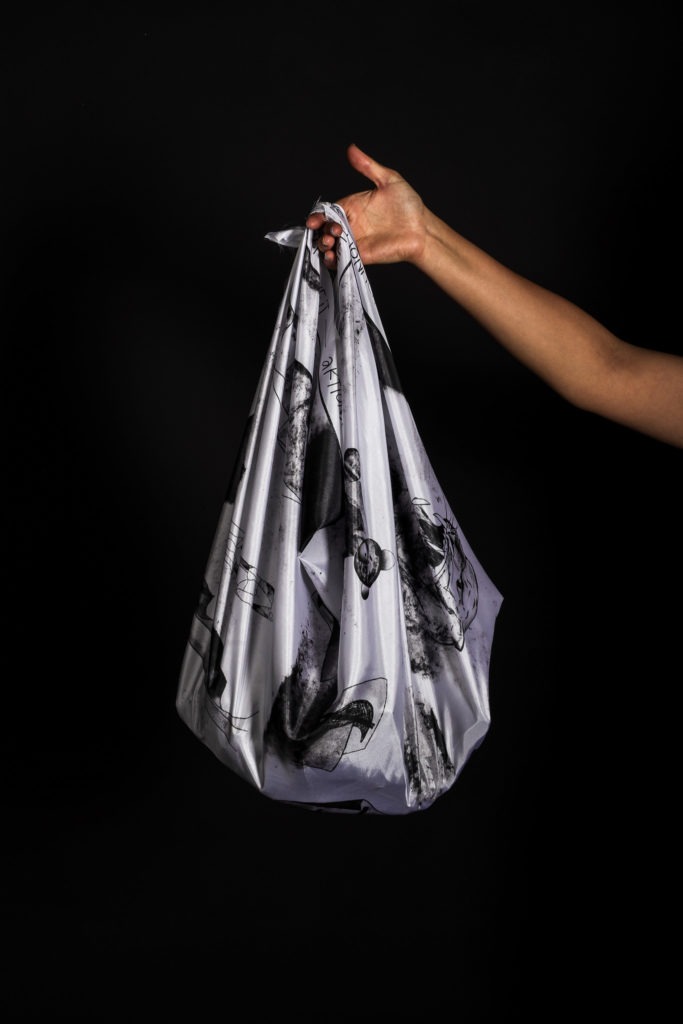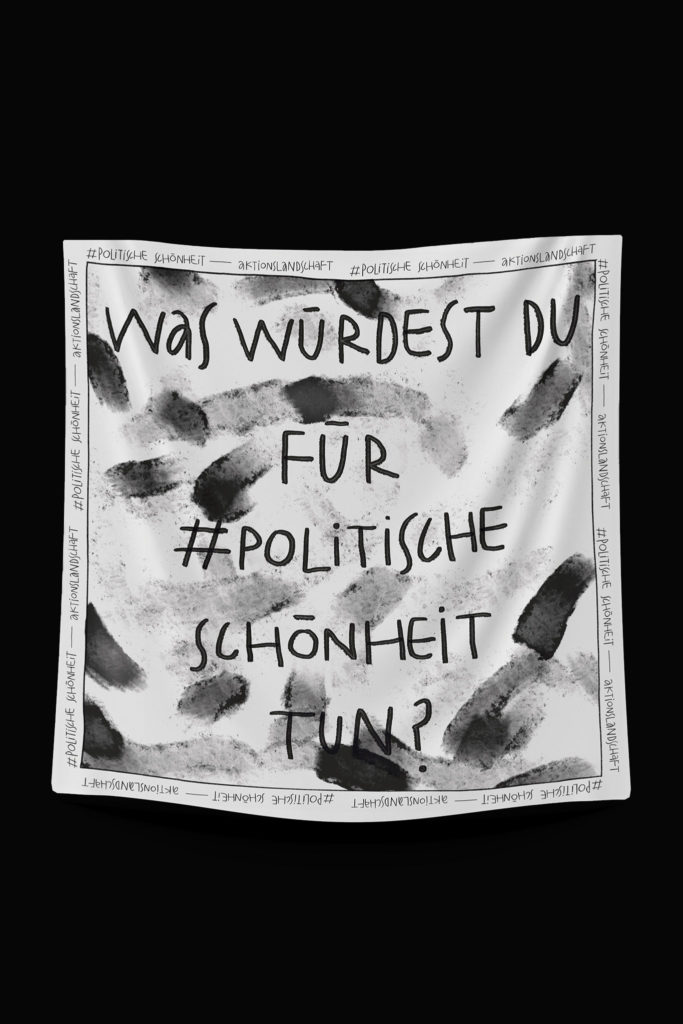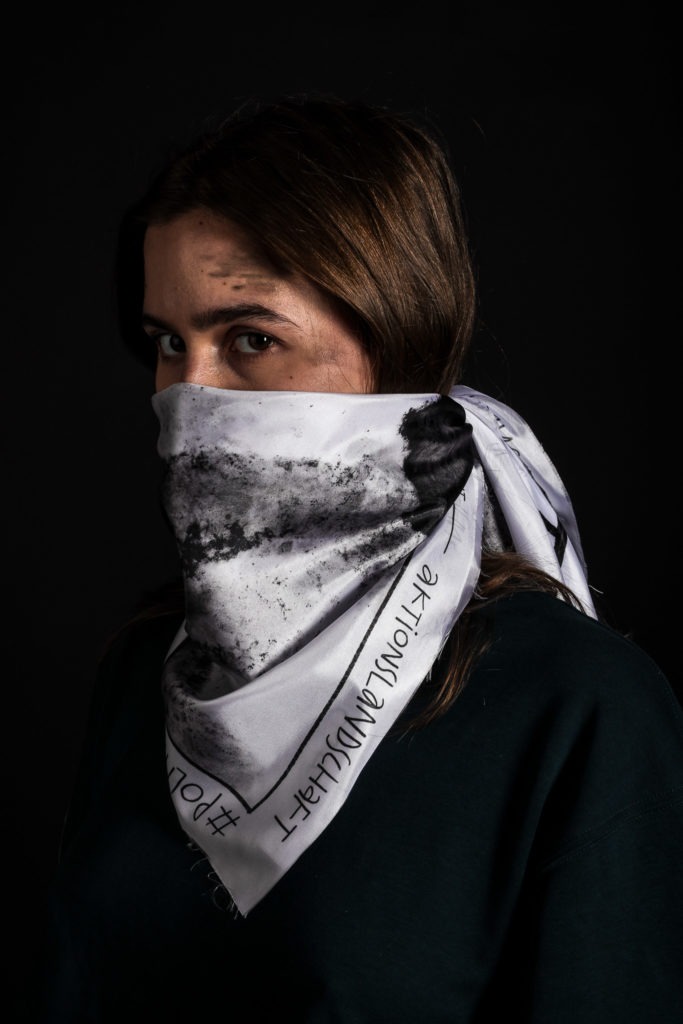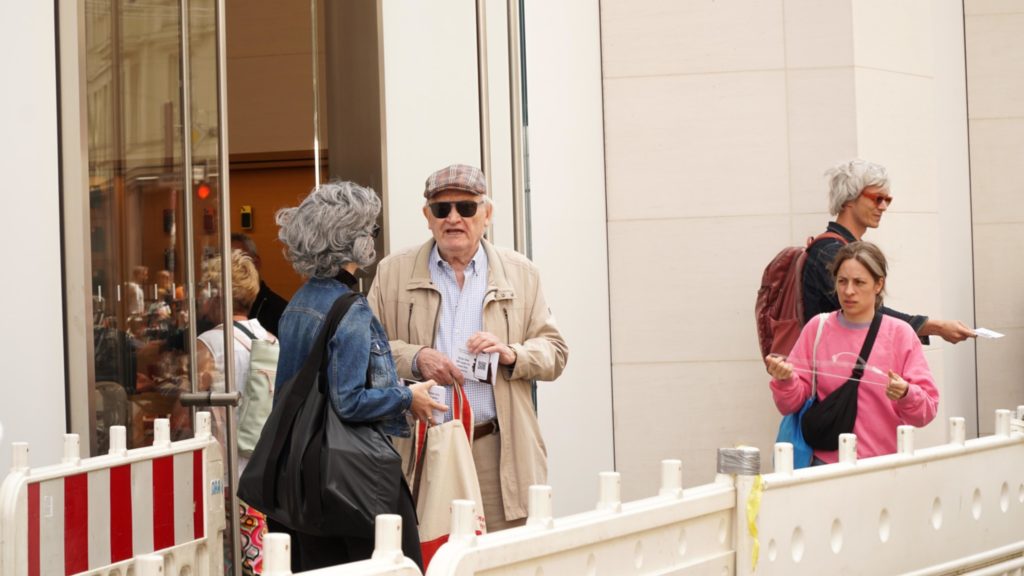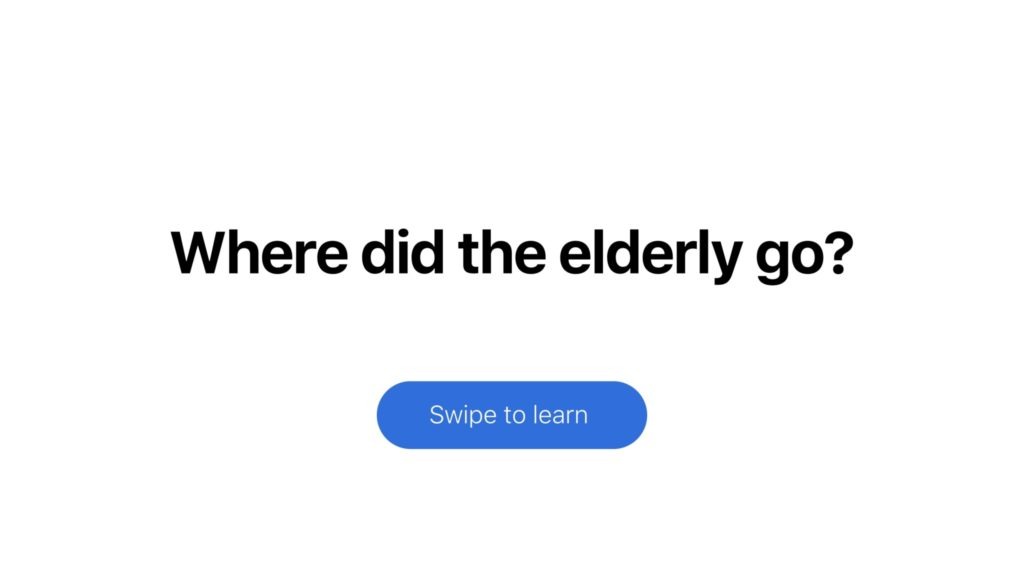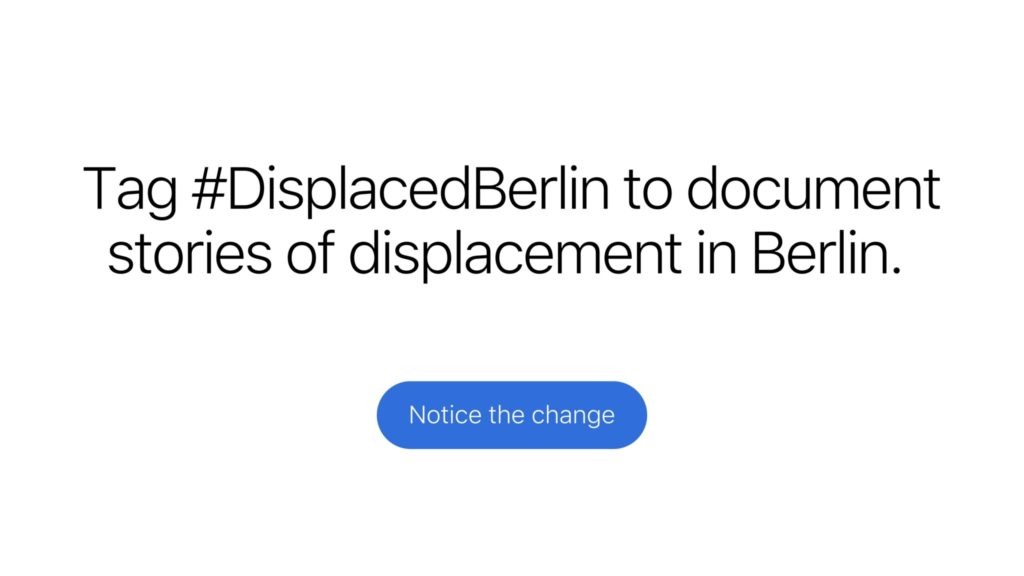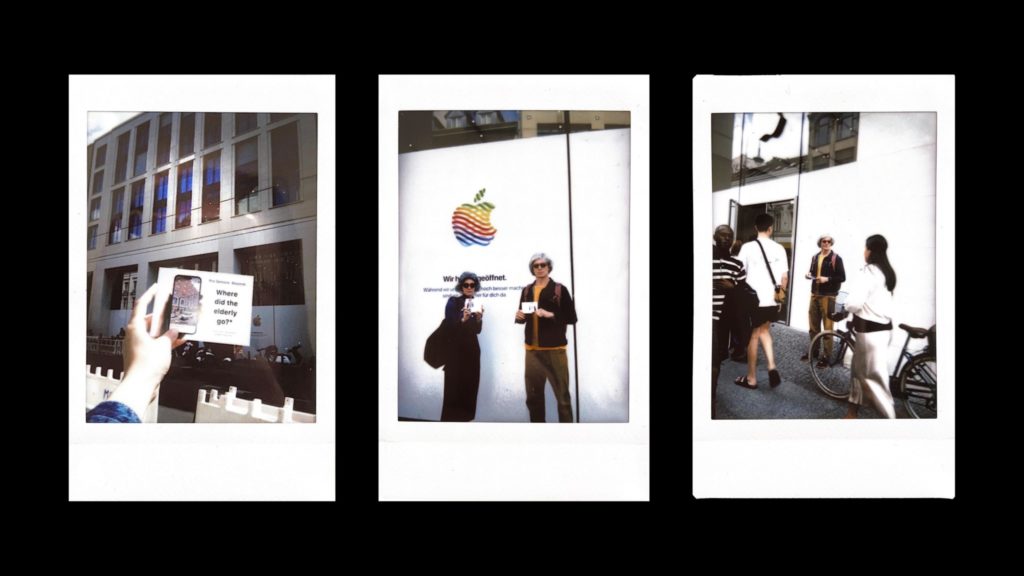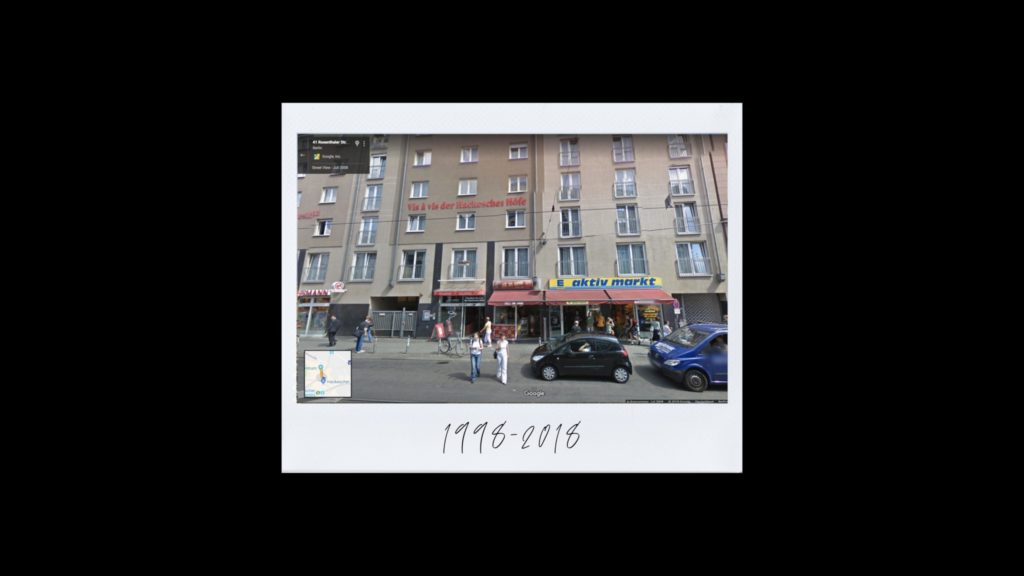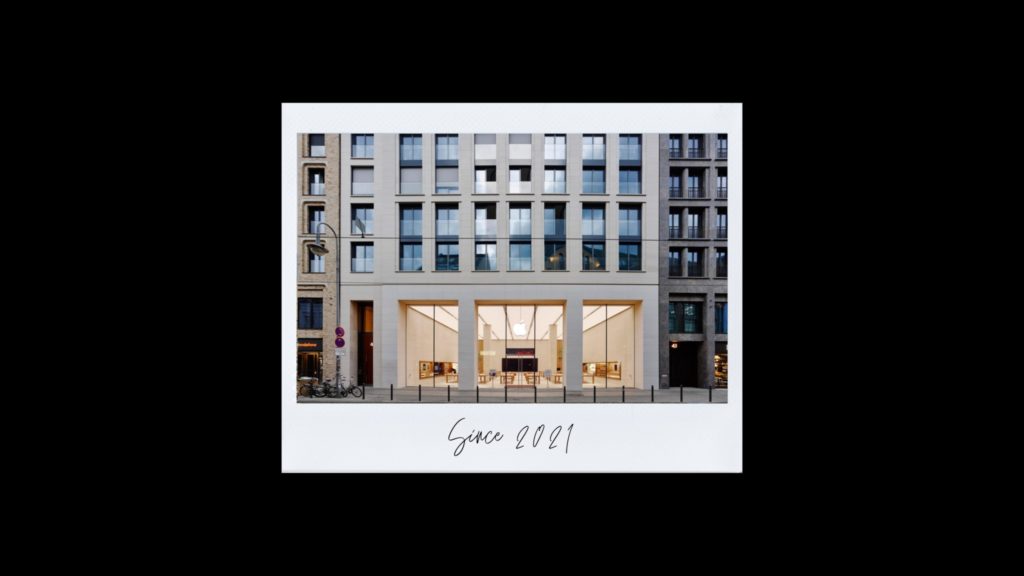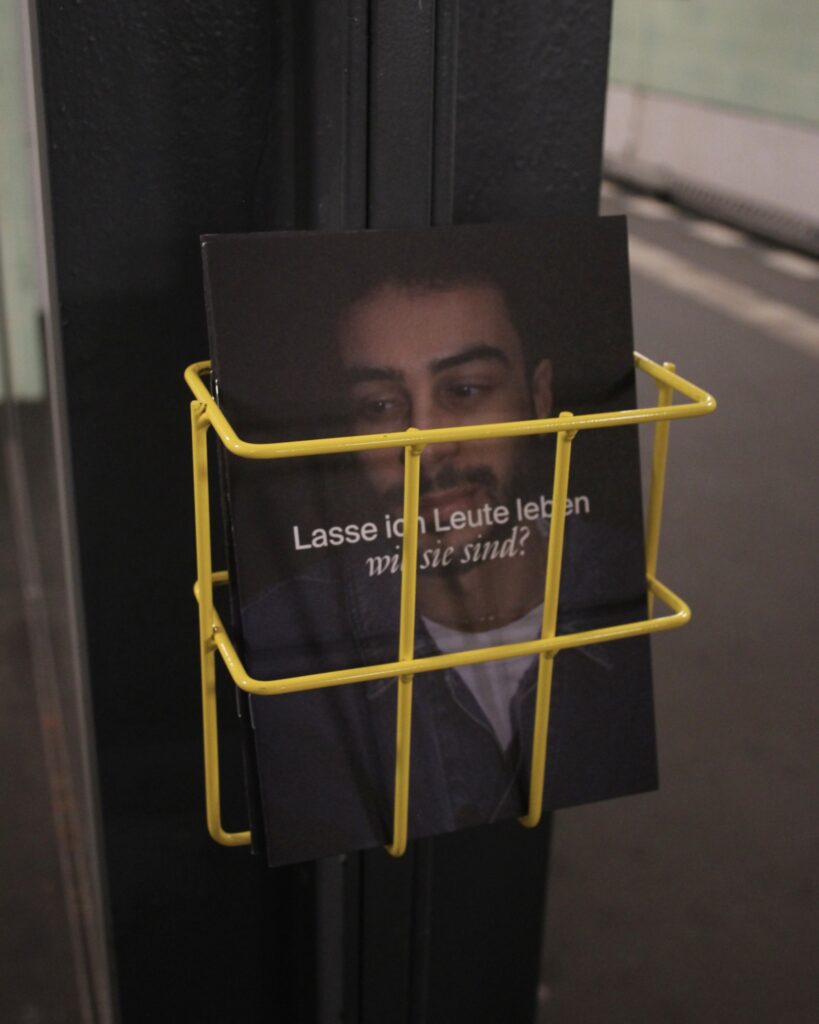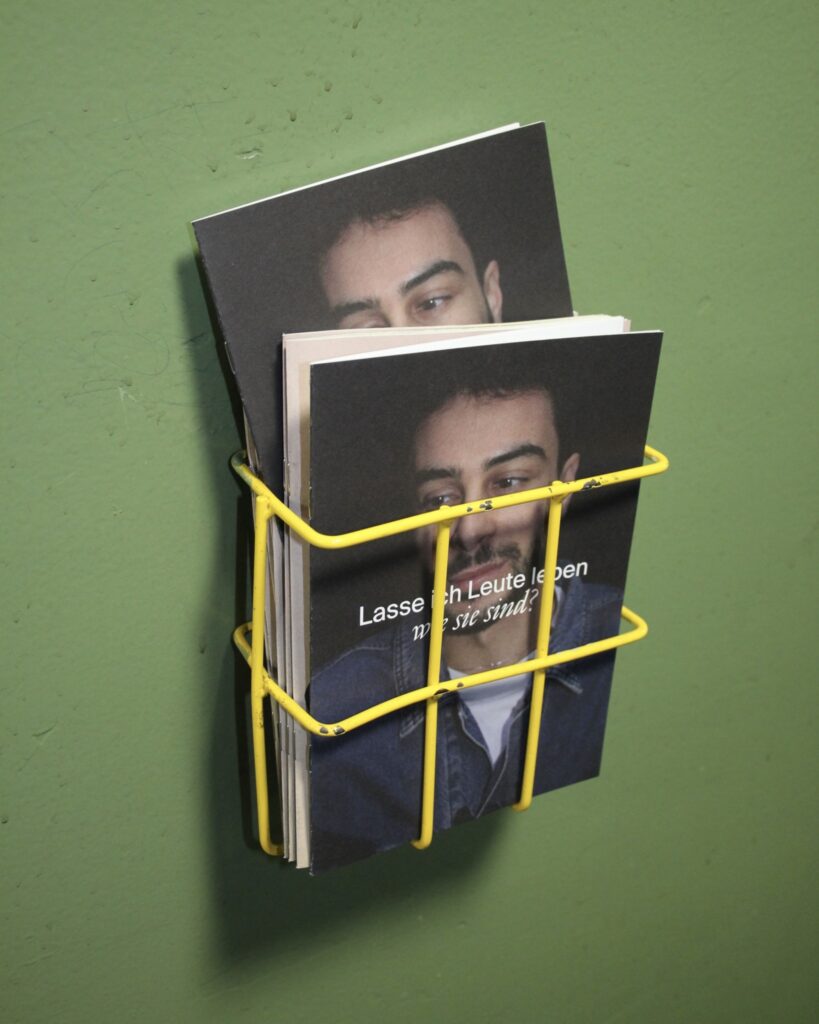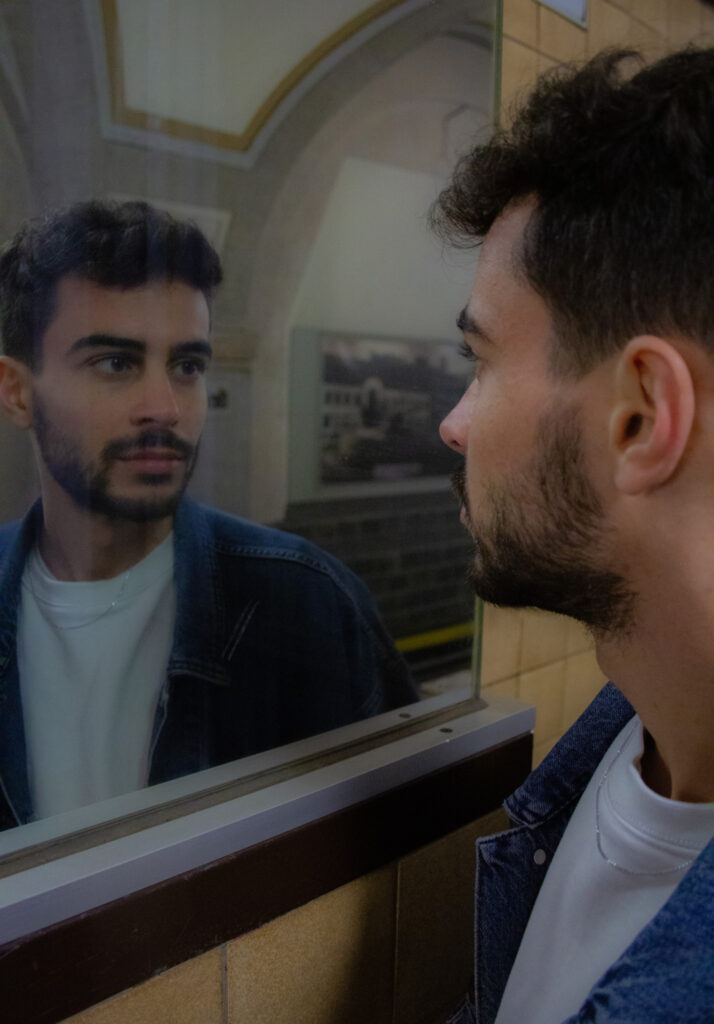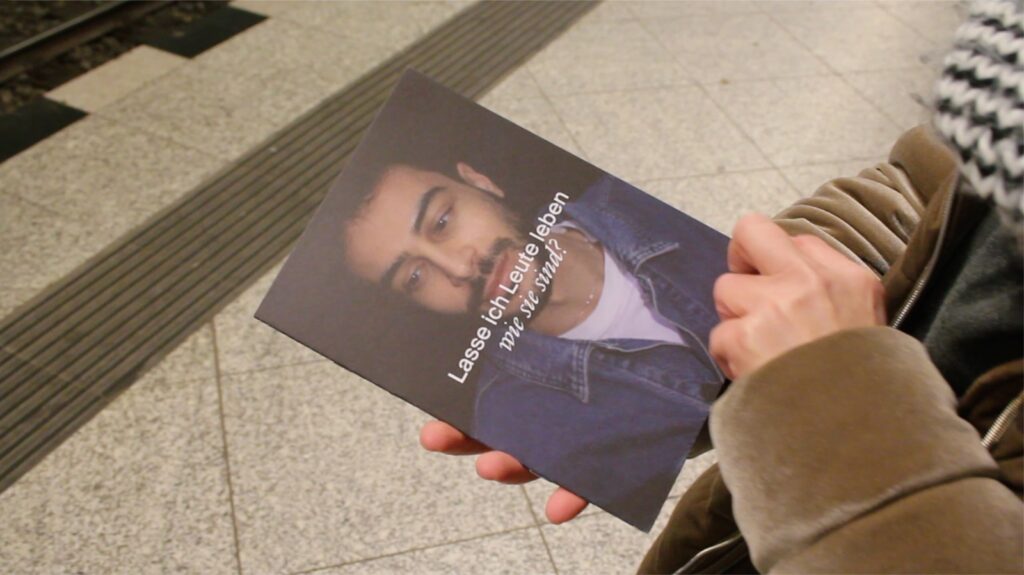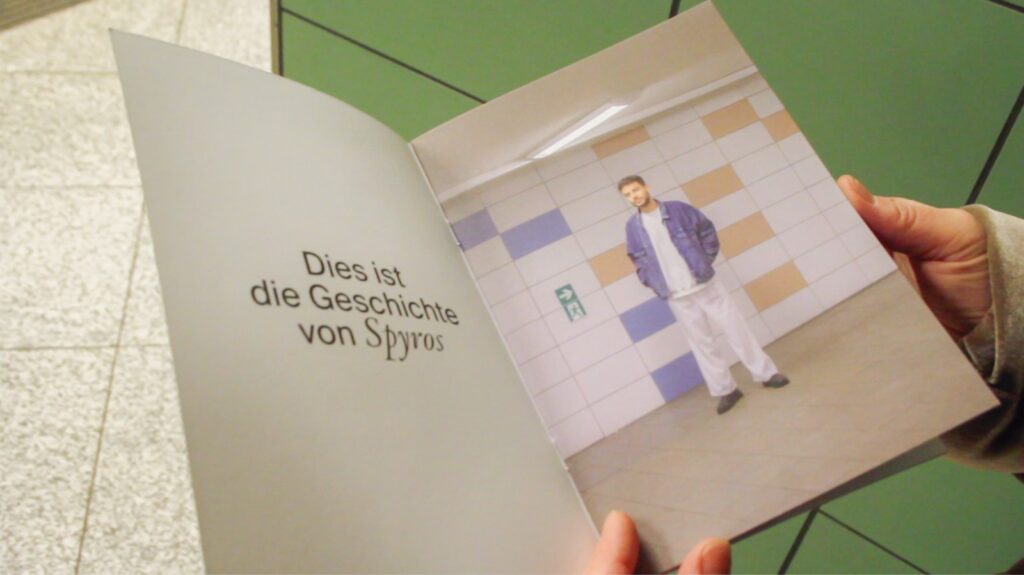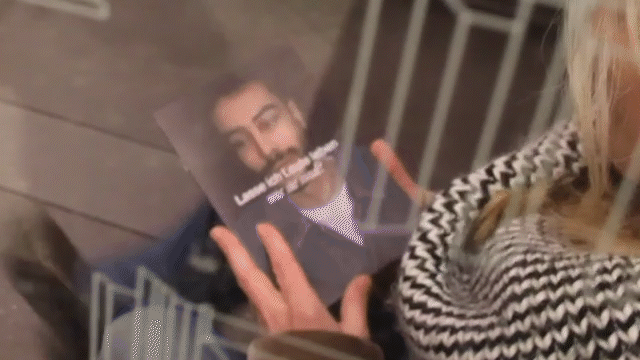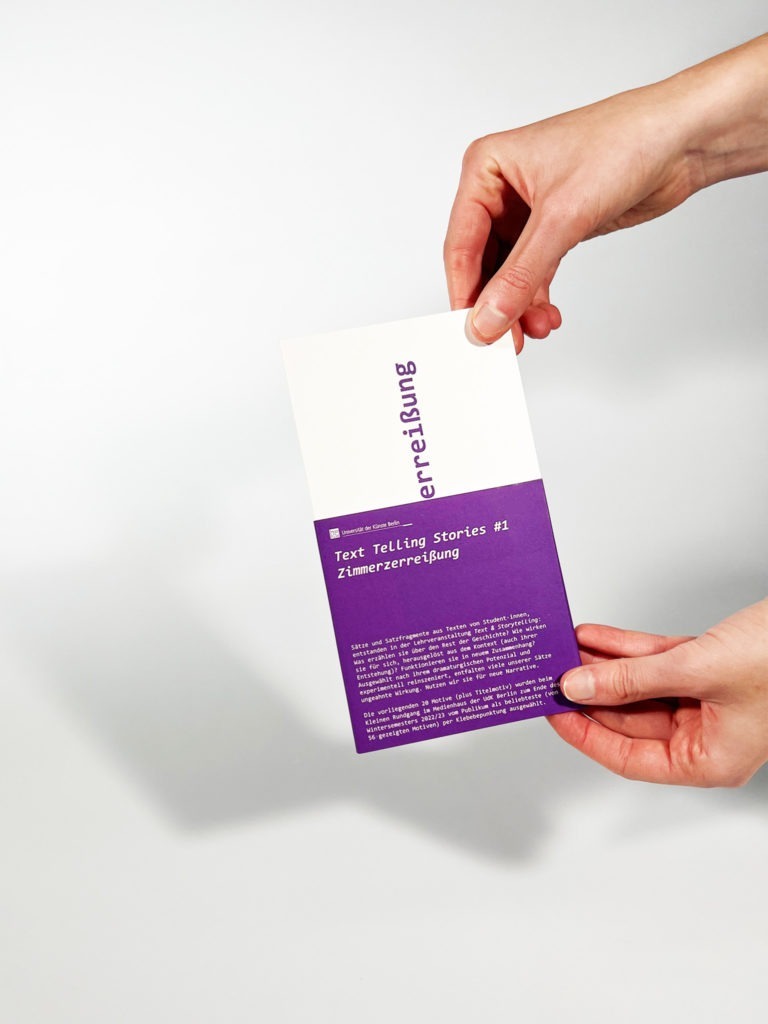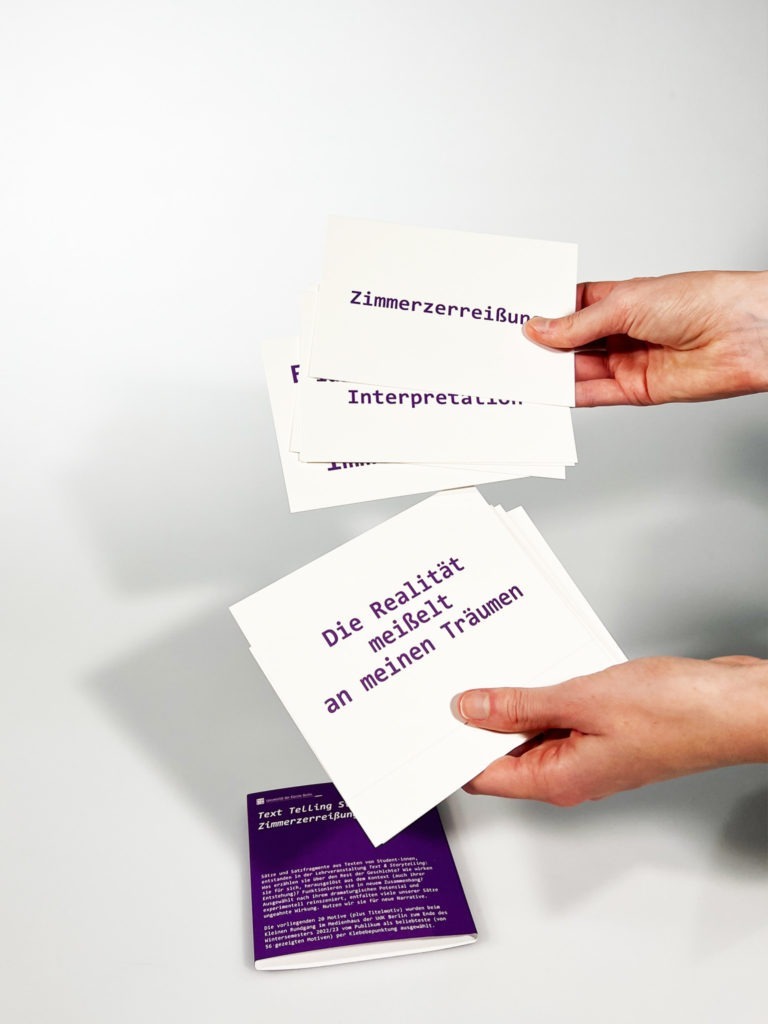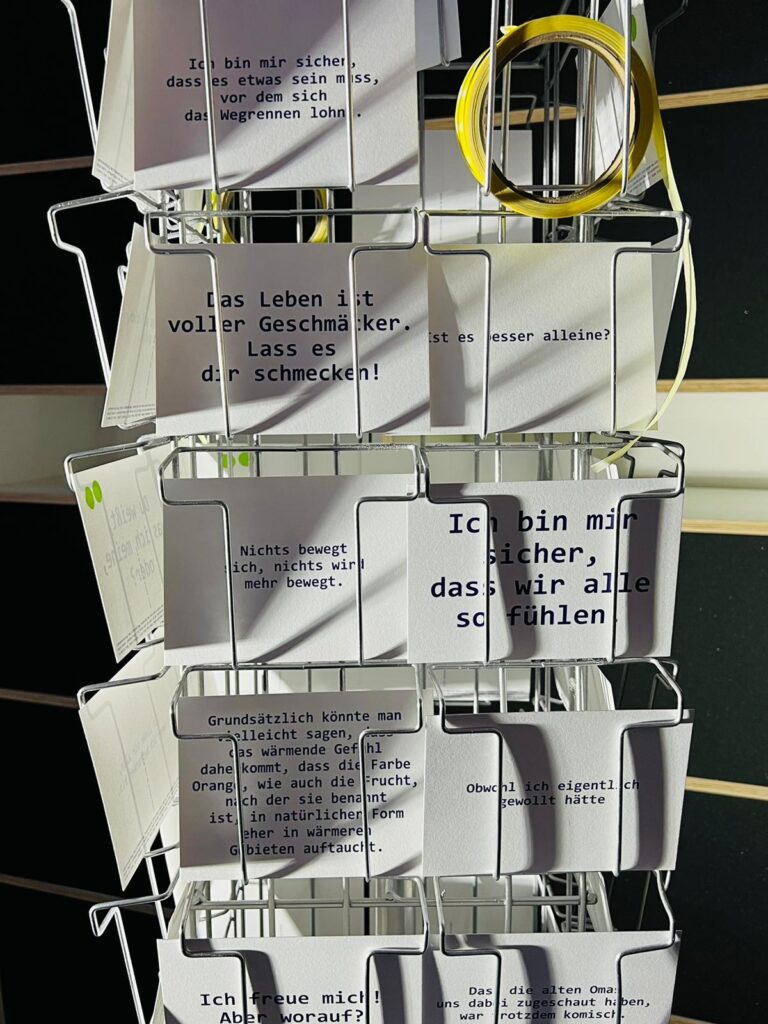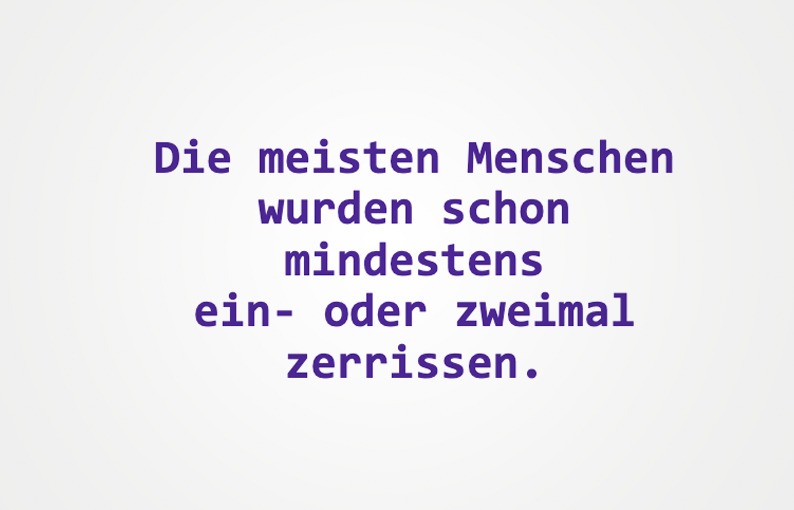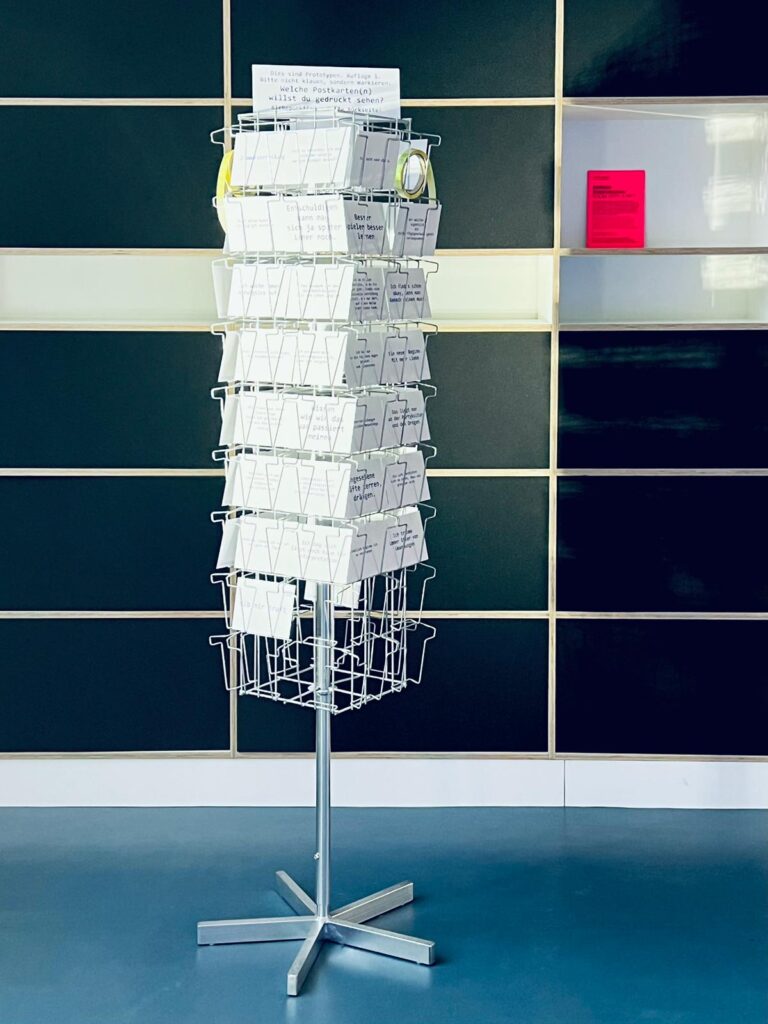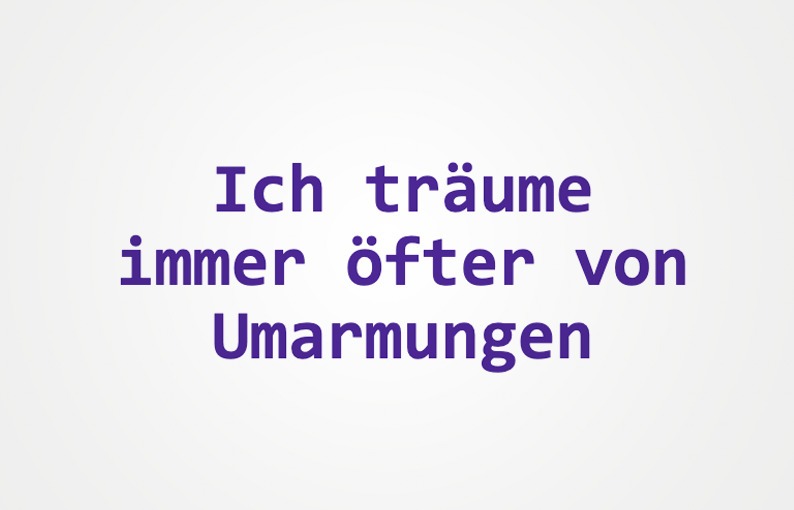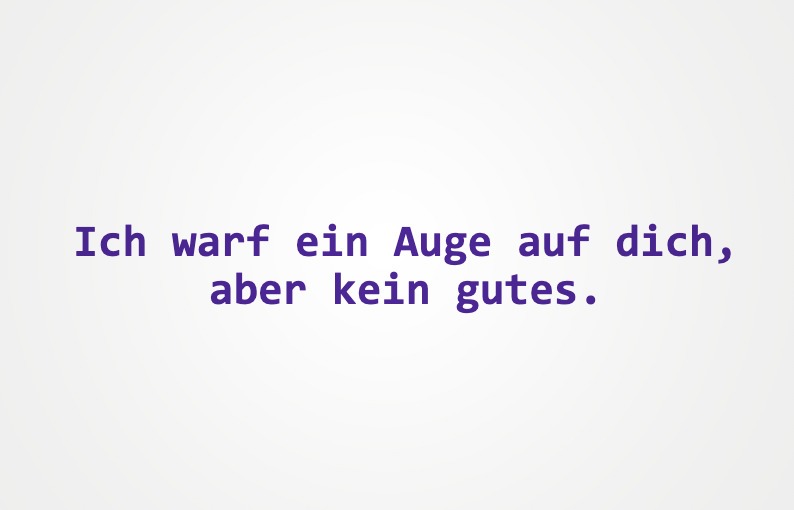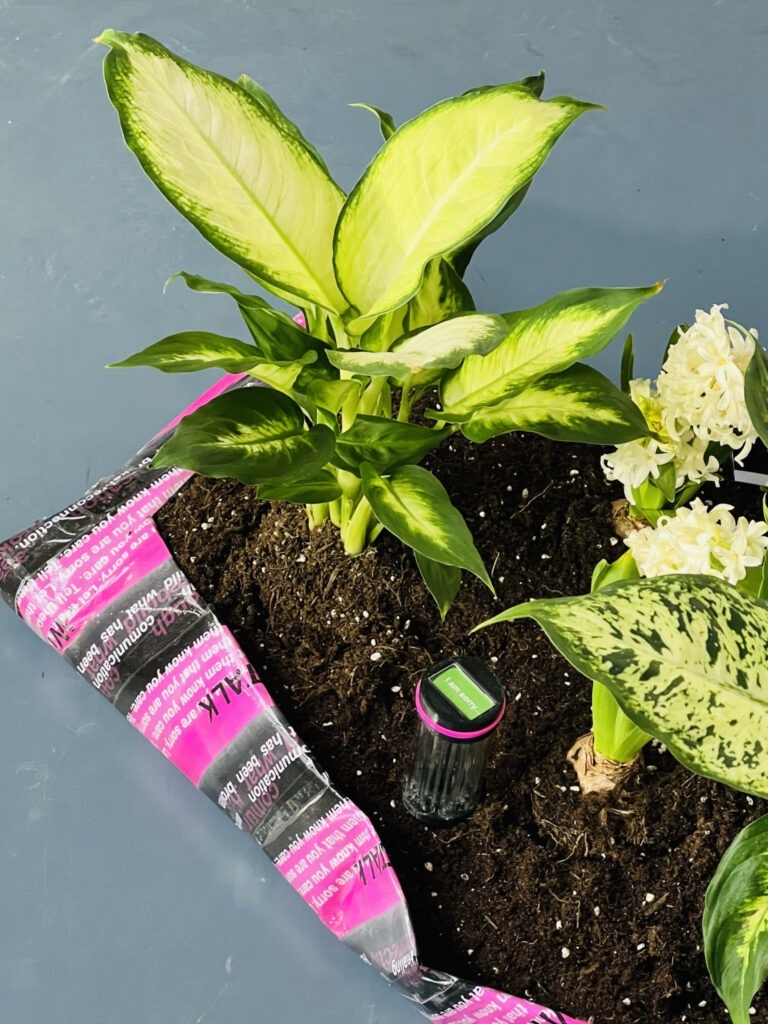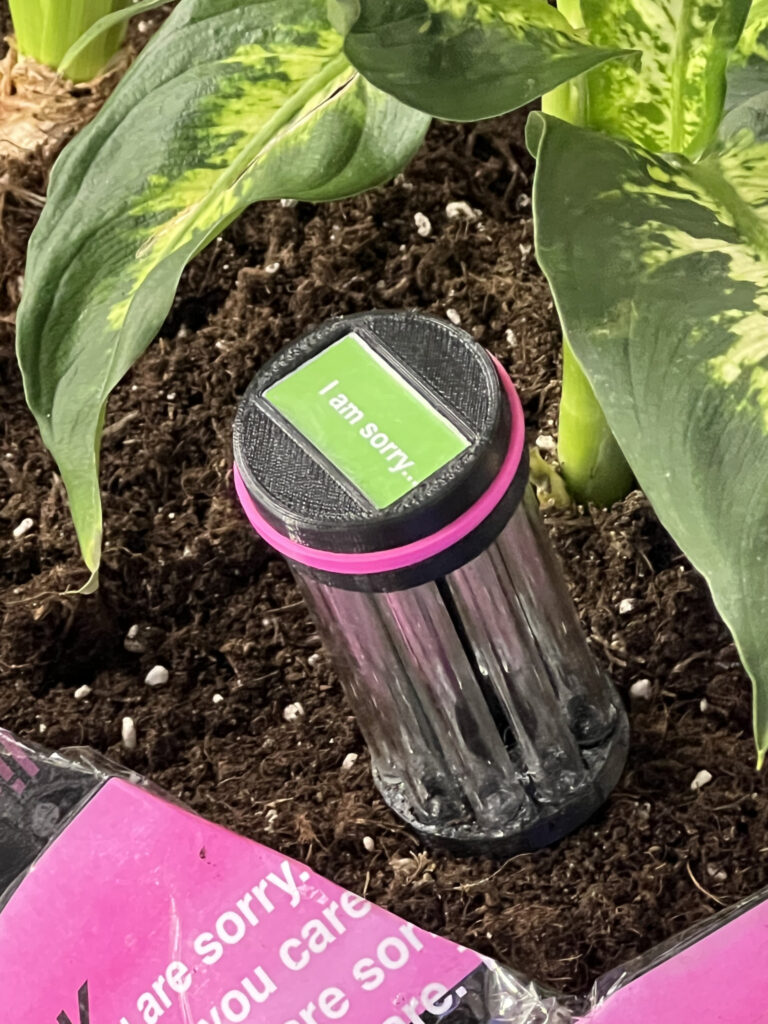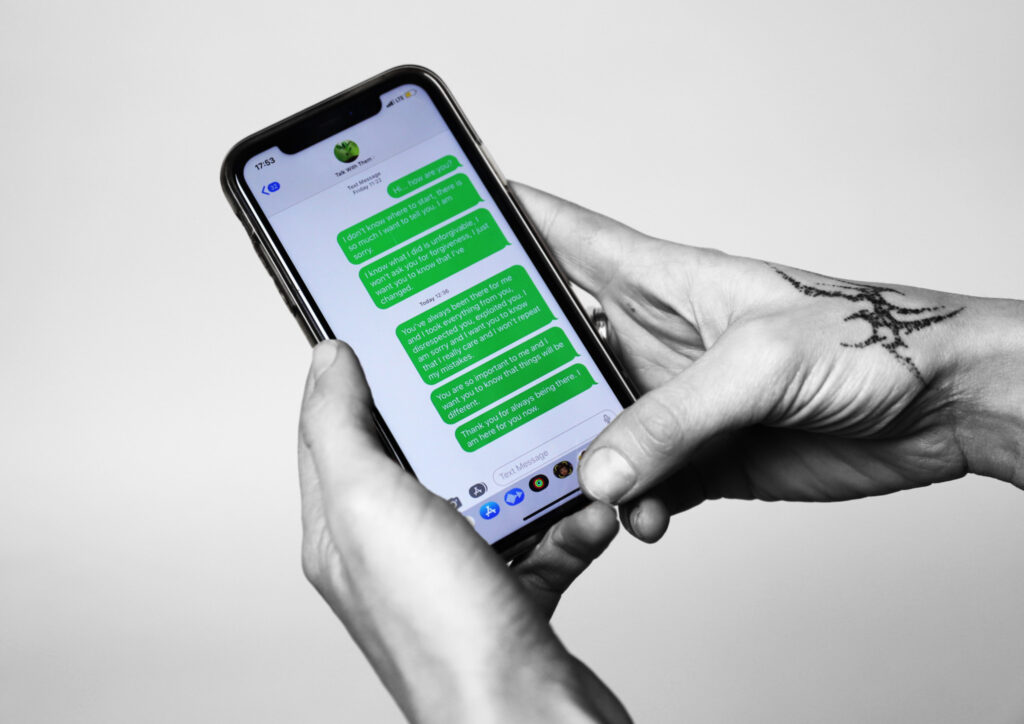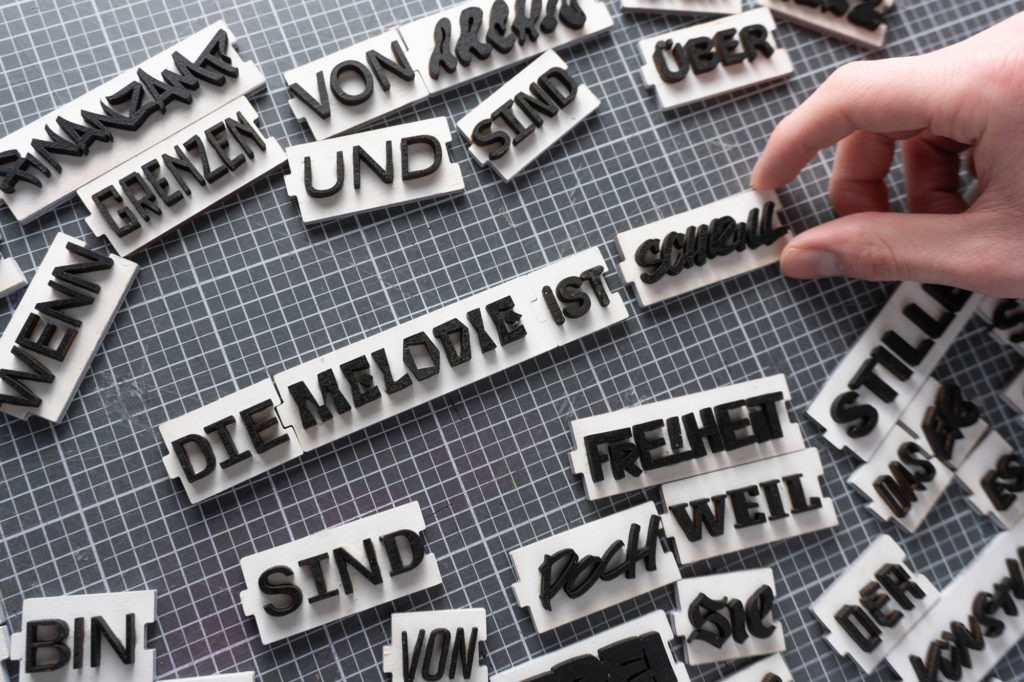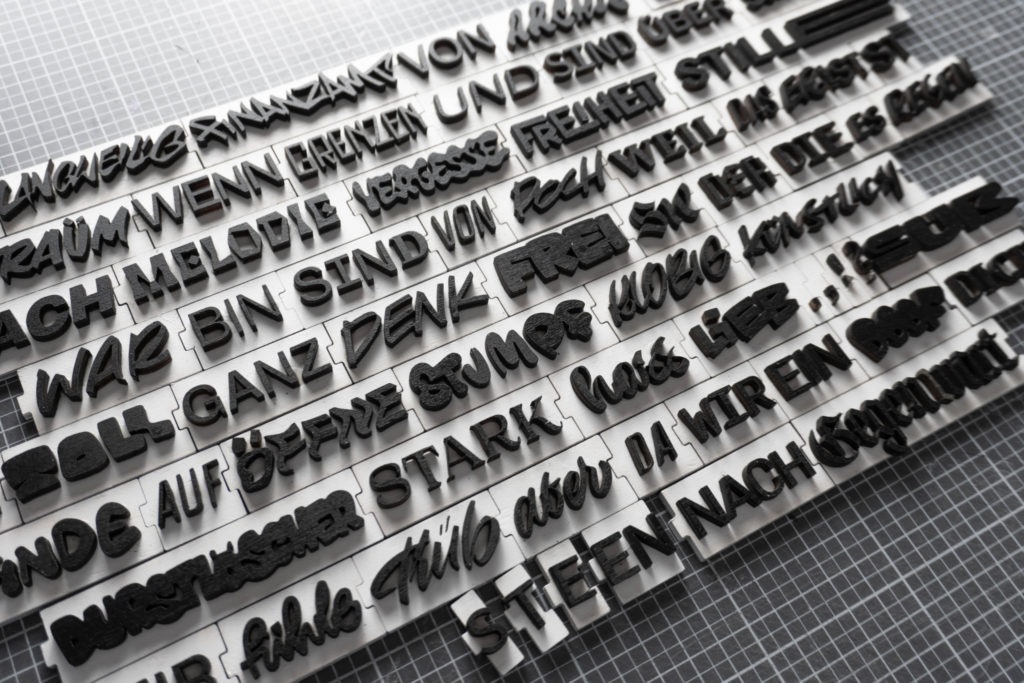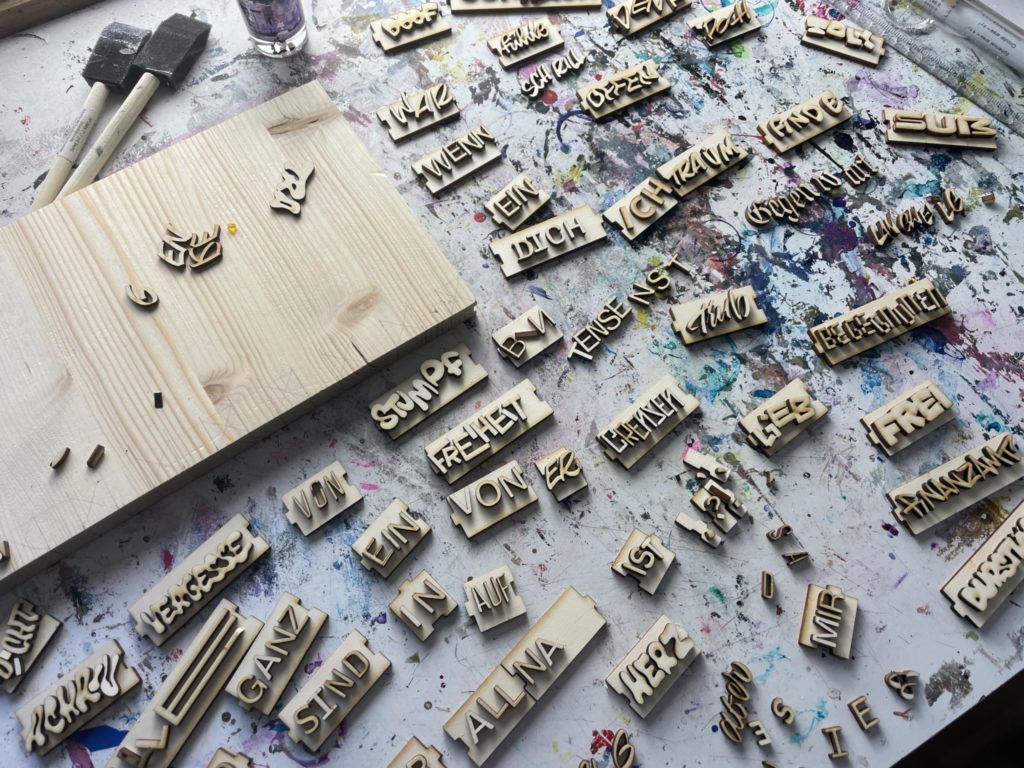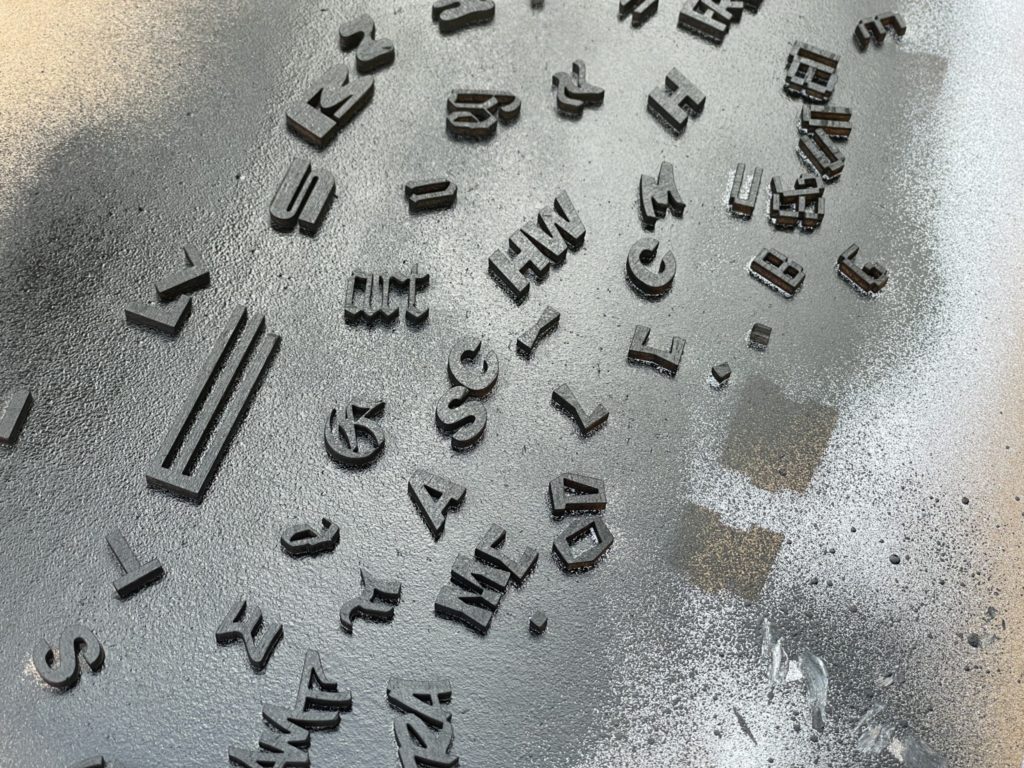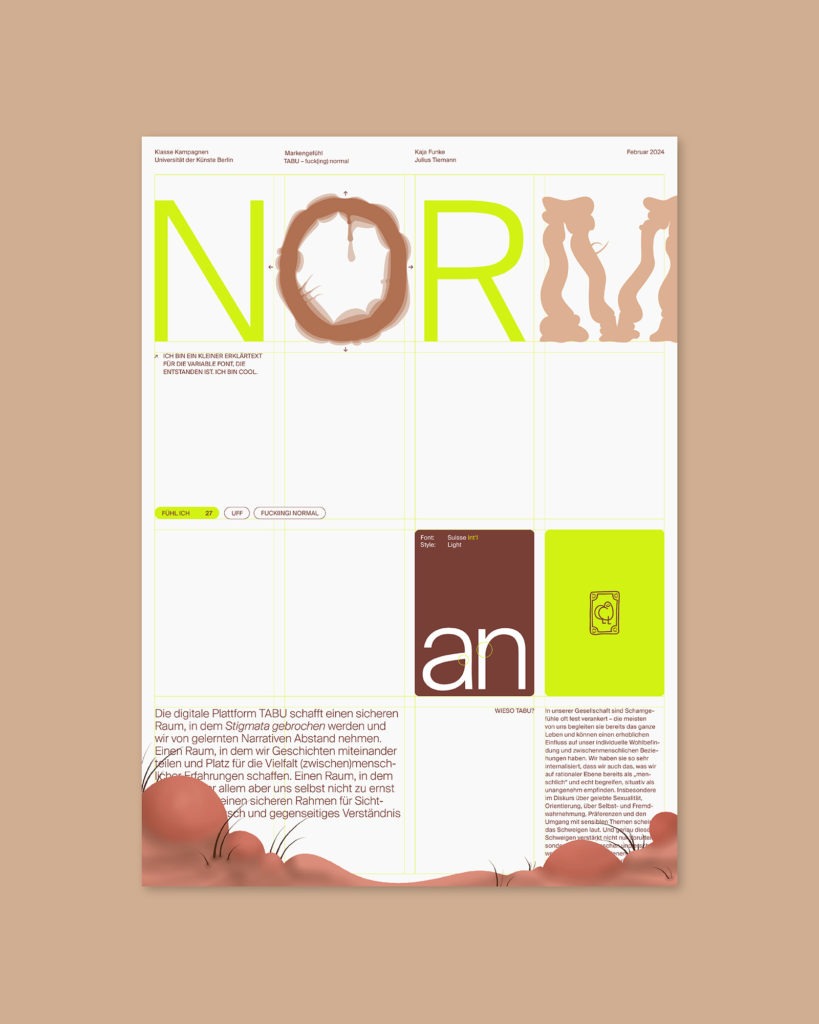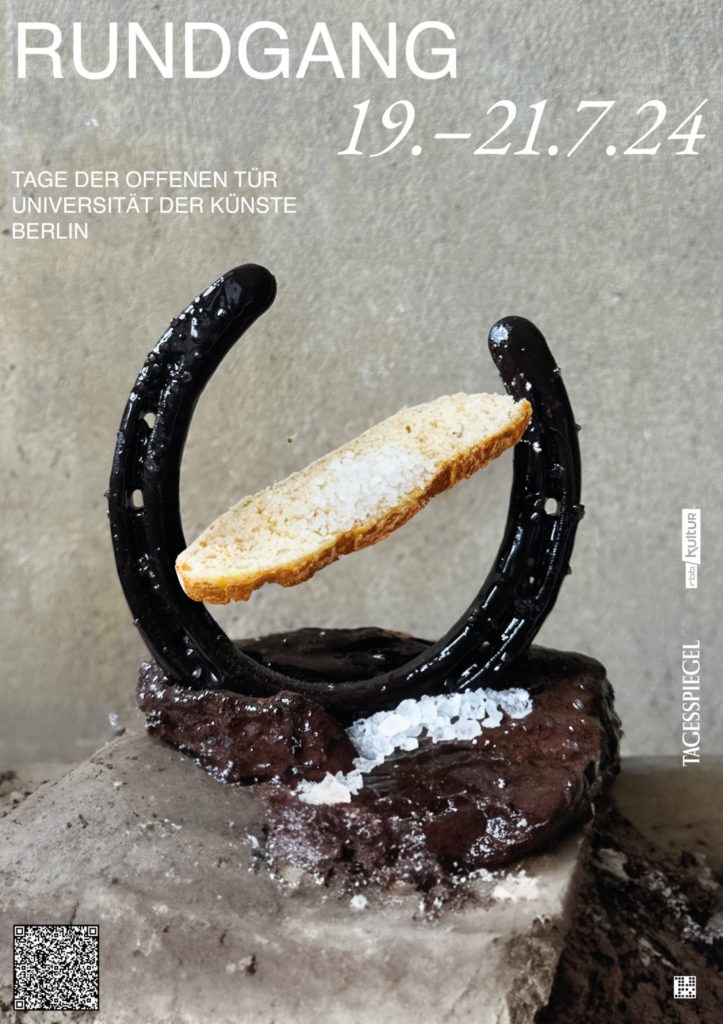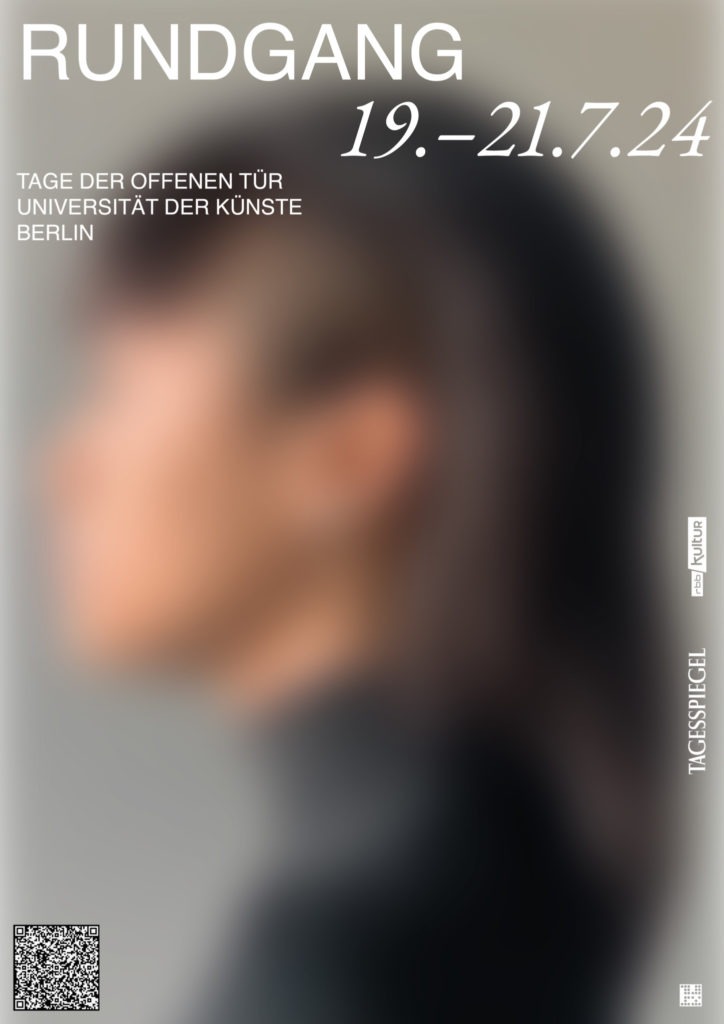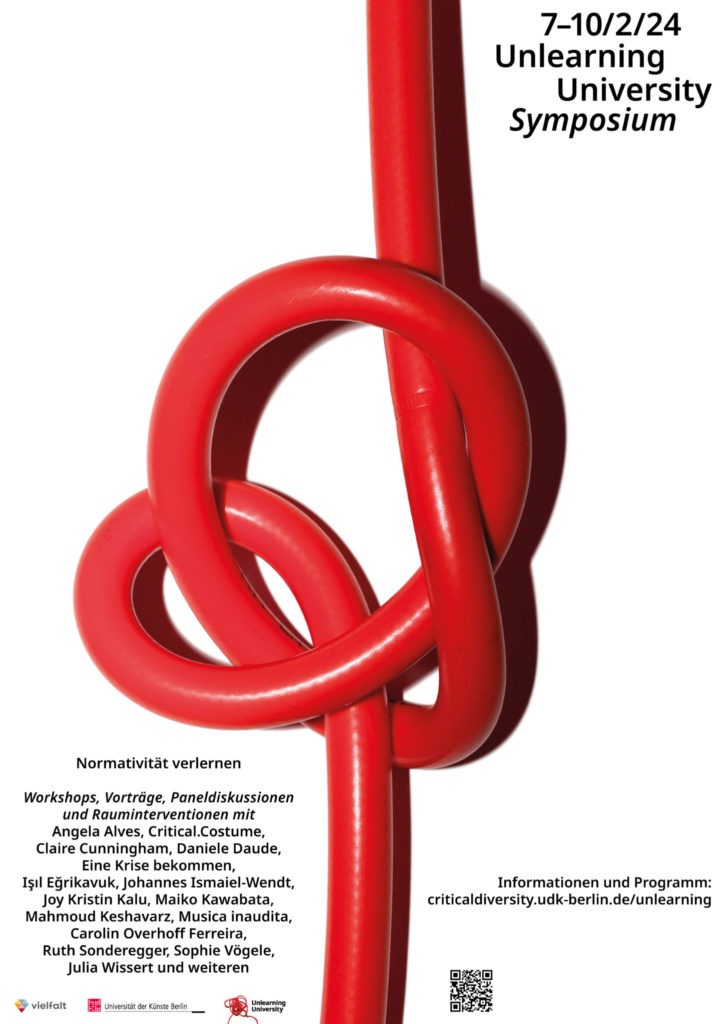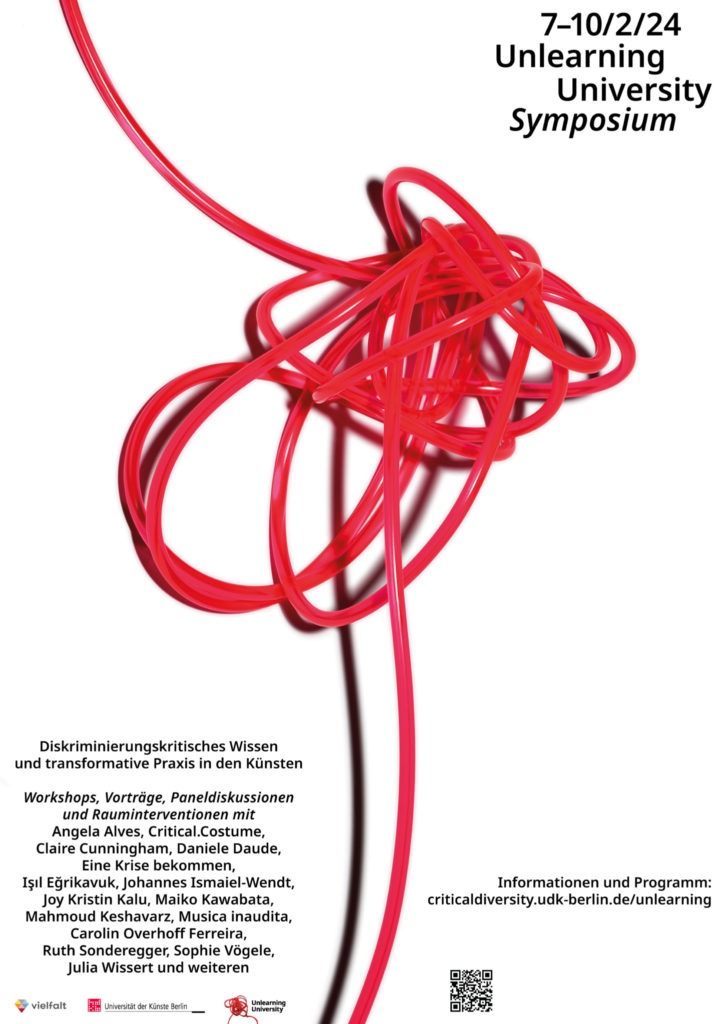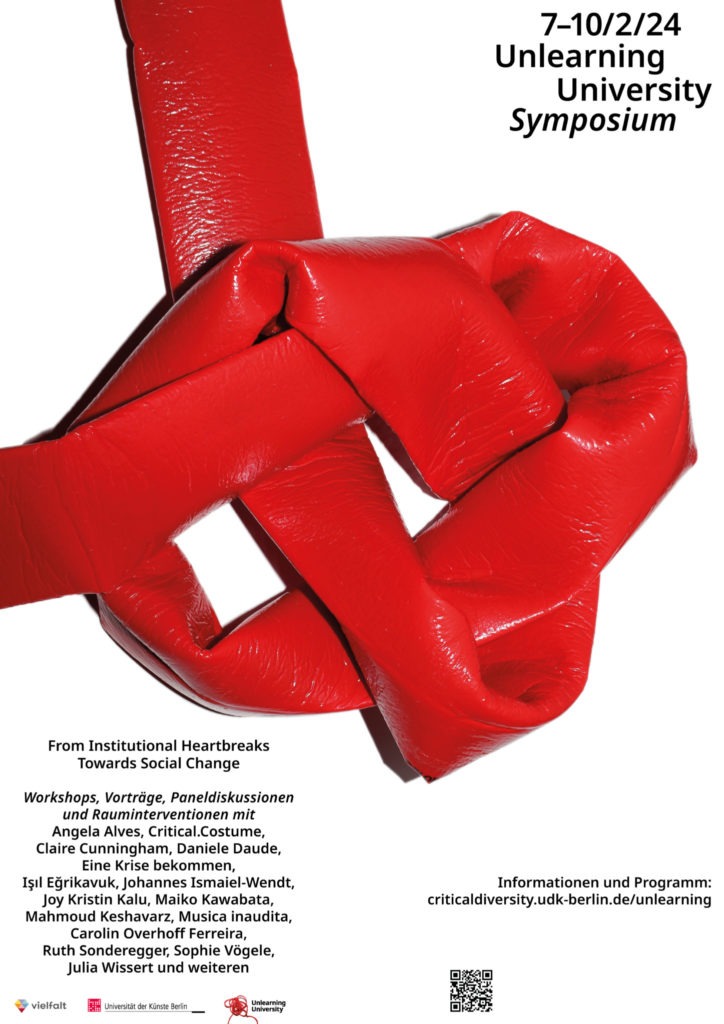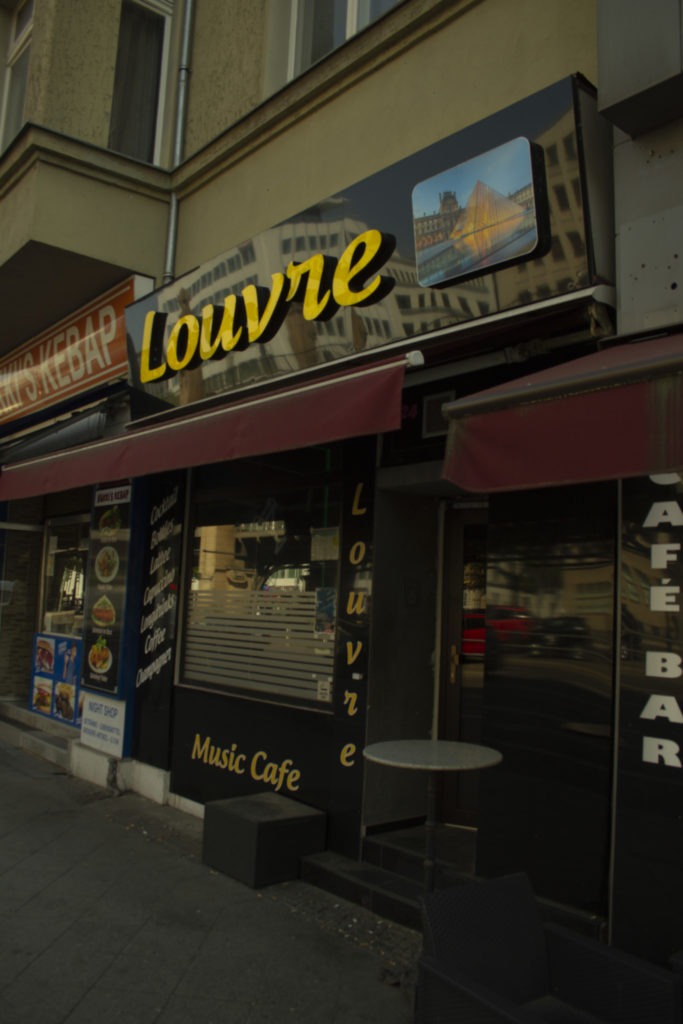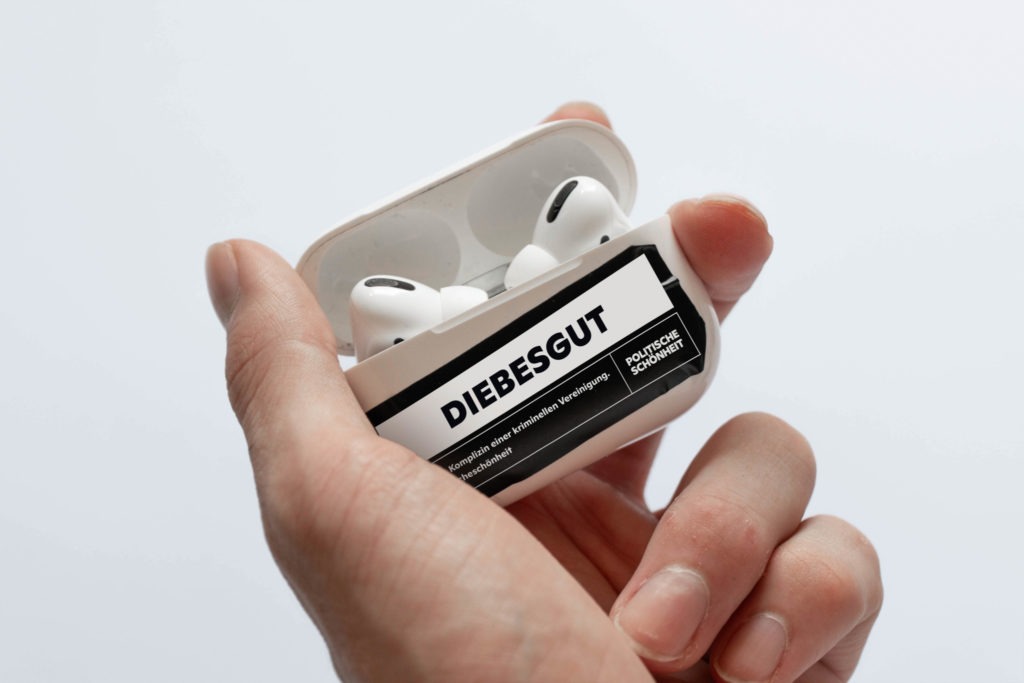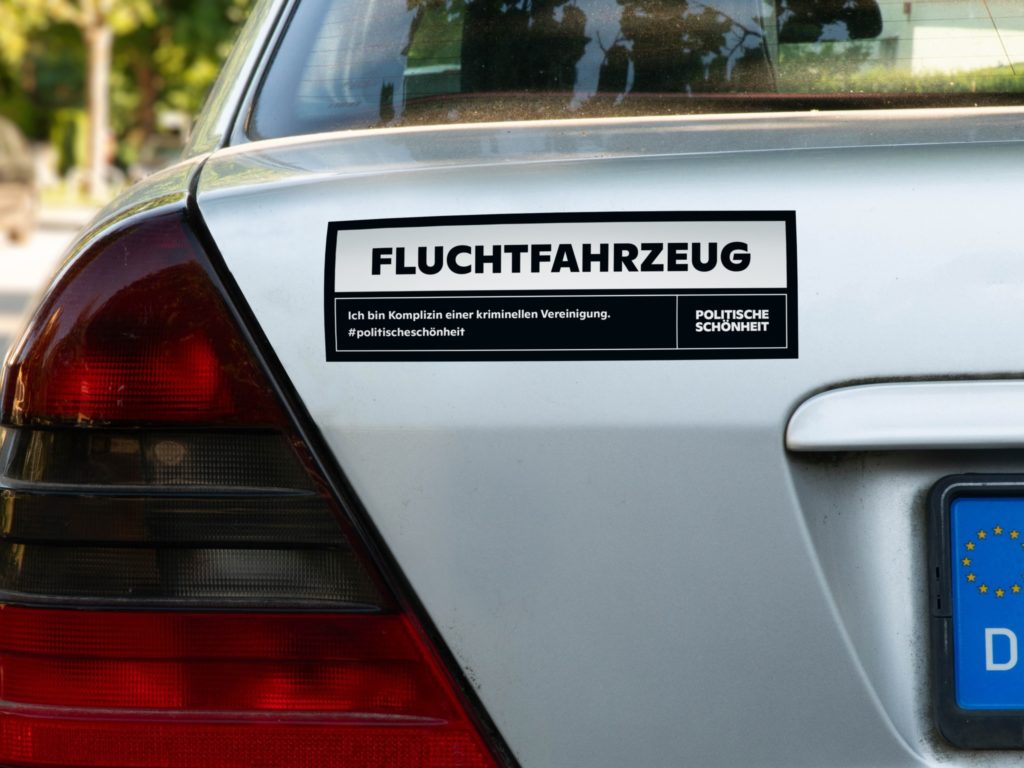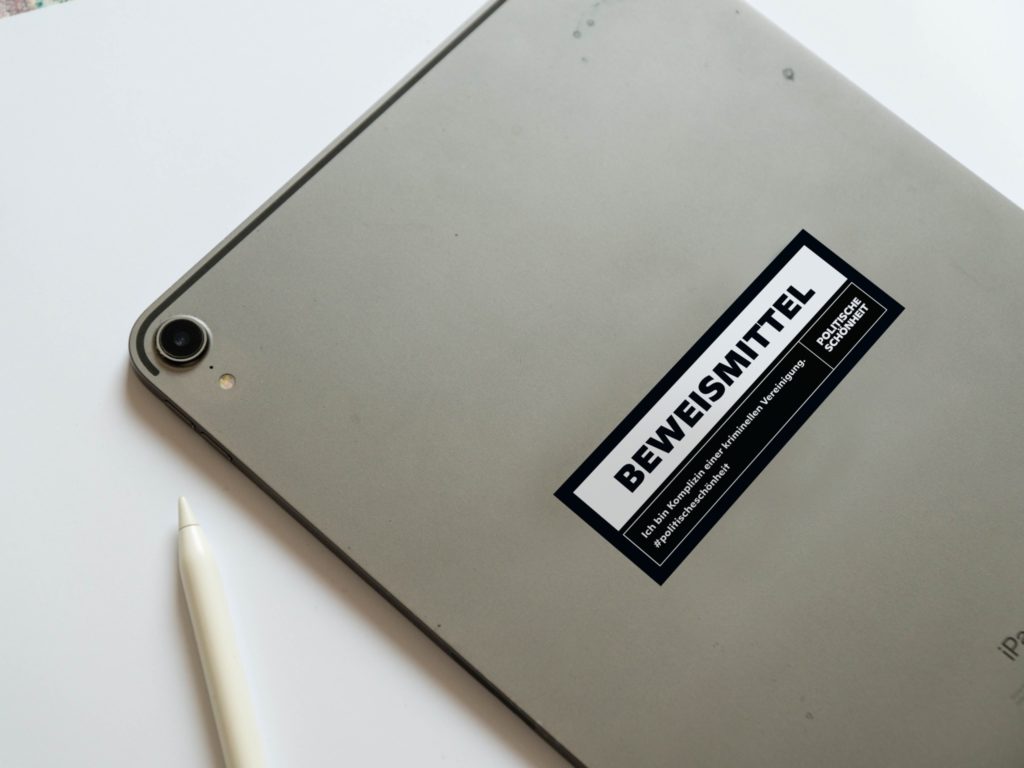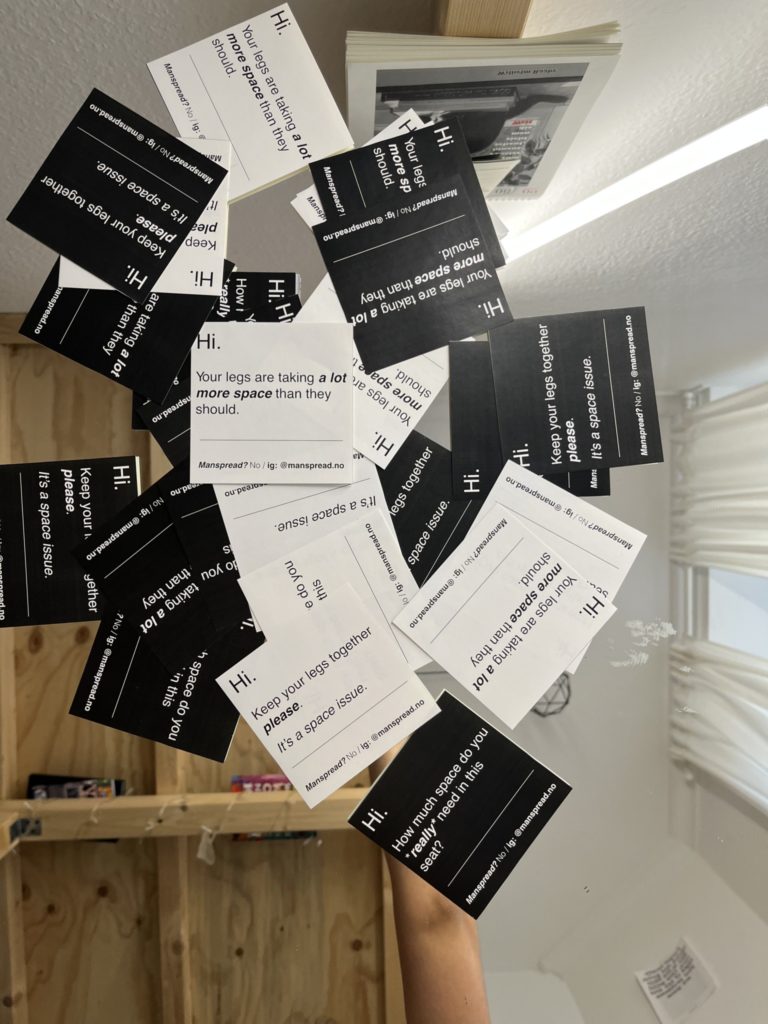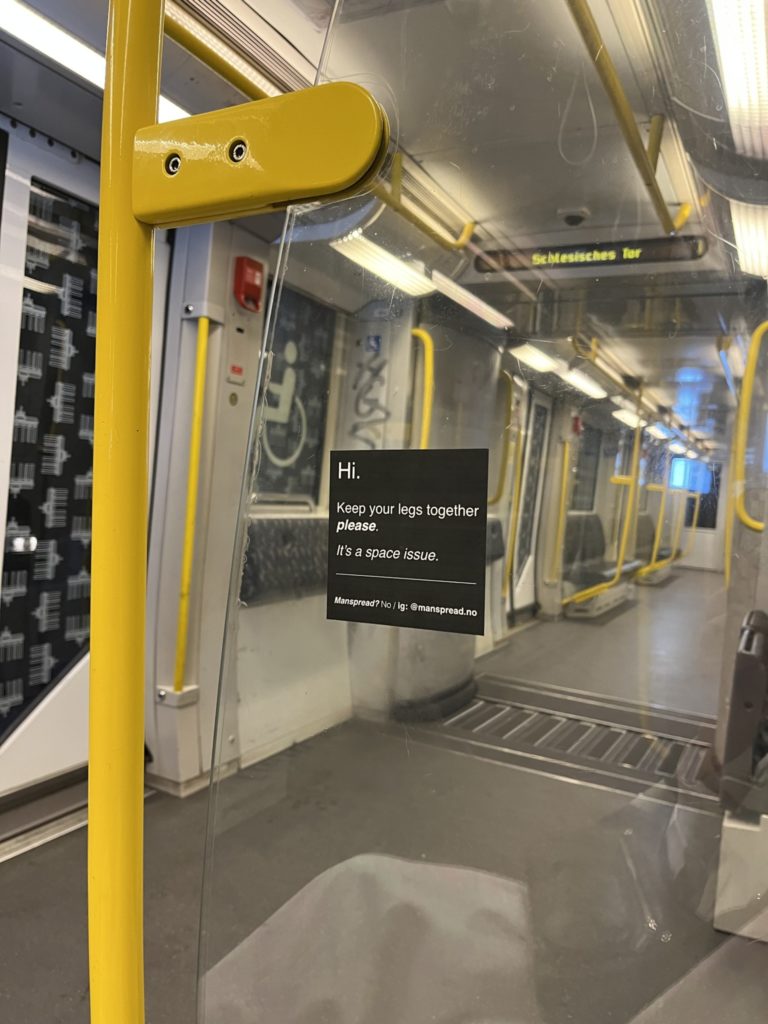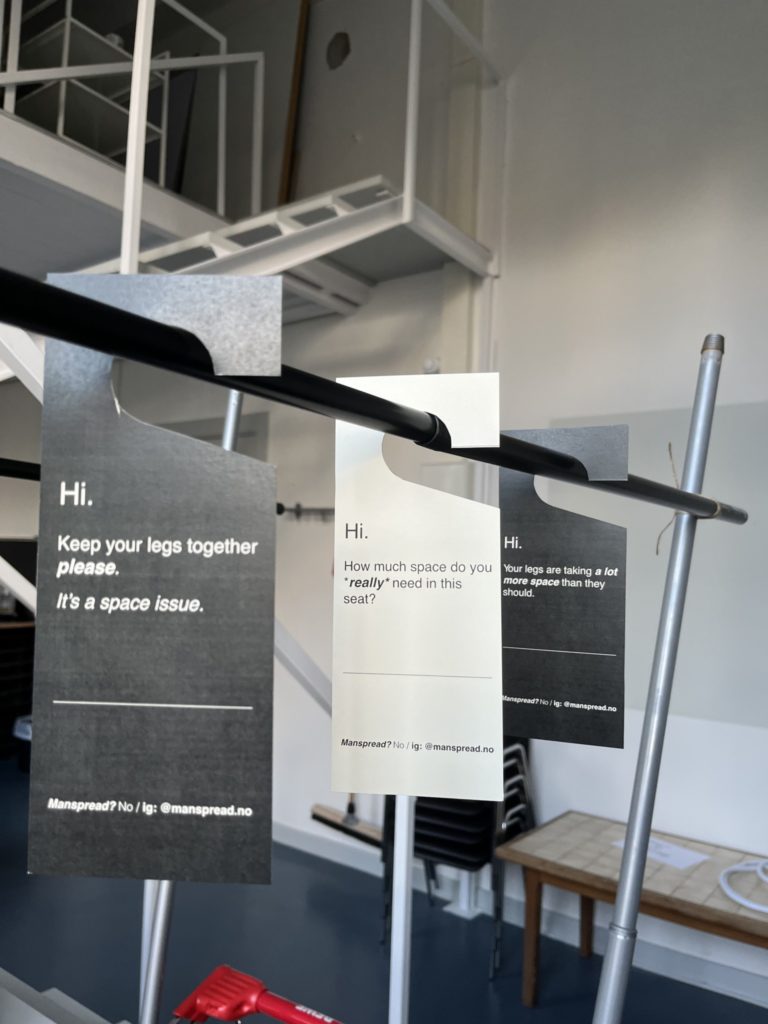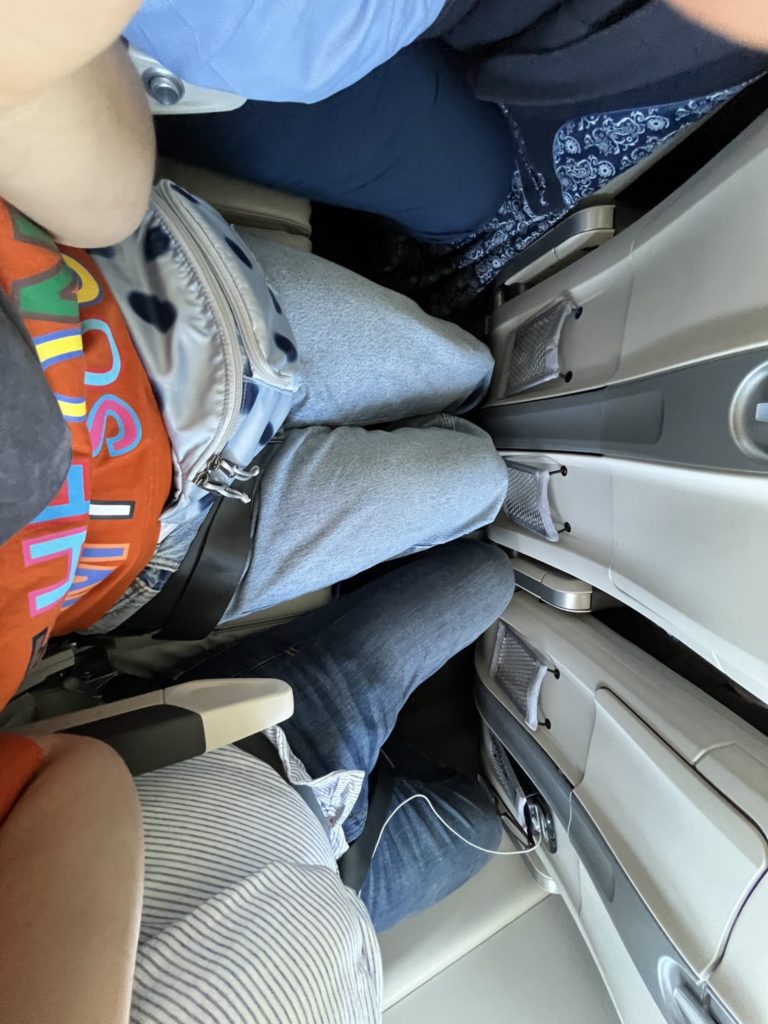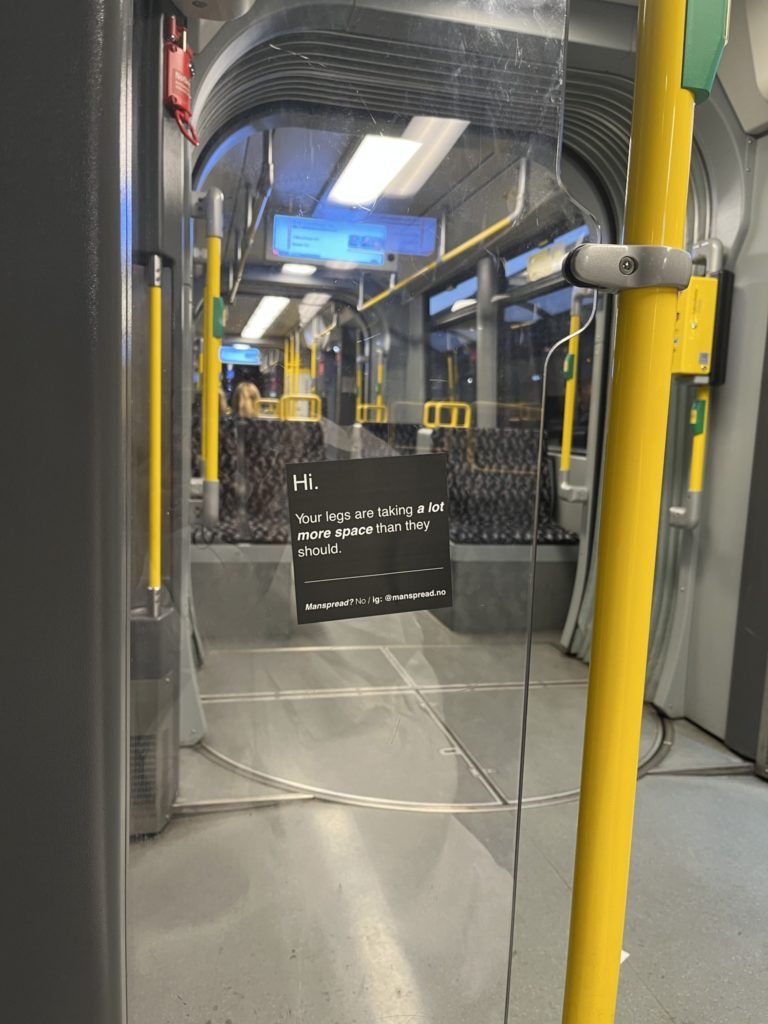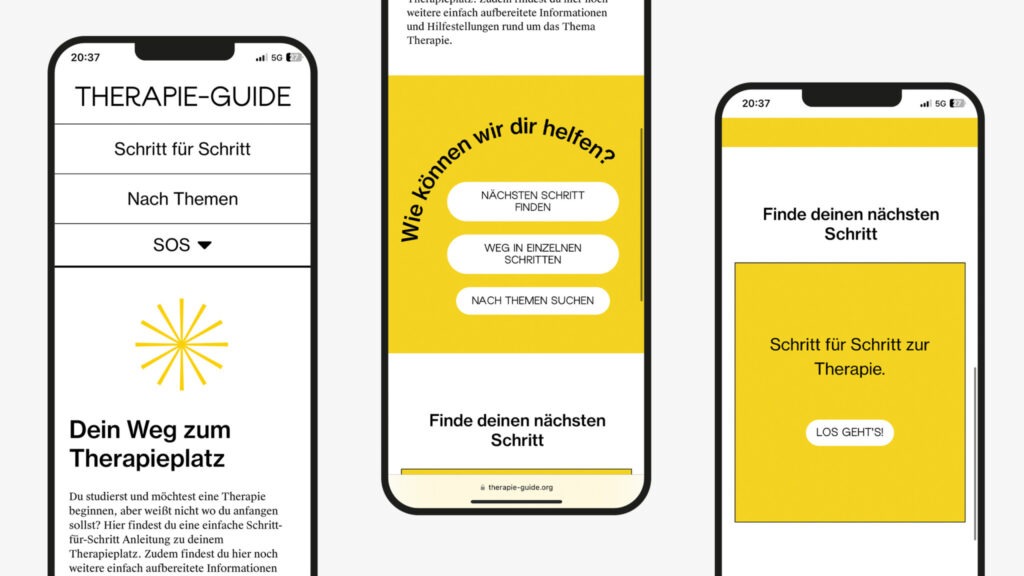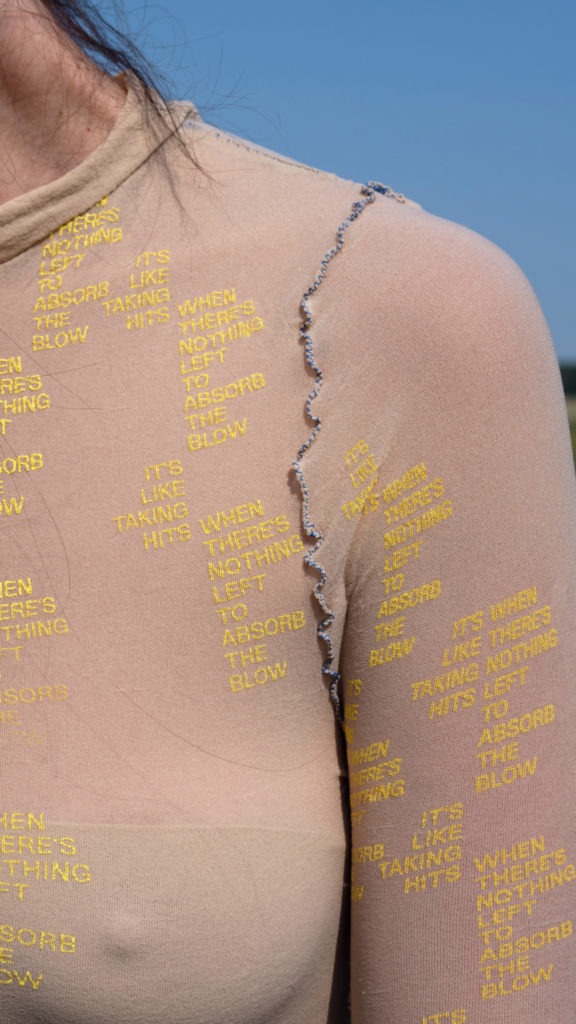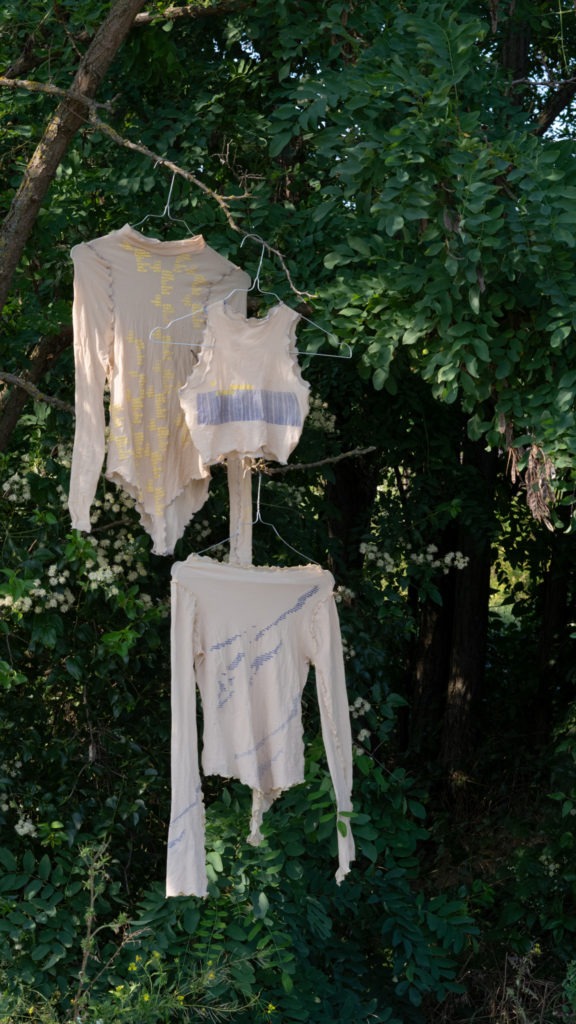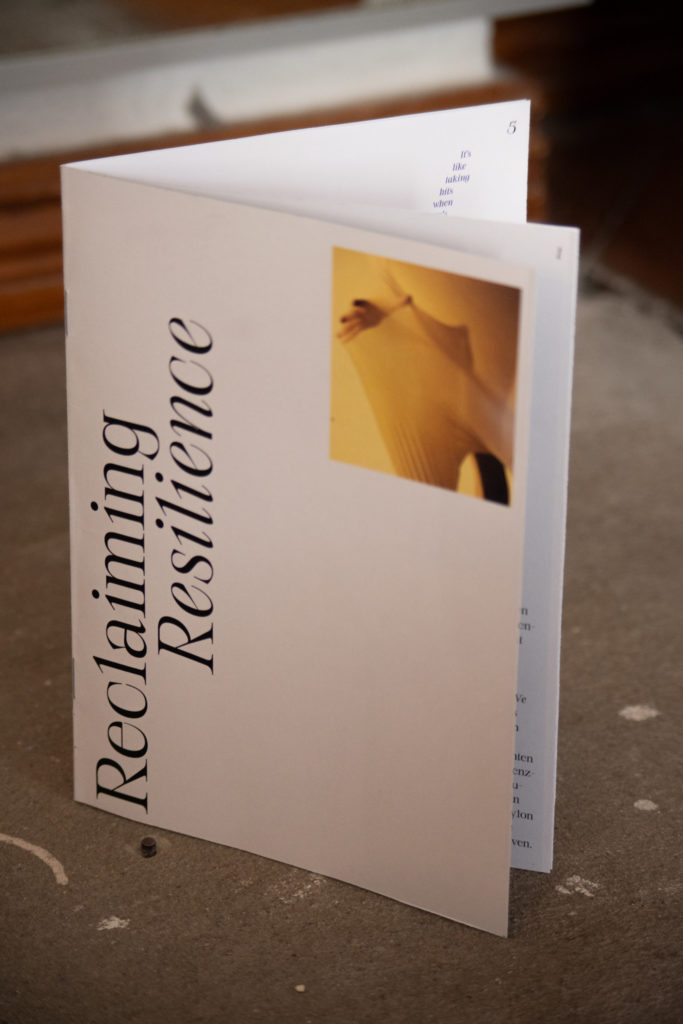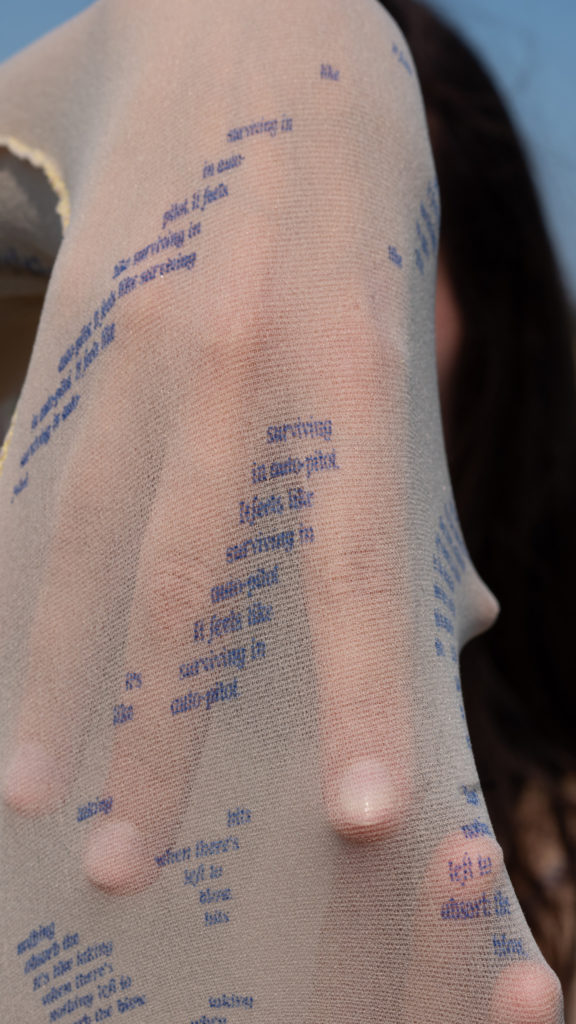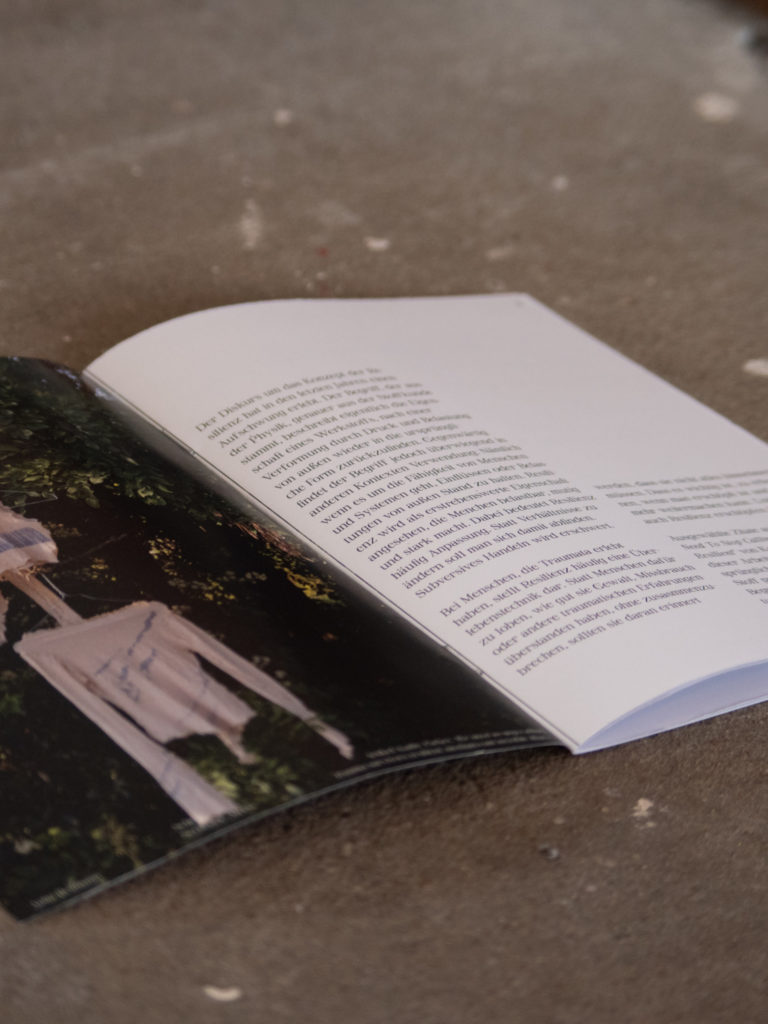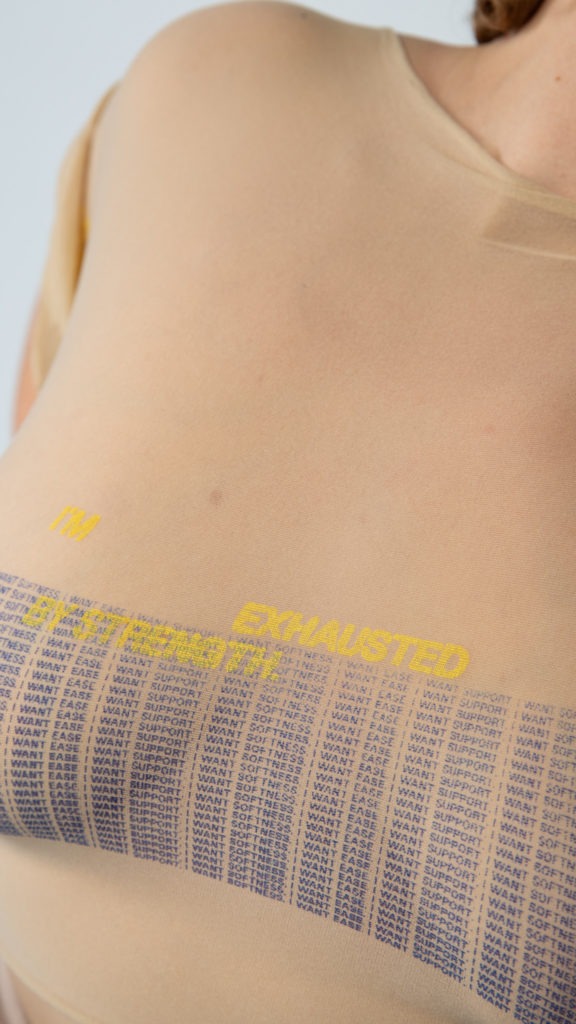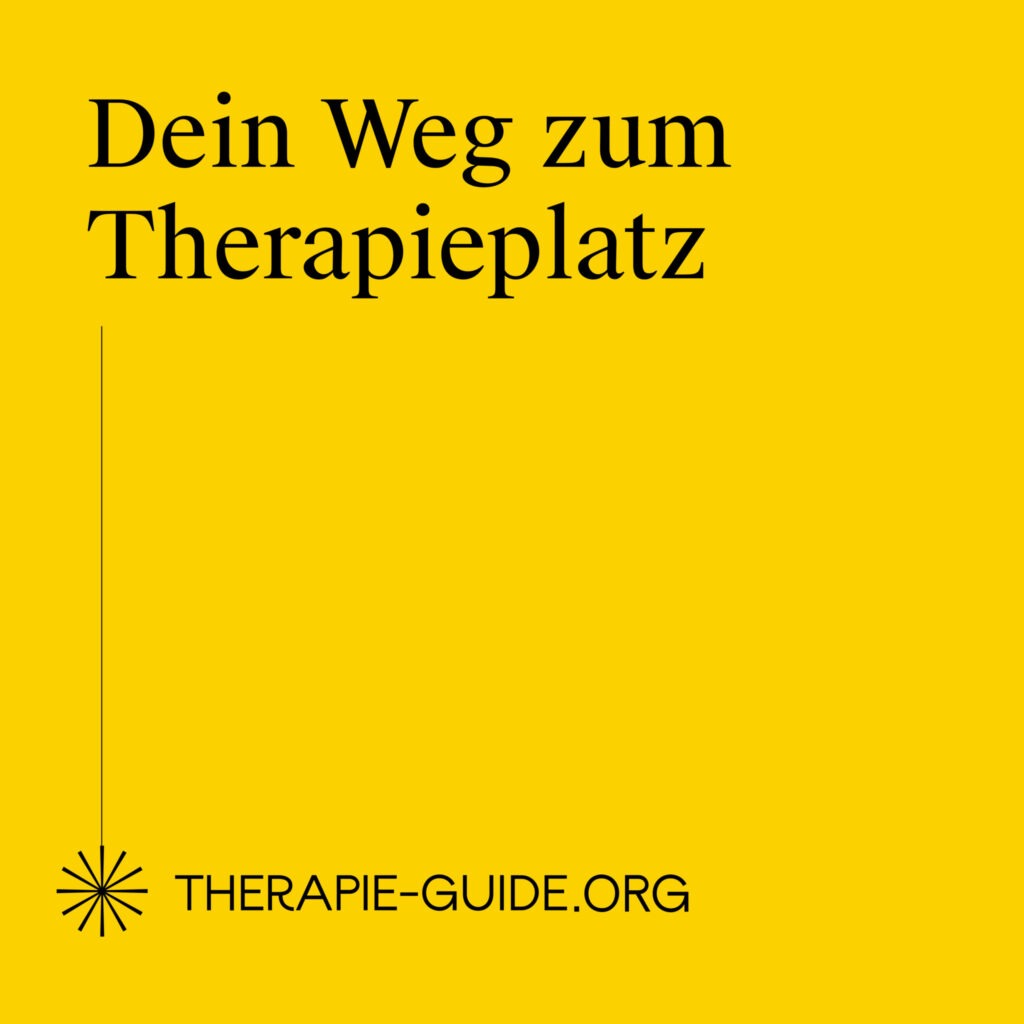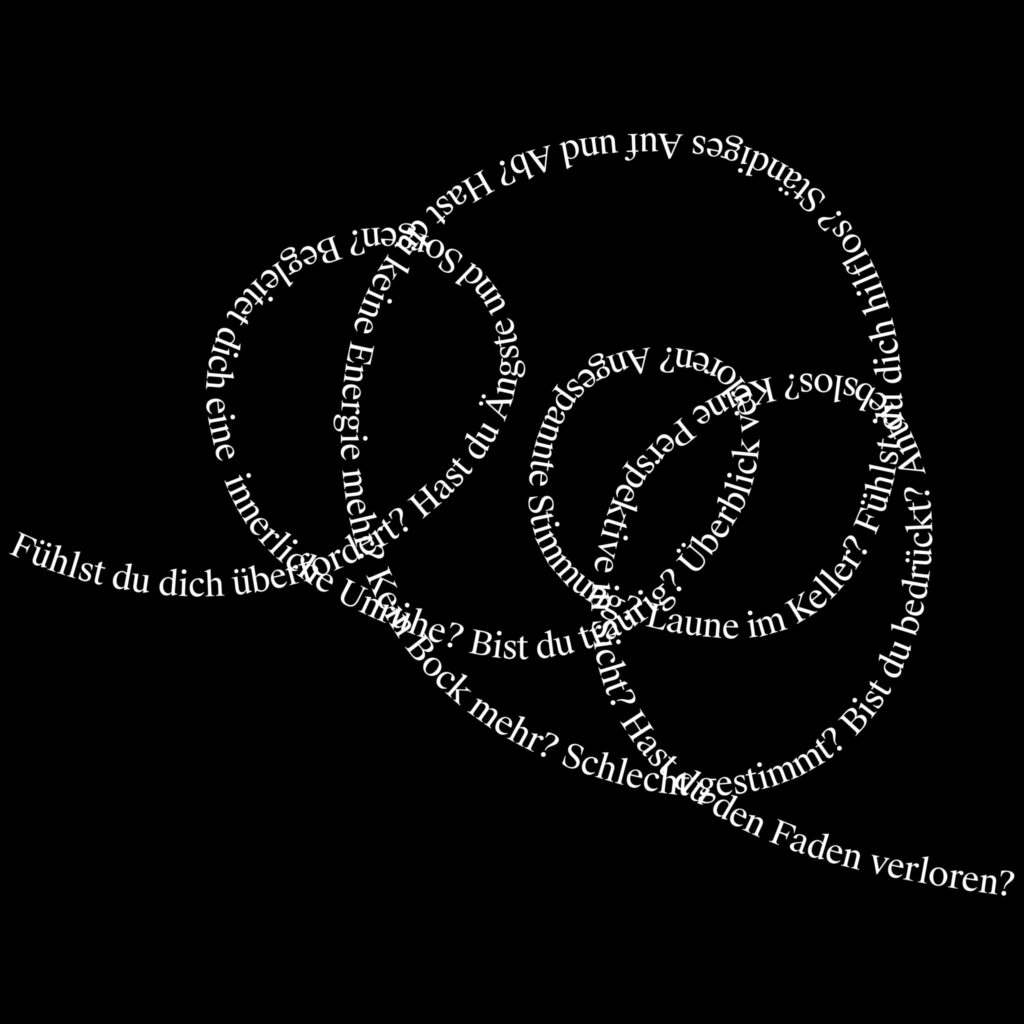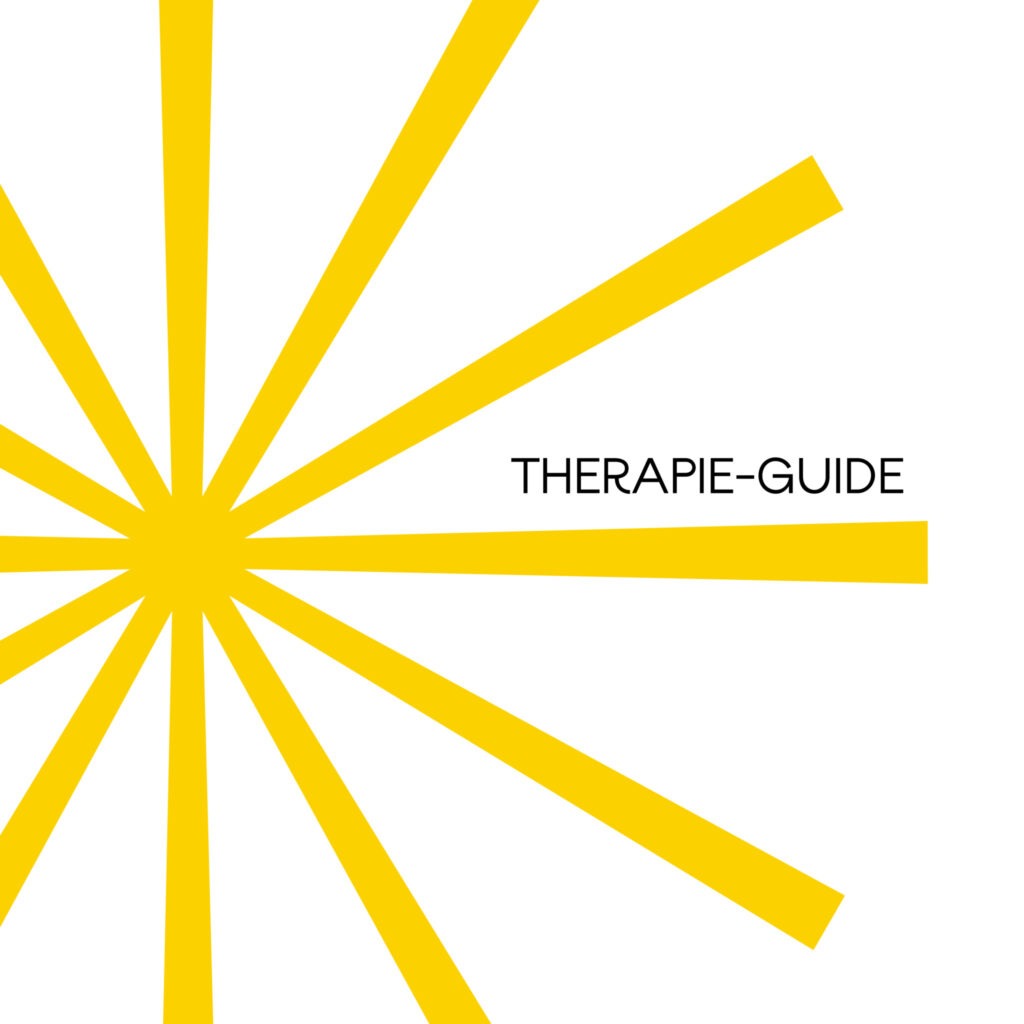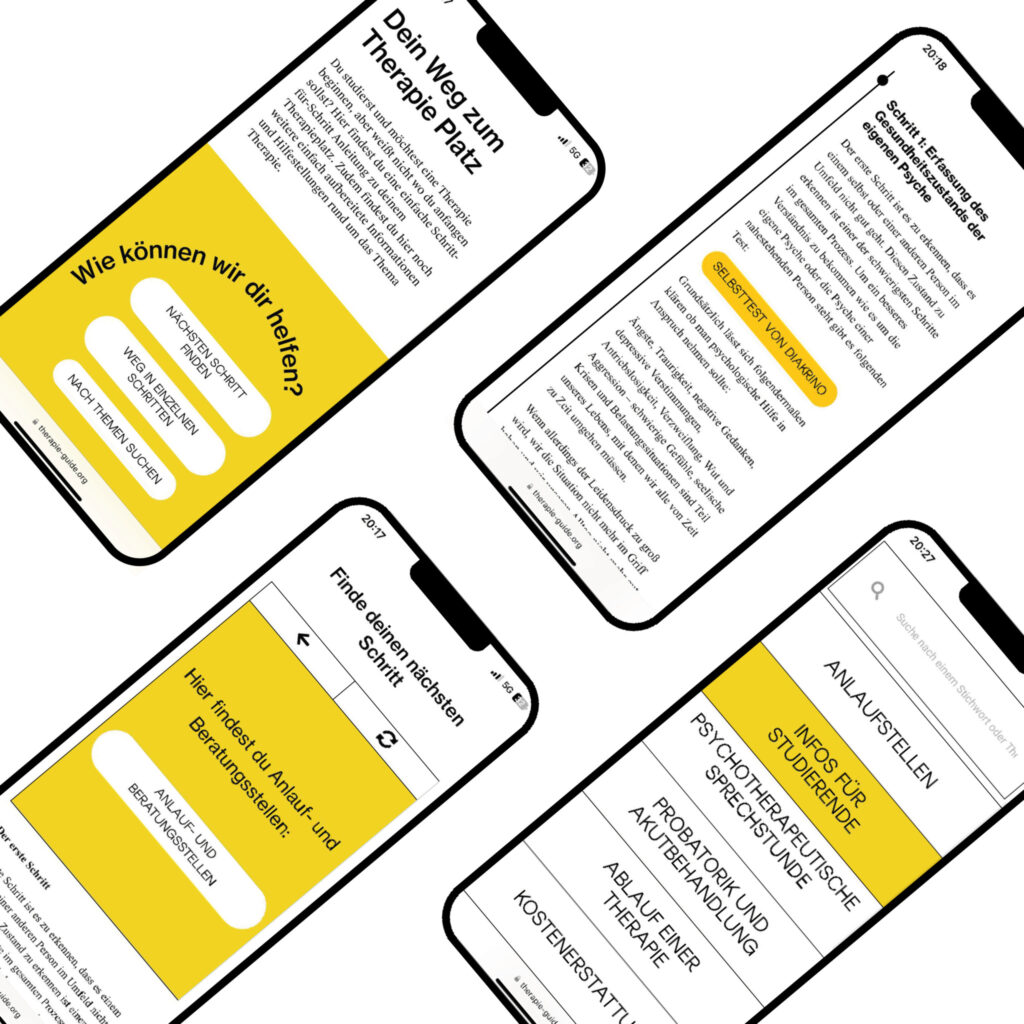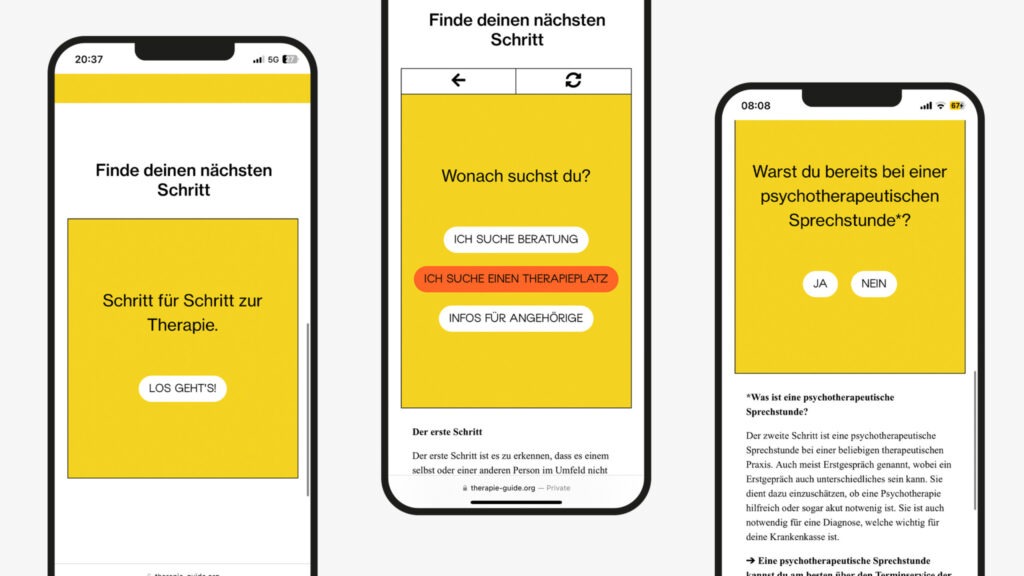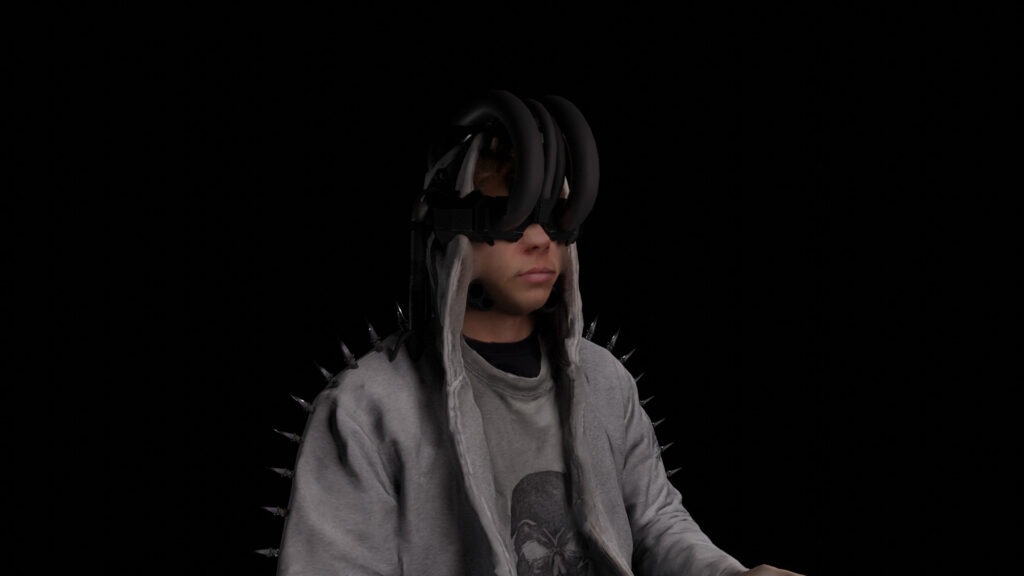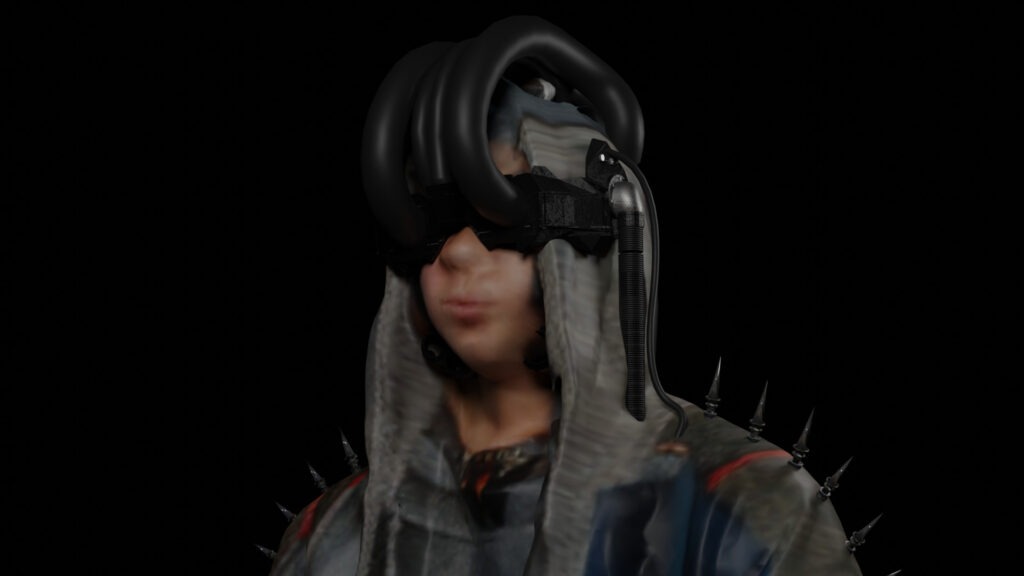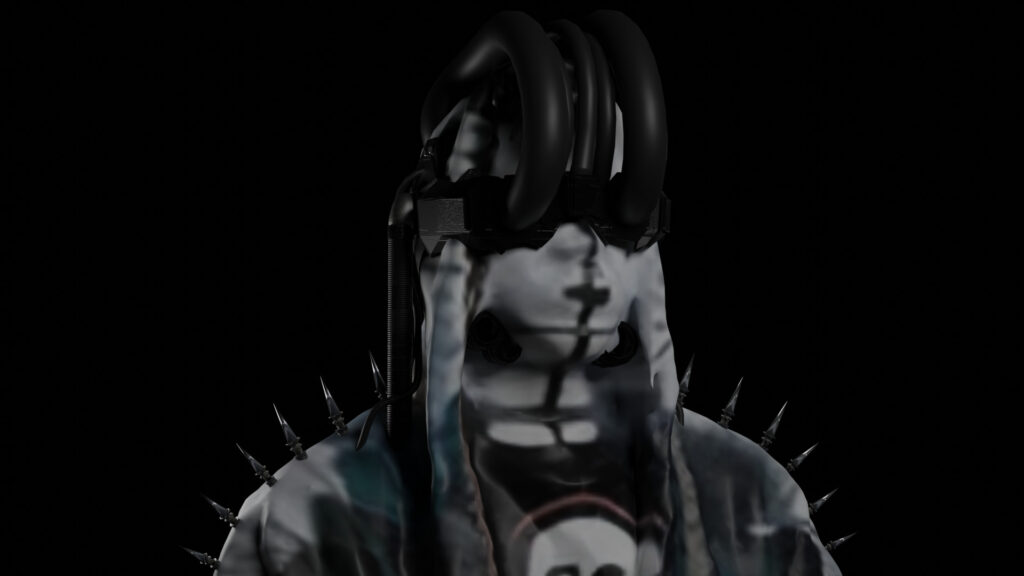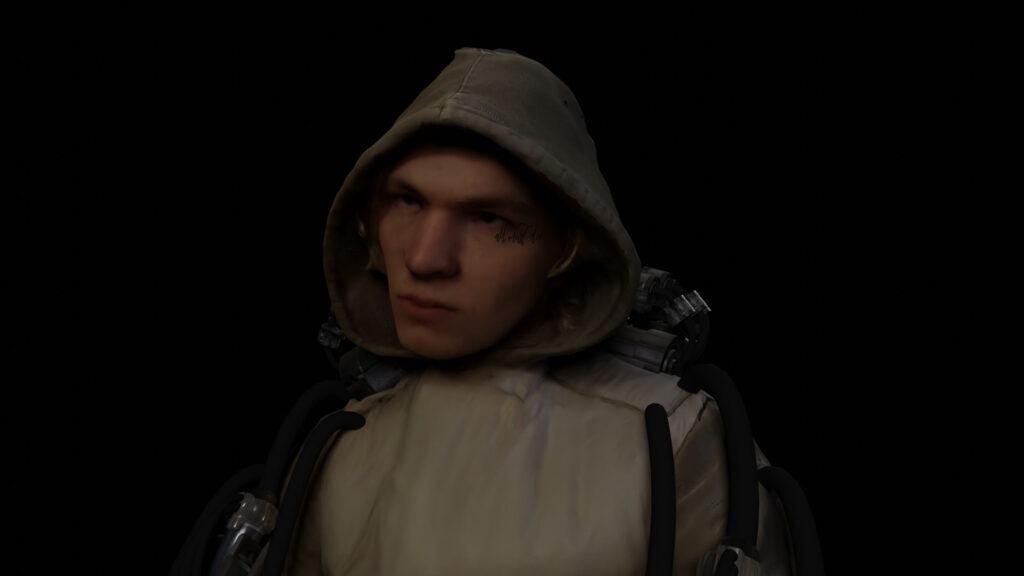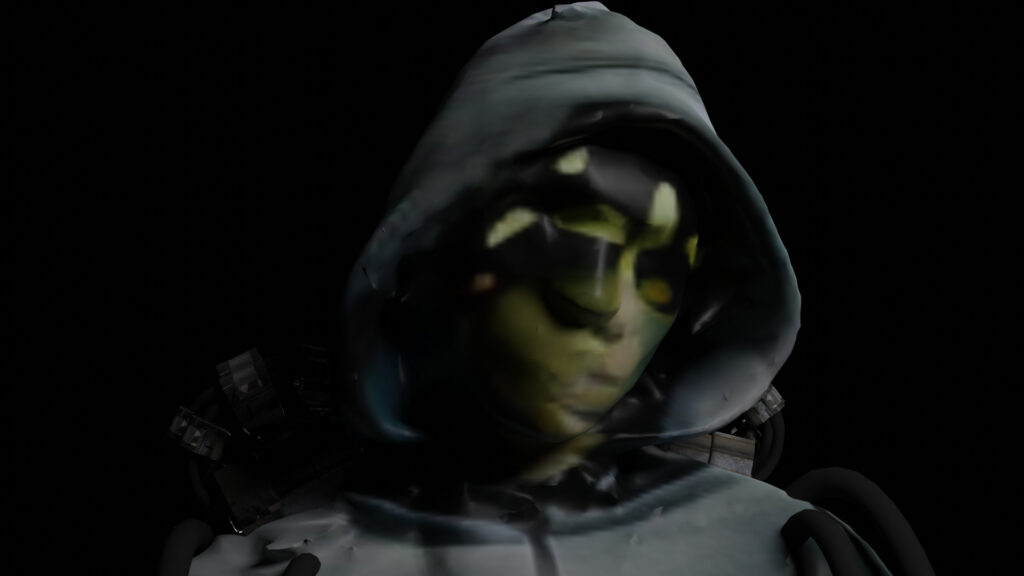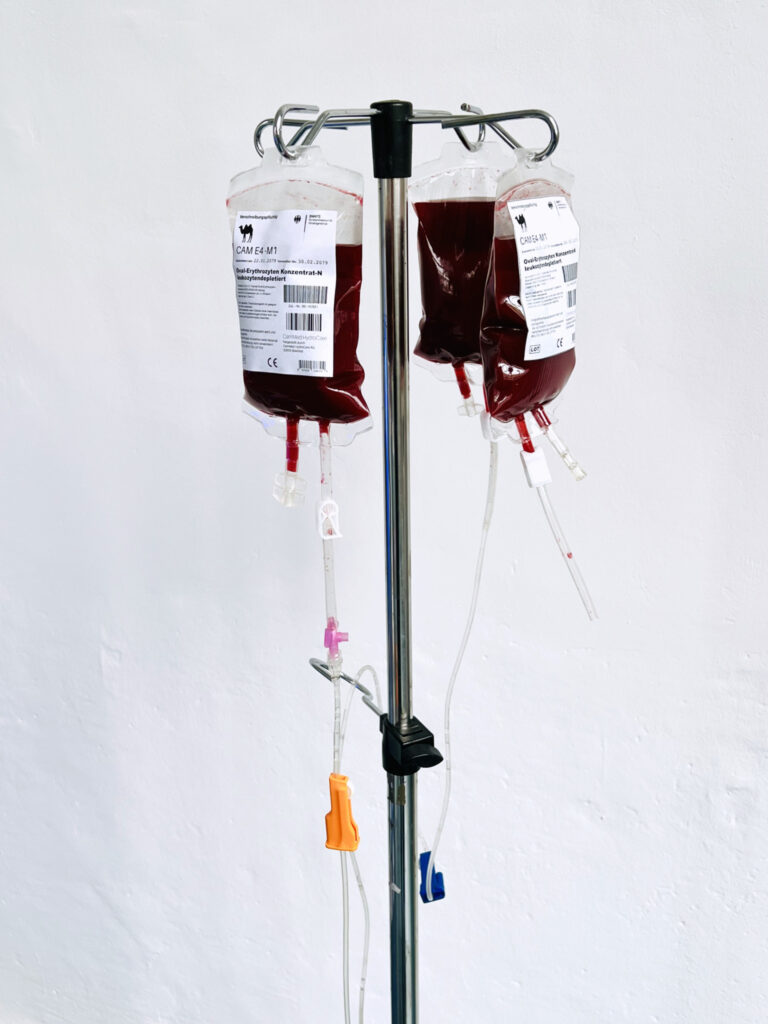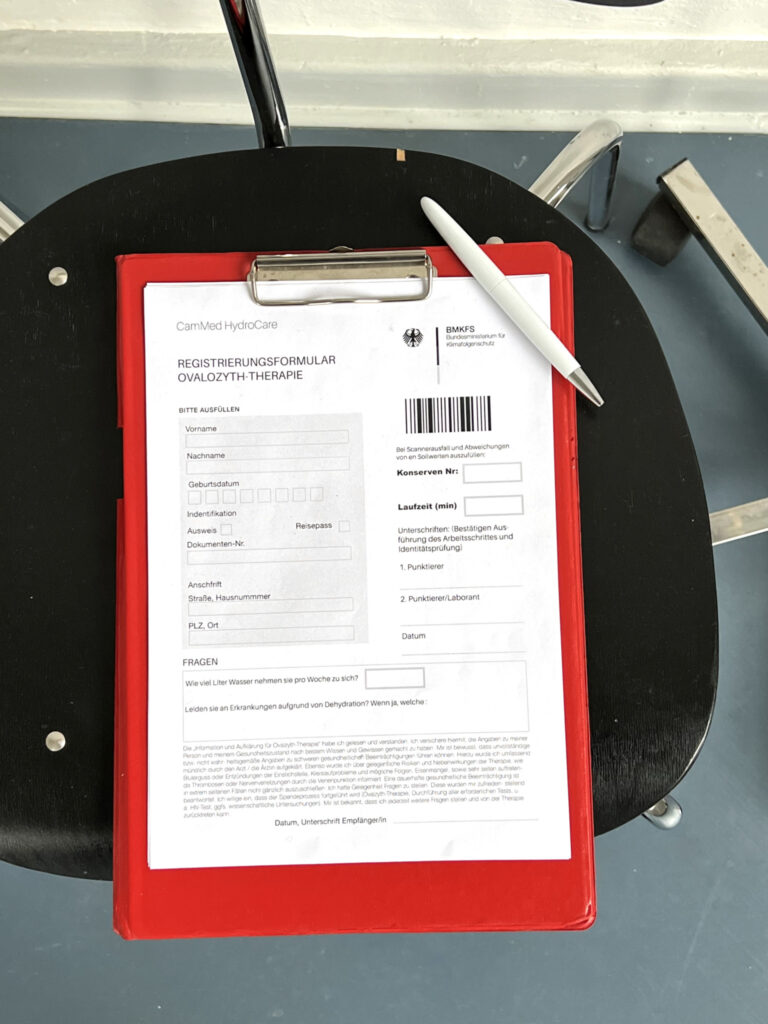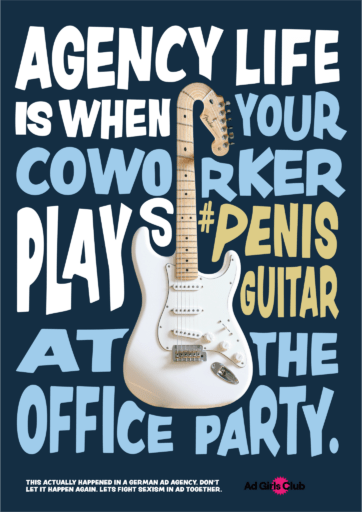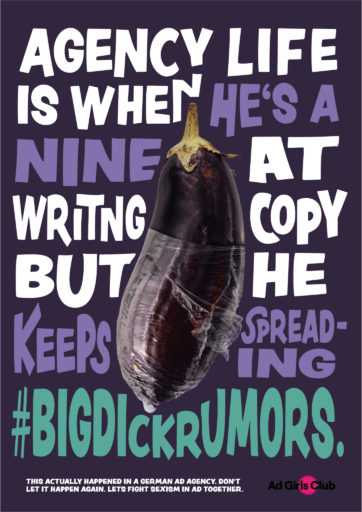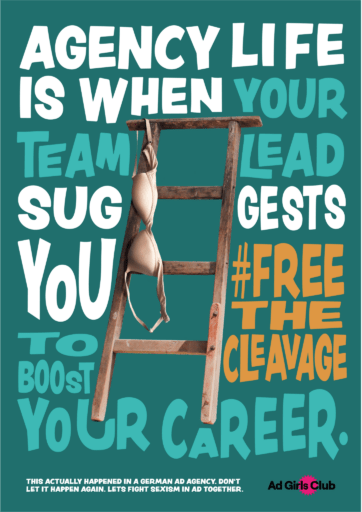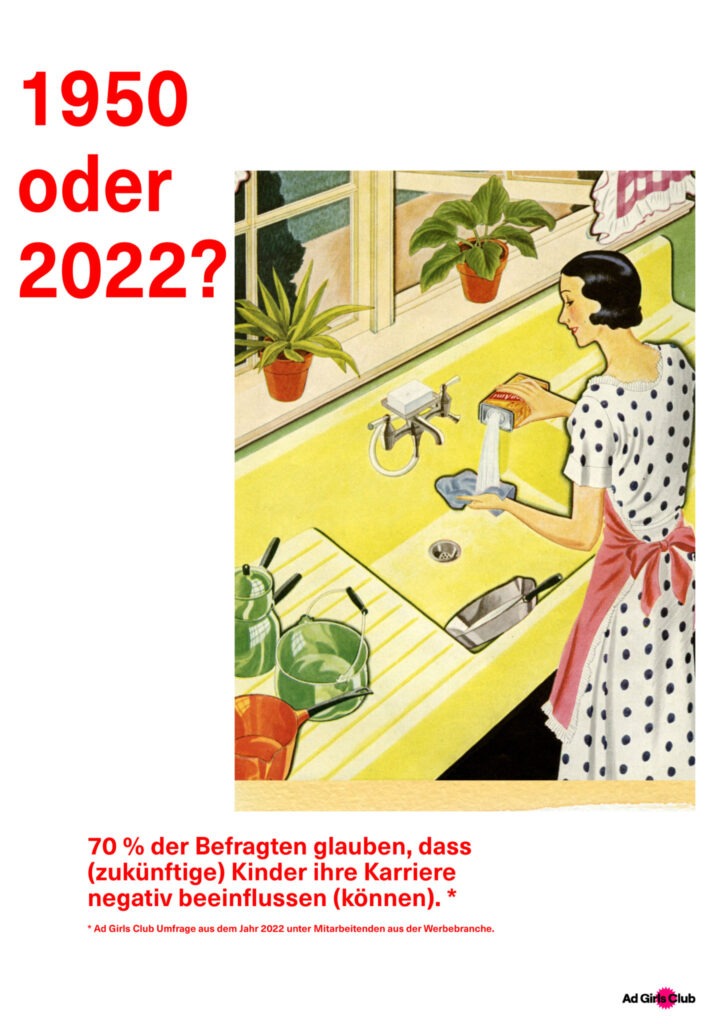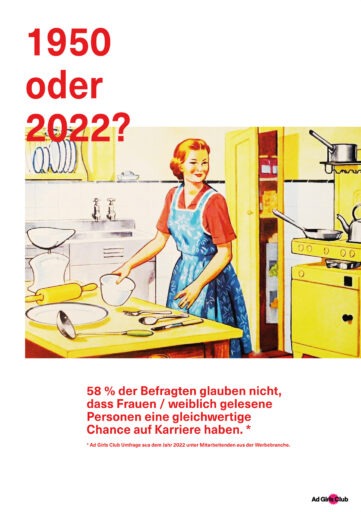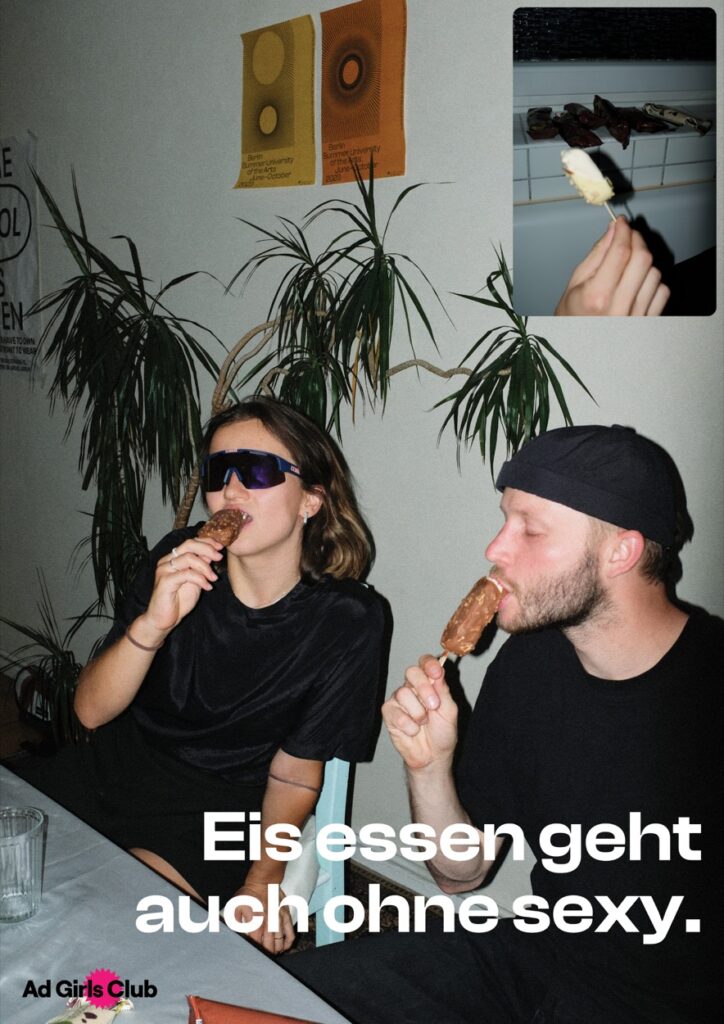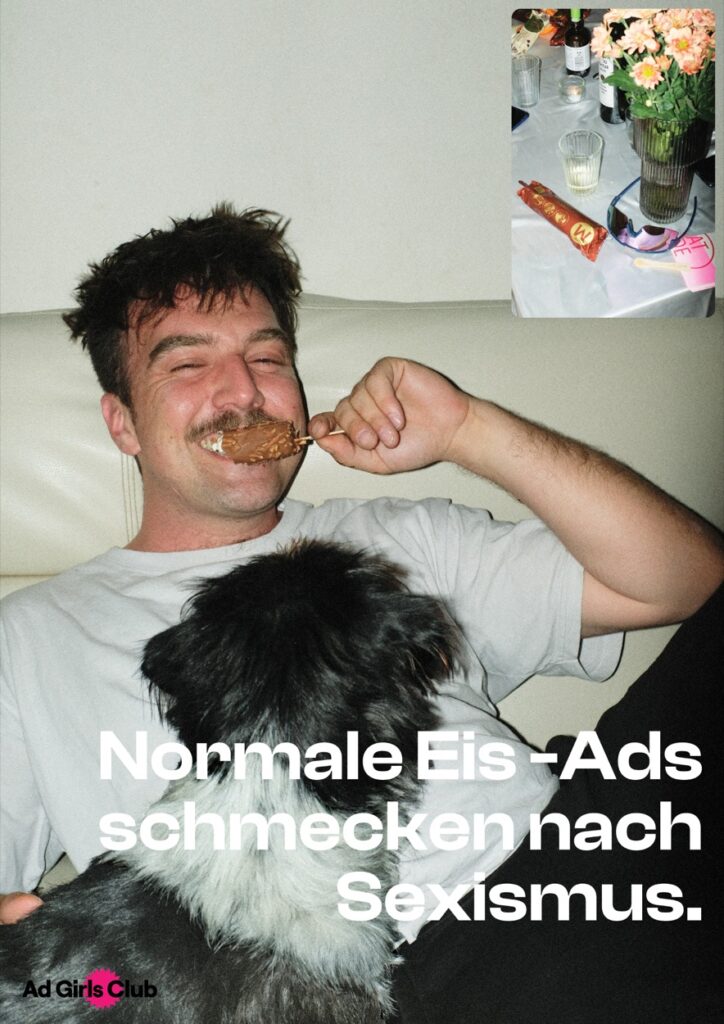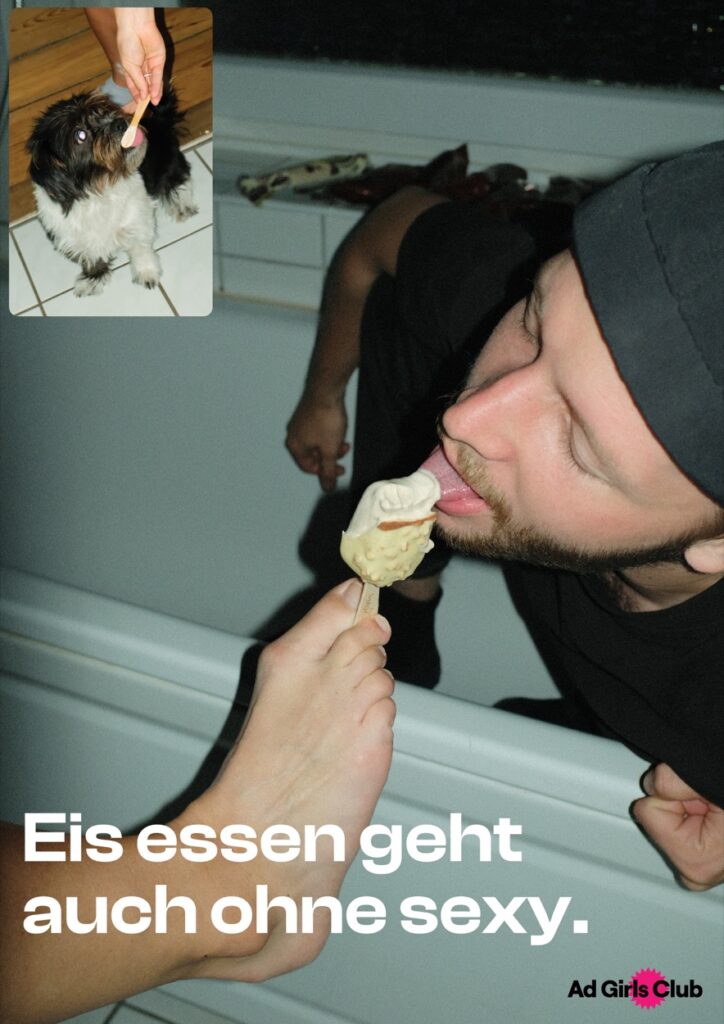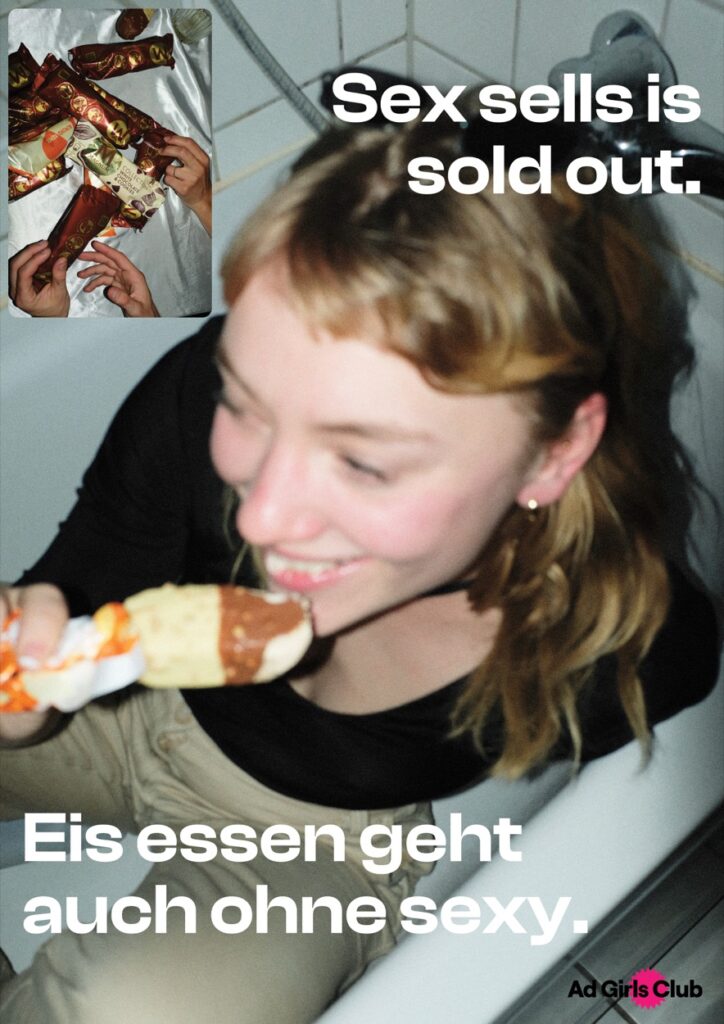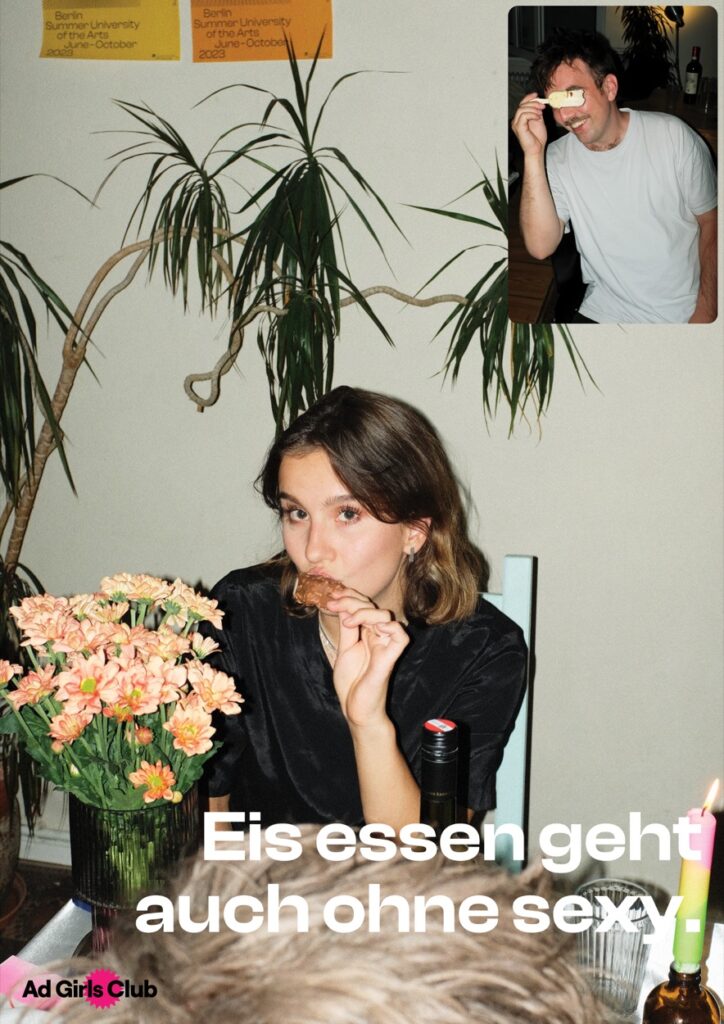Graustufen (Von Ja bis Nein) – Yes, no … actually somewhere in between? Do we always need a clear position immediately? Between the black and white answers is a space that allows us to think first. A 10 cm thick leporello with 100 answers shows the space between yes and no.
Student: Fanny Ebeling
Lecturer: Prof. Barbara Kotte
Emotion Cards – When words fail, pictures speak. The emotion cards allow complex feelings to be experienced visually. They create space for communication and self-reflection as well as a deeper awareness of the diversity of the emotional world.
Student: Marieluise Kämpf
Lecturer: Prof. Barbara Kotte
Rundgang Poster – With an approachable, multilingual and multisensory Rundgang communication in collaboration with students from all faculties, we are opening the doors to UdK Berlin wider than ever before with Rundgang 2024. Berlin is diverse, and so is the UdK. And that’s exactly the way we show it.
Students: Leon Hochhäuser, Momo Anders
Lecturer: Prof. Barbara Kotte, Anja Steinig
Rundgang Poster – How does Rundgang feel like? Communication proposals for the UdK Sommerrundgang 2024
Students: Poster 1: Gerrit Ludwig und Mélan Rouillon, Poster 2: Alessandra Fochesato, Poster 3: Hannah Stöwe und Marieluise Kämpf, Poster 4: Qianxue Zhang
Lecturer: Prof. Barbara Kotte, Anja Steinig
Rundgang Poster – How does Rundgang feel like? Communication proposals for the UdK Sommerrundgang 2024
Students: Poster 1: Iuliia Volokhina, Poster 2: Antony Langeheinecke, Poster 3: Alexandra Trinkl, Poster 4: Liyue Wang
Lecturer: Prof. Barbara Kotte, Anja Steinig
Time for peace – Together with students from the design graphique department of the EnsAD Paris, peacemaking projects were developed for the UN United Nations. In two workshops in Paris and Berlin, 120 ideas were developed, two of which were elaborated.
The project was funded by OFAJ/DFJW https://www.dfjw.org/
Promos, Erasmus Plus
Students: Alexandra Trinkl, Caroline Perrotte, Claire Maurice, Flore Laissus, Gerrit Ludwig, Hannah Stöwe, Iuliia Volokhina, Julie Drahmani, Julius Riek, Liyue Wang, Mélan Rouillon, Melissa Carene
Lecturer: Prof. Barbara Kotte, Prof. Ruedi Baur, Prof. Laurent Ungerer
Remembrance work – The publication series focuses on the history of the UdK Berlin with its participants, buildings, collections and influence on the city and society. Published by UdK Verlag.
Students: Momo Anders, Max Arff, Ira Göller, Anton Ladewig, Sebastian Richter
Typesetting: Max Arff, Anton Ladewig
Lecturer: Anja Steinig
Fliesentisch – As a homage to (South) German everyday kitsch, memories of kitsch in our lives are scrutinised: whether allotment gardens, Christmas at grandma’s or the Alemannic carnival. Old and new kitsch becomes contemporary nostalgia through cultural recycling.
Student: Josephine Aymar
Lecturer: Prof. Barbara Kotte, Prof. Fons Hickmann
Intervention as communication
Keimzelle – The accomplices are the nucleus of the Centre for Political Beauty. As independent activists, they are given the opportunity to show their faces, to network and to carry out their own actions.
Student: Charlotte Riemann
Lecturer: Prof. Barbara Kotte, KM Gosia Warrink
Intervention as communication
Joining forces, watering trees – Berlin, we need trees! Let’s water the trees in our neighbourhood together.
Information about the trees, public pumps in your street and tips for proper watering at: https://www.giessdenkiez.de
Student: Charlotte Riemann
Lecturer: Prof. Barbara Kotte, KM Gosia Warrink
Untitled – A videographic inventory of the continuously changing subjective view of one’s own place of origin. 2023. HD single channel video, 6 min 17 sec.
Student: Niclas Moos
Lecturer: Prof. Barbara Kotte, Prof. dr. Miriam Oesterreich, Ruven Wiegert
I don’t follow – xxplain – Sexism and misogyny are problems we encounter every day – online and offline. Alpha podcasts and dating coaches in particular provoke with lurid content and spread old role models. The campaign calls on social media users to take a stand against misogynistic content with films, an educational Instagram account and stickers. Instagram account: @idontfollowxxplain
Student: Josefine Nitzsche
Lecturer: Prof. Barbara Kotte, KM Gosia Warrink
The Change Project
Sexism during apartment hunting – #SEXISMUSWS contains reports on sexism when looking for an apartment to draw more attention to the issue in public space.
Student: Alexandra Trinkl
Lecturer: Prof. Barbara Kotte
The Change Project
About the meaning of music in the concentration camp Theresienstadt – Performance with eyewitness accounts, including songs and texts by the Jewish writer Ilse Weber, performed on 27.01.23 on the occasion of the International Holocaust Remembrance Day at three locations of the UdK Berlin.
Student: Charlotte Riemann
Lecturer: Prof. Barbara Kotte
Artificial Creativity
My interFace – A short film that questions the connection between artificial intelligence and human identity. The AI DALL-E 2 was asked to generate images of its own face, which were then projected onto manually modeled and frame-by-frame animated faces made of plasticine.
Student: Laura Thiele
Lecturer: Vinzent Britz
Speculative Design // Water
H2Outlaws – Germany in the year 2080. People are forced to survive with extremely little water. The private extraction of water is criminalized, but a group of outlaws survives: with a system made out of waste, they suck the smallest bit of water from their surroundings.
Student: Liesa Fritzsche
Lecturer: Gosia Warrink
UdK 2041
Performance Laboratelier II – 20 years UdK Berlin – in the symposium “Laboratelier II” we looked back and forward. Members of the UdK, therefore, had the opportunity to submit contributions to the question “UdK (2001+20+20) 2041 – What are you?”. And these were staged by the class Campaigns with students of the acting course.
Lecturer: Prof. Barbara Kotte
Design for K#2lasse K#1ampagnen
2022 K#4lasse K#9ampagnen has been relaunched with the replacement of Prof. Barbara K#1otte. A new corporate design has been created for this – or should we say “K#4orporate”? Because everything revolves around the K#1: K#3rass, K#4arma, K#9leistpark, K#1lotzt, K#6ussecht, K#5onkret, K#7olossal, K#4lasse K#4ampagnen.
Students: Josefine Nitzsche, Julius Riek
Lecturers: Anja Steinig
Project Null
Null – Zero is the perfect reduction, it makes one equal to ten, a hundred, a thousand, it makes water freeze, it is neutrality and departure. In a joint project of the Campaigns class and the Graphic Design class, associative, artistic, but also applied works on the theme were created.
Lecturers: Prof. Fons Hickmann, Prof. Barbara Kotte
Project Null
() – The composition shows how the German language produces neologisms: Word stems are combined and, when put together, form new terms. The work () explicates this madeness by playing with rehearsed pairs; led ad absurdum, non-sense objects emerge that invite linguistic reflection.
Students: Vincent Carter, Indra Frings, Stefanie Messner, Niclas Moos, Jean-Noël Teschauer
Lecturers: Prof. Fons Hickmann, Prof. Barbara Kotte
Emotionsbehälter – Each of us is like a container for emotions in which joy, anger, sadness and happiness exist. Different emotions are merged in the candles and flow with the burning of the candles.
Student: Qianxue Zhang
Lecturer: Prof. Barbara Kotte
Emoji Ornament 🙂 – Emojis are not only expressions of feelings, but they also influence our emotions, especially when we are bombarded with them repeatedly in chats and social media. This is exemplified in the work “Emoji Ornament”: an interactive code consisting of a series of Apple emojis. Java Interectiv Code: https://emojiornament.alessandrafochesato.com/
Student: Alessandra Fochesato
Lecturer: Prof. Barbara Kotte
Dictionary of Emotions – Understanding emotions can often be difficult. One way of dealing with your own emotions and communicating them is through language. This collection of terms provides an overview of the language of emotions.
Student: Hannah Stöwe
Lecturer: Prof. Barbara Kotte
Rundgang Poster – How does Rundgang feel like? Communication proposals for the UdK Sommerrundgang 2024
Students: Poster 1: Penelope Hehl, Poster 2: Sevasti Giannitsi, Poster 3: Gerrit Ludwig und Mélan Rouillon, Poster 4: Sergey Kuchin
Lecturer: Prof. Barbara Kotte, Anja Steinig
Project Europa
France-Germany banknotes – The banknotes show in a humorous way how a good friendship develops: getting to know each other, eating together and dancing together. At the same time, they represent common symbols of French and German culture and celebrate Franco-German friendship. The project was funded by OFAJ/DFJW
Student: Liyue Wang
Lecturer: Prof. Barbara Kotte
Intervention as communication
Your data, your choice – Our data is collected in excess. But no one seems to realise the risks.
The campaign brings the abstract topic closer and shows its relevance. Informative, confrontational.
Student: Nick Gollanek
Lecturer: Prof. Barbara Kotte, KM Gosia Warrink
Intervention as communication
The cultural waistcoat – More than 20 nightlife venues in Berlin are to make way for the extension of the A100. Therefore, cultural waistcoats were hung in front of the clubs to draw attention to this deplorable state of affairs.
Student: Antony Langeheinecke
Lecturer: Prof. Barbara Kotte, KM Gosia Warrink
Branding + UX/UI Design – This website sensitises companies and designers to the changes in a digital brand world and promotes the necessary collaboration between branding and UX/UI designers.
Student: Elisabeth Schachoff
Lecturer: Prof. Barbara Kotte, Prof. Jürgen Schulz, KM Gosia Warrink
SH!NEEY Magazine – Whether as a politically correct counter copy to Bravo or contemporary social criticism in y2K aesthetics. SH!NEEY creates a diverse and inclusive space for open, experimental and critical contributions.
Students: Angelika Pientka, Leonor Gläser, Luca Wunderlich, Antonia Gericke
Lecturer: Prof. Fons Hickmann, Prof. Barbara Kotte
The Change Project
Monsterrüben – Too crooked, too crooked, too small. There are many reasons why fruits and vegetables don’t make it into stores.
With our »Monsterrüben« campaign, we want to change the perception of crooked fruits and vegetables: from ugly to magical. Too crooked, too big, too small, it doesn’t matter – the main thing is organic, fresh, and delicious!
Students: Iulia Volokhina, Shilong Xu
Lecturer: Prof. Barbara Kotte
The Change Project
MainTrain – »mainTrain« is a fact-based Instagram eco- campaign, designed to promote train usage. With an online presence and stickers distributed around train stations in Berlin, the campaign reminds people that trains are one of the most eco-friendly travel methods.
Students: Nil Cakmak, Cho Wonkyung
Lecturer: Prof. Barbara Kotte
Artificial Creativity
Sanctuary Blue – In a world full of hyper-productivity, even an AI is exhausted. In a refuge, it seeks rest and dares to dream. The work was created using StableDiffusion, ChatGPT, and other generative AI-based text tools.
Student: Philipp Dollinger
Lecturer: Vinzent Britz
Project Null
Nichtssagend – “Nichtssagend” is a variation of a memory game where you must find the matching picture to a certain word. In the end, the pictures form a shape on the game board. The game includes 3 variations of game boards that form the number “0”, the word “null” or the word “zero”.
Students: Nil Cakmak, Renata Altenfelder Dias, Dominic Gollanek, Katica Pejic, Yui Yamagishi, Shillong Xu
Lecturers: Prof. Fons Hickmann, Prof. Barbara Kotte
Project Null
Null Island – A place of unlimited possibilities that proves that everyone can reach their full potential when society does not judge based on appearances. Null Island knows no guidelines or ideals of beauty but creates space to secure personal and universal needs. Null Island is located at the intersection of the prime meridian and the equator in the Atlantic Ocean.
Students: Julia Kressiere, Anneli Dormann
Lecturers: Prof. Fons Hickmann, Prof. Barbara Kotte
Project Null
Smoke & Soap Bubble – In this work, zero is understood as the center of a dialectic process that continually oscillates back and forth between two opposites. In an experiment, six designers react to each other in a cycle. In the process, a work is continuously interpreted and then an antipole to it is formed. The result: 48 images, fanned out in a chain of reactions.
Students: Josephine Aymar, Anna Beilmann, Lisa Leitgeb, Willie Neumann, Paul Pacher, Iuliia Volokhina
Lecturers: Prof. Fons Hickmann, Prof. Barbara Kotte
Ego Boost – This installation, after detecting your face, compliments you if you listen to it’s cloned voice saying “COME CLOSER”. The robot simulates a basic human interaction: receiving a nice compliment. I wanted to question our relationship with social media, which over-stimulates our need for social validation. You can try the Ego Boost online, it use open source AI tools and the face detection is programmed with java-script library.
Student: Mélan Rouillon
Lecturer: Prof. Barbara Kotte
Scrolling through emotions – We often tend to open social media without consciously thinking about it. We never know what content awaits us and what emotions we will encounter in a matter of seconds. What will be triggered in us? What will affect us in the long term?
Student: Penelope Hehl
Lecturer: Prof. Barbara Kotte
Found Emotions – How is the house façade doing and why is the street lamp so cheerful? A collection of a search for emotions, faces and small details in public spaces and their interplay with their surroundings.
Student: Paul Knop
Lecturer: Prof. Barbara Kotte
Rundgang Poster – How does Rundgang feel like? Communication proposals for the UdK Sommerrundgang 2024
Students: Poster 1: Gerrit Ludwig und Mélan Rouillon, Poster 2: Liyue Wang und Qianxue Zhang, Poster 3: Kaja Funke, Nick Gollanek und Julius Tiemann, Poster 4: Charlotte Riemann und Giada Armante
Lecturer: Prof. Barbara Kotte, Anja Steinig
Project Europa
Common language unites – In celebration of Franco-German friendship. List of similar words with the same meaning in German and French as an A5 brochure, as well as A1 poster with identical words in both languages. The project was funded by OFAJ/DFJW
Student: Hannah Stöwe
Lecturer: Prof. Barbara Kotte
Intervention as communication
Complicity scarf for #politicalbeauty – With the complicity scarf, supporters of the Centre for Political Beauty can identify themselves during actions as well as in everyday life. It can be worn as a disguise, scarf, headscarf or flag. The accompanying social media campaign with the hashtag #politischeschönheit draws attention to this.
Students: Giada Armante, Agniia Meshalkina
Lecturer: Prof. Barbara Kotte, KM Gosia Warrink
Intervention as communication
Apfelheim, Where did the elderly go? – More than 200 elderly people in need of care used to live in the Pro Seniore Residenz at Hackeschen Höfe. Today, an Apple Store is located here. The intervention @apfelheim commemorates the former nursing home and calls on people to document displacement with the hashtag #DisplacedBerlin.
Student: Giada Armante
Lecturer: Prof. Barbara Kotte, KM Gosia Warrink
The Change Project
Openness and Insight – This is an everyday story about a great moment of insight. And it illustrates how change is possible – if we simply examine our patterns.
Distributed via the magazine holders of Berlin’s public transport company “BVG”, every passenger can experience how peace, respect, and tolerance can lead to better relations with one another.
Student: Julius Riek
Lecturer: Prof. Barbara Kotte
Text and Storytelling
Postcard series with texts written by students as part of the course Text & Storytelling.
The postcard series is available in the UdK Shop https://shop.udk-berlin.de
Students: Hannah Stöwe, Janine Aschenbrenner, Jo-Moritz Krah, Josef Schneble, Julius Riek, Michl Best, Moana Schorlemer Filipe, Raviva Valmy C. Nsiama, Shilong Xu
Lecturers: Sonja Knecht
Speculative Design // Water
Talk with them – Humanity has rethought its behavior. Sustainability is the focus. However, plants remain desperate and refuse to take up water. A system in the soil communicates with them and gives the plants back their inner balance.
Student: Alice Bonanomie
Lecturer: Gosia Warrink
Mixed-Messages – The design of a word influences its meaning and emotion. Messages can be formed from this collection of words, which can be interpreted differently based on the design.
Student: Nick Gollanek
Lecturer: Prof. Barbara Kotte
TABU – The platform TABU creates a space in which stigmas are broken and learned narratives are questioned – in which we don’t take sex, but above all ourselves, too seriously. With a ruthlessly honest design and a product range that makes you smile, we are confronting feelings of shame.
Students: Kaja Funke, Julius Tiemann
Lecturer: Prof. Barbara Kotte
Rundgang Poster – How does Rundgang feel like? Communication proposals for the UdK Sommerrundgang 2024
Students: Poster 1: Linus von Appen und Paul Knop, Poster 2: Fanny Ebeling, Poster 3&4: Oksana Sukhova
Lecturer: Prof. Barbara Kotte, Anja Steinig
Unlearning University – The symposium is based on the Critical Diversity Policy of the UdK Berlin and invites all students to discuss and try out knowledge critical of discrimination and transformative practice in the arts in various formats together with international guests.
Student: Charlotte Riemann, Giada Armante, Yui Yamagishi
Lecturer: Prof. Barbara Kotte, KM Gosia Warrink
Project Europa
Paris in Berlin – In Germany, “French flair” is often used for marketing purposes. In Berlin, “savoir-vivre” meets Berliner Schnauze something new is created: French air in Berlin. The project was funded by OFAJ/DFJW
Student: Julius Riek
Lecturer: Prof. Barbara Kotte
Intervention as communication
Sticker Campaign for the ZPS – With the campaign, everyday objects become evidence and supporters become multipliers for the Centre for Political Beauty.
Student: Nick Gollanek
Lecturer: Prof. Barbara Kotte, KM Gosia Warrink
Intervention as communication
Manspread No– Manspreading on public transport is not only a space problem, but also an example of toxic male behaviour. This campaign draws attention to the problem and confronts those involved.
Student: Agniia Meshalkina
Lecturer: Prof. Barbara Kotte, KM Gosia Warrink
Reclaiming Resilience – Resilience-critical quotations were printed on elastic, resilient fabric in the original sense of the word. In this way, the term resilience is returned to its original meaning. At the same time, a space for protest is created.
Student: Anna Beilmann
Lecturer: Prof. Barbara Kotte
The Change Project
Therapy Guide – The process of finding a therapist is often difficult. There is a lack of transparent information and access to therapy is limited. Our guide delivers an easy way. With helpful information and simple step-by-step instructions, we offer orientation when you need it the most.
Students: Elisabeth Schachoff, Hannah Stöwe, Liyue Wang, Nick Gollanek
Lecturer: Prof. Barbara Kotte
Artificial Creativity
Characters – To develop characters with the help of AI, two people were scanned (NERF) and then given new textures by an AI. The prompts for the textures were generated with the help of a ChatAi.
Student: Alina Abberger
Lecturer: Vinzent Britz
Speculative Design // Water
Ovalocyte-Therapy
The camels’ red blood cells can expand up to 250 percent of their normal volume through water intake. Ovalocyte therapies are offered to protect humans against dehydration when water is scarce. They promise rapid water intake, long storage, and preservation of vital body functions, even if water is unavailable for several days.
Student: Jonas Fehrenbach
Lecturer: Gosia Warrink
Love Ad, Hate Sexism
Agency Life – The poster series takes up real stories of sexual assault in advertising agencies and stages them so that viewers experience a similar “WTF moment” as those affected – with the hope that things will be different in the future.
Student: Josefine Nitzsche
Lecturers: Lisa Eppel, Isabel Gabor
Love Ad, Hate Sexism
1950 or 2022? – To show the sluggish progress of equality in advertising agencies, selected results of the Ad Girls Club survey are combined with stereotypical portrayals of women from the 1950s. In view of the results, the question keeps coming up: 1950 or 2022?
Student: Anna Beilmann
Lecturers: Lisa Eppel, Isabel Gabor
Love Ad, Hate Sexism
Tastes Sexist – Advertising campaigns for ice cream are often exaggerated and portray ice cream eating as pleasurable and oversexualized. Most of the time, it is female-read people who are reduced to their norm-beautiful characteristics. This campaign shows that ice cream can and should be advertised in a spontaneous and natural way.
Students: Josephine Aymar, Lisa Leitgeb
Lecturers: Lisa Eppel, Isabel Gabor
